


Previously unpublished photos discovered in 2003,
sandwiched behind a wall of a house
under renovation in Orange County, California.
The photos clearly document evidence of the holocaust.
Photographer unknown.
MAY EVERY NAZI-CRIMINAL THAT IS HIDING FROM THEIR PAST AND THE LAW; BE HUNTED DOWN LIKE THE ANIMALS THAT THEY ARE AND BE MADE TO PAY FOR THEIR BARBARIC CRIMES.
========================================
RABBI YEHUDAH KOLKO WAS BACK IN COURT TODAY - February 20, 2007
Defendant Docket Number Summons Number Appearance Date County / Court / Part Judge
KOLKO, JOEL 09538-2006 February 20, 2007 KINGS / Supreme Court / 10 WALSH,JOHN P
Police: Brooklyn Rabbi Charged With Sexual Abuse On Child
Home New York State Unified Court System
WebCrims Case Information System
Defendant Detail
KINGS Supreme Court
Docket: 09538-2006
Defendant: KOLKO, JOEL
Born 1946
Arrest/Incident Date/Time
Arrest Date: December 7, 2006
Arrest Time: 17:45
Incident Date: July 1, 2006
Incident Time:
Case Related Numbers
Criminal Justice Tracking Number: 58608619Y
NYSID Number: 981298P
Arrest Number: K06699923
Summons/Ticket Number:
Arresting Officer Info
Agency: NYPD
Officer Command: 84
Home New York State Unified Court System
WebCrims Case Information System
Appearance Detail
You can receive an automatic email reminder of this court appearance
either 7, 14, 21 or 28 days in advance of the appearance date.
Simply click on the Email Notification button.
KINGS Supreme Court
Docket 09538-2006
Defendant KOLKO, JOEL
Appearance Information:
Appearance
Part & Date Judge Calendar
Section Court
Reporter Release
Status Arraignment
Type Hearing
Type Docket
Detail
10, February 20, 2007 WALSH,JOHN P ARRAIGNMENTS Regular No Type
GRAND JURY, January 4, 2007 MISCELLANEOUS Bail Continued No Type TRUE BILL
December 8, 2006 Cash $5,000 (Cash) No Type BAIL PAID
Docket Information:
Standards and Goals Age Defendant Status
47 days Violent Felony Offender
Docket Sentence Information:
Docket Sentence
No Data Available
Defense Attorney Information:
Name Type Court Date Court Part Firm Name Phone Number Address
Private (Retained) December 8, 2006 APAR1
Assistant District Attorney Information:
Name Assignment Date
No Data Available
Motion Information:
Motion Date Court Part Motion Type Motion Disposition Motion Activity Motion Filing Date
No Data Available
Home New York State Unified Court System
WebCrims Case Information System
Charge Detail
KINGS Supreme Court
Docket 09538-2006
Defendant KOLKO, JOEL
Law Code and Code Section/Subsection
PL 130.65 01
Charge Detail
D Felony, 1 count, Not an arrest charge, Not an arraignment charge
Description: SX ABS:CNTCT-FRCBL CMPLSN
Indictment Count: 4
Charge added to case on: January 4, 2007
Disposition/Sentence
Law Code and Code Section/Subsection
PL 240.26 01
Charge Detail
Violation, 1 count, Not an arrest charge, Not an arraignment charge
Description: HARASSMENT 2ND- PHY CONTACT
Indictment Count: 3
Charge added to case on: January 4, 2007
Disposition/Sentence
Law Code and Code Section/Subsection
PL 130.60 02
Charge Detail
A Misdemeanor, 1 count, Arrest charge, Arraignment charge
Description: SX ABSE:SX CNTCT W/IND<14
Indictment Count: 5
Disposition/Sentence
Law Code and Code Section/Subsection
PL 130.65 01 *** TOP CHARGE ***
Charge Detail
D Felony, 1 count, Arrest charge, Arraignment charge
Description: SX ABS:CNTCT-FRCBL CMPLSN
Indictment Count: 1
Disposition/Sentence
Law Code and Code Section/Subsection
PL 260.10 01
Charge Detail
A Misdemeanor, 1 count, Arrest charge, Arraignment charge
Description: ACT MANR INJUR CHILD < 17
Indictment Count: 6
Disposition/Sentence
Law Code and Code Section/Subsection
PL 130.55 00
Charge Detail
B Misdemeanor, 1 count, Arrest charge, Arraignment charge
Description: SEXUAL ABUSE 3RD
Indictment Count: 2
Disposition/Sentence
=========================================================
`A Blight On All Of Us`
Author: Rebbetzin Esther Jungreis
Dearest Rebbetzin:
I have long enjoyed reading your weekly column and would like to express my gratitude and thanks to you for being the role model that we so need in these times. Through your column, you cite words of Torah, words of chizuk and give tremendously insightful responses to painful and perplexing situations.
I have picked up my pen so many times to write you about a particularly painful event that I experienced some years ago, but could never muster the courage to follow through. But I am so happy to be following through now, as I see that I am not healing and I would so like your input.
I am twenty five years old now, and can still cry uncontrollably when I am reminded of how I finished off high school. I attended an orthodox all girls academy where I worked hard, loved my friends and looked forward to yearbook, graduation, and ultimately attending seminary with my good friends in Eretz Yisroel. But in the middle of my junior year, things began to unravel. My parents’ increasingly volatile relationship coupled with their financial difficulties made for a pretty unhappy home life. One of the major contributing factors was the difference in their commitment to religious observance.
Early on in their marriage, my mother decided to take some major steps in observance of the mitzvot, and my father was not interested in doing the same. There was always some level of friction, though some times were better than others. A major point of contention was that my father’s salary as a public school teacher was way overextended in trying to cover the expenses that an orthodox lifestyle entails. The yeshiva tuitions and summer camp costs for myself and my other four siblings put a major strain on him physically and financially. He would always voice his discontent along with his relatives who were forced to help out once in a while (though not rich themselves). He urged my mother to give up living a life style that we could not afford and to send us to public school. We lived in a very good suburb with a top-notch school system and my father was always so frustrated that we could have been taking advantage of a schooling system that was already paid for.
During my junior year, my parents were falling very behind in their tuition. My father’s relatives felt that the expense was ridiculous and no longer wanted to help out. My father left home and went to live in his parents’ large and comfortable home, which was not a surprising occurrence in our house. But this time it seemed he wasn’t coming back.
My school began sending letters so strongly worded and so threatening that it still makes my stomach churn. I cried every time I happened to see one of those letters. Eventually, the bus driver was given orders not to pick me up any more, as I learned when I waited for several days for the bus to pick me up. My mother was frantic. She tried to take money advances from her credit cards to catch up a little. My school was not sympathetic, but when they received some payment, they let me continue taking the bus to school. My humiliation when stepping on that bus you cannot imagine. My face was always crimson over not being sure what my friends did or didn’t know.
Things only got worse when one day, my math teacher handed all my classmates back their exams except mine. She told me uncomfortably that she would have to speak to me about that after class. My friends looked at me questioningly. I figured that I did so badly on the exam that it required a special meeting. I was mortified. I was sitting there for 45 minutes with nothing to do while my whole class was preoccupied with going over the answers. I was so ashamed. Finally, the bell rang. I had butterflies in my stomach while following my teacher to the copier room where she quietly closed the door and informed me that all the teachers had been given an order not to grade any of my papers until my parents resolved their financial issues with the school. I had never understood what wanting the ground to open up and swallow you felt like until that moment. She apologized and I was numb. I was always aware that my high school was pretty intolerant when it came to money issues, but I never dreamt that they could be capable of this. I was so hurt and so miserable. I tried hard in school, I cheered the loudest for my friends during their basketball tournaments, I was on the debate team and I had never gotten into trouble. Around the month of May of 11th grade, when my mother had exhausted all financial possibilities, the bus stopped coming to pick me up. My mother drove me to school for several days, when we received a letter that instructed my mother to stop “sneaking me into school”. My mother drove to my school one last time with me sitting in the car. She hoped to work things out with them and have me go to my classes. The principal sent a staff member to my mother saying she had no time to see her and asking her to please leave. My mother cried, and was told that if she didn’t leave the premises, the police would be called. High school was over for me. While my friends and classmates talked quietly about my situation - I lay in the fetal position for weeks sobbing. My mother contacted influential members of the community associated with my school. But that went nowhere. My good friends’ parents, people with whom I had spent countless Shabbosim, and in whose homes I slept constantly, looked on sympathetically, but no one wanted to get involved. That summer I took my High School Equivalency Exam and I go no credit for any of my three years of high school.
Most of the people that I have encountered pertaining to this, view my experience as not surprising at all due to the business minded mentality of our yeshivot and schools today. I was told that halachically the school’s hands are clean. Can this be?
I sincerely look forward to your response, and hope to reach a certain closure through this.
Scarred for Life
P.S. I feel so relieved in a way after having written to you. I would really wish for this letter to be published in your wonderful weekly column in The Jewish Press. It would mean the world to me.
****************************************
`A Blight On All Of Us` (Continued from last week)
Author: Rebbetzin Esther Jungreis
Special Note: The letter from the young lady who was traumatized during her yeshiva high school years has evoked much response. She wrote of the pain she suffered - the humiliation that she experienced because her single mom could not afford to pay school tuition.
Her parents were conflicted over religious observance. Her mother wanted her children to benefit from a Torah education, but her father wanted none of it, and for that, and many other reasons, he just walked out one day, leaving her mother high and dry. She had always been a happy student, enjoying the friendship of her classmates, but now her school nightmare started. Unable to pay tuition, she was singled out in class, not given her report card and not allowed to participate. She wrote that to this day, she is scarred by that horrific experience. The following excerpts from two letters are just a few of the many that arrived at my office in response to her story.
Letter # 1 "I Too Was There"
I empathize fully with the young woman who wrote to you. I too had a similar experience growing up, although my parents were not divorced. My father always had difficulty holding a job. He is a good man - loves his family, and we love him, but he just never made it financially. My mom has always been a homebody and raising six children was not easy, so we too had tuition problems. My parents had to appear before a committee with their tax returns, and I remember how humiliating that was for them. There was always some wise guy on the committee who wanted to know why they didn’t do this or that to supplement their income. After much haggling, I would be awarded a scholarship which, more often than not, my parents couldn’t meet either. And even as your letter writer, I would be sent home from school and not given my report card or my grades. It was a horrible, horrible experience, and even now, just thinking about it makes me want to cry. Baruch Hashem, today I am married and have my own children in yeshiva. We are not wealthy, but my husband is able to pay the tuition, for which I am most grateful, because I don’t think I would survive if my children had to go through what I went through. I recognize that the yeshivas have their problems and most often operate in the red, but surely, the American Jewish community, one of the wealthiest in history, should be able to overcome this and make Torah education available to every Jewish child who desires it without putting them to shame.
Thank you for your column. It’s the first thing that I turn to when I open the Jewish Press...and thank you for your new book, “Life Is A Test” – my entire family loved it!
Letter # 2 "A View From Our South American Neighbors"
Dear Rebbetzin:
I would like to ask a few questions that have been bothering me for a long time and I hope that you have the time and the help from Hashem to answer them.
1) Why is it that, although there are so many intelligent Jews with economic resources in the United States, nobody seems to understand that in order to avoid assimilation, every Jew should have a proper Torah Jewish education? School tuition is very expensive, and although they do give some scholarships, they are available to a very limited number of students and only after degrading interviews with committees.
In some Central and South American countries like Panama, Venezuela, and Brazil, every Jewish child receives a Jewish education at the community school. Unfortunately, that education is based more on Zionism than on Torah and mitzvot, but the fact is that it is available to every Jewish child and, as a result, the rate of intermarriage is lower than in the U.S. Here, in the United States, I see people interested in building mikvehs and other institutions, but education is very neglected.
2) I am reading your new book, “Life Is A Test” and have come to the chapter on “Wake Up Calls”. I do not want to blame anyone, but did not Esther and Mordechai awaken their community? Where are the Esthers and Mordechais of this generation?
3) Getting back to education - This is the question that bothers me most. Why is it that in the Jewish schools (especially here in California), the level of education in yeshivas is very low – the teachers are not adequately prepared and the secular education is below average.... so why are we charging for the secular education that we do not impart? Most of the parents accept this passively, or react in two ways regarding these issues, neither of which is satisfactory.
a) From kindergarten on they engage all sorts of tutors, which is another huge expense (I personally home-school my child in his secular curriculum).
or
B) Parents do nothing and then discover that their third grader does not know how to read and write at grade level.
There must be a way to rectify all this before further damage is inflicted on our children.
Thank you.
***************************************
Rebbetzin's Column: The Rebbetzin`s Viewpoint
`A Blight On All Of Us` (Conclusion)
Author: Rebbetzin Esther Jungreis
During the past few weeks, I published letters that our readers wrote in response to the plight of the woman who is still suffering from the trauma she experienced in high school when she was ousted from yeshiva because of her single/divorced mom’s inability to pay tuition.
I am pleased to share with you a most meaningful letter written to her by the esteemed minahel of the Yeshiva of Far Rockaway, Rabbi Aaron Brafman, Shlita, following which I will conclude by offering my own thoughts on the subject.
Dear Wronged:
I read your story and am heartbroken. It’s hard for me to believe that any real Torah institution would act in the way that you describe. Unless there is another side to the story, you were terribly mistreated and those who acted that way will suffer terrible consequences min Hashamayim - if they haven’t already and this is written in this past week Parsha in connection with the passage “Kol almana v’yosom al ta’anun”…. “You shall not afflict all widows and orphans I shall hear their cry”….. Our sages teach that this pertains to all people.
The tuition issue is a very complex one. But it is a shame that in our day, when its been estimated that one million dollars are being spent on hotels for Pesach, aside from all the mid-winter vacations, that Yeshivas are still struggling and need high tuitions in order to operate. But that is a separate issue.
I hope you are able to get past your hurt and should probably go to see Rebbetzin Jungreis and seek her advice as to how to put it all behind you. You are, Baruch Hashem, young, and have a long life ahead of you to create a beautiful Jewish home, which ultimately, you will build for eternity.
Sincerely,
Rabbi Aaron M. Brafman
Minahel, Yeshiva of Far Rockaway - Derech Ayson Rabbinical Seminary
Part II It’s Time to Wrap Up - My Concluding Thoughts
My Dear Friend:
I empathize with your pain. Indeed, there is no justification for the humiliation and anguish that you and your mom were put through. Having said all this however, I do not believe that your experience is a typical one, I would like to think that, in situations such as yours, compassion would be exercised by the administration of every yeshiva. After all, we are “rachmanim u b’nei rachmanim” - “compassionate ones and the children of compassionate ones”, and mechanchim - educators, as well as the balabatim - lay people who comprise the tuition committees would reflect such timeless values, to say nothing of the responsibility to make a Torah education available to every Jewish child.
Sadly, this was not the case in your situation; the time has come for you to move on. I ask you to do this for your own benefit, for your own future, for anger and bitterness are poisons that thwart growth, distort thinking and impede living a constructive life - so get on with your life! I believe that it would prove helpful if you could learn to distinguish between those who genuinely reflect Torah values and those who masquerade in Torah garb, for those people who treated you and your mom so miserably, do not reflect Torah values. There is a story that my beloved husband, Rabbi Meshulem HaLevi Jungreis, Ztl, often related that illustrates this point.
A wealthy soap manufacturer, who professed to be an agnostic, met a rabbi one day and arrogantly challenged: “Rabbi, your Torah is useless. It simply has no effect. Just look at all the nasty people in the Jewish community. I really can’t understand why you continue to teach it.”
“My Torah is perfect,” the rabbi responded. “It is your soap that is useless. If I were you, I would get out of the soap business.”
“What are you talking about?” the manufacturer retorted. My soap is the best on the market.”
“Well, let’s take a walk and discuss it further,” the rabbi suggested.
The rabbi and the manufacturer walked to an adjacent park where they proceeded to watch some children playing in a sandbox. “Just look at those children!” the rabbi exclaimed. “They are so messy and dirty. Obviously, your soap is useless.”
“How can you say that?” the manufacturer protested loudly. My soap is the greatest! It’s just that those kids haven’t used it yet.
My Torah is also the best,” the Rabbi answered, but those who are mean spirited, have yet to use it.”
Try to bear this story in mind and don’t put all yeshivas and educators under the same umbrella!”
My revered father, HaRav HaGaon, HaTzaddik, Avraham HaLevi Jungreis, Z’tl, often told us that, if it was our lot to undergo a painful experience, then Hashem must have sent it our way so that we might help others and protect them from experiencing that same trauma. Consider starting a support group for single abandoned mothers who are unable to pay tuition for their children. Your letter has evoked much interest, and I am certain that there are many balabatim who would respond to such a worthy cause. Taking a cue from my father, I often say, “If you have broken eggs, don’t cry over them – make an omelet! Convert the darkness into light, the curse into blessing, and bring hope to those who feel hopeless. I must tell you that when I read your letter, I was not only shocked by the callousness of your school administration, but also by the apathy of the families of your friends in the community. Where were they? Why didn’t any of them protest? Why didn’t they set up a scholarship fund on your behalf? Fill that vacuum, establish that support group, and you will, b’ezrat Hashem, be able to protect children from such painful and damaging neglect.
I would also suggest that you act upon Rabbi Brafman’s suggestion and come to see me personally. Perhaps I could help you embark upon a new life and even find a shidduch. Having said all this, we cannot deny that yeshivas today are in real crisis. Costs are exorbitant, and most families have all they can do just to make ends meet. At the same time however, today’s American Jewish community is probably the wealthiest in history, and it is deplorable that yeshivas must struggle just to survive because` we fail to realize our communal responsibility. Ideally speaking, if our tzedukas were properly channeled, every child would be the beneficiary of a Torah education, and we would succeed in stemming the tide of assimilation which is tragically consuming our people. Perhaps your letter will awaken some people and spur them to action, and if that happens, your suffering will not have been in vain.
Please accept my best wishes for a constructive, purposeful, meaningful Jewish Torah life.
Rebbetzin Esther Jungreis
========================================
Wiesel assault suspect arrested in New Jersey
Harris: "Our City won't allow hatred to go unpunished"
San Francisco District Attorney Kamala Harris:
By Ari Burack, Bay City News Service
February 18, 2007
SAN FRANCISCO (BCN) - A New Jersey man suspected of attacking Nobel Peace Prize laureate and author Elie Wiesel in San Francisco on Feb. 1 has been arrested, San Francisco District Attorney Kamala Harris announced Saturday.
Harris said 22-year-old Eric Hunt of Sussex County, N.J. was arrested Saturday by authorities in New Jersey and is in the process of being extradited to San Francisco for prosecution.
"Hate anywhere is a threat to people everywhere,'' Harris said.
"This was a brutal assault on a man who's dedicated his life to peace.''
Wiesel, 78, a survivor of Nazi concentration camps during World War II and author of the acclaimed memoir "Night,'' received the Nobel Peace Prize in 1986.
Hunt allegedly traveled to San Francisco specifically to confront Wiesel while Wiesel was attending the three-day RockRose Institute World Forum Meeting at the Argent Hotel, according to the district attorney's office.
According to police, a man believed to be Hunt joined Wiesel in an elevator at the hotel on the evening of Feb. 1 and asked him for an interview.
Wiesel agreed and suggested they go to the hotel lobby, but the man instead invited Wiesel to his hotel room, San Francisco police Sgt. Neville Gittens.
When Wiesel declined, the man allegedly tried to force Wiesel into his room, according to Gittens. Wiesel screamed for help and the man ran off, Gittens said.
Wiesel was not physically injured in the attack, police reported. Evidence found in a car left in the hotel's parking lot helped police identify Hunt as a suspect.
A Feb. 6 essay, posted on a Web site that declares its opposition to Zionism and Israel and questions the Holocaust, and attributed to "Eric Hunt,'' claimed responsibility for the Feb. 1 encounter with Wiesel.
Hunt was arrested this morning at a treatment facility he had recently checked into, about 60 or 70 miles from his home, by authorities in Montgomery Township, San Francisco police Lt. Mike Mahoney said.
Mahoney, who heads the police department's special investigations unit, said Hunt had recently graduated from college, and appears to be a "lone wolf'' and not part of an organized group.
Harris, confirming that Hunt will be prosecuted for hate crimes, was joined by San Francisco police Chief Heather Fong and leaders from the San Francisco religious community in condemning the attack.
Jonathan Bernstein, a regional director of the Anti-Defamation League called the assault "shocking'' and said he believes Hunt intended to send a violent message to Wiesel and to all Jews.
Rita Semel of the San Francisco Interfaith Council added, "It is important we stand together as one people'' against perpetrators of hate crimes.
Rabbi Stephen Pearce of San Francisco's Congregation Emanu-El said he was pleased to see how authorities handled the investigation.
"It makes me proud to be a San Franciscan,'' Pearce said.
Harris said Hunt will be charged with six felony counts: kidnapping, false imprisonment, battery, elder abuse, false imprisonment of an elder, and stalking. Special hate crimes allegations will be added to each felony count, according to Harris.
Wiesel "was viciously attacked for who he is, and we won't stand for that,'' Harris said.
"The charges today send a clear message,'' Harris added. "Our City won't allow hatred to go unpunished.''
==============================

Case of Rabbi Matis Weinberg
(AKA: Reb Matisse, Rabbi Matisse Weinberg)
Baltimore, MD,
Kerem Yeshiva in Santa Clara, California (1980's)
Derech Etz Chaim in Har Nof, Jerusalem, Israel (2003)
Yeshiva University recently terminated Yeshivat Derech Etz Chaim's affiliation with the S. Daniel Abraham Joint Israel Program after discovering "compelling evidence" that a rabbi integrally associated with the yeshiva has a history of allegedly sexually abusing and engaging in cult-like behavior with his students.
Jewish Week - Rabbi Weinberg noted that while he was physically demonstrative to his students, often hugging them, it was never in a sexual way. "I don't get a hard-on" from such encounters," asserted the rabbi, who is married and has a large family.
For more on the case of Rabbi Matis Weinberg; scroll down further.
==========================
A great one by http://www.theawarenesscenter.org/
How True it is!
It can even happen to the daughters of Kings...
(© 2004) San
(See: Sanhedrin 21a for source material)
When considering the approach we take today within the Jewish community in dealing with sexual offences and how totally ineffective it truly is. I also considered whether the approach prevalent is outside our very traditions. The following are some very brief and hastily written thoughts on the subject meant more to stimulate discussion than to be definitive statements.
We spend so much time and effort dealing with things quietly to protect the reputations of the abusers and their families that we've lost sight of the very wickedness of the crime and our responsibilities in taking action and speaking out.
Has it always been this way? The answer is no. There was a time when we had leadership, a Sanhedrin, a Kingship, Judges, Prophets and even at times a direct relationship with God when we had the Temple. What did this leadership do when a prominent member of the community sexually abused? Did they speak of the lack of witnesses and the need for proof? Did they speak about all the good the abuser did during their life? Did they speak of the need to protect the abusers' family from the shame of their child's wickedness? Were things dealt with quietly? Was the abuser quietly moved to another city to start again with a clean slate? Was Shmirat Ha'Lashon put above the protection of others? Did we ask after each crime whether it was a mere single incident?
I believe the answer to all of the questions above is simple: NO.
One of the earliest recorded cases of rape within the Jewish community is that of the rape of Tamar the daughter of King David by her half-brother Amnon. Was the incident involving one of the most prominent families in the Jewish community (at both that specific time and all time as well) hushed-up? No.
Tamar took ashes and put them on her head and tore the garment of fine wool that she wore. She did this publicly. The King's daughter publicized her rape. Why? According to R'Yehoshua ben Korchah, by publicizing what had happened to her she raised a great barrier at that time to prevent further assaults of this nature. It was said if such a horrible thing could happen to the daughters of Kings, certainly it could happen to any regular girl. If such a thing could happen to a modest girl like Tamar, it could happen to immodest girls as well.
This public act by Tamar raised the awareness of sexual assault to the general community and this awareness helped protect other women. Did the reaction end there?
No. The Rabbinical community took action as well. They instituted a Rabbinical decree at the time prohibiting certain seclusions to further protect women.
So, I ask the question, why don't our leaders act similarly? I understand we don't have a Sanhedrin, a Kingship, Judges or Prophets. How more we have the need today for both leadership and actions by our leaders.
How many will suffer before our leaders act? How prominent must the victim be and how publicly must they humiliate themselves before we are finally moved to act decisively?
=========================
The End Of Innocence
By: Shlomo Greenwald, Jewish Press Staff Reporter Wednesday, February 14, 2007
Confronting Sexual Abuse in the Orthodox Community
W
e are not immune. The Orthodox community has abusers — sexual predators, wife beaters, child batterers — in its midst. And while many may have once preferred to believe otherwise, growing numbers of Orthodox Jews now seem ready to acknowledge that a problem indeed
exists.
If acknowledgment of a problem is half way to a solution, as a psychologist might say, where does the Orthodox community go from here?
"We lack a process," acknowledged Rabbi Yosef Blau, mashgiach ruchani of Yeshiva University and a leading advocate for greater communitywide awareness of abuse and assistance for the abused.
Rabbi Yosef Blau
"Our community doesn’t have a process, that’s the bottom line. If there’s an allegation, how does the yeshiva deal with it? Does the yeshiva know? Does the rosh yeshiva know?"
Rabbi Blau saw little likelihood of a single process being universally accepted in a fragmented Orthodox community, though "in order to have credibility, it needs to be widely accepted," he said.
Dr. David Pelcovitz, a leading authority on abuse cases in the Orthodox community, sounded a somewhat more reassuring tone. "There’s no set organization that people know to call," he said, "but like any medical referral, people will ask around and find out." He noted that a number of communal organizations provide guidance and assistance to victims of abuse.
"I don’t know if it’s different for the secular world," said Pelcovitz, a professor of psychology at Yeshiva University’s Azrieli Graduate School of Jewish Education and the former director of psychology at North Shore University Hospital. "If anything, it’s a little better in our case, because people are connected in our community."
Dr. David Pelcovitz
"If people are open to getting help," he added, "they will find their way to a specialist."
The question, of course, is whether many members of the community know of the availability of social service resources.
"I think for the most part the answer is still no," said Barry Horowitz, who formerly coordinated an Ohel Children’s Home and Family Services program treating sexual abusers and is now a consultant for Ohel.
Several mental health professionals emphasized the importance of victims receiving treatment from therapists with experience in abuse cases.
"I make an analogy to cancer, rachmana litzlon," said David Mandel, chief executive officer at Ohel. "When someone is told he has cancer, he seeks out the best possible specialist. It’s the same thing in an area like sexual abuse." He cautioned, though, that "very few people can treat it" because few therapists specialize in abuse.
In addition to finding the right therapy, Mandel said, it’s important to seek out a therapist who can deal with the religious dynamics, since Orthodox victims of abuse often struggle with their faith, wondering how God could let such a thing happen to them.
I
mportant as it is for victims of abuse to get help, the hurdles for Orthodox Jews remain high. In the general population about a third of all victims never go public with their ordeal; Orthodox Jews, concurred the therapists interviewed for this article, are faced with even more factors that discourage them from coming forward.
"The community tends to be insular, to be wary of mental health support," said Dr. Pelcovitz.
The shanda, or shame, factor and the fear of affecting future shidduchim are driving forces in discouraging disclosure. Another factor is the place that modesty holds in Orthodox sensibilities.
Elliot Pasik
Statistics have shown that the more similar a sexual perpetrator is to his victim in background, the less likely it is that the victim will report him, according to Dr. Pelcovitz.
"Shanda, shidduchim, modesty — these are real issues," said Horowitz. "And they’re also issues in that they that make it easier for perpetrators to do what they do and get away with it."
He noted that when he asked molesters why they chose to victimize someone in the community, the answer invariably would be "Because I knew I could do it."
"It needs to be discussed more," he said. "Very sensitive topic, but there has to be more dialogue with rabbonim in the community and with law enforcement."
"Yes, [Orthodox Jews] are more reluctant, no question about it," said Rabbi Abraham J. Twerski, bestselling author and founder of Gateway Rehabilitation Center in Pittsburgh, which treats drug and alcohol addicts. "The idea that there is abuse is something the community did not want to accept."
"To this day, many rabbonim are unaware and refuse to believe. And many women felt they couldn’t come forward because the husband is such a tzaddik in shul. It’s getting a little better, but still there are those who don’t believe."
David Mandel
Michelle Friedman, a psychologist with a private practice in Manhattan, has conducted research in an effort to determine whether the nature and frequency of abuse in the Orthodox community differ from what is found in the general population. Though she could not reveal the findings of her study, which are being peer-reviewed prior to publication, she agreed with the other specialists that Orthodox victims have more roadblocks to overcome.
"There’s an enormous emphasis on shame and stigma in the Orthodox community," she said. "Not just shidduchim, but that is a big one."
A practical solution to the problem, said Friedman, would be to educate Orthodox children about their bodies and personal integrity, something she feels is "not being done sufficiently." She also proposed training chatan and kallah teachers to speak about abuse.
Though sensitive to the widespread reluctance in Orthodox communities to discuss topics of this nature, Friedman was blunt about the consequences of silence.
"If we use modesty as a screen," she said, "we deprive our children of important information regarding their safety."
D
espite the obstacles to disclosure, Orthodox Jewish victims of abuse are becoming noticeably more comfortable in seeking therapy. "It’s better than 25 years ago," Dr. Pelcovitz said. "Then, it was very hard to get people to face problem head on, hard to get schools and leadership to talk about it."
Horowitz noted that when he started working in treating sexual abusers, about a decade ago, there were far fewer cases being reported than is now the case.
One indication of the new realism is that the number of Orthodox social services dealing with domestic violence and physical and sexual
abuse has grown over the past 10 or 15 years.
One of the oldest such resources is Shalom Task Force, which has an anonymous domestic abuse hotline. The phone counselors, or "hotline advocates," inform callers of their options and refer them to therapists who specialize in domestic abuse and are familiar with the Orthodox community — many of whom, like Barry Horowitz, are Orthodox themselves.
Hotline supervisor Sharron Russ said that while Shalom Task Force focuses more on domestic abuse, the number of cases involving sexual abuse has increased in recent years.
The Jewish Board of Family and Children’s Services also deals with sexual abuse on a regular basis. Faye Wilbur, director of the organization’s Boro Park office, is concerned about public trust in the board’s promise of nondisclosure.
"I don’t think the community understands completely that when we say fully confidential, it means we won’t tell anyone," she said. Among the services offered by JBFCS are an outpatient mental health clinic, lectures to raise public awareness and workshops in schools.
"Most schools do not take me up on it," Wilbur said of her offers to conduct a free workshop on child abuse and neglect, which includes segments on sexual abuse. Administrators usually tell her they have too much to accomplish and not enough time, she said. She believes many of them are also in denial that the problem exists.
"I do it in such a tzniusdik way," she said. "People have been pleased. I give references — I’ve been in some very chassidish schools as well."
She said that while she sends out letters every August offering schools her workshop program, it’s "depressing" how few have taken her up on it. She estimated that she offers the program to 75% of the yeshivas and day schools in the five boroughs, using lists of schools from Torah Umesorah and the Board of Jewish Education. She also estimated that since she began in 1995, only 10% of the schools she’s contacted have heard her speak.
The Metropolitan Council on Jewish Poverty placed more than 1,200 people in jobs in the past year, serves 13,000 families each month with the largest kosher food pantry in the world, and last September provided more than 30,000 kosher food packages to New York’s needy before Rosh Hashanah. As a small but necessary part of its services, Met Council also operates a family violence unit.
Though the unit is a relatively recent addition, the services it provides have been available throughout the decade-and-a-half tenure of Met Council Executive Director/CEO William Rapfogel.
Those services include a hotline similar to that of Shalom Task Force, a support group for victims of family violence, and crisis intervention and long-term counseling. Met Council is unique in that it can offer financial assistance in addition to therapeutic help.
Rapfogel said that while "today there is less denial than there was 10 years ago," more work needs to be done to combat physical and sexual abuse. He knows that fewer Orthodox Jews are in denial because Met Council has been "called into far more cases in the past four or five years than before."
According to Shana Frydman, director of Met Council’s family violence unit, most of the cases involve married couples. Like the other social workers interviewed by The Jewish Press, Frydman stressed that she and her coworkers strive to be culturally sensitive. For example, Frydman, who is Orthodox, usually counsels Orthodox victims.
"Everyone says Jewish women are more reluctant [to leave their husbands] because they have more kids and the shame in the community is compounded," she said. "Sometimes the right choice may be to stay, and we try to support that."
Women feel discouraged from leaving their marriages, she said, because they are worried about the effect it would have on their children’s shidduch prospects. Rabbis in the communities, she added, range from being "absolutely wonderful" to "not knowing the dynamics at play."
S
handa and shidduch concerns may be on the minds of many in the community, but perhaps the greatest obstacles to more Orthodox Jewish abuse victims coming forward are their feelings — as well as their rabbis’ positions — on four halachic issues: mesirah; bringing cases before secular courts; desecrating God’s name; and issues related to lashon hara (evil talk).
All four are intertwined in many ways. Mesirah refers to the rabbinic prohibition against informing on a fellow Jew to secular authorities — an act that in criminal cases will invariably lead to the second issue: bringing cases before secular courts.
Rabbi Michael Broyde, spiritual leader of the Young Israel of Toco Hills (Atlanta) and a dayan on the Beth Din of America, has written in the Journal of Halacha and Contemporary Society that according to halachic authorities one may inform secular authorities about Jews who are "violent criminals or people whose conduct endangers other people or the community as a whole."
In a footnote, he quotes from Nishmat Avraham, the encyclopedic work on medical halacha by Dr. Abraham S. Abraham, that according to Rabbis Shlomo Zalman Auerbach, Yosef Sholom Elyashiv and Eliezer Waldenberg, one must report cases of child abuse, including sexual abuse. Rabbi Broyde also points out that no alternative opinion is quoted.
Barry Horowitz, the Ohel consultant, said there should be guidelines in place for those in the community to decide "when to use therapy and when to call in law enforcement." In any case, he added, the Orthodox community should build up its relationship with secular law enforcement officials,.
"Our community is extremely uncomfortable with going to the police," agreed Rabbi Blau. "What is and isn’t mesirah? Seforim will tell you that if a person’s life is at risk, there’s no [prohibition]. Mesirah is more than an issur. It’s something Jews don’t do. Police officials will tell you the community generally doesn’t cooperate."
To encourage more Orthodox Jews to engage secular authorities, Brooklyn District Attorney Charles Hynes set up Project Eden, which runs programs in concert with many Orthodox social services and attempts to engender cultural sensitivity in the DA’s office and the NYPD.
"We’re not trying to push the criminal justice system on anyone," said Chana Widawski, a social worker who runs Project Eden, "but our concern is safety….The idea is to educate people to all the resources."
Project Eden has a hotline for victims of domestic abuse. Widawski said that Project Eden staffers work with the caller to figure out the best solution. "It might not always be calling the police."
Rabbi Mark Dratch
"If they do call," she continued, "then the system goes into action."
Widawski agreed with the perception that the Orthodox community is more reluctant to report sexual abuse cases to secular authorities than the general population.
Henna White, Hynes’s Jewish community liaison, while agreeing with others interviewed for this article that "there is some hesitance" in the Orthodox community to speak out about abuse — mainly due to concerns about modesty and children "not getting a good shidduch" — said she did not necessarily believe that
Orthodox Jews come forward less frequently than abuse victims in the general population.
"Abuse is very hard for people to talk about," she said. "It’s embarrassing. Nobody wants to come forward."
T
he efforts of Project Eden notwithstanding, there are those who wonder why the Orthodox community needs to handle abuse cases in a manner that differs from the more traditional route: adjudicate the cases in batei din; minimize the chillul Hashem; and if a person is found guilty, publicize his name far and wide while seeing that he receives treatment.
The counterargument is that such a system is not nearly as effective as the threat of jail in stopping an offender from striking again. The best a bet din could do, say advocates of utilizing secular courts, is award compensation to the family and issue a proclamation prohibiting the perpetrator from working in a yeshiva. They also point to the high rate of recidivism among abusers – which, they say, might be ameliorated by incarcerating offenders.
Asked about the halachic permissibility of going to secular courts, Rabbi Broyde noted that "batei din do not get involved in cases involving what American law considers a crime" — they never, for example, adjudicate murder and violent theft cases. He added that while abuse, sexual and otherwise, encompasses a large spectrum of offenses, he believes that no halachic authority "thinks a violent rapist should be summoned to a bet din."
"We don’t have jurisdiction over criminal cases," said Rabbi Yona Reiss, director of the Beth Din of America.
Rabbi Tzvi Hersh Weinreb
Elliot Pasik, a lawyer who has been at the forefront of system-wide change in the ways yeshivas and day schools handle sexual abuse allegations, said the situation is different from what it once was. Then, the community "didn’t need a national system. Clearly, now we do."
Rabbi Blau put it this way: "The old Israeli, Meah Shearim solution of posters telling people to stay away from so and so" will not work today.
"I’m not convinced we have batei din at the present time that are able to deal with it," he said. "Who will investigate? Who is able to? Who is trained and sensitive to all the ramifications?"Batei din, he explained, would have several difficulties to overcome, a major one being a lack of expertise in the field of abuse. Would all dayanim, for instance, possess sufficient understanding of the deleterious long-range effects of abuse on victims?
While the above is easily solvable — batei din could work in tandem with experts — a more difficult problem, said Rabbi Blau, is the lack of a set of accepted criteria. "What kind of testimony will be used? How much trust will be afforded the testimony of victims? You can’t use regular halachic criteria. Halachic expertise alone is insufficient."
A third difficulty, he said, is that batei din will have to define key terms ranging from age of consent ("according to halacha, a girl is an adult at 12," he pointed out) to what kind of touching constitutes abuse.
Any attempt to fix the latter two difficulties would prove to be daunting, he said. "Who would be in charge? Who would set up the system?"
Rabbi Blau also raised the issue that outside of Israel, batei din have no investigative powers.
"We know there are cases of charismatic people who are able to bring lying [witnesses to appear before a bet din]," Rabbi Blau said. "No consequences if someone lies in front of a bet din."
Some of these problems could be solved if there were a national bet din in this country, he added, but of course there is none. Over the centuries, he pointed out, rabbinic authorities came up with ways of dealing with difficult accusations — i.e., a lack of two witnesses — but that such solutions require "a society we don’t have, where a bet din can bring things to bear."
"In Israel," he continued, "if X doesn’t give his wife a get and we feel he’s [obligated], he can be thrown in jail. These methods are not available to batei din in America."
Others, meanwhile, maintain the problem is not so much going to
a bet din as it is in deciding which bet din to go to. "There is no one arbiter," said Ohel’s David Mandel. "I think it’s naïve to ask why we can’t have one bet din. People ask me. I tell them it’s not going to happen. I don’t think it’s realistic."
One bet din that has been actively trying to adjudicate sexual abuse cases was set up in Chicago some 10 years ago. Rabbi Zev Cohen, of Congregation Adas Yeshurun, set up the bet din after a couple of local molesters came to the surface. Sitting on the Chicago bet din, in addition to Rabbi Cohen, are Rabbi Avrohom Chaim Levine, rosh yeshiva of Telshe; Rabbi Gedalia Dov Schwartz, head of both the Chicago Rabbinical Council’s bet din and the Beth Din of America; and Rabbi Shmuel Fuerst, rav of the Agudah of Peterson Park and a dayan of Agudath Yisroel of Illinois.
Rabbi Cohen expressed ambivalence about the bet din’s existence. "Is it something we’re proud of?" he asked. "Yes. Is it something we wish would not have to exist? Certainly."
He said the bet din’s main purpose is "to defend and protect children in the community." He also said Orthodox communities across the country need to wake up to the reality of abuse in their midst and support rabbis who are trying to fight it – a process that is, in his view, already well under way: "Klal Yisrael is maturing and backing up rabbonim who take on these molesters."
Dr. Pelcovitz believes it’s important to stress to the community that when dealing with sexual abuse cases, "we are dealing with life and death situations."
"There’s a failure sometimes on our community to realize the negative effects," he said, noting that children who have been molested have higher rates of depression and suicide.
I
n more than one way, Rabbi Tzvi Hersh Weinreb is uniquely qualified to speak about how the Orthodox community has evolved in its approach to reports of sexual abuse. Rabbi Weinreb, who worked as a psychologist in both the public and private sphere for several decades, is the executive vice president of the Orthodox Union — a job he took after the group purged several of its leading professionals following the Rabbi Baruch Lanner abuse scandal.
"I’m sitting where I’m sitting now because of how the whole Lander scandal broke," Rabbi Weinreb said.
The OU, he told The Jewish Press, has undergone considerable change in an effort to prevent future abuse cases from occurring within the group’s organizational jurisdiction. Among those changes: personnel are trained in the basics of sexual abuse and harassment, and both children and parents can now contact an ombudsman with any complaints about staff behavior.
David Frankel, associate national director of the OU’s National Conference of Synagogue Youth, said that in the nearly two years he’s been manning the ombudsman telephone hotline, no calls have come in regarding physical, emotional or psychological abuse or harassment.
Rabbi Weinreb feels that all Jewish organizations serving "children and other vulnerable populations" need similar procedures. Yeshivas, he added, need to cooperate more with procedures that may help curtail incidents – careful background checks, for example. And children and teenagers in the community need to learn what is and is not appropriate behavior.
But at the same time, he said, that the community should be careful not to move too far to the other extreme. "Not everyone who strokes a kid’s back is a pervert," he said, noting that an unfortunate byproduct of the community’s increased vigilance is that many teachers, camp counselors and others who work with children are afraid to show even appropriate affection. What was once a friendly pat on the back might today be interpreted, mistakenly or with malice, as abuse.
When dealing with abusers, Rabbi Weinreb cautioned, it’s important to distinguish among different levels of abuse: "It would be unfair to lump them all together. There are pedophiles, those who are power hungry, those whose actions are inappropriate but not necessarily criminal. If people speak about it intelligently, that’s half the battle."
A
cross the country a handful of people have begun fighting the other half of the battle. One is the aforementioned attorney Elliot Pasik, who feels the Jewsih community is in dire need of a standardized process, particularly in yeshivas and day schools, and has been working for years trying to fix the problem.
When it comes to handling charges of abuse and trying to head off problems before they occur, each school operates on "an ad hoc basis," he said. "Each has its own rules, policies, procedures, and not linked to each other. If a rebbe or teacher is credibly accused of a sexual or violent incident, we don’t have a tracking system."
The lack of such a system, Pasik said, "allows the rebbe or teacher — who usually is only dismissed and does not face secular authorities — to seek a teaching position in another yeshiva, a phenomenon that’s been dubbed "passing the trash."
Pasik pointed out that the yeshiva process — or lack of one — stands in sharp contrast to the process followed by the nation’s public schools, which share a database that lists every teacher credibly accused of sexual abuse and enables administrators to run background checks before hiring a new teachers. (Credibly accused refers not only to teachers who have been found guilty in court, but even those who have been found administratively guilty in a school’s internal disciplinary hearing.) Pasik said that Catholic schools employ a similar system.
Pasik, who’s trying to convince the approximately 700 yeshivas and day schools in the U.S. and Canada to commit to background checks on teachers, was instrumental in getting the New York State Legislature to pass a bill last year allowing private schools to run background checks on their perspective employees. Prior to that, state labor law prevented such procedures.
Currently, 10 states — Alabama, California, Louisiana, Maryland, Massachusetts, Michigan, Minnesota, Pennsylvania, Rhode Island and Washington — have laws requiring non-public schools to run background check before hiring new teachers. Several of those states have appreciable numbers of children enrolled in Jewish day schools. But according to Pasik, some yeshivas and day schools are not complying with the law. How does he know? "Because I’ve spot-checked."
The New York law allows yeshivas and day schools to run background checks but doesn’t require them. Pasik said the most effective way to convince yeshivas to start running background checks on teachers would be through parental pressure. A yeshiva parent association that would raise awareness about sexual abuse in schools would be ideal, he said, as would be some sort of system whereby a teacher accused of abuse would face a hearing, under the auspices of rabbis and other professionals from the community, and if found guilty would be registered in a database accessible to day schools and Jewish groups serving young people.
"It’s unacceptable that a child in public school is more protected than a child in yeshiva," Pasik said.
J
Safe, a new organization started by Rabbi Mark Dratch, is working to systemize the process by certifying participating yeshivas and organizations. Before granting certification, JSafe educates staff members about sexual abuse — specifically how to identify it and assist victims. In addition, participating schools and organizations must run background checks before hiring new staff members, oversee the conduct of all employees, and help support victims of abuse, among other requirements.
"Mark Dratch is working on a process. I don’t know how successful he will be in selling that process in haredi circles," said Rabbi Blau, who believes it’s critical that J-Safe gain acceptance in all Orthodox communities.
Debbie Fox
"He’s the only one doing it. It would be helpful if someone from the haredi community openly supported his efforts."
One of the most unique approaches to dealing with allegations of abuse in yeshivas is found in Los Angeles.
Four years ago, two troubling incidents of sexual abuse in the course of a few months led Debbie Fox, director of the Aleinu Family Resource Center, effectively the Orthodox division of the Jewish Family Service of Los Angeles, to call together a group of eight rabbis. She told them, as she recalled, "You can’t sit back. You have to act. You have to prevent this." They agreed that a course of action was needed, and together with local parents and mental health professionals wrote up a policy of conduct and behavioral standards for yeshivas and day schools.
"It had very clear standards," Fox said. For example, teachers and other school staff were not allowed to touch children below the shoulders. The rules were compiled from the standpoint of "being respectful to teachers, but putting children first."
The guidelines also included some less specific rules, such as prohibiting physical, verbal and emotional abuse. Fox conceded that the term emotional abuse is vague, but added, "Our rabbonim felt it was important that the teachers should know we don’t allow any denigrating or abusive behavior to children."
Fox sent the guidelines to all 30 Orthodox yeshivas in Los Angeles; those opting to participate have every employee who comes into contact with children sign on.
Echoing Pasik, Fox said she "feels parents will influence schools" by asking them to accept the guidelines. "We can’t force any school, but we can create pressure." She added that the eight rabbis on the halachic advisory board come from just about every segment of the Los Angeles Orthodox community. That, she said, has helped prod some schools to act. More than two-thirds of the yeshivas have signed on.
What also helped is that Rabbi Shmuel Kamenetsky, one of the most prominent haredi leaders in America, gave his stamp of approval to the guidelines. A letter to that effect accompanied the guidelines when Fox sent them to the schools.
Fox realized, however, that guidelines alone were not sufficient to protect Los Angeles’s yeshiva students. She wanted to take a proactive approach, mostly by educating schoolchildren about personal privacy and how to behave in a number of safety-related circumstances.
Fox found an educational program created by the National Center for Missing and Exploited Children, but she ran into problems using the material because some of the program’s video presentations were inappropriate for Orthodox students.
Then about three years ago Fox received $50,000 from the Julis family, prominent local philanthropists. With the money, and with training from the NCMEC, Aleinu Family Resource Center and its halachic advisory board created a complete program with an Uncle Moishy CD, an educational video presentation for parents, and an interactive video presentation for children starring a hero named Safety Kid, played by a local Orthodox youth.
The Safety Kid video features three basic scenarios, the third of which is about a child who’s reluctant to tell his mother why he doesn’t want to join the coach for extra practice. With Safety Kid’s encouragement, he finally informs his mother that the coach has been touching him and making him feel uncomfortable.
The latter storyline required several viewings on the part of the rabbis before they approved its inclusion on the video, said Fox. For that, she’s particularly grateful because the lesson is one of the three pillars of the program’s message to children: "Say no, run, and tell a responsible adult."
Rabbi Kamenetsky pre-approved the script, and Fox is working on showing him the final product, which Fox has just begun presenting in schools.
Aleinu plans to take the program national. Fox has already received inquiries about it from schools in New York, Chicago and Montreal.
Asked whether the guidelines may make it difficult, if not impossible, for rebbeim, teachers and counselors to touch or hug children in purely appropriate ways to help forge close relationships with students, Fox nodded. "That is true. It’s sad. Times have changed, and it’s sad."
She paused for a moment before adding, "It’s for the protection of counselors and teachers as much as it’s for the protection of the kids."
Shlomo Greenwald can be reached by email at sollygr@aol.com.
=============================
2007-02-16
Peers give Orthodox teens lesson in drug use and abuse
By Julie Gruenbaum Fax, Education Editor
"We were a group of kids who were dying inside, but we didn't know it. We just thought we were a lost cause."
With these words, Koby, a teenage yeshiva drug user, sets the level of earnestness and intensity on a new video that he and four of his friends produced under the auspices of Aleinu Family Resource Center, the Orthodox arm of Jewish Family Service, an agency of The Jewish Federation of Greater Los Angeles.
The video will be the centerpiece of "Davening Under the Influence," a program of Aleinu workshops for parents and educators on Feb. 18 that will feature Dr. Joshua Lamm, medical director of an Orthodox adolescent addictions center in New York. The workshop will delve into parenting issues and is meant for all parents, not only parents of children who are already at risk.
Aleinu is focusing on drug use and high-risk behavior among teens this year through workshops and Shabbat of Awareness, which in the past has stirred community understanding on topics such as sexual abuse and Internet issues. Alcohol abuse also came up this year because of incidents involving 150 yeshiva kids who drank excessively this past Simchat Torah.
For many years, at-risk behavior and drug use among yeshiva high school students has been an open secret, but only in recent years have kids and their families had anywhere to turn.
While most of the efforts so far have focused on boys, the problem is prevalent among yeshiva girls as well.
Aish Tamid, an independent organization that runs classes, support services and social outlets for hundreds of teens, opened its doors about seven years ago under the leadership of Rabbi Avi Leibovic, an attorney and product of local yeshivas.
In the last few years, Aleinu has also ramped up its activity in this area. The organization holds seminars in local yeshiva high schools to talk to students and faculty about drug use. Fourteen middle and high schools have signed on to Aleinu's mandatory drug policy, which outlines when and how yeshivas should refer a student for drug-use assessment, while remaining supportive and nonpunitive, and what paths of treatment, if any, might be recommended. Failure to comply with the recommendations -- or distributing or selling drugs -- could result in expulsion from school.
Last year, Aleinu started Issues Anonymous, where about 25 high school-age boys who have abused drugs or alcohol and are now committed to sobriety meet to support each other, hang out and work through the issues that led to their high-risk behavior.
As part of their healing process, the boys produced this video, which will be aired at the workshops Feb. 18 and will be available for other educational programs.
"This is not about placing blame.... This is about taking responsibility, to raise awareness in the Jewish community," the boys begin in the video, each one adding another thought to the sentence. "We know that we can't make this never happen again, but if we could just help prevent one beating, one less alcoholic binge, one more good day at school, one less drunk driver, one less overdose to prevent more cases of ending up here," they say, as the scene flashes to a cemetery.
The video is dedicated to the memory of Yitzchak Meir Mermelstein, a young man who died of a drug overdose.
"What they are saying is see us, look at us, interact with us, care about us -- see what it is like to be on the inside of us," said Aleinu director Debbie Fox.
It is a video that every parent should see, because the issues the boys bring up are hauntingly universal.
One boy speaks of never feeling satisfied with what he had, though his parents gave him everything. Another talks of something as simple as not being able to keep up during davening, of always feeling different. School was never fun, one boy says.
A third says he had a vibrant and close-knit extended family, but his parents were clueless. And yet another talks of never getting along with his parents, while another says his father beat him.
With remarkable candor and self-awareness -- and with the blessings of their parents -- five boys share how and why they descended into drug abuse.
One boy shared shots with every cousin and uncle at his bar mitzvah.
A 9-year-old was handed a joint on Simchat Torah. Jewish summer camp was a good place for another boy to get hooked. Many of these kids have become sophisticated at "pharming," scavenging prescription drugs at home and at friends' homes. They talk of praying and studying Torah while high.
"We have a lot of alcohol out in the open in my house -- vodka, whiskey and scotch -- because my parents never thought that would be me. They trusted me," one says.
They urge parents to be vigilant about their kids' behavior -- if they are sleeping too much, locking themselves in their rooms or experiencing mood swings. Always know with whom your kids are hanging out, they warn.
They urge parents to talk nicely to their kids, to have real conversations and to be proud of even small accomplishments. And they urge kids who are struggling not to push away the help.
They have some harsh words for teachers and rabbis, as well.
"The rabbis never noticed when you were depressed or on drugs or using or suicidal, but they noticed when you weren't wearing a kippah. Rabbis can't help me now," one of the boys says.
Fox says the video is being released in two versions -- one for parents and one for rabbis. The one for parents does not include some of the harshest indictments of the rabbis, because Fox wanted the rabbis to be open to receiving the message without feeling they were under public attack.
A group of Los Angeles rabbis was overwhelmingly receptive to the video when it was shown at a luncheon a few weeks ago.
More than 40 rabbis -- shul leaders and some school principals -- saw the video before the Feb. 3 Shabbat of Awareness, and on that Saturday many of them discussed the problem of teenage drug use in their shuls.
Rabbi Gershon Bess of Kehillas Yaakov near Hancock Park, who is one of the most highly regarded halachic advisers in the city, openly spoke of a young congregant who died of an overdose. He spoke of the halachic obligation to take action if you know someone is engaging in high-risk behaviors.
Chabad women gave classes to other women on the topic. Rabbi Yosef Kanefsky at B'nai David Congregation spoke of a former congregant in New York he had recently run into whom, when asked about her family, reported with great pain that her 16-year-old son had fallen into drug use. Rabbi Elazar Muskin at Young Israel of Century City spoke of the prevalence and the urgency of the problem.
All the rabbis encouraged their congregants to attend the Feb. 18 seminar so they, too, could feel the impact of the boys' firsthand accounts of their own experiences.
Parent workshops will take place at two locations Sunday, Feb. 18: 11 a.m. at Congregation Shaarei Tefila, 7269 Beverly Blvd; 8 p.m. at Beth Jacob Congregation, 9030 W. Olympic Blvd., Los Angeles The educator workshop will take place at 2:30 p.m. at 6505 Wilshire Blvd., Los Angeles.
For more information, call (323) 761-8816 or go to www.aleinujfs.org. For information on Aish Tamid go to www.aishtamid.org.
Contributing writer Jay Firestone contributed to this story.
====================
7-DAY-OLD DIED AFTER CIRCUMCISION
Exclusive by Stephen Moyes 15/02/2007
* More Top Stories
DETECTIVES are investigating the death of a seven-day-old baby after he was circumcised.
Stunned relatives at the Jewish ceremony saw the toddler experience breathing difficulties.
He was taken to hospital but died eight days later. A post mortem found the infant died from cardiac arrest and oxygen starvation.
Police are to interview family members and the senior rabbi who performed the operation at Golders Green Synagogue in North London. Concerns raised by doctors treating the baby have led to the probe being led by Scotland Yard's child abuse investigators.
Police and Home Office sources said the investigation was "highly unusual".
A Scotland Yard spokesman stated: "The death is being treated as unexplained at this early stage."
The baby died two weeks ago at University College Hospital, Central London.
Circumcision of boys is an operation in which the foreskin is removed from the penis. With small babies, local anaesthetic is often sufficient and avoids the risks of a general anaesthetic.
Some people believe the skin is redundant and gets in the way of hygiene.
Others say it is a vital part of the male anatomy and should not be removed.
Judaism considers circumcision to be an important ritual. The operation is usually performed by a mohel - a specialist in the procedure and its rituals.
Many British mohels are doctors, rabbis or both. All have received appropriate medical and religious training.
A spokesman for The United Synagogue, a membership of 35 orthodox synagogues in Greater London, said: "We are awaiting the results of the police enquiry and until then it would not be appropriate for us to comment further."
==============
Thoughts on abuse by clergy, abuse of Jewish law
BY: RABBI MELVIN GRANATSTEIN Special to the CJN
Granatstein
I commend the Cleveland Jewish News for the two-part series on sexual abuse by clergy (“Reining in abuse,” CJN, Jan. 19, 26).
Surely it should be possible to establish a wall-to-wall community policy on zero tolerance for both child sexual abuse and violent sexual imposition regardless of who the perpetrator may be.
If religious or educational institutions shield abusers, those institutions should be defunded. By shielding dangerous criminals, such institutions lose their raison d’être.
On another note, I read Rabbi Edward Bernstein’s defense of Conservative halachic methodology (“Opposing responsa on homosexuality a strength,” CJN, Jan. 26) with interest. While it is an overstatement to say “On any page of Talmud … one can find vigorous argumentation on almost every legal issue,” it is certainly true that the main preoccupation of the Talmud is the dialectical analysis of issues of law, and a broad range of alternative viewpoints are considered.
However, this is a far cry from “balancing historical precedent with the reality of contemporary life.” Woe to the client whose lawyer advises him or her to balance legal precedent and law against the need to make money. Such a client and such a lawyer may well end up sharing the same prison cell. In any legal system, the law, however inconvenient, must be obeyed. The legal innovator must prove the legality of his innovation by logical deduction from statute, procedure and precedent.
Halachah demands that we treat everyone with dignity and respect, and it is wrong to judge others negatively without standing in their place. This applies to sexual orientation as surely as it applies to other issues.
However, a permissive ruling on homosexual intercourse contravenes clear, irrefutable halachic statute. The officiant at a gay marriage violates at least three major halachic prohibitions. To claim that one recognizes halachah as binding while publicly endorsing halachic violations is self-contradictory.
Dr. Michael Kirsch’s comments (“Conservative movement needs a single, binding opinion,” CJN, Jan. 19) that Jewish legal authorities “must impartially apply the law and not their personal agendas” is right on target.
Rabbi Melvin Granatstein is spiritual leader at Green Road Synagogue.
==============
War crime accused 'too frail'
* Paige Taylor and Alana Buckley-Carr
* February 14, 2007
ACCUSED Nazi war criminal Charles Zentai has become too frail to prepare his meals and hasbeen admitted to hospital twice in the past month with heart problems, his children said yesterday.
The 85-year-old great-great-grandfather was not in the Federal Court in Perth yesterday as lawyers continued his marathon legal battle against extradition to Budapest, where he is accused by the Republic of Hungary of taking part in the fatal beating of a teenage Jew in the last days of World War II.
Mr Zentai's son Ernie Steiner said his father was prepared to take his fight to the High Court, but if that failed he would lobby federal Justice Minister Chris Ellison, who will have the final say on the extradition.
Mr Steiner said his father had peripheral neuropathy - a neurological disorder - and heart trouble and was unsteady on his feet.
Mr Zentai's family believed extradition to Hungary would kill him. "He is 86 this year and he gets very stressed," Mr Steiner said.
Mr Zentai was a warrant officer in the Hitler-aligned Hungarian army when Peter Balazs was taken from a tram for not wearing the yellow Star of David, killed in a barracks and dumped in the Danube on November 8, 1944.
Mr Zentai maintains he left Budapest with his regiment on November 7, 1944.
He has joined with accused Irish fraudster Vincent O'Donoghue to fight their homelands and remain in Australia.
Their initial Federal Court challenge - in which they claimed magistrates did not have the authority to rule on their extraditions - failed last year when judge Antony Siopis ruled against them. Yesterday was their appeal against that decision.
Mr Zentai's extradition hearing by a West Australian magistrate was delayed until the Federal Court appeal was finalised.
Lawyers for the pair said yesterday the role of hearing extraditions was not the responsibility of a magistrate because the state Governor did not assent to it.
But the republics of Ireland and Hungary claim magistrates have the right to hear extraditions because their posts make them "persona designata".
The man who took the allegations against Mr Zentai to the Hungarian authorities, Nazi-hunter Efraim Zuroff, yesterday described the Federal Court challenge by Mr Zentai and Mr O'Donoghue as an abuse of the legal system.
Jerusalem-based Dr Zuroff, of the Nazi-hunting Simon Wiesenthal Centre, said Mr Zentai should face trial in Hungary as soon as possible. "There is no question here that the Australian system is being abused by the two defendants, who have nothing in common except their desire to elude justice," he said.
==================================
Tuition Fever
What is one to do when struggling to make ends meet because Yeshiva Tuition has skyrocketed like what was once the twins towers? Tuition prices are so ridiculous; I can easily understand parents who choose public school as an alternative to Yeshiva.
So where do we begin to dissect the blame for Yeshiva tuition dollars? If you ask the yeshiva's they'll point the finger at everyone else but themselves. If you ask Parents they will shift blame to the Yeshiva's. If you ask an outsider; they may blame both the Parents and the Yeshiva. However, either way you stack the deck of cards, the end result is the same - YESHIVA TUITION IS SPIRALING TOTALLY OUT OF CONTROL. When $7,000 per child is considered a bargain, we know we're in deep trouble. With averages of $11,000 - $15,000 considered NORMAL, is it no wonder that there is no Sholom Bayis in so many Jewish homes? And the figures go up even more; when you consider Special Education programs that demand in excess of $20,000 - $30,000 per child. The cost for educating ONE child is in excess of $25,000 at this Jewish Special Education School located in New Jersey. TWO children FIFTY THOUSAND. THREE children? YOU DO THE MATH. The Average Income per person in the United States is in the $40,000 range I believe. Now just because not everybody sends their three kids to a P'tach school for example; It doesn't mean that sending your 3 children to a "mainstream" Yeshiva would be a breeze in the park either; tuition-wise.
One child in mainstream yeshiva programs = about $11,000 or so (depending on what kind of grade the parent received upon interrogation by school officials regarding their financial assets and abilities in being able to meet the hefty tuition rate that is eventually negotiated at best, to a 'DISCOUNTED' rate. Two children $22,000. Three children $33,000. Four children $44,000. How many Jewish families out there are struggling to make ends meet because of Tuition burdens? How many of those that are burdened and overwhelmed by these outrageous Tuition Rates, have at least four children that were or/are in school? How Many have 3 children? 2 children?
I challenge anyone to rationalize those outrageous numbers. Every Jewish child deserves and should be entitled to a PROPER Jewish Education. By punishing the child as well as the Parents, and taking his/her education away because the Parent(s) couldn't afford the going tuition rate that the school was demanding - is plain out WRONG! It's also a big SIN.
What kind of message does it send to a child that has to deal with being home not on their own free-will, but because a "Yeshivah" is being run like a Mafia Business, and where the interests of the child's well being was not being prioritized. And to top this all off, with all the money these schools are demanding, you would think that they would produce some precious gems of our future generation; but just the opposite is taking effect. Many of the Yeshiva's are in it for the money plain and simple. They treat Students like pieces of meat; with the highest paid tuition students getting treated best. The large majority of Yeshiva institutions mismanage and misuse their funds and budgets. Many are involved in money laundering and illegal activity. They cheat the government with food programs and other sneaky activities. They do not really care about our childrens future and well being; but are very concerned for their own power and prestige not to be questioned. So, whatever the excuses are as to why Parents should have to pay through the roof for a child's tuition; it does not supply a valid answer or in anyway vindicates the Yeshiva's demanding these high figures.
It's TOO MUCH MONEY PERIOD! FIND A BETTER SOLUTION FOR THE TUITION CRISIS THAT DOES NOT INVOLVE G-D FEARING JEWS BEING DUPED FOR EVERY NICKEL AND DIME THEY DON'T HAVE. A yirei shomayim, who sincerely doesn't have the funds to cover his son's or daughter's tuition bill, should not be made to go knocking door to door shnorring money to pay for his child's tuition. THAT'S NOT FAIR!!! A Parent should not be told that their children cannot attend school until previous tuition balances are paid up. And certainly, a coward school official, acting like a mob like character; threatening and demanding for Parents to pay up or have their children prohibited from attending school for weeks; is 100% a wrong approach in dealing with this issue.
Now let's think about the following story that's all too common in the Yeshiva world today. First day of the new school year (September), this girl who attends PTACH, a Special Ed School, or so they claim, has her name being called to the principals office. The child is told she is being sent home until her parents pay up the tuition balance in full. Child stays home almost a month, while father knocks door to door collecting money in his own neighborhoods (this was what the MONEY COLLECTOR of this Yeshiva had told this father to do).
In another case a Yeshiva HS Boy who attended a Yeshiva B'Tach program; was not allowed to attend school for about 3 months; the time it took to collect SOME money that satisfied the school temporarily.
What type of phony credentials do these misfits of Special Education do to better the treatment of the Special Ed students who attend there? From the way many of the teachers and Principals acted, and in the way that they couldn't connect at all with a lot of these Special Ed students; you would conclude that this school has no better tactic of reaching a child than the average mainstream school. Many times teachers and principals of these P'tach programs would have NO CLUE on how to deal with everyday situations that occurred with "problem Students" there. Then the parents would get a phone call that "we do not know how to handle your child", blaming the Parents in the process for these outbursts or misbehavior of their child. $20,000 - $30,000 tuition? For what? For exactly what type of betterment to the child and his/her family?
Smaller classes? Better teachers? More individualized attention? More understanding teachers? More qualified teachers (yeah right)? I do not see it, I'm sorry.
============================
Thursday, February 01, 2007
Heartbreaking yeshiva tuition story written to Rebetzein Jungreis
A Blight On All Of Us
Dearest Rebbetzin:
I have long enjoyed reading your weekly column and would like to express my gratitude to you for being the role model we so need in these times. In your column, you cite words of Torah, words of chizuk and give exceptionally insightful responses to painful and perplexing situations.
I have picked up my pen so many times to write you about a particularly painful event that I experienced some years ago, but could never muster up the courage to follow through. But I am happy to be following through now, as I see that I am not healing and I would so much like your input.
I am 25 years old now, and can still cry uncontrollably when I am reminded of how I finished off high school. I attended an Orthodox all-girls academy where I worked hard, loved my friends and looked forward to yearbook, graduation, and ultimately attending seminary with my good friends in Eretz Yisrael.
But in the middle of my junior year, things began to unravel. My parents’ increasingly volatile relationship, coupled with their financial difficulties, made for a pretty unhappy home life. One of the significant contributing factors was the difference in their commitment to religious observance.
Early on in their marriage, my mother decided to take some extensive steps in her observance of the mitzvot, and my father was not interested in doing the same. There was always some level of friction, though some times were better than others. A major point of contention was that my father’s salary as a public school teacher was way overextended in trying to cover the expenses that an orthodox lifestyle entails.
The yeshiva tuitions and summer camp costs for my four siblings and me put a substantial strain on him physically and financially. He would always voice his discontent along with his relatives who were forced to help out once in a while (though not rich themselves). He urged my mother to give up living a lifestyle we could not afford and to send us to public school. We lived in a very good suburb with a top-notch school system and my father was always so frustrated that we could have been taking advantage of a school system that was already paid for.
During my junior year, my parents were falling very behind in tuition. My father’s relatives felt that the expense was ridiculous and no longer wanted to help out. My father left home and went to live in his parents’ large and comfortable home, which was not an unusual occurrence in our house. But this time it seemed he wasn’t coming back.
My school began sending letters so strongly worded and so threatening that it still makes my stomach churn. I cried every time I happened to see one of those letters. Eventually, the bus driver was given orders not to pick me up any more, as I learned when I waited for several days for the bus to pick me up.
My mother was frantic. She tried to take money advances from her credit cards to catch up a little. My school was not sympathetic, but when they received some payment, they let me continue taking the bus to school. You cannot imagine my humiliation when stepping onto that bus. My face was always crimson over not being sure what my friends did or didn’t know.
Things only got worse, when one day, my math teacher handed all my classmates back their exams except mine. She told me uncomfortably that she would have to speak to me about that after class. My friends looked at me questioningly. I figured that I did so badly on the exam that it required a special meeting. I was mortified. I was sitting there for 45 minutes with nothing to do while my whole class was preoccupied with going over the answers. I was so ashamed.
Finally, the bell rang. I had butterflies in my stomach while following my teacher to the copier room where she quietly closed the door and informed me that all the teachers had been given an order not to grade any of my papers until my parents resolved their financial issues with the school. I had never understood what wanting the ground to open up and swallow you felt like until that moment. She apologized and I was numb. I was always aware that my high school was pretty intolerant when it came to money issues, but I never dreamt that they could be capable of this. I was so hurt and so miserable. I tried hard in school, I cheered the loudest for my friends during their basketball tournaments, I was on the debate team and I had never gotten into trouble.
Around the month of May of 11th grade, when my mother had exhausted all financial possibilities, the bus stopped coming to pick me up. My mother drove me to school for several days, when we received a letter that instructed my mother to stop “sneaking me into school.” My mother drove to my school one last time with me sitting in the car. She hoped to work things out with them and have me go to my classes. The principal sent a staff member to my mother saying she had no time to see her and asking her to please leave. My mother cried, and was told that if she didn’t leave the premises, the police would be called.
High school was over for me. While my friends and classmates talked quietly about my situation – I lay in the fetal position sobbing for weeks. My mother contacted influential members of the community associated with my school. But that went nowhere. My good friends’ parents, people with whom I had spent countless Shabbosim, and in whose homes I slept constantly, looked on sympathetically, but no one wanted to get involved. That summer I took my High School Equivalency Exam and I got no credit for any of my three years of high school.
Most of the people I have encountered pertaining to this, view my experience as not surprising at all, due to the business-minded mentality of our yeshivot and schools today. I was told that halachically the school’s hands are clean. Can this be?
I sincerely look forward to your response, and hope to reach a certain closure through this.
Scarred for Life
P.S.: I feel so relieved in a way after having written to you. I really wish for this letter to be published in your wonderful weekly column in The Jewish Press. It would mean the world to me.
=============================
Austria: Children of Holocaust-denier rabbi expelled from school
By Israel Insider staff and partners February 8, 2007
The children of Moishe Arye Friedman, an Austrian rabbi who attended an Iranian conference that questioned the Holocaust, have been expelled from their school on Monday and told no other Jewish school in Austria will take them, their father said Tuesday.
Rabbi who attended Iran Shoah meet sues over kids' expulsion
By The Associated Press
The children of an Austrian rabbi who attended an Iranian conference questioning the Holocaust have been expelled from their Jewish school, and have been told no other one in Austria will take them, their father said yesterday.
Moishe Arye Friedman said he has begun legal proceedings against the school. He said his four school-age children were told to leave Monday.
Friedman presented a letter with the school's letterhead, which stated one of the reasons for the expulsions was his outrageous behavior in attending the Holocaust conference last month.
Friedman was among Jewish participants who hugged Iranian President Mahmoud Ahmadinejad, who has described the Holocaust as a myth and called for Israel to be wiped off the map. Friedman is associated with, but is not a member of, Neturei Karta, a small, fiercely anti-Zionist sect that opposes the Jewish drive to establish the state of Israel, believing only the Messiah should do that.
Responding to criticism after the trip to Iran, Neturei Karta said it has never denied the Holocaust or its proportions.
Vatican rabbi to lecture here
Friday, February 09, 2007
By Ann Rodgers, Pittsburgh Post-Gazette
Rabbi Jack Bemporad teaches at a Vatican university and loves it.
I'm a real fan of the Catholic Church. It's really the only church that has done what every religious group has to do -- examine its past and ask, if we got it wrong, how can we straighten it out? That is what they did with Vatican II, he said, speaking especially of its renunciation of anti-Semitism.
The rabbi, who teaches interfaith relations at St. Thomas Aquinas University in Rome and is director of the Center for Interreligious Understanding in New Jersey, will speak today at Rodef Shalom Congregation, Shadyside. He is keynote speaker at an interfaith event from 9 a.m. to 3:30 p.m. on how Jews and Christians understand the Ten Commandments.
He believes Jews and Christians can unite around them.
One of the purposes of this event is to show the great similarity between Christians and Jews by focusing on something that we both accept, he said.
I think it's important for us to find out what we have that fundamentally will unite us. It's a message that we can give the world. The world needs something like the Ten Commandments that we can say we are all together in respecting.
He also believes both Jews and Christians should support the agenda of Pope Benedict XVI. The pope has a deep commitment to good relations with Jews, he said.
Most recently, during a conference of Holocaust-deniers in Iran, the Vatican issued a statement quoting statements of Pope John Paul II on the horrors of the Holocaust and reaffirming quite unequivocally that anyone who denies the Holocaust is not telling the truth, he said.
He said he believes the pope's top priorities are countering secularism in Europe, building unity with Orthodox churches and engagement with Muslims. Jews should welcome those efforts, he said.
Regarding secularism, he noted that the Muslim population of Europe is growing far more rapidly than its non-Muslim population . He believes many mosques that appeal to young, European-born Muslims offer a puritanical version of Islam that teaches contempt for both non-Muslims and for Muslims with more tolerant beliefs. Secular Europeans, he said, don't know how to respond effectively.
Rabbi Bemporad noted that Orthodox Christians in the U.S. have good relationships with Jews, formed through ecumenical alliances. He believes close ties with the Catholic Church would help Orthodox churches in Eastern Europe end anti-Semitic attitudes there.
The pope's speech last fall, in which he quoted a medieval emperor who accused Muslims of spreading Islam by violence, was poorly framed, he said. But that shouldn't obscure his point that people must be able to reason together about matters of faith. He wants to engage Muslims in such a dialogue.
He was right, but he could have said it in a different way, Rabbi Bemporad said.
(Ann Rodgers can be reached at arodgers@post-gazette.com or 412-263-1416.)
==================================
Behind the camera - secret life of man who saved Jews from Nazis
Honour for German Leica manufacturer who sent prewar apprentices to US
Kate Connolly in Berlin
Saturday February 10, 2007
Guardian
He was responsible for bringing to the world a high-quality compact camera that changed the face of 35mm photography. But after dogged research by a British rabbi it has emerged that Ernest Leitz II had a secret but possibly greater claim to fame - saving Jews from Nazi persecution in prewar Germany.
Days after Hitler's rise to power, Leitz, who manufactured the Leica camera, began taking on a string of young Jewish apprentices from the town of Wetzlar where his optics factory began producing Leicas in 1925. He purposely trained them so that he could transfer them to New York to work in the Leica showroom on Fifth Avenue or at distributors across the US and thus rescue them from the fate that was to befall many other Jews.
Others were able to escape punishment for being related to Jews by marriage, thanks to Leitz's intervention. The numbers he saved, about 50 sent to the US plus 23 others, are much smaller than those rescued by Sudeten German industrialist Oskar Schindler, to whom he is being compared. But the risks he took were arguably just as high.
Only now have details of the Leica refugees come to light, thanks to the detective work of a London-based rabbi.
Frank Dabba Smith, 51, rabbi of the Harrow and Wembley Progressive Synagogue in northwest London and a Leica enthusiast, has reconstructed their stories through photographs, documents and letters of thanks from survivors and their families. Yesterday his painstaking work culminated in a posthumous award for Leitz, who died in 1956, in recognition of the efforts that risked his life and those of his family.
The Anti-Defamation League presented Leitz's granddaughter, Cornelia Kuhn-Leitz, with its Courage to Care award in Palm Springs, Florida. The ADF credits Leitz with saving hundreds of lives - counting both the workers and their families - and has compared him to Schindler, believed to have saved more than 1,200 Polish Jews from death by employing them in his enamel factory in Cracow.
Under considerable risk and in defiance of Nazi policy, Ernst Leitz took valiant steps to transport his Jewish employees and others out of harm's way, said Abraham Foxman, director of ADL. If only there had been more Oskar Schindlers, more Ernst Leitzs, then less Jews would have perished.
Leitz's simple ethos, Rabbi Frank Smith told Die Welt, was that of old Jewish fathers - do a lot, speak little . He spoke not at all to his family or friends about what he had done. He didn't want to distinguish himself from the other citizens of Wetzlar, said Mr Smith. It wasn't in his nature to talk of his own good deeds and he thought he was only doing what any decent person would have done in his position.
His son, Günther, tried to write an article about the refugees. But Leitz wanted nothing to do with it. Günther later said: He did what he did because he felt responsible for his workers, their families, for our neighbours in Wetzlar.
It was in part thanks to the Nazis' dependence on the military optics that Leitz's factory produced, as well as their belief in the importance of the Leica camera for their propaganda purposes, that he was able to succeed in his plan to spirit Jewish workers and their families out of Germany. Many times the Gestapo turned a blind eye to what Leitz was doing, so important was it to them that production at the plant continued.
He was able to act in the way he did because the Nazis needed our factory for their military production, Günther Leitz said. But no one can ever know what other Germans had done for the persecuted within the limits of their ability to act.
And so his story might have been forgotten were it not for the doggedness of the rabbi. He first came across Leitz's story as a student in a brief mention of the refugees in a photography magazine.
The most complete biography of the Leica refugees belongs to camera mechanic Kurt Rosenberg. There is evidence that Leitz paid for his journey to New York in 1938 and got him a post at the Leica showroom on Fifth Avenue. As with other workers, he helped him get a visa. He also provided them with a Leica as financial security because it could be easily exchanged for cash.
Present at yesterday's ceremony was one of the Leica refugees, Henry Enfield, a Miami beach camera dealer who was sent by Leitz to New York.
Leitz's transports only ended in 1939 when, following Hitler's invasion of Poland, Germany's borders were closed.
Like Schindler, Leitz - who was a member of the Nazi party - is unlikely to be viewed by historians as a straightforward character. Although the allegations were never proven, Holocaust survivors filed a legal suit against the company for employing slave labour in 1988 and along with other companies, Leica paid into a compensation fund for slave labourers in 1999.
kate.connolly@guardian.co.uk
==========================
Report on race hate attacks
hg.editorial@archant.co.uk
09 February 2007
THE brutal attack on a rabbi by a gang of youths and the stabbing of a student outside a synagogue were among the worst cases of race hate crime recorded against Hackney's Jewish population last year, a report has found.
Nine verbal or physical attacks were recorded by the Community Security Trust (CST), a body run by the Jewish community to monitor levels of anti-Semitic feeling in the UK.
A CST spokesman said the figure is probably much higher because anti-Semitic crime is often under-reported.
It is the first time the CST has recorded a borough-by-borough breakdown across London.
The most serious incident occurred when Rabbi Alan Shelton was attacked by thugs in Craven Park Road, Stamford Hill.
The 15-strong gang took off the rabbi's religious headgear and threw it to the ground during the attack last May.
Rabbi Shelton, 58, of Clapton Common, Upper Clapton, was left with a broken collarbone and severe bruising.
Also in May, two Jewish students were attacked outside Yetev Lev Court on the Fawcett estate in Upper Clapton.
One of the men, a 25-year-old member of the Hasidic Jewish community, was stabbed in the stomach.
In addition, the CST recorded two other assaults and four incidents of racially-motivated threatening and abusive behaviour towards Jews.
Overall, the CST figures showed there were 594 anti-Semitic incidents in the UK in 2006, up 31 per cent from 2005.
Race hate horror on Golders Green streets
editorial@hamhigh.co.uk
09 February 2007
Katie Davies
ANTI-SEMITIC graffiti has been daubed on a bus stop in Golders Green in the same week that figures show racist crime against the Jewish community has hit record levels.
The Community Security Trust (CST), the body that investigates anti-Semitic attacks, revealed there were 594 hate incidents in the UK last year.
The figure represents a 31 per cent rise on 2005 and the highest level since records began in 1984.
And Jewish representatives say the figures come as no surprise as there are regular incidents in Camden and Barnet.
Golders Green councillor Melvin Cohen said: Over the last two or three weeks a series of anti-Semitic muggings have been reported in the Temple Fortune area.
Councillors are meeting with police and I am going to meet the borough commander (Stephen Kavanagh) about it.
The problem doesn't seem to be getting any better. I think the people responsible are indigenous to the area and it seems to be more highly focused in the last few months.
This week anti-Semitic graffiti was found on a bus stop at the junction of Woodstock Avenue and Golders Green Road. .
In August the Ham&High reported that Swastikas and the words 'kill all Jews' were daubed on Dr Justin Stebbing's Hampstead Garden Suburb home.
Later that month Linda Cohen who runs La Maison Du Café on Golders Green Road was attacked by two men who called her a dirty jew and threatened her with a knife.
Rabbi Reuven Livingstone, of the Hampstead Garden Suburb Synagogue, said anti-Semitic abuse was common but serious violent crime was less of an issue.
He said: The situation in this area has been pretty stable. But we have incidents - orthodox Jews walking along the A1 will have cars pull over and have racist abuse shouted at them.
That has happened to me from time to time. In some places my friends say they won't wear a skullcap but will put a baseball cap on instead
I think at a local level we have got to improve relations between groups. A certain amount of anti-Semitism comes from ignorance and I feel strongly about building bridges to Muslims and Christians.
The CST found violent assaults had risen by 37 per cent since 2005, abusive behaviour by 34 per cent and damage and desecration of Jewish communal property by 46 per cent.
CST spokesman Mark Gardner said: Today's anti-Semitism is a wave of hatred, intimidation and abuse against British Jews, who are randomly attacked over international tensions for which they bear no responsibility.
katie.davies@hamhigh.co.uk
Deadline extended for breakthrough in Jewish day school funding
By JOEL SCHATZ
A major innovation in funding Chicago’s cash-strapped Jewish day schools has been extended through the end of 2007.
Early last year, the Jewish Federation of Metropolitan Chicago crafted a plan targeting the schools’ greatest financial dilemma: how to create a long-term source of funding as they struggle to find money for immediate needs. Working with 15 schools throughout the Chicago area, the Federation agreed to ask major donors to pledge $100,000 or more each to its Jewish Day School Guaranty Trust, an endowment that will generate revenue for the schools in perpetuity. Then, to meet current needs, the Federation came up with a way to significantly boost payments to the schools even before that money is received.
The key is an innovation called “front-loading. Pledges to the Trust may be paid in equal installments over 10 years. On that schedule, the interest paid out would grow gradually as the payments come in. But with front-loading, the Federation treats the pledges as fully paid and earning interest as soon as they are made, providing more money to the schools sooner. To do that, the Federation will borrow up to $40 million, an option not available to the individual schools.
In addition, the Federation is adding a 10 percent match to payments received through 2007, and to gifts of $500,000 of more that are paid by 2010.
Nearly $10 million already has been contributed to the Trust, and the first increased payments will be made later this year. Distributions, based on enrollment, support the 15 participating K-12 day schools, which serve students of all denominations. The funds from the Trust are in addition to the more than $3 million those schools receive each year through Federation allocations.
This Jewish Day School Guaranty Trust initiative is unlike any effort in the country because it addresses both the short-term and long-term financial needs of the schools and those they serve, said Federation President Steven B. Nasatir. “Right from the start, the schools get the full benefit of contributions the Trust won’t actually receive until years later. And the schools know they will receive that higher level of support year in and year out, in perpetuity.
Rabbi Avrohom Chaim Levin and Rabbi Gedalia Dov Schwartz, the pre-eminent spiritual leaders of Chicago’s Orthodox community, have called the initiative “remarkable and innovative.…This program has our fullest support. We are deeply committed to helping it succeed.…There is no greater challenge for Tzedaka (charity) in our community than to significantly increase funding for day schools.
Rabbi Vernon Kurtz, spiritual leader of North Suburban Synagogue Beth El in Highland Park and vice chairman of the Federation’s board of directors, has called the program “a visionary step toward a future where Jewish knowledge, commitment to observance, and a strong relationship with the Jewish community and Israel are central to defining what it means to be a Jew in America.
Andrew Hochberg, an officer of the Federation board and a member of the Hochberg and Lowenstein families, which provided a $1 million lead-off gift to the Trust, said this effort “clearly declares that Jewish education is a concern for the entire community, not just for day-school parents.
Schools that will receive funding under the JDSGT program include Akiba-Schechter Jewish Day School; Arie Crown Hebrew Day School; Bais Yaakov Girls High School; Chicago Jewish Day School; Chicagoland Jewish High School; Fasman Yeshiva High School (HTC); Hannah Sacks Bais Yaakov Girls High School; Hillel Torah North Suburban Day School; Ida Crown Jewish Academy; Joan Dachs Bais Yaakov/Yeshivas Tiferes Tzvi; Keshet Day School; Seymour J. Abrams Cheder Lubavitch Hebrew Day School; Solomon Schechter Day Schools; Telshe Yeshiva High School Program; and Yeshivas Shearis Yisrael.
For complete details on the Jewish Day School Guaranty Trust program, contact the Federation’s Legacies and Endowments Department at (312) 357-4853 or legacy@juf.org.
Joel Schatz is manager of media relations for JUF/JF.
===========================
Self-proclaimed former Palestine Liberation Organization terrorist Walid Shoebat lecture drew diverse reactions from the overflowing crowd at Corwin Pavillion.
Moderator to last night’s Walid Shoebat lecture, Professor Robert Rauchhaus, opened the presentation by urging audience members to respect the speaker’s freedom of speech and refrain from disrupting open discourse.
But when he opened the floor for questions, neither audience members nor the speaker followed the directions exactly.
With dozens of students waiting outside but unable to claim a seat in the overflowing Corwin Pavilion, self-proclaimed former Palestine Liberation Organization terrorist Shoebat spoke to those who were admitted about his induction into the world of terrorism and subsequent reform.
The reactions of the several hundred attendees ranged from supportive to visibly shaken by what they called Islamophobic rhetoric, an accusation Shoebat denied and said misinterpreted his message. Shoebat and several audience members entered into what at times was a shouting match over this point. Conversation about the speech - as well as Israeli-Arab relations - continued amongst audience members for at least two hours after the lecture outside the pavilion.
Throughout his speech, Shoebat described his past as a PLO terrorist prior to his conversion to Christianity, a religion he found while living in the United States.
After studying Judaism and Christianity, and beginning to “think critically” of fundamentalist Islam and Middle Eastern society, he said he renounced such actions and decided to preach against jihadism.
“Your country doesn’t get what is going on with terrorism,” Shoebat said of the U.S. “There are people pulling out the bloody stomachs and kidneys [of Jews] and holding them above their heads while children euphorically chant ‘Praise Allah ’ … I look at my country and ask ‘what is going on?’ It is part of the system, a cold-blooded process of indoctrinating the masses to view death as a victory.”
According to Shoebat, Americans mistakenly associate terrorist activity with small extremist sectors and organizations, when in reality terror could be more widespread.
“Americans think terror exists in organizations; they don’t understand terror can be a state, that we can have more than one Nazi Germany and this time they can have nuclear weapons.” Shoebat said.
Like many audience members, Santa Barbara Hillel Rabbi Allison Conyer - who spoke during the question-and-answer segment - said she was disturbed with the generalizations and dividing message Shoebat delivered.
“As a Jew and a Rabbi, I get upset when I hear people criticize Israel, Islam or Muslims without mentioning facts,” Conyer said. “We all know about terror and the bad stuff that occurs, but I want to know how we can unite.”
===================
United Kingdom's Chief Rabbi Opens New Chabad Center
LONDON, ENGLAND -- (February 6, 2007)
Al Jazeera bought the building for its London operations base. In a providential turn of events, the space was then acquired for Lubavitch of UK, to be used for educational and social activities of this city's Jewish population. Earlier today, the new center was formally opened by Great Britain's Chief Rabbi.
“This is the one Jewish space in the midst of the city, that is not a synagogue, that is here for you to relax, unwind, refresh physically and spiritually,” said the Chief Rabbi, Sir Jonathan Sacks, as he opened Friends of Lubavitch UK’s Gaon Club in London’s West End today.
The premises were originally bought by Arab television network Al Jazeera to act as its London operations base but permission to broadcast from the site was denied and the building, a stone’s throw from Bond Street tube station, was subsequently acquired by Friends of Lubavitch UK, to be used as a recreation, social and learning centre for young people.
A crowd of 500 young people attended the official opening at the new venue, a showing, “remarkable under any circumstances but even more so considering that Arsenal, Spurs and Chelsea are all playing in London tonight,” remarked Dr. Sam Peltz, Friends of Lubavitch UK’s honorary president.
The Chief Rabbi told the crowd that Gaon means ‘pride’ and observed that in his experience, the non-Jewish world respects Jews who respect Judaism and are embarrassed by those who are embarrassed by their Judaism “and therefore I hope this center will really bring Gaon - will make everyone who comes here enjoy Judaism but above all, walk tall with Jewish pride.”
The center is an addition to the 2,200 Chabad centers worldwide, and its motto is a phrase, often repeated by the late Lubavitch Rebbe, which states that “where two Jews meet, a third should benefit.” That concept is at the core of Friends of Lubavitch UK, which has already engaged more than 3,000 young Jewish people in Jewish activities such as learning, guidance, social events and monthly Friday night Shabbat dinners for over 350 young people each time.
“We are delighted with the turnout and we feel that the overwhelming response reflects the huge demand which the Gaon Club will be meeting,” said Rabbi Yosef Vogel, co-director of the center.
That feeling was seconded by guests Nora Ajzen and Tuvi Keinan: “The Gaon Club is going to be more than an education and outreach center – it’s going to be a source of enrichment for the community as a whole and a space to be proud of,” said Nora. Tuvi Keinan reflected on Friends of Lubavitch UK’s special appeal to a diverse international as well as a domestic crowd: Bringing together Jews from all over the world is one of the things at which Chabad excels.
THE SHA'ARE SHALOM synagogue in Kingston, Jamaica, is beautifully maintained by virtue of an endowment. But the community that worships there cannot afford a rabbi. Jews have a 350-year history on the lush island, but at least one congregant is not optimistic about the future. I don't think it will last another 50 years. The opportunities for young, trained minds are not great [here], says Ainsley Henriques.
AINSLEY HENRIQUES PHOTE
SAN JOSE, Costa Rica (JTA) — Asked how Jews in Aruba keep their 40-family community alive, Martha Liechtenstein says jokingly, We have learned to breathe underwater.
Then she turns serious.
Passion, perspective, consistency in purpose and, above all, educating the youth, she says.
Scattered around the Caribbean basin, small Jewish communities like the one in Aruba persevere in maintaining Jewish life, despite problems in some places just to form a minyan.
It's very hard in a country overwhelmingly Christian with very few native Jews, acknowledges Janeen Issacs, one of just 20 members of the Nassau Jewish community, and the only one who lives in the Bahamas capital.
We all live in secular Christian countries, and we all face the same challenge, added Ainsley Henriques of Jamaica.
Driven by their size and out-of-the-way location, 12 non-Orthodox communities in the Caribbean, Central America and Mexico joined to form the Union of Jewish Congregations of the Caribbean and Latin America. Amid signs of encouragement and difficulty, the group recently celebrated its 10th anniversary in Costa Rica.
Delegates at the meeting accentuated the positive: Where once there was one rabbi among their communities, now there are seven, including two at the B'nei Israel congregation in Costa Rica; attendance at the annual conference tripled; and the conference drew speakers such as Rabbi Uri Regev, president of the World Union of Progressive Judaism, as the international Reform movement is known; and Rabbi Shmuel Sztenhendler, director of the World Council of Masorti, or Conservative Judaism.
There are other signs of vitality as well: Six communities have full-time rabbis, all Argentine and from the Conservative movement; two communities have easy access to kosher food year-round, thanks to larger Orthodox communities in their countries; and congregational groups have traveled to Israel.
In El Salvador, a full-time rabbi serves a 125-member congregation that is thriving, not surviving, according to its president, Ricardo Freund.
The congregation was helped by an exercise in business management last year. The process, which included elaborating a mission statement and undertaking a strategic plan, has led to a diversification of activities—including some for younger members—and ordering the congregation's finances. The congregation is now financially self-sustaining, with 80 percent of its budget going to paying for the rabbi.
On Aruba, Rabbi Marcelo Bater says he keeps the community together by visiting the 30 member families every day.
I go visiting people with daily face-to-face contact to make them feel that ours is one great family, he said.
The communities in Aruba and nearby Curacao offset their costs in part from off-island sponsors, and by conducting weddings and b'nai mitzvot for foreigners.
All face the prospect of younger members leaving the region.
Jamaica's is partly a graying congregation, Henriques conceded. I don't think it will last another 50 years. The opportunities for young, trained minds are not great.
The Jamaicans maintain the community's historic synagogue by dint of an endowment, but cannot afford a full-time rabbi. Late last year the community opened a museum documenting 350 years of Jewish history on the island, which Henriques hopes will assure that the Jews at least will leave some legacy.
Last month the Jamaican community started a program of post-service events, including guest lectures and communal meals. While Saturday services normally draw 30 to 40 of the congregation's 200 members, the first guest lecture drew a much larger crowd, giving Henriques reason for optimism.
Jewish fervor is strongest among the adults, but not among the children, Issacs lamented. On Yom Kippur we do a children's service, but the parents do not keep their children home from school. That is a sign of weakness.''
2006 National Jewish Book Awards Announced
Joseph Telushkin Garners Top Prize for his Code of Ethics
56th Annual Awards Ceremony to be Held on March 6th in NYC
Seventeen Winners in Total, Including Established and Emerging Writers
For Immediate Release Contact: Shira Dicker
212.663.4643/917.403.3989
shira.dicker@sd-media.com
New York, NY. February 8, 2007 – Rabbi Joseph Telushkin, the beloved author of numerous books that have been credited with advancing Jewish literacy and popularizing Judaism, has been awarded the Everett Family Foundation Jewish Book of the Year Award by the Jewish Book Council for his groundbreaking work, A Code of Jewish Ethics, Vol. 1: You Shall Be Holy (Crown Publishing Group).
Rabbi Telushkin and sixteen other winners in as many categories will be honored at a gala awards ceremony at the 56th Annual National Jewish Book Awards, to be held at the Center for Jewish History in Manhattan, located at 15 W.16th Street, on March 6th. The awards ceremony, which begins at 7:30 p.m., is free and open to the public.
As in years past, the awards ceremony will be free and open to the public and acclaimed authors Ari L. Goldman and Samuel G. Freedman will serve as masters of ceremonies.
Other top winners for the 2006 National Jewish Book Award include Dara Horn, in the Fiction category, for her novel, The World to Come (W.W. Norton); Daniel Mendelsohn, in the Biography category, for his book (HarperCollins); David Cesarani in History, for The Lost: A Search for Six of the Six MillionBecoming Eichmann: Rethinking the Life, Crimes and Trial of a “Desk Murderer”; (Da Capo Press); Esther Schor in the American Jewish Studies category, for Emma Lazarus (Schocken/Nextbook); and Shuly Rubin Schwartz, for her lively work, The Rabbi’s Wife: The Rebbetzin in American Jewish Life (NYU Press), which won in the field of Modern Jewish Thought and Experience.
2006 National Jewish Book Award Winners
SPECIAL AWARD
Everett Family Foundation
Jewish Book of the Year Award
WINNER
A Code of Jewish Ethics, Vol. 1: You Shall Be Holy
Rabbi Joseph Telushkin
(Crown Publishing Group)
AMERICAN JEWISH STUDIES
Celebrate 350 Award
WINNER
Emma Lazarus
Esther Schor
(Schocken/Nextbook)
Finalists:
The Price of Whiteness: Jews, Race, and American Identity
Eric L. Goldstein
(Princeton University Press)
Crown Heights: Blacks, Jews and the 1991 Brooklyn Riot
Edward S. Shapiro
(University Press of New England)
ANTHOLOGIES AND COLLECTIONS
WINNER
Writing a Modern Jewish History: Essays in Honor of Salo W. Baron
Barbara Kirshenblatt-Gimblett, ed.
(Yale University Press/The Jewish Museum)
Finalists:
Scribblers on the Roof: Contemporary Jewish Fiction
Melvin Jules Bukiet and David G. Roskies, eds.
(Persea Books)
Daughters of Sarah: Anthology of Jewish Women Writing in French
Eva Martin Sartori and Madeleine Cottenet-Hage, eds.
(Holmes & Meier Publishers)
BIOGRAPHY AND AUTOBIOGRAPHY
WINNER
The Lost: A Search for Six of Six Million
Daniel Mendelsohn
(Harper Collins)
Finalists:
A Family of Strangers: A Lyric Essay
Deborah Tall
(Sarabande Books)
This Has Happened: An Italian Family in Auschwitz
Piera Sonnino
(Palgrave Macmillan)
CHILDREN’S AND YOUNG ADULT LITERATURE
WINNER
The Book Thief
Markus Zusak
(Random House Children's Books)
Finalists:
Solomon and the Ant: And Other Jewish Folktales
Sheldon Oberman
(Boyds Mills Press)
Yellow Star
Jennifer Roy
(Marshall Cavendish)
A Brief Chapter in My Impossible Life
Dana Reinhardt
(Wendy Lamb Books)
CONTEMPORARY JEWISH LIFE AND PRACTICE
WINNER
Fragmented Families: Patterns of Estrangement and Reconciliation
Ellen B. Sucov
(Southern Hills Press)
Finalist:
The Jewish Book of Days: A Companion for All Seasons
Jill Hammer
(Jewish Publication Society)
Auschwitz: A New History
Laurence Rees
(Public Affairs)
EASTERN EUROPEAN STUDIES
Ronald S. Lauder Award
WINNER
Caviar and Ashes: A Warsaw Generation’s Life and Death in Marxism, 1918-1968
Marci Shore
(Yale University Press)
Finalists:
Men of Silk: The Hasidic Conquest of Polish Jewish Society
Glenn Dynner
(Oxford University Press)
Fear: Anti-Semitism in Poland After Auschwitz
Jan Gross
(Random House)
EDUCATION AND JEWISH IDENTITY
WINNER
Building Jewish Roots: The Israel Experience
Faydra Shapiro
(McGill-Queen’s University Press)
Finalist:
Rethinking Synagogues: A New Vocabulary for Congregational Life
Lawrence Hoffman
(Jewish Lights Press)
FICTION
WINNER
The World to Come
Dara Horn
(W.W. Norton)
Finalists
Accidents
Yael Hedaya
(Picador)
Disobedience
Naomi Alderman
(Touchstone)
Golden Country
Jennifer Gilmore
(Scribner)
HISTORY
Gerard and Ella German Award
Becoming Eichmann: Rethinking the Life, Crimes and Trial of a “Desk Murderer”
David Cesarani
(Da Capo Press)
Finalists:
The Accidental Empire: Israel and the Birth of the Settlements, 1967-1977
Gershom Gorenberg
(Times Books)
Bad Faith: A Forgotten History of Family, Fatherland and Vichy France
Carmen Callil
(Alfred A. Knopf)
Reckless Rites: Purim and the Legacy of Jewish Violence
Elliott Horowitz
(Princeton University Press)
HOLOCAUST
WINNER
The Jewish Enemy: Nazi Propaganda during World War II and the Holocaust
Jeffrey Herf
(Harvard University Press)
Finalists:
Numbered Days: Diaries and the Holocaust
Alexandra Garbarini
(Yale University Press)
Studying the Jew: Scholarly Antisemitism in Nazi Germany
Alan E. Steinweis
(Harvard University Press)
Illustrated Children’s Books
Louis Posner Memorial Award
WINNER
The White Ram
Mordicai Gerstein
(Holiday House)
Finalists:
Across the Alley
Richard Michelson; E.B. Lewis, illus.
(Putnam Juvenile)
Shlemazel and the Remarkable Spoon of Pohost
Ann Redisch Stampler; Jacqueline M. Cohen., illus.
(Clarion Books)
JEWISH FAMILY LITERATURE
In Memory of Dorothy Kripke
WINNER
Lilith’s Ark: Teenage Tales of Biblical Women
Deborah Bodin Cohen
(Jewish Publication Society)
Finalist:
Solomon and the Ant: And Other Jewish Folktales
Retold by Sheldon Oberman
Introduction and commentary by Peninah Schram
(Boyds Mills Press)
MODERN JEWISH THOUGHT AND EXPERIENCE
Dorot Foundation Award in Memory of Joy Ungerleider Mayerson
WINNER
The Rabbi’s Wife: The Rebbetzin in American Jewish Life
Shuly Rubin Schwartz
(New York University Press)
Finalists:
Undercurrents of Jewish Prayer
Jeremy Schonfield
(The Littman Library of Jewish Civilization)
Call It English: The Languages of Jewish American Literature
Hana Wirth-Nesher
(Princeton University Press)
SCHOLARSHIP
Nahum Sarna Memorial Award
WINNER
Resurrection and the Restoration of Israel: The Ultimate Victory of the God of Life
Jon D. Levenson
(Yale University Press)
Finalists:
Maimonides’ Confrontation with Mysticism
Menachem Kellner
(The Littman Library of Jewish Civilization)
Folktales of the Jews, Vol. 1: Tales from the Sephardic Dispersion
Dan Ben-Amos
(Jewish Publication Society)
SEPHARDIC CULTURE
Mimi S. Frank Award in Memory of Becky Levy
WINNER
Folktales of the Jews, Vol. 1: Tales from the Sephardic Dispersion
Dan Ben-Amos
(Jewish Publication Society)
Finalists:
The Fortune Teller’s Kiss
Brenda Serotte
(University of Nebraska Press)
Foundations of Sephardic Spirituality: The Inner Life of Jews of the Ottoman Empire
Marc D. Angel
(Jewish Lights Press)
WOMEN’S STUDIES
Barbara Dobkin Award
WINNER
Why Aren't Jewish Women Circumcised?: Gender and Covenant in Judaism
Shaye J.D. Cohen
(University of California Press)
Finalists:
Stains of Culture: An Ethno-Reading of Karaite Jewish Women
Ruth Tsoffar
(Wayne State University Press)
Emma Lazarus
Esther Schor
(Schocken/Nextbook)
About the Jewish Book Council
Since 1943, the Jewish Book Council has been the only organization in the American Jewish community exclusively committed to promoting and advocating for Jewish literature. An autonomous agency since 1994, the Council, which maintains a national Executive Board of Directors, currently headed by president Lawrence J. Krule, serves as a catalyst for the writing, publication, distribution, reading and public awareness of books reflecting the rich variety of Jewish experience. The publisher of Jewish Book World, the Jewish counterpart of Publishers Weekly, the Council is also responsible for coordinating the nation-wide celebration of Jewish Book Month, traditionally held in the thirty days preceding Hanukkah, and for maintaining the Jewish Book NETWORK.
For further information on the 56th Annual National Jewish Book Awards, on the winners of this year’s awards, or on the Jewish Book Council, please contact Shira Dicker at 212.663.4643, 917.403.3989 or at shira.dicker@sd-media.com or visit www.jewishbookcouncil.org.
Kharkov Chief Rabbi Listed in the Cities Top Fifties List
Tuesday, February 6 2007
KHARKOV, Ukraine- The latest edition of the Ukrainian magazine Focus has identified Kharkov Chief Rabbi Moishe Mokovitz as one of the fifty most influential people in the city. Among those listed include the Governor of Kharkov, the Karkov mayor, the Kiev mayor who was born in Kharkov, several members of the State Duma, and other leaders.
This honor arrived in a timely fashion, just as Rabbi Moskovitz returned from a three-day visit with the leader of the opposition party and former-Prime Minister of Ukraine, Yulia Timoshenko. While in Israel, he held meetings with with Chief Rabbi of Israel Yona Metzger, Binyamin Netanyahu, Natan Sharansky, and Mr. Lev Leviev.
Homecoming
First, they were welcomed back to the Jewish family, next they move to Israel
By Paul Haist
Jewish Review
MOSHE AND MICHELA VASQUEZ, who have found their way home to Judaism, will make aliyah with their children next year. Moshe Vasquez's parents, siblings and all their children plan to follow.
A Portland man, his wife, their two children, his four siblings and his mother and father have discovered they are crypto Jews.
They have taken it to heart. They all are coming home to Judaism and they all are moving to Israel.
Crypto Jews—Moshe David Vasquez uses the Hebrew anusim instead—are people whose ancestors were forced to convert to Catholicism during the Inquisition in Spain, Portugal and Latin America.
Those who converted, usually under pain of death if they did not do so, may have secretly preserved their Jewish identity and passed it on to their heirs, or those heirs may have discovered their heritage on their own.
For Vasquez, both avenues led him home to Judaism.
Vasquez, a 42-year-old Portland-area builder who grew up in California in a home where he said Judeo-Christian values prevailed and where his mother and father instilled in us a deep belief in God.
But they weren't exactly Christian, by Vasquez's description, or much of anything else, although the family dabbled at alternative services.
In 1972, Vasquez's mother gave her husband an anniversary gift that might be seen as the first step in the last phase of a long journey of return to Judaism for Vasquez and his family. She gave her husband a trip to Israel, by himself, because they could not afford a trip for two.
Vasquez was only about 7 years old then.
When he was 19, he followed his father's example and traveled to Israel.
I'd still be there, if I hadn't gotten sick, he said.
He lived and worked for nearly a year as a volunteer at Kibbutz Gavarm near Ashkelon.
Ashkelon was my first introduction to Spanish and Mexican Jews, said Vasquez. I got along well there in Spanish.
And that was a clue to his ancestry.
Back in California, when he was growing up, his father had taught him Spanish with alternate pronunciations for some words.
When I used those words with some Spanish speakers (in California), I was told not to use that 'dirty language', said Vasquez.
He would discover later that the dirty language was Ladino, a blend of Hebrew and Spanish in use in the past among Sephardic Jews and undergoing a small revival today.
Among Spanish-speaking Jews around Ashkelon, it was no dirty language.
When, some years later, Vasquez shared a Ladino dictionary with his father, his father said he had thought using those words had made him cool; he had no idea.
While his initial Israel experience held the kernel of a clue to his roots, Vasquez did not begin to think he might be Jewish until after his return to America.
Some people here told him he was of Jewish background. He did not elaborate.
That planted the seed, he said. I wasn't ready to accept it.
After Israel, Vasquez traveled in Spain where he got by working as a private English tutor.
I was told by people and rabbis that I was Jewish, he said.
What did they know that Vasquez did not know?
He consulted genealogical texts and discovered that his family name may be Jewish.
Later, he learned that some who feared they might become victims of the Inquisition altered their names to hide their identity. Ez and es, he explained, often were attached under these circumstances to the end of names in Spanish.
EZ stands for son of or eretz Yisrael, said Vasquez, citing genealogical sources.
That was another clue to his heritage. There would be more.
Vasquez married when he was 25. He told his wife that he might be Jewish and that he wanted to do Hanukkah and put a mezuzah on the door.
She said, jokingly, 'It's not bad enough that you're one minority. You have to be two.'
Further family research revealed that Vasquez had distant uncles who had fled Portugal for Mexico at the time of the Inquisition.
In his personal files he has lists of individuals with various of his family names over the years, persons who were executed or enslaved or subject to other punishments in the Inquisition.
There is not a name associated with my (mother's) family that does not appear on the victim lists in the Spanish, Portuguese and Mexican Inquisition(s), said Vasquez.
Oral history in his family tells of uncles who arrived in Mexico at the time of the Inquisition.
They were exposed, said Vasquez. The Spaniards chased them to (what is now) Nebraska, trying to kill them. They altered their names to avoid being captured.
This, he said, affirms the practice of changing names to avoid becoming a victim, while also embedding a clue from which future generations may ascertain their heritage.
I believe Hashem will flick the switch in each individual when they are ready to accept their heritage, said Vasquez.
In Vasquez's family the lights have been coming on all over the place.
Last year, to confirm his research, Vasquez had a DNA test.
In recent years, millions of Jews have taken this test, he said. The cumulative results from Jews who know or can document their heritage provide an extensive data base which others can use to analyze their own DNA test results for Jewish markers.
The results of Vasquez's DNA test showed the levitical marker for both his parents; that is, the test results indicated that Vasquez is a descendant of the tribe of Levi.
When he decided to have the test, he said to his wife, I'm going to have mine tested. Let's do yours.
His wife, whose given name is Jodene and is of Italian descent, agreed to the test, and another light came on.
Her test results showed the marker for Cohen. Her new Hebrew name is Michela.
It answers many questions for our children, who are very spiritual, said Vasquez.
Vasquez and his wife were welcomed back to the worldwide Jewish family at a ceremony of return held Nov. 26, 2006, in Portland under the supervision of Rabbi Joshua Stampfer, Rabbi Daniel Isaak and Rabbi Brad Greenstein. Stampfer is the co-founder of the Society for Crypto Judaic Studies here and rabbi emeritus at the Conservative Congregation Neveh Shalom. Isaak is senior rabbi at Neveh Shalom. Greenstein is the assistant rabbi there.
On a recent trip to Israel in preparation for making Aliyah, Vasquez met with a representative of the Jewish Agency for Israel. He shared with that person the documentation for him and his wife provided at the ceremony of return.
JAFI verbally accepted the documents as evidence of Jewish heritage, said Vasquez.
Not everyone is so inclined, a fact which Vasquez acknowledges, albeit not happily.
There are some in the Jewish community who feel that returning Jews such as Vasquez should go through a formal conversion process.
We were forced to convert to Catholicism, he said. Among his friends who are like him he has heard it said, Why would our brothers force us to convert again.
Further describing the circumstances in which he and others like him find themselves, he said, Your authenticity as a Jew is questioned, and that hurts because they don't even know me.
He likened the feeling to what Joseph might have felt when confronted by his brothers in Egypt: Are they going to accept me? Do I tell them? Do I wait?
If you asked me to convert, I would be willing, he said, but welcome me.
The couple and their children, plan to leave for Israel at the end of next year. The rest of their family plans to follow shortly later.
Vasquez, his father and his brother are contractors, homebuilders. That's what they plan to do in Israel, build homes in the Negev.
Vasquez has a design for a packaged home built around a standard shipping container. Inside the shipping container are the studs, stringers, sheetrock and everything one needs to build a house to U.S. standards, everything right down to the kitchen sink.
The roof and walls of the shipping container become the roof of the house, to be covered in concrete.
The basic cost of the house is about $63,000. It will be even less when they can be created entirely in Israel, which will obviate shipping costs.
The house goes up in about three months, according to Vasquez, versus 12 months for a new home built by current methods in the Negev.
This is not just a way to make a living, not for Vasquez.
The prophet Obadiah prophesied…that the exiles of Jerusalem, the tribe of Judah that dwell in Iberia, will return to the cities of the Negev, said Vasquez.
Citing research done in Israel, he estimates there are as many as 60 million anusim or crypto Jews throughout the Americas.
And the lights are coming on.
Vasquez made two trips to Israel in 2006 to purchase land.
There has to be cities for us to return, he said.
Jewish youth murdered in Paris last year to be reburied in J'lem
Jewish Agency chairman: Reburial of Ilan Halimi in Israel is the closing of a Zionist circle
Ynetnews
The Jewish Agency will bring the remains of Ilan Halimi, a young Jew murdered last year in Paris in an anti-Semitic attack, to be reburied in Jerusalem this Friday.
Halimi will be buried in a special section of the Givat Shaul cemetery in Jerusalem on the first anniversary of his burial in France.
The 23-year old Halimi was brutally murdered on February 13, 2006, the day of Tu B’Shvat according to the Jewish calendar, by a gang of Muslim immigrants. The kidnapping and murder of the youth created shock waves throughout the Jewish world particularly among the French Jewish community.
Halimi’s remains will arrive in Israel on an El Al flight this Thursday. The coffin will be accompanied by Halimi's mother, Ruth Halimi, other family members and David Roche, head of the Jewish Agency’s delegation in France.
Chairman of the Jewish Agency Zeev Bielski said: “The reburial of Ilan Halimi in Israel is the closing of a Zionist circle. The family’s decision to tie their fate with the State of Israel, especially in such tragic circumstances, is a message clearly felt, one which expresses the unity of the Jewish People.
The hideous murder, motivated solely by anti-Semitism, is emblazoned in the heart of the Jewish people, the State of Israel and the Jewish Agency, which has placed as a goal the struggle against this repugnant manifestation of hatred which is raising its ugly head around the world,” he added.
Burial services will take place Friday February 9th at 11:30 a.m. at the Sephardi Burial Home on the Har HaMenuchot cemetery in Givat Shaul, Jerusalem.
Addressing the service will be the Chairman of the Jewish Agency Zeev Bielski, Rishon LeZion (Sephardi Chief Rabbi) Rabbi Shlomo Amar, France’s Chief Rabbi Joseph Sitruk, French Ambassador to Israel Jean-Michel Casa and the President of the European Jewish Congress Pierre Besnainou.
Upcoming Shemittah Year Generates Search for New Approaches
Tuesday, February 6, 2007 / 18 Shevat 5767
As the Shemittah year of fallow approaches, many rabbis feel that the 'temporary land sale' is still necessary - but the religious-Zionist public is trying out some no-sale solutions.
First in a Series of Shemittah Articles
The Torah and Land Institute held its annual conference on the Jewish Laws of the Land of Israel in Bar Ilan University this past Thursday. Over 300 Torah scholars, farmers, scientists, Agriculture Ministry officials and students gathered to exchange thoughts and plans on how the State of Israel could best observe the upcoming Shemittah - the last year of a seven-year cycle in which the Land is Biblically-mandated to rest.
Among the topics discussed were:
* Israeli agriculture on the eve of the Shemittah
* the ideology and measure of necessity of the Heter Mechirah (the dispensation to temporarily sell the land so as to exempt it from many Shemittah-year laws)
* Rabbi Kook's approach to the Heter Mechirah
* the Otzar Beit Din solution
* the ramifications of shutting down Israel's agriculture for a year
* the late Torah giant Rabbi Valdenberg and Shemittah
* agricultural research in the service of Shemittah
Lectures were also delivered on individual laws of Shemittah, such as maintaining the sanctity of the fruits in large institutions, private land sales, and gardening during Shemittah.
Various aspects of Gush Katif were mentioned on different occasions, serving as a thread connecting many of the discussions. Among the contexts in which Gush Katif was mentioned:
* The contributions of Gush Katif farmers to Israel's agriculture and to the public observance of Shemittah
* The abandonment of the Gush Katif residents by the government of Israel in a year characterized by the concept of charity [the sixth year of the seven-year Shemittah cycle, in which extra tithes to the poor are given]
* Ways in which concerned citizens can help them find jobs.
The end of the evening featured a special recognition of long-imprisoned Jonathan Pollard: the granting of a certificate to his wife Esther for his total dedication on behalf of saving the State of Israel and making an urgent call to all of Israel to demand his immediate release.
Shemittah and the Economy
The central Shemittah issue facing the conference speakers in particular, and the State of Israel in general, is how to fulfill the so-basic and essential commandment of Shemittah without destroying Israel's fragile agricultural economy.
We can be like the opinion in the Tosafot [Talmudic commentary], said the Rabbi of Kibbutz Kfar Etzion, Rabbi Elyashiv Knohl, that states that observing the agricultural commandments of the Land of Israel is too difficult, and that therefore the entire commandment to live in the Land is suspended. Or - we can choose to believe in the importance and viability of our national existence in the Land of Israel, and to relate to those who farm and work the land as a precious resource, and to find every way to make it easier for them to fulfill these commandments.
Rabbi Knohl was referring to the two major approaches among the religious public to the laws of Shemittah. The hareidi-religious public relates to most Israeli produce during the year of fallow as forbidden, and buys most of its fruits and vegetables from Arab farmers. The bulk of the religious-Zionist public, on the other hand, adheres to the Heter Mechirah - the temporary sale of the land to a non-Jew, who is not bound by the Shemittah laws - and thus relating to the produce as grown on non-Jewish owned land and therefore largely permissible.
The rabbis who spoke at the conference are members of the religious-Zionist public, yet reflected differing views on the value of the Heter Mechirah. Several of them explained why it could and even should be relied upon, while others presented and promoted other solutions that would not require relying on what they feel to be a de-facto solution.
Rabbi Yehuda Amichai, head of the Torah and Land Institute - originally of Kfar Darom, Gush Katif, and now relocated in Ashkelon - briefly outlined the history of the Heter Mechirah. He explained that its Halakhic [Jewish-legal] principles had been formulated well before Rabbi Avraham Kook - widely and falsely considered to be the founder of the Heter - even arrived in Israel.
What, then, did Rabbi Kook add? Rabbi Amichai asked. He answered that Rabbi Kook's contribution was manifest in the importance he ascribed to national considerations. Without the Heter, Rabbi Kook feared, the following would occur [translated from his own words]:
* The entry to the Land of Israel will be blocked to farmers of religious-faith, [for they will not bother immigrating if they know they will not be able to work the land,] and only those who throw religion behind their backs will come, causing immeasurable harm to Judaism in the Land of Israel in general.
* Many farmers will work in a forbidden manner, leading to great damage to matters of Judaism - as is known, that one who actively transgresses continues to fall deeper into evil... If they feel that they are transgressing and that they are evil according to the Torah, they will come to despair, which will lead them to detach themselves from Torah in other matters as well...
* It will cause destruction of the Land of Israel, and those who wish to breach our Torah will become stronger - because they want the rabbis to ban work in the Shemittah year, so that they can show how people don't listen to the rabbis...
* It will greatly harm the communal life of the yishuv, the Jewish society in the Land of Israel, which is truly a matter of life and death... and it will prevent the build-up of the Land...
In addition, Rabbi Neriah Gutel of Jerusalem, the Dean of Orot Yisrael College in Elkanah, cited sources showing that strengthening Jewish settlement in the Land of Israel is important both Halahkically and Jewish-philosophically. The goal is to strengthen our bond with the Land and observe the Shemittah year without relying on produce grown outside Israel or by our enemies, he explained.
Rabbi Gutel cited statistics indicating that Shemittah councils that do not follow the Heter deal with a full 15% of the country's produce - and in many cases they prefer non-Jewish or imported produce. Because such a large sector does not use Shemittah-year produce, Shemittah expert Dr. Moshe Zacks has written that the State is forced to market wheat grown that year to neighboring countries at a loss... In addition, even farmers who carefully adhere to the Shemitta rulings of the Chazon Ish are harmed by not being patronized. Dr. Zacks terms this an apparent infraction of the Biblical commandment, Your brother shall subsist with you (Lev. 25, the same chapter that stipulates laws of Shemittah).
Rabbi Gutel also quoted Ramat Gan's Chief Rabbi Yaakov Ariel, who wrote that some problems that necessitate the Heter Mechirah still exist today. Specifically, he lists the threat of non-Jewish take-over of Israeli lands, and the fact that most of the Israeli public is not currently able to fulfill the Shemittah laws, whether because of their spiritual state or because of the problem of [losing markets for] exports.
All of the above notwithstanding, the Heter Mechirah is still not the solution of choice, as many speakers said. Rabbi Ariel says that though there currently is no way to sustain certain branches of the agriculture other than the Heter Mechirah... the proposal is to reduce or avoid altogether the use of the Heter in those branches that do not necessitate it, and to use the Heter in those in which there is no alternative. Every Shemittah we find new options by which to observe the Shemittah with higher and higher standards.
----The next article in this series will deal with other solutions, such as the Otzar Beit Din, as well as other points raised at the Shemittah conference.----
Hot Air America
By Jay D. Homnick
Published 2/8/2007 12:06:07 AM
There were two genius Talmudists who served as rabbis in adjoining Lithuanian communities from 1900 to the mid-1930s, Rabbi Meyer S. Cohen and Rabbi Joseph Rosen. Rosen was known as a bit of an eccentric who usually has long hair in photographs; he could not tear himself away from studying for a haircut. Once they were debating some fine point of scholarship and they reached an impasse. Rabbi Rosen came up with a plan for arbitration: Let's call an ignoramus and lay out the issue. Whatever he decides, we will do the opposite.
That story resonates in my mind as I ponder the strange case of Air America. The air is once again seeping out of its balloon. This liberal talk-radio venture has been moribund almost from inception, making philosophers wonder: Is there life before death? For some time it has been propped up by various foundations, yet even that foundation has not provided proper support. Crawl before you walk, they told us as kids, but these guys have been crawling so long their employees are all ready to walk.
They are technically in bankruptcy, with a buyer named Stephen Green waiting in the wings for approval by the presiding judge. What that means in layman's terms is: one set of lenders will get swindled while Green will get the network at a bargain basement price -- and get it free of those pesky old obligations. Still, it is far from clear whether Green needs to give thanks for getting this turkey. Its anti-capitalism has nothing to be ashamed of from its business side; it has no obscene profits, only chaste losses.
But why?
It used to be a conservative shibboleth to snicker in dismissal: why, the thought of it Of course liberal talk-radio was doomed, because liberalism was dead. Only a few raggedy professors, a few old old-money harpies and the occasional pony-tailed malcontent still bought the antediluvian Democrat line. Realignment was reality. The great debate in our public life had been conducted and the winner had been coronated. Americans would give Air America the air because it was not fresh. Liberalism was yesterday's news and it was bad news. Case closed.
Then came the midterm Congressional elections of 2006. Democrats were suddenly in the ascendancy and sent Nancy to the speakership. Liberalism was alive and well and living in a walk-up in Georgetown. It cashed in; no more discredit in the cards. Liberals stood in their overalls and chanted Liberalismus uber alles The bloggers ran through the streets in their pajamas. The Democrat symbol, the ass, was displayed everywhere with great pomp. It was morning in America and Kofi Annan was brewing. So why, oh why, would Air America capsize like the Hindenburg? Oh, the inhumanity
Nor is it lack of golden talent that caused the loss of all those gold talents. Al Franken may lose his sense of humor when it comes to politics, but he is still a man who has earned a living in comedy for many years. Janeane Garofalo is an excellent actress and comedienne; how bad can she be without a script? Yet they can't sell lib ads to sponsor their ad libs.
Also, this year they added Stephanie Miller in many of their markets. Steph is a super radio talent who used to have a successful show on KFI in Los Angeles, despite being the only liberal on the station. She does great production pieces with funny voices and sound effects, and in the early '90s one of the treats for me in visiting L.A. was enjoying her show. So if liberalism has a real voting base and the network has some real talent, why does it consistently tank? Not just money-wise, which could be attributed to poor management, but even ratings-wise.
The answer is in that story. It is a mistake to think liberals first believe what they do and then think conservatives are stupid for disagreeing. The process works in reverse. Their disdain for ordinary people with traditional values is so overwhelming that whatever such people believe is by definition backward. They form their views by listening to the ignoramuses and then positing the opposite. Views forged in the crucible of a God-centered consciousness are inherently illegitimate.
Therefore a forum built upon the open exchange of ideas renders them impotent. It is more than a strategy to call their opponents stupid. It is not just a way to cover up the weakness of their arguments. Identifying the other side as obtuse is itself the sine qua non of their worldview. Individual applications of that premise are an auxiliary phenomenon. Naturally all this makes for bad radio. If I disagree with you because your point is wrong, I can express that civilly and interestingly. If I assume your point must be wrong because I know you to be a Neanderthal, a good dialogue will never evolve.
Jay D. Homnick, commentator and humorist, is a frequent contributor to The American Spectator. He also writes for Human Events.
A Day for Many Tears And Many Questions
Family, Friends Mourn Potomac Teen
By Donna St. George
Washington Post Staff Writer
Thursday, February 8, 2007; B01
It was what the rabbi called the saddest of days -- a snow-frosted Wednesday morning in Potomac, where 800 people turned out at the B'nai Tzedek synagogue to mourn a teenage girl whose story had captured their hopes and fears and whispered prayers.
Rachel Samantha Smith, 16, a well-liked A student at Montgomery County's Wootton High School, had been found dead by police five days earlier in an apparent double suicide in rural Loudoun County with one of her closest friends, 18-year-old Rachel Lacy Crites.
The teenagers had been missing for nearly two weeks. As police, friends and strangers searched for them, they became known as the Rachels, two young women who left their homes and families apparently believing their troubles were insurmountable.
Now, the younger Rachel was being laid to rest -- her family in the seats nearest her pine coffin: mother, father, sister, brother, grandparents and other relatives.
The pain of this tragedy is felt by the entire community, Rabbi Stuart Weinblatt told the mourners, who filled row after row of chairs. The grief was so profound, he acknowledged, that it raised the question: Are any more tears left in any of us?''
Clearly, there were.
They were shed as Rachel was remembered for her warmth and her wide smile, her touch of sarcasm, her love of animals, her loyalty toward friends.
They came as bits of her life were recounted: riding horses with her aunt and uncle in London and Argentina, attending summer camp, cycling the C&O Canal with her father, raising money to improve conditions for dogs at an animal shelter.
They were streaked across the face of a close friend who spoke about how lonely she is now, about how she and Rachel were the kind of friends who finished each other's sentences.
Weinblatt spoke of Rachel's parents -- Marian, a preschool teacher at the synagogue, and Paul, an insurance and financial consultant. The family once owned a bagel shop in Montgomery County.
After the store closed, the rabbi said, she apparently never ate another bagel.
For a brief moment, there was laughter.
This, he said, was a reflection of her deep, abiding sense of loyalty.
Taren Parsons, a friend and classmate, recalled Rachel's love of poetry and books, the hours they spent reading in a hammock, the games of Scrabble and Pictionary, the countless movies they watched and their shared ex-boyfriends.
Rachel's nickname, she noted, was Pi, a number that stretches into infinity, which she said was a comfort now, a suggestion that Rachel would always carry on.
There were few direct references to the circumstances of Rachel's death, apparently from carbon monoxide poisoning, and no mention of Crites, the friend with whom she died, but Weinblatt observed that none of us can truly feel or imagine what Rachel must have been feeling.
Crites's father attended the service. His daughter's funeral will be Saturday, at St. Martin of Tours Church in Gaithersburg.
As Weinblatt closed the morning service yesterday, he appealed directly to students grappling with Rachel's death and reminded them that life is a series of peaks and valleys. While troubles may seem big, he said, none is ever too overwhelming to work out.
He went on: Each of us should know that we are never alone.
Wiesenthal Center denounces 'Nazi-like depiction of Jews' in Korean book
By: israelinsider staff and partners
Published: February 8, 2007
The Simon Wiesenthal Center, a Jewish human rights organization, denounced on Thursday the broad use of 'classic anti-Semitism' by leading Korean author and professor Lee Won-bok in a book from his series Monnara Iunnara (Distant Countries and Neighboring Countries). The series examines countries in a comic book format and has sold over 10 million copies to young Koreans over the last 20 years.
The images in question in Monnara Iunnara echo classic Nazi canards like those found in Der Sturmer and the Protocols of the Elders of Zion by recycling various Jewish conspiracies like Jewish control of the media and money, Jews profiting from war, and even the reason for the 9/11 attacks was that, 'Jews use money and the media as weapons in America to do as they want', charged Rabbi Abraham Cooper, associate dean of the Wiesenthal Center.
The author also even alleges that the 'final obstacle to success' in the US for Korean-Americans is a so-called 'wall of the Jews,' the rabbi added.
Cooper is also urging the Eun-ju Park, CEO of Gimm-Young, the publisher of Monnara Iunnara, to carefully review the slanders in this book that historically have led to anti-Semitic violence and genocide and instead consider providing facts about the Jewish people, our religion and values to young Koreans.
Rabbi Slams Back At Jews For Jesus
Wednesday, January 31, 2007 / 12 Shevat 5767
Radio Show Host Rabbi Tovia Singer Fires Back at Missionaries Targeting Jews for Conversion with Educational Audio Series Now Made Available Free Online
Outreach Judaism, a leading counter-missionary organization based in New York, has launched a new website, www.OutreachJudaism.org, offering a free, exhaustive library of information regarding Jews for Jesus’ multimillion dollar worldwide missionary campaigns, including a point-by-point audio response to their plans to convert Jews to Christianity.
In the last year alone, Jews for Jesus engaged in a 65-city tour -- any city that has more than 25,000 Jews within it -- primarily targeting Jewish youth and the elderly for conversion. To combat this aggressive assault, Rabbi Tovia Singer [pictured], founder of Outreach Judaism and show host on Israel National Radio, is now making available his 20-part tape series, “Let’s get Biblical” free via mp3 download to anyone seeking answers to questions posed by Christian missionaries.
The tape series, which has been available until now for cost, has hit the missionary effort head-on. Rabbi Singer has numerous letters from Messianic Jews who after hearing his series returned to authentic Judaism. Threatened by Singer's initiative, Jews For Jesus formulated a plan to mitigate the impact of Singer's audio series: the organization dedicated part of its website to answering points that Singer raises. Rabbi Singer, in return, refutes their counter arguments on his Outreach Judaism site.
“Jews for Jesus has launched a deceptive campaign to convert the most susceptible segments of our community to their ranks,” said Rabbi Singer. “In their spiritual assault on Jewish communities in the US, Israel and Europe, Jews for Jesus deliberately blurs the distinctions between Judaism and Christianity in order to lure Jews who would otherwise resist a straightforward Christian message. Now, Jews worldwide finally have the answers to Jews for Jesus’ claims at their fingertips.”
“Jews for Jesus has declared their staggering goals,” stated Rabbi Singer. According to their marketing materials, Jews for Jesus exists, “To make the messiahship of Jesus an unavoidable issue to our Jewish people worldwide.” As part of their recent effort to convert the Jewish elderly in New York, Jews for Jesus distributed more than 80,000 copies of a conversionist film translated into Yiddish to homes in Brooklyn, Queens and Monsey, New York.
Jews for Jesus is expanding its efforts to convert survivors of the Holocaust. The testimonials of those who managed to survive the Holocaust, yet became ensnared by the Baptist missionary group are broadcast on the Jews for Jesus website.
“This spiritual war against the most vulnerable members of our community is deeply troubling, and cannot go unanswered,” says Rabbi Singer. “Outreach Judaism is responding to Jews for Jesus’ unyielding assault upon the Jewish faith with point-by-point answers to their arguments. This is an all-out, no-holds-barred spiritual war instigated by Jews for Jesus that Outreach Judaism is responding to with an effective response.
The audio series is available for free mp3 download at www.OutreachJudaism.org.
World Jewry Debates the Pollard Struggle
Thursday, February 8, 2007 / 20 Shevat 5767
With one day left until the worldwide Thursday protests on behalf of Jonathan Pollard, activists around the globe are debating the best way to obtain his release.
Pollard, a former civilian American Naval intelligence analyst, has been in US jails since his arrest in 1985 for passing classified information to a US ally, namely Israel. Former CIA Director James Woolsey who once supported the continued incarceration of Pollard, recently told Arutz-7 that he now favors clemency for the Jewish prisoner.
Woolsey recently told Arutz-7's Alex Traiman, Now that he has served 20 years of a prison sentence, my view is that a 20-year sentence, I think, is enough... I think the close relationship between United States and Israel as fellow democracies is also a consideration so, at this point, I think Pollard has served a long enough sentence.
Recent worldwide initiatives aimed at obtaining Pollard's release were reported here. These include, amongst others, a national US-based campaign to call the White House (202-456-1414) until the Passover holiday to request/demand freedom for Pollard, and a Russian Jewry declaration that the current month of Shvat is a month of struggle for the release of Jonathan Pollard with a hunger-strike planned for February 11th.
However, a worldwide debate is currently raging over the third and more controversial initiative calling for civil disobedience.
The US-based Bnei Elim organization announced a series of simultaneous stormy protests including traffic-blocking street sit-ins to escalate the plight of Jonathan Pollard to the headlines. The rallies are scheduled for Thursday, Feb. 8, at 6 PM EST, and 3 PM on the west coast of the U.S. Pollard supporters were asked to sit in streets at the designated locations, to draw the media to pass the Free Pollard message along to President Bush.
Seven hours before the US target time, a Jerusalem road-blocking is scheduled for Zion Square in Jerusalem (6:00pm, Israel time).
Upon hearing the announcements of the above organized civil disobedience, Esther Pollard, Jonathan's wife, released a statement denouncing the plan.
The Pollard statement, issued late Tuesday night, sparked off a raging debate on forums and blogs about the best way to bring about Pollard's release.
Arutz Sheva quotes below the Pollard plea to their supporters and the counter arguments of those who respectfully disagree with the Pollards in favor of stormy protests. Readers are invited to participate in a Quick Poll on the issue, posted on the Arutz Sheva homepage (lower left column).
The Pollard statement:
Please Honor Jonathan's Call to Refrain from Anti-Social Protest
Speaking from prison in Butner, North Carolina, Jonathan Pollard has issued a call to all supporters worldwide to refrain from any form of anti-social protest on his behalf.
The Pollards and their executive team are gratified by the out-pouring of popular support for Jonathan's immediate release from prison. They are thankful for the massive participation in the Nationwide White House Call-In Campaign and other related activities.
However, Jonathan and Esther Pollard denounce, decry and distance themselves from all calls to violence, hooliganism or civil disobedience as a means to protest Jonathan's continued incarceration. The Pollards do not support the sit-in rally to block traffic, regardless of the locale. This tactic is not only undesirable, it is counter-productive and damaging to Jonathan's cause. We ask all those who truly care about Jonathan to refrain from promoting or participating in any acts of civil disobedience or of an anti-social nature.
The Committee to Bring Jonathan Pollard Home, Justice4JP, the National Council of Young Israel and Jonathan's attorneys in Israel and in the USA urge all supporters to honor Jonathan Pollard's expressed request to refrain from anti-social forms of protest. We urge everyone to become united and actively involved in the many positive, constructive initiatives that are now on-going for Jonathan's release. We need your support; we want your support. Let's do it the right way
Counter arguments issued by the Jerusalem-based Mishalot Yisrael group [Posts authored by Yekutiel ben Yaakov]:
For obvious reasons it is unlikely to expect Jonathan, from jail, to call for people to break the law on his behalf.
For the record: the Talmud says, ein chavush meitir et atzmo m'bet haasurim, which means that a prisoner does not free himself from prison. [Talmud, Brachot and Nedarim]. Basically, it is our task to free him. Inevitably the prisoner is in no position to free himself due to physical and psychological reasons of dependency on the mercy of others.
No struggle ever got anywhere without attention and civil disobedience or worse.
Pollard's position, if it is true, is understood, and our position is understood.
Nobody has called me claiming to represent Jonathan and explaining why this struggle should be any different than a million other struggles. I don't understand how people taking to the streets could hurt. Quiet diplomacy has failed for 22 years, as it always does until people step up the struggle and until it gets coverage and embarrasses those who could do more to take action.
When Rabbi Meir Kahane started the campaign for Soviet Jews which, by the way, included bombings and crazy stuff, he never asked the Russian Jews about their philosophy and ideology, and many Rabbis such as the Lubavitcher Rabbi told him he would kill Russian Jews with violent protests. We have heard these arguments before from greater detractors, with all due respect. It was these tactics of the JDL, his group, that escalated the struggle to the headlines.
We are doing much less than that, and logic dictates that after 22 years the time has come to step up the level of intensity in this struggle.
I am not thrilled to possibly have to spend the night or a few days in a hospital bed after getting smashed by some sadistic cop or in a smelly jail cell, and I am not thrilled that Pollard is unhappy, if this is in fact the case. But the obligation to do and to try something new is quite obvious.
When we had blocked traffic at Marrian, Illinois when he was in prison there in '91 or '92, I heard that Jonathan was very, very happy that people cared enough to go out and risk arrest for his sake. Actually we had been told that he was very depressed, and that this gave him inspiration.
So I have no idea if what has been said in his and Esther's name is in fact true, and even if it is, for obvious reasons they can't come out and openly back this type of stuff and thereby risk support of more established people and groups. It is a game, probably, more than anything else. Similarly, Rabbi Kahane would not condone the JDL bombings. People with hearts and brains should understand this, and do that which their hearts and brains tell them to be the right thing to do.
Vote in the poll on the above issue [scroll to lower left column of homepage].
Rabbi's legacy of spirituality and activism is guiding light
By G. Jeffrey MacDonald
USA TODAY
01/31/2007
When members of Mishkan Shalom Synagogue in Philadelphia need inspiration to tackle society's thorny problems, they look no further than a social room named for their late hero: Rabbi Abraham Joshua Heschel.
It's a testament to the power of his life and his teaching, Rabbi Jeff Sultar says. In the room, a hanging photo shows the wild-haired rabbi marching in Selma, Ala., in 1965 with Martin Luther King Jr. It reminds us that spirituality is continuing to steer us back into the world rather than to take us out of it.
This year at the centennial of Heschel's birth, Jews and gentiles alike are remembering him as more than one of the most influential theologians of the 20th century. For people of varied backgrounds, he also is an enduring role model.
For the centennial, academics will debate Heschel's significance at Brandeis University in Waltham, Mass., on March 11-12. Another conference is Sept. 7-9 at the Thomas Merton Center at Ballarmine University in Louisville. Yale University Press will release Volume 2 of his biography.
Scholars will have plenty to discuss. Heschel's classic titles, including The Prophets and God in Search of Man, have made him a staple of undergraduate courses on religion. Yet unlike his colleagues at New York's Jewish Theological Seminary, who commonly regarded God as a set of abstract principles, Heschel wrote passionately about the Sabbath and the quest for a personal God in ways that earned him a broad appeal.
Heschel's central idea ... was a God of pathos, a God of emotions, a God who cares about human history and what human beings do, even individuals, says biographer Edward Kaplan of Brandeis. It's a kind of astounding doctrine.
Beyond academia, Rabbi Michael Lerner, founder of the Berkeley-based Network of Spiritual Progressives and author of 2006 best seller The Left Hand of God, calls himself a Heschel disciple.
We are following in his footsteps, Lerner says. We're manifestations of his legacy.
Richard John Neuhaus joined with Heschel and peace activist Daniel Berrigan in 1965 to establish the influential anti-war group Clergy Concerned About Vietnam. But today Neuhaus, a Catholic priest and editor of the religion journal First Things, says Heschel's influence on him and society is most clearly felt in Jewish-Christian relations, which Heschel shaped through his role as Judaic consultant to Vatican II at a time when Heschel's Hasidic community forbade theological dialogue with Christians.
Born Jan. 11, 1907, in Warsaw, Heschel was a religious prodigy, Kaplan says. By age 4, he already knew ancient Hebrew and Aramaic; as a teen, he published his first Talmudic commentary.
In 1939, he fled the Nazis and took a teaching post at Hebrew Union College in Cincinnati. In five years, he was teaching in New York, where he lived until his death in 1972. Some colleagues ridiculed him for devoting time to spirituality and activism, says his daughter Susannah Heschel, a Judaic studies scholar at Dartmouth. They would come up to me and say, 'Your father is just a poet,' she says.
Yet because Heschel had a masterful command of Jewish texts, Lerner says, he was able to reclaim the tradition in ways that now inspire his intellectual descendants.
Heschel opened the door, Kaplan says. He made it possible to emulate the Hebrew prophets (by) joining spirituality and bold social commitments.
To see more of USAToday.com, or to subscribe, go to http://www.usatoday.com
The edicts of Elyashiv
By Yair Sheleg
T., a Haredi woman, divorced her husband several years ago. The husband conditioned the granting of a get (religious divorce) on allowing all other issues that had been discussed at the outset in rabbinical court to continue to be discussed there. After a while, the woman submitted an appeal regarding the children's education to the Family Court (her representative claimed this was a subject that was not discussed in the rabbinical court previously, and therefore, did not constitute a violation of the agreement). The injured husband turned to the Tel Aviv Rabbinical Court, which ruled that the appeal to the secular court aroused doubts about the get's validity.
This statement placed the woman in a terrible situation: She has married another man since then, and they even have a child. If the get is canceled, she will be considered in terms of religious law, still married to her former husband, and her new child will be considered a mamzer (a child born to someone other than the woman's husband; the child cannot marry another Jew). The woman, therefore, hastened to appeal to the Supreme Rabbinical Court, but it has been delayed for about a year already. The delay also puts the woman in an impossible situation: If it is eventually decided that the get is invalid, she is already forbidden to have conjugal relations with her present husband.
According to the woman's rabbinical pleader, the dayan (rabbinical court judge) who is delaying the decision is Rabbi Hagai Izirer. Izirer, and his colleague Rabbi Avraham Sherman, are appointees of Rabbi Yosef Shalom Elyashiv, the major arbiter of the Haredi world. Since being appointed to the Great Rabbinical Court, they have been considered representatives who maintain a stringent approach that aims to avoid forcing recalcitrant husbands to grant a get as much as possible. Izirer denies that he has delayed the handling of the case, claiming that all sides first agreed to discuss the education of the common child and only afterward the get's status. He also rejects claims regarding his fundamentally strict approach, but an objective person in the rabbinical court system confirms that both he and Sherman represent that line of thinking, although they have never canceled a get.
If that is the case, the two reflect the approach of the man who sent them, Elyashiv. In recent years, Elyashiv's rulings have indicated an extreme stance, which is mainly characterized by a losing battle against the new Haredim who have become caught up by the spirit of modernity such as cell phones, the Internet and employment.
For example, Elyashiv recently published a ruling that only those who use kosher cell phones (those without access to the Internet) can register their children for Haredi schools. Prior to the upcoming shemita year (when Jews in Israel are not allowed to cultivate the land), he will probably renew his ruling against the heter mekhira (allowing farmers to cultivate their land during the year). His harshest edicts are against women: It is not enough that they have to simultaneously raise their children and support their family, but recently he forbade them from receiving an academic degree, thereby arousing waves of protest even among Haredim who usually honor the community's great Torah scholars. His associates treat women in need of a get in the same spirit.
In an era when the entire world of ethics has surrendered to market forces, there is something refreshing about insisting on enforcing ethical criteria. Therefore, we actually should respect the ruling regarding kosher cell phones. But when it comes to undermining human dignity, or attempting to force extremist norms on all of society, as in respect to shemita, we must not give in. Elyashiv's power in the Haredi community must be confronted with an alternative power: For example, he recently succeeded in having Izirer continue as the rabbinical court representative on the Dayanim Selection Committee, pushing aside the moderate Shlomo Daichovsky.
But if the Haredi parties are willing to surrender to Elyashiv (Rabbi Ovadia Yosef first supported Daichovsky, but eventually gave in), others involved in the committee (the Justice Ministry, the non-Haredi representatives of the Knesset and government, and the Israel Bar Association) must oppose him. The Education Ministry can, and must, insist on an academic degree for female Haredi teachers, and the Chief Rabbinate and other elements in the religious community must firmly oppose his strict position on shemita. This will also provide strength and support for those elements in the Haredi community who are not interested in surrendering to the extremist approach.
Greece: The Jewish Community of Volos during the War Years
Posted on Monday, January 22 @ 22:44:13 EST by greek_news
Greece 1940: During the Greek - Italian war, the Jews of Volos took an active part in the military efforts for the defense of the country. 71 Jews served in the armed forces, while older men and women served in auxiliary units, in Air Defense and fire-fighting units, in hospitals and other services. The Community was united in its efforts to assist in the financial support of the war effort, as well as in its moral support of the wounded, the disabled, and the poor.
During this period, Kambellis was killed during the bombing of Volos by enemy aircraft, the soldier Anselmos X. Mourtzoukos was killed in infantry warfare, while five soldiers were injured and two were permanently disabled. It should be mentioned that the names of the Jewish soldiers Rafael Amar and S. Koen, who died fighting for Greece in the previous war, are inscribed on the War Memorial of Volos.
In 1941 Greece was occupied by the Axis forces, that is, by German and Italian troops.
At that time, the Jewish community numbered 900 members, including a small number of refugees from the Jewish communities of Macedonia and Thrace who had succeeded in escaping. During the dark years of the German occupation, the Community tried to meet the great needs of its poor members with respect to food, heating and medical care.
When the national resistance movement began, many young Jewish people joined in, fighting for the deliverance of our country. Two of these people, Leon Sakis and Savvas Iakov, who served in the armed resistance units, were killed in skirmishes with the Germans.
In September, 1943, Italy surrendered to the Allies. The Italians withdrew from the city and the German forces took over the administration. Among the German priorities was the rounding up of the Jews and their transportation to the death camps. However, it was necessary for the Germans, to acquire a list of their names and addresses. Therefore, the German commander Rikert summoned Chief Rabbi M. Pessah and demanded that, within three days, he should submit a list of the names, addresses and property of the Jews of Volos. The Chief Rabbi stated to the German commander that he was unable to submit such a list as the details required were not available.
Commander Rikert then threatened the Chief Rabbi with death if he did not produce the information that had been demanded.
The chief Rabbi then turned to Ioakim. the Bishop of Dimitrias, with whom he had long maintained a friendship and related to him what was going on, asking for his advice and assistance. Bishop Ioakim asked Helmut Scheffel, the German Consul in Volos, who was well - known for his love of Greece, to advise him in confidence as to what the Intentions of the German Commander were Mr. Scheffel recommended that all the Jews of Volos should leave the city as soon as possible, as they were in danger of being arrested. Bishop Ioakim gave the Chief Rabbi an Introductory letter addressed to the priests of the villages, in which he urged them to help the Chief Rabbi and his congregation. He recommended Chief Rabbl Pessah that he and his family should leave at once for the nearby villages, as he would find a safe refuge there. The Chief Rabbi then informed the Governing Board of the Jewish Community, and the following day, with the assistance of members of the Resistance, he managed to escape from Volos.
The leaders of the Jewish Community took quick and effective action, and as a result most of the Community members were able to escape to the villages of the surrounding area.
It is important to mention the significant part played in the salvation of the Jews by the Mayor of Volos, Nicholas Saratsis; the Municipal Official, Zissis Mantidis, the police Chief, Ilias Agdiniotis; as well as by many other lesser - known residents of Volos. We would also like to emphasize that the work of the Greek Resistance Movement was crucial both to the salvation of the Jews and to their uneventful staying the villages of Pelion and the area.
In October, 1944, when Volos was liberated, the Jews returned to the city to find their homes looted and destroyed. The Community had lost 155 of its members, who had been arrested and killed in the Nazi death camps.
From Monsters and Critics.com
Movies News
Israeli porn film not kosher says Rabbi
By Stone Martindale
Jan 26, 2007, 3:47 GMT
File this under violating Kashrut, Shabbat, and a few of the Commandments while we're at it. A New Jersey Rabbi has put his foot down on an all Israeli porn film that's using his company's Kosher stamp on the packaging, saying the fare is downright treyf (unclean).
TMZ, Harvey Levin's intrepid army of roving reporters has uncovered an Israeli porn flick produced by Tight Fit Productions of Van Nuys, Calif., the purveyors of Assraelis, shot entirely in Israel with local talent in Hebrew, which has come under attack from rabbis who say their use of a food-certification symbol on DVD covers must cease-and-desist.
The quit letter from lawyers representing Rabbi Yehuda Rosenbaum of KOF-K Kosher Certification, a New Jersey company that puts its stamp of approval on Kosher goods was sent to the principals of Tight Fit.
The porn DVD cover claim of Israeli authenticity is accompanied by the Hebrew letter reserved for rabbi-ordained meats, grains, and other foods.
TMZ reports that KOF-K's lawyer says contend Tight Fit is using the symbol illegally in violation of State and Federal Law, and plans to sue if the situation is not rectified as quickly as possible.
Porn producer and owner of Tight Fit, Oren Cohen, is amused, but he's a good Jewish boy and will comply with the rabbis' requests. Who needs the aggravation?
Rabbi Jonathan Biatch: Carter no longer an honest broker
A letter to the editor
Dear Editor: I felt both energized and disappointed in John Nichols' column ( Carter critics stifle Middle East debate ) on reaction to President Jimmy Carter's new book. On the one hand, he cites Shulamit Aloni, one of Israel's modern-day prophets and, in my eyes, heroines, who criticizes past governments' actions in connection to the Palestinians. If there were more visionary people such as she, peace would have come to the region a long time ago.
On the other hand, I think in Carter's work there are enough misstatements of fact, omissions of history and blatantly biased declarations from a man who would like to see himself as an honest broker that he invites vilification of his book.
For example: Toward the conclusion, on Page 213, he asserts, It is imperative that the general Arab community and all significant Palestinian groups make it clear that they will end the suicide bombings and other acts of terrorism when international laws and the ultimate goals of the Road Map for Peace are accepted by Israel.
Carter seems to condone violence against Israelis until and unless they perform certain acts, pull back from undefined areas of disputed territory and/or make other concessions.
Carter has claimed the mantle of peacemaker, when he really has removed himself from the position of honest broker. This is quite disappointing.
Rabbi Jonathan Biatch, Madison
Published: January 29, 2007
The day the rabbi ate grass
Shira Leibowitz Schmidt, THE JERUSALEM POST Jan. 24, 2007
As the day of liberation approached, the Nazis sent us westward from Auschwitz. On the train they gave us nothing to eat or drink, and the hunger and thirst were excruciating. On the verge of total collapse, we went outside and plundered the grass growing freely in the fields, eating it on the spot. Uncooked. This grass nourished our bodies and souls, and gave us the strength to live until the liberation. Only then did I fully understand the deepest meaning of the passage from Genesis: 'Thorns and thistles the earth shall sprout for you, and you shall eat the weeds of the field. By the sweat of your brow you shall eat bread.'
Thus writes Zvi Hirsch Meizlish, a Hungarian rabbi describing the run-up to the liberation of the concentration camps. When he worked opposite the crematoria in Auschwitz he vowed that if he survived he would publish the writings of rabbis who were not so privileged, and he made good on his promise by publishing their works in the book Mekadshey HaShem.
In the introduction he describes moral conundrums faced by those who tried to observe something of Jewish law in Auschwitz. As liberation approached, upon what did he ruminate? On grass - literally, and also spiritually - an analysis of the spiritual and medicinal significance of grass in Jewish tradition. Rabbi Meizlish next describes the day of liberation and the sermon he gave inmates at that time. Of what was he thinking? Not revenge, not food, not safety. The guards fled and we were left on our own. We inmates fell on each other's necks, hugged each other. They hoisted me up on their shoulders and said that I had buoyed up their spirits during the worst and most dangerous moments. I shouted: Friends, we must now say Shema Yisrael. God has seen us through to liberation. We must accept the yoke of Heaven in freedom.
The rabbi sees himself as a link in the chain of those who said the Shema, going back to the biblical Jacob who fell on the neck of his son Joseph and, according to commentators, pronounced that very Shema declaration at that critical moment.
AUSCHWITZ WAS liberated on January 27, 1945. The United Nations decided two years ago to designate that date as world Holocaust Remembrance Day.
It is officially observed in England, Italy and Germany. As we remember the period beginning January 1945 when one by one the concentration camps were liberated, we have now a new source of information about the liberation, and indeed about the entire period before, during and after Holocaust.
That new source is a database that includes the above episodes and thousands of others. It is the result of a unique Holocaust research project which will be presented to the public on Sunday January 28 in Jerusalem. A previously overlooked source of information turns out to be a gold mine of information in the form of autobiographical writings by rabbis who lived, fought or died during the Shoah, and who wrote about themselves in the prefaces to their books, an unusual step for rabbis since autobiography is not a genre utilized often by rabbinical scholars.
The historian Esther Farbstein, wife of a Jerusalem yeshiva head, initiated the project. She began hunting down rabbinic works that had Holocaust information in the introductions by rabbis to their books. Together with Dr. Nathan Cohen of Bar-Ilan University, she discovered over 100 such volumes and compiled the dozens of prefaces into a database called Rabbis' Memoirs on a CD released this week by the Michlala Jerusalem College.
Whereas a rabbinic scholar will write in a more guarded manner in the body of a work, in the preface he shares aspects of himself usually hidden.
A case in point is the preface to an important book by Rabbi Yitzhak Yaakov Weiss, who was well known after the war as a fierce opponent of Zionism. When he comes to write the preface, he drops his political persona. There is not even a whisper of politics in what he writes here.
This treasure trove was ignored by Holocaust historians because the actual books, in contrast to the prefaces, often have nothing to do with the Shoah. But in printing or reissuing a book a rabbi has a chance to tell his own story discreetly in the preface.
Take for instance a work on circumcision by Rabbi A. Romi Cohn. In the preface of Brit Avraham he explains that the difficulty of this mitzva during the Holocaust made him realize the meaning of self-sacrifice to keep tradition. This rabbinic tome would not have been considered a source for historical research were it not for the single-minded perseverance of Esther Farbstein, who included the preface in the collection that constitutes the new database.
The preface fills in parts of the story of Rabbi Cohen who, as he details in another work, The Youngest Partisan, was only 15 in 1944 when he joined the partisans and posed as a German after studying and hiding in yeshivot in Central Europe.
Typical of his fierce boldness is the episode he tells of seeking shelter for the night by non-Jews while he was on the run in the forests:
'Please, let us stay here and tomorrow morning we will leave.' They refused shouting, 'No, out ' I saw that we can't reason with them, I started to cry and I begged. Still the answer was, 'No ' I went into the kitchen, opened a drawer, and picked out the biggest butcher knife. I took that knife in my hand, and walked into the room to confront him. 'You want to kill me? Here's the knife - you kill me in front of your father, in your father's house, but you're not going to turn me over to the Nazis. Here's the knife - you can do it now.' When he saw that, he mellowed. 'Stay.'
WHY DID the scholars append the prefaces? Many state explicitly that this is their yad vashem - memorial for those parents, children, community members and yeshiva colleagues who were murdered. There is something poignant and particularly Jewish in books being the vehicle to eternalize their spirit.
The Rabbis' Memoirs Project will be launched Sunday January 28 at Jerusalem's International Convention Center at 7 p.m. for women and girls (in Hebrew). Former chief rabbi Yisrael Meir Lau and Esther Farbstein are scheduled to participate.
26 January 2007, 15:49
Rabbi voices concern over lack of reaction after Iran's Holocaust denial
Moscow, January 26, Interfax - The absence of a resolute reaction from the international community to those who call for a new Holocaust has had the most disastrous consequences, Russian Chief Rabbi Berel Lazar said.
The head of Iran, a legitimate UN member, is saying from the official rostrum that the Jewish state should be erased from the face of the earth, the same state is hosting a blasphemous conference denying the Holocaust, while no measures are taken in reaction. Isn't this proof that Hitler's successors feel free in our world? Lazar's statement published on Friday to coincide with the international day for the commemoration of victims of the Holocaust reads.
Lazar regretted the fact that the UN has adopted no disciplinary measures against Iran, has failed to issue a formal condemnation and has continued to cooperate with the Iranian regime, as if nothing had happened, noting that the political and spiritual leaders of the Arab world are eloquently silent.
Print this page
Home
February 8, 2007
My Big Bad Mouth
By MIREYA NAVARRO
LOS ANGELES
IT has become a Hollywood cliché: Utter bigoted language in anger. Issue a carefully fashioned apology. Announce “I need help.” Meet with civil rights leaders for support. Set out on the path to salvation.
Mel Gibson went this route after exploding into an anti-Semitic rant after being stopped for drunken driving. So did Michael Richards after being booed off the stage of a comedy club for a racist tirade. Then came the actor Isaiah Washington, of the ABC series “Grey’s Anatomy,” who used a homophobic slur on the set last fall against one of his co-stars, T. R. Knight, who is gay but had not publicly announced his sexual orientation. Mr. Washington set off a firestorm anew last month when he repeated the slur at the Golden Globes by denying he had ever said it.
Like the other two celebrities, Mr. Washington adhered to the script for public penance. But while Mr. Gibson went into alcohol treatment and Mr. Richards began psychiatric counseling, Mr. Washington took an extra step to show remorse, mollify detractors and probably save his career. He spent several days at a center offering a combination of psychological assessments, counseling and sessions on anger and stress management, saying he needed to understand “why I did what I did.”
It could be argued that Mr. Washington, 43, was guilty of just a poor word choice. But his decision to delve into his innermost feelings raises a question: Can bigotry be kicked, like drugs or smoking?
Mental health professionals are divided on the question and psychiatrists have long debated whether racism and extreme prejudice should be classified as mental disorders. There are currently no treatment guidelines for such a condition, according to the American Psychiatric Association. But those seeking “rehab” for prejudices are offered help in a variety of forms, from therapy and sensitivity coaching to behavior modification and anger management classes.
As for whether true transformations can occur, even counselors who believe in the possibility say the best-case scenario for most people is to change behavior and not necessarily beliefs.
“Beliefs are nurtured in childhood and through exposure,” said Dr. Jack Drescher, a psychiatrist in New York and former chairman of the American Psychiatric Association’s committee on gay, lesbian and bisexual issues. “Some people can take new experiences and some people can’t.”
Researchers say that most people harbor some form of bias, but that denial is rampant. The degree of the problem varies from deep-seated bigotry to more benign issues like ignorance or immaturity. Last week, Senator Joseph R. Biden Jr. showed that, for whatever reason, he was afflicted by a malady of the mouth when he described his fellow Democratic presidential candidate, Senator Barack Obama, as “the first mainstream African-American who is articulate and bright and clean and a nice-looking guy.”
Senator Biden’s gaffe aside, Deena Pargman said the most common scenario she sees in her work as a corporate sensitivity coach is that of a generally decent person who says “one stupid thing.”
Ms. Pargman, of Atlanta, said the ogre who blatantly spews prejudice is pretty much gone from the workplace. What gets people in trouble these days, she said, is usually an inappropriate remark at a holiday party, or an offensive joke passed around by e-mail message, or name calling during a game with the company sports team.
In five-hour sessions, Ms. Pargman said she homes in on techniques to help clients adhere to professional behavior, like identifying what she calls “red light” situations.
“Jokes that include ethnicity are a red light,” she said. “Talking about body parts or how clothing fits is a red light. A green-light situation is talking about your dog.”
To get to the roots of bias, though, some people seek therapy. Matthew Weissman, a clinical psychologist in Washington whose patients include people struggling to accept a relative’s or co-worker’s homosexuality, said he starts by probing how biases may have seeped into the patient’s consciousness.
“What did you hear at the dinner table?” he asks. “Did you hear your dad making slurs? It’s a lot like curing a disease. You have to get to a cause.”
A second step, Mr. Weissman said, is to find out what is going on in that person’s life. “They may be going through a difficult financial time,” he said. “They lost a job, a relationship is falling apart. Prejudice helps them feel superior at a time they themselves are feeling oppressed.”
He said patients must undergo a process of re-education in order to change views — visiting a Holocaust museum in the case of anti-Semitism, for instance, or befriending a co-worker of another race.
Patricia G. Devine, a psychology professor at the University of Wisconsin who researches how people learn to control their prejudices, said that for most people, it doesn’t take an outburst of derogatory language to indicate a problem. A friend may point out an insensitive remark, she said, or the person may make a wrong assumption, like mistaking a female doctor for a nurse.
Professor Devine, too, said that those who find such responses unacceptable can overcome the tendency to think in stereotypes, but it takes vigilance. One strategy, she said, can be as simple as putting up posters or computer screen savers with images that counter stereotypes — such as pictures of female government leaders.
Realizing the cost of prejudice can provide a powerful motivation for change. Timothy R. Zaal, who said he became a full-fledged “Aryan warrior” as a teenager, found the motivation to overcome his hatred of nonwhites after becoming a father.
Mr. Zaal, 42, who once served a year in a county jail for assaulting an Iranian couple, now shares his tale of redemption as a speaker for the Simon Wiesenthal Center here. He said personal experiences helped shape his bigotry: a brother was shot by a black stranger, and his parents moved the family out of his childhood neighborhood in Los Angeles when they felt outnumbered by Latino newcomers.
But then his son was born. “I spent sleepless nights thinking, ‘What am I doing to my child?’ ” he said. “ ‘Is it detrimental to his health and happiness?’ ”
The answer came one day at a grocery store, he said, when his son, then 2, blurted a racist epithet when he spotted a black customer and “people looked at me and saw the demon poisoning this child’s mind.”
Mr. Zaal, who at the time worked as an industrial electrician, said he first moved to Arkansas to sever ties with his supremacist group. He then took advantage of business trips to Miami, New Orleans and other cities to get to know people of other ethnic groups and soon realized his perceptions had been symptoms of fear and resentment. One person he befriended, a Jewish woman, is now his wife.
Mr. Zaal offers his experience as evidence that some people can succeed, but says there is no magic bullet. “I didn’t become a racist in one day,” he said, “and I didn’t get out of it in one day.”
The founder of the Wiesenthal Center, Rabbi Marvin Hier, said he measures sincerity by actions, like Mr. Zaal’s willingness to make amends. But Rabbi Hier, who met with Marlon Brando when the actor faced criticism after making anti-Jewish remarks in a television interview, said he is generally skeptical of apologies by celebrities.
“How do you know when an actor is not acting?” he asked. “It has to be taken to heart.”
The gay-rights groups that have met with Mr. Washington say they do take him at his word. And, perhaps surprisingly, they argued that an anti-gay pejorative may not be a reliable indicator of homophobia.
“Huge numbers of people are using this language repeatedly in schools,” said Kevin Jennings, executive director of the Gay, Lesbian and Straight Education Network, who has met with the actor along with Neil Giuliano, president of the Gay & Lesbian Alliance Against Defamation. “They think it really doesn’t hurt anyone. Most people using this language are using it unthinkingly.”
Mr. Jennings said Mr. Washington was receptive to the idea of doing public-service announcements and speaking at schools. It would not be unprecedented. Bob Hope did an announcement after uttering an anti-gay slur on “The Tonight Show” in 1988, Mr. Giuliano said. “Prejudice hurts, kills,” Mr. Hope intoned in the ad. “Please don’t be a part of it.”
And that may be the upside of rehab of the mouth.
“This is a great opportunity to tell people that this language is not acceptable,” Mr. Jennings said.
==================
KelliLackett@coloradoan.com
A lecture Thursday at Lory Student Center drew a crowd of curious students and community members interested in learning about Christian missionary efforts to convert Jews.
Rabbi Bentzion Kravitz, author of the The Jewish Response to Missionaries and founder of Jews for Judaism, was invited by the Chabad Jewish Student Alliance to speak at the university. Jews for Judaism, which plays on the name of a Christian missionary organization Jews for Jesus, is a counter-missionary group focused on Christian efforts to target Jews for conversion.
Kravitz outlined what he considers to be deceptive tactics of Messianic Christian organizations such as Jews for Jesus and Chosen People Ministries, who claim Jews can believe in Jesus as the Messiah and remain Jewish.
He said Jews are concerned about Christians who misquote Jewish texts or adopt Jewish objects such as wearing yarmulkes, or skull caps, and talleisim, or prayer shawls.
I view (it) as deceptive, Kravitz said. Be clear about who you are.
Kravitz said he is disturbed by the implication among some Messianic and evangelical Christians that Jews who do not convert are somehow incomplete.
The term for Jews who convert (according to some Messianic Christians) is a completed Jew. What does that say about me? he said. There is certain sense of religious intolerance when you believe that yours is the only right path to God and everyone else is going to hell.
He called on Jews to become more educated about their faith so they can respond to the hard-sell approach of some evangelicals.
When you don't have the answer to something and you don't have the skills to seek the answers, it's a very uncomfortable position, Kravitz said.
The lecture drew about 70 people of various faith backgrounds. Some shared Kravitz's concern about some Christian evangelists.
If someone approaches you and asks you to tell them about your faith, that's fine. But I don't think they should take it and shove it down your throat, said Jennifer Freeman, who said she isn't religious but is dating a Jew.
Evangelism is part of following the message of the New Testament, said Christin Deas, a campus staff member of The Navigators, a nondenominational Christian ministry at CSU, in a phone interview Thursday. A passage from the Gospel of Matthew (28:18-20,) known as The Great Commission, calls on Christians to go into the world to spread Jesus' message, she said.
We believe unless you have accepted Jesus you are not saved, she said. We believe unless you've accepted Jesus it doesn't matter if you are Jew or not.
4 chaplains honored for heroism in WWII
By Suzan Clarke
The Journal News
(Original Publication: February 5, 2007)
The 4 heroic chaplains
More about the Four Chaplains:
- The chaplains were Rabbi Alexander David Goode of Brooklyn, who had conducted services in Spring Valley before the war; Lt. George Fox, a Methodist minister; Lt. Clark Poling, a minister in the Dutch Reformed Church; and Lt. John P. Washington, a Roman Catholic priest.
- Veterans in Rockland have held memorials in honor of the chaplains since 1951.
- Each of the four men earned a posthumous Purple Heart, Distinguished Service Cross and a Special Medal of Heroism.
- For more information, or to read the Saga of the Four Chaplains, visit www.fourchaplains.org.
NEW CITY - More than 150 people turned out to the New City Jewish Center yesterday to remember four Army chaplains of different faiths who were united in valor and death.
The chaplains were among 672 men who died Feb. 3, 1943, when the troop-transport vessel Dorchester, a former luxury liner in which they were crossing the icy Atlantic Ocean near Greenland, was torpedoed by the German submarine U-223.
While the enormous loss aboard the Dorchester gripped the nation, it was the four chaplains' heroism, as related by survivors of the doomed vessel, that amazed people.
The clerics - Lt. Alexander Goode, a Brooklyn rabbi; Lt. Clark Poling, a New York minister in the Dutch Reformed Church; Lt. George Fox, a Methodist minister from Pennsylvania; and Lt. John Washington, a Catholic priest from New Jersey - gave up their life jackets so four more passengers on the sinking ship could live.
Yesterday morning's commemoration -sponsored by the Rockland County American Legion - was attended by members of various veterans and law enforcement organizations, local elected officials, and the public. The story of the four chaplains is remembered annually accross the country around the anniversary of the event.
Participants in the local observance read brief biographies of each chaplain, describing their personal lives, families and aspirations. While each man's journey had been different, by the time they met one another at the U.S. Army Chaplain School at Harvard University, they had a common goal: to serve the country during World War II.
During the biography readings, relatives and others with connections to the chaplains lit candles that stood in front of each man's black-and-white, framed photograph. The pictures were each flanked by a small American flag and a red rose.
Sean Kilkenny, commander of William E. DeBevoise Jr. American Legion Post 1682 of New City, read from the Saga of the Four Chaplains. The story tells of how the four clerics selflessly maintained calm and ministered to the men.
Panic had set in as the Dorchester began to slide beneath the frigid waters. Many of the servicemen, merchant seamen and civilian workers aboard had disregarded Capt. Hans J. Danielsen's instructions that they sleep in their clothing and life vests for the treacherous crossing, which was patrolled by U-boats.
Witnesses of that terrible night remember hearing the four men offering prayers for the dying and giving encouragement to those who would live, Kilkenny read.
The chaplains then began to distribute life jackets.
When there were no more life jackets in the storage room, the chaplains removed theirs and gave them to four frightened young men, Kilkenny said. In giving their life jackets, Rabbi Goode did not call out for a Jew, Father Washington did not call out for a Catholic, nor did Reverends Fox or Poling call out for a Protestant. They simply gave their jackets to the next four men in line.
Only 230 men who had been aboard the Dorchester survived. Some of the survivors recalled that the four chaplains, their arms linked, were praying on the tilted deck of the ship as it quickly submerged.
Rabbi David Berkman, religious leader of the New City Jewish Center, reminded the gathering that its presence was to celebrate four individuals whose last moments of life were a testament to human dignity of spirit.
To love one's neighbor as one loves oneself ... is truly a rare quality, Berkman said.
Bryna Jaman of Spring Valley said she is awed every time she attends a commemoration that highlights the chaplains' extraordinary deed.
Rabbi Goode was Jaman's uncle.
It's just touched me, said Jaman, who lit a candle to commemorate Washington. I am still very much touched by the fact that veterans organizations all across the United States ... remember this.
John Gunning, the safety officer for the Rockland Cadet Squadron of the Civil Air Patrol, attended the service.
This is an annual event for us, Gunning said, speaking of himself and members of the squadron. It's just a way of paying our respects.
============================
EXCLUSIVE: IT HAS TAKEN 30 YEARS BUT BEAST HAS FINALLY GOT WHAT HE DESERVED
Nov 24 2006
Cheers as perv gets life in jail
By Lee-Ann Fullerton
A FORMER social worker was jailed for life yesterday for abusing children in his care.
John Marshall preyed on kids as young as three at two care homes during the 1970s and 80s.
As he was sentenced, his victims stood up clapping and shouted: "Rot in hell, you animal".
Alex Melrose, 38, who was just six when Marshall abused him, wept as the sentence was handed down.
He said: "He's got what he deserved now. It's taken 30 years for this day, but I'm glad it has finally come. He should die in jail for what he did."
Marshall, 61, subjected 16 children, aged three to 14, to a catalogue of abuse while he worked as a house parent in Eversley Care Home in Pollokshields and Downcraig Care Home in Castlemilk, both Glasgow.
He molested girls and boys in their beds and forced them to strip before taking pictures of them.
Marshall admitted 14 charges of lewd and libidinous conduct against the 16 kids.
Sentencing him at the High Court in Glasgow, Lord Brailsford said: These are appalling offences, exacerbated by the fact that these children were already vulnerable and were in your care for protection.
"You are a predatory paedophile who continues to this day to have fantasies about pre-pubescent children.
"Society, most obviously children, require to be protected from you."
Marshall will have to serve at least 12 years in jail before he can be considered for release.
He was also sentenced to another 16 months, to run concurrent, for indecent behaviour towards a girl between the ages of 12 and 16.
Justice finally caught up with Marshall after Alex came forward and told police about being abused at Eversley in the 1970s.
Alex had blocked out his ordeal but was confronted by his demons after watching a documentary on child abuse on television in 1996.
Strathclyde Police's Serious Crime Squad began investigating Marshall in 2001 but he was long gone from Glasgow.
He had married Joyce Foord in 1981, when she was in charge of Downcraig Home. At the time, she was 60, Marshall was 37.
The couple moved to the village of Corby Glen in Lincolnshire, where they lived for 16 years.
Marshall fled to Australia last year when police began investigating the claims against him.
Detectives tracked him down to Queensland and flew out in July this year with an extradition warrant.
Alex said: "It was great to see him standing in that dock, facing justice at last. I was only six, I was in care and had no family. I didn't have much of a life and what I did have, or could have had, he took fromme forever.
"I'm38 years old on the outside but still a six-year-old boy trapped inside because of that monster.
"I have never moved on but it gives me great satisfaction to know he's behind bars.
"I was worried the other victims would hate me for bringing it all back up again but I had to do it. I just wanted him off the streets.
"Today, they thanked me for having the courage to confront it and make the police investigate again.
"It's been a good day but it won't make up for what he's done to us."
===================================================================
Child abuse case still pending trial four years after initial complaint
By Ruth Sinai
Almost four years have passed since the sister of a 10-year-old boy filed an abuse complaint on her brother's behalf against the uncle who regularly beat and emotionally abused him. Legal proceedings in the case have been continually delayed, and the uncle has not yet been tried. The alleged victim's sister also claimed she suffered abuse at the hands of the uncle.
The uncle was charged three years ago, but a series of delays, some initiated by the defendant and some due to court foot-dragging, have put the now 14-year-old boy through a long and rigorous ordeal.
The uncle was charged with assault in November 2003, some 10 months after the complaint was originally filed. The Jerusalem Magistrate's Court scheduled a hearing for March 27, 2005, one year and four months after the indictment.
In February 2005, the defendant asked to postpone the hearing until after the Jewish holiday of Purim, so that he could properly celebrate the holiday. The court rescheduled the hearing for April 10. The hearing took place as scheduled, but the defendant did not have proper representation, so the proceedings were again postponed.
The following hearing was scheduled for November 20, 2005, exactly two years after the indictment. On the day of the hearing, the prosecution and the defense requested another delay in an attempt to reach a settlement. The hearing was again postponed, this time for December 6, 2005.
This hearing was then postponed, because it was scheduled for the same day that the Jerusalem District Prosecutor's office was slated to participate in an education program. The next hearing was scheduled for April 24, 2006. Shortly after the date was set, the defense attorney recused himself and the hearing was postponed until May 22.
At this hearing, the defendant denied the allegations against him and a hearing for the presentation of the evidence was scheduled for October 24, 2006. After the victim underwent preparation for his testimony, he was barred from testifying at the hearing due to another postponement, this time because the defense attorney had fallen ill and lost her voice. The next hearing is set to take place on December 25.
Dr. Yitzhak Kadman of the National Council for the Child in Israel wrote the director of the Courts Administration, Justice Moshe Gal, a letter in which he condemned the repeated delays.
"One can only imagine what this boy must be going through," Kadman wrote. "He is a victim of a crime and his interests have been postponed and pushed aside regularly by the judicial system, and his childhood is passing him by in tense anticipation of the trial."
Kadman also mentioned that children are naturally hesitant to report abuse, and the "inconceivable torture" suffered by the victim is detrimental to efforts to encourage other children to come forward and report abuse.
He asked Gal to find a way to expedite proceedings where minors are involved, especially in cases of sexual and physical abuse within the family.
========================================================
SALISBURY, Md. -- A 70-year-old television anchor from Tennessee pleaded guilty in Wicomico County Circuit Court Thursday to child abuse in a 32-year-old case and was sentenced to 18 months of home detention.
The judge suspended all but 18 months of Ronald Allen Meroney's 15-year prison sentence for child abuse in the 1974 incident.
While serving his home detention sentence, Meroney, who worked for WHBQ-TV an anchor on "Good Morning Memphis" , must not have any unsupervised contact with minors.
Meroney, of Arlington, Tenn., was indicted in December on a charge of statutory rape of a child under 14. He was arrested in Memphis in May and surrendered to Wicomico County authorities in July.
As part of the plea agreement, Meroney apologized in court to the victim and her brother for sexually abusing them.
Meroney is accused of raping a 4-year-old girl in the summer of 1974. The victim, now 36, wrote a four-page statement that she read to the court. She called Meroney a "beast" who, "instead of snatching small animals, this man snatches unsuspecting children."
"You are a wolf in sheep's clothing," the victim told Meroney.
"I want to apologize to (the victim)," Meroney said. "I know it caused pain in your life. I hope you can forgive me."
Meroney was also put on probation for five years and is not allowed to be alone with children. He will also be required to register as a sex offender.
A phone message left Thursday evening for WHBQ executives was not immediately returned.
=================================================
Cranky child? Could be sexual abuse
Haima Deshpande
Sunday, November 19, 2006
NGOs and authorities are trying their best to bring such offenders to the book. Though there is a rise in child sexual assaults, few come up with complaints. As World Day for the Prevention of Child Abuse passes, DNA looks at the scenario
Spotted some erratic behaviour in your child? Then, watch out, s/he could have been sexually abused by someone. Like 11-year-old Deepak.
His mother was horrified to find him surfing pornographic websites. Severely beaten up, the boy had to be taken to a doctor. The child was then referred to a counsellor. There the boy spoke his heart out: he had been repeatedly sodomised by his maternal uncle.
Tapti, 7, suddenly started behaving strangely. Worried, her mother rushed her to her favourite school teacher. Persistent questioning and veiled threats to the child brought out the answer: She was sexually fondled by her father.
Such tales are unending. As yet another World Day for the Prevention of Child Abuse on November 19 is passed, social activists and law-enforcing agencies face the toughest hurdle of getting parents to acknowledge such cases and register complaints.
A sustained effort is now being made by a group of non- government organisations (NGOs) to generate awareness among parents and teachers to bring such offenders to book.
As new cases of child sexual abuse emerge, the once conservative Parent-Teacher Association (PTA) meetings are now stages for NGOs to inject awareness. Specific training programmes and modules are being developed to help parents and teachers tackle the growing menace of child sexual abuse.
According to Pushpa Venkatraman, counsellor for Arpan, offenders are let off as parents are unwilling to take up the issue. “Either parents and teachers are not aware of the abuse or are in denial. Therefore, the PTA meetings have become an important forum to sensitise them to teach children to say “no” to such ‘bad touches’,” Venkatraman told DNA.
“Besides, as most children do not report sexual abuse, both the parents and teachers should spot a kid’s behavioural changes,” she said.
Interestingly, there is no data available on child abuse either with NGOs or the law-enforcing bodies.
“That’s because we are busy with individual cases and cannot sit together to collect such data,” said Preeti Patkar, director of the NGO, Prerana.
“Though more and more cases are getting reported, it is still the tip of an iceberg. Enforcing agencies are not proactive and the onus of the blame is put on the victim. There is a gender bias as well. If a boy child has been sodomised, such abuse never surfaces,” said Patkar.
“There is a strong need for such a law to secure convictions for offenders. Many times evidence is lost before the case comes up for trial as offenders walk scotfree,” said Patkar.
Prerana, in collaboration with Asia Foundation, is publishing an elaborate trilingual (English, Hindi and Marathi) handbook on the victim-witness programme. It will be distributed to public and at the PTA meetings.
“It is difficult to prove child sexual abuse and the victim is not clear with the language or the names of the private body parts,” said Venkatraman.
Though social activists and NGOs have been applying pressure on government for a comprehensive anti- abuse policy, it will be a long time before even a draft policy is ready, said Mantralaya sources. They say there is also pressure on the government to draft the victim-witness protection programme to stop witnesses from turning hostile.
=========================================================
November 24, 2006
Sex Abuse Crimes -- From a Distance . . .
By Founder, www.catholics4justice.com
As a cradle Catholic, there is no doubt faith runs very deep and the clergy sex abuse crisis that erupted in 2002 has tested persons of all faiths, nationalities and origin.
Thanksgiving is the time we come together, with reflection on the blessings we have shared. And, many of us can still remember the family traditions, being asked to share what we are most thankful for -- seconds before digging into a turkey dinner. Unfortunately, this year's family togetherness will have to wait til Christmas -- the children are away, attending colleges on the east coast, finishing term papers or working an extra holiday shift. Yet, so much to give thanks for . . .
From a distance...
sometimes the world looks sad, struggling for harmony as it echoes throughout all lands.
From a distance...
our faith is often tested, and the clergy sex abuse crisis is now on the list.
From a distance...
we cannot imagine what life must be like, to be a victim of sex abuse and told "stay out of sight".
Many speak out with courage...
so peace will be found, but still so many refuse to make sound.
From a distance...
we cannot understand why cries for help were ignored, and pray those still suffering, will find courage to be heard.
From a distance...
the oceans never fail to meet the streams, and eagles never fail to soar. So, why dear God, did we fail to protect so many innocent souls?
We are expected...
to march to those in command, but yet so many trusted, refuse to offer their hand.
There is a need to bring peace to the world today while giving thanks to the victims and families who have committed to stay. To receive blessings of courage from those who were hurt, shows the strength of love that will protect others from hurt.
God bless you for caring because without you, we may forget how to pray. Happy Thanksgiving!
Authors Website: www.catholics4justice.com
Authors Bio: As an amateur writer, my passion for the courage of clergy sex abuse victims has changed my life direction in many ways. We must never forget that our country's freedom of religion does not include sex abuse crimes, cover-ups and failures to report sex abuse to law enforcement. Your input is important and valued -- please listen to the personal stories of clergy sex abuse survivors - write to your state legislators and Church leaders expressing your views and concerns. May God Bless you always.
=============================================
Published November 17, 2006
Where to get help
The Des Moines Catholic Diocese urges any victims of abuse to contact victim advocate Jo Mulvihill at (515) 286-2031.
The Survivors Network of those Abused by Priests can be reached at (877) 762-7432.
2 D.M. priests accused of sex abuse removed by pope
By TONY LEYS
REGISTER STAFF WRITER
Two Iowa priests accused of sexually abusing minors have been removed from the priesthood by Pope Benedict XVI, the Des Moines Diocese announced Thursday.
Bishop Joseph Charron had requested the action against Richard Wagner and John Ryan, and the men agreed to it, a diocese spokeswoman said. If they had fought the request, the pope could have ordered them defrocked. Instead, he ordered them "laicized," which carries similar effects but a less punitive connotation.
Catholic leaders announced in 2003 that the men and a third priest were being relieved of all priestly duties because of credible accusations that they had molested minors.
Wagner, 71, was a high-profile priest, serving as principal of Dowling Catholic High School in West Des Moines from 1971 to 1976. Allegations against him surfaced in 1993. They concerned abuse of a female high school student in the late 1980s, when Wagner was pastor at St. Mary Parish in Red Oak. After the allegations were made, the church quietly removed Wagner from Red Oak, sent him to treatment, then allowed him to continue a restricted ministry in Des Moines.
Ryan, 83, was ordained in 1950 and retired in 1988. He was accused of molesting boys while he served at St. Theresa Parish in Des Moines in the 1980s. The diocese said he had been forbidden to perform any public ministry since 1993. He taught at Dowling from 1953 to 1965.
Amid a national sex-abuse scandal, Charron recommended in 2003 that the pope defrock the two men and a third priest, Albert Wilwerding, who later died. The bishop announced the pope's decision in a press release Thursday.
"As a result of these actions, John Ryan and Richard Wagner are no longer priests of the Diocese of Des Moines and may not exercise priestly ministry or identify themselves as priests," Charron wrote.
Ryan declined to comment. Wagner could not be reached.
A national anti-abuse activist had a mixed reaction to the action. "This step may provide some comfort to the victims, but it doesn't absolve church officials of their duties to warn people about these predators," said David Clohessy, director of the Survivors Network of those Abused by Priests.
Clohessy said kicking priests out of the priesthood shames the offenders, but doesn't necessarily protect children. "Ultimately, what keeps kids safe is when molesters are jailed, not defrocked."
Clohessy noted that, as in many other cases, church leaders kept the allegations against the two priests quiet for years. He said such secrecy in cases around the country allowed abuse of more children. He urged any victims to come forward and tell law officers and church officials about abuse, no matter how long ago it happened.
Diocese spokeswoman Anne Marie Cox said she doesn't believe either Ryan or Wagner was ever charged with a crime for the abuse. She said they no longer live in Catholic facilities, though both remain in the Des Moines area. They continue to draw pensions, as required by law, she said.
Cox said the diocese spent a total of $86,000 settling two complaints against Ryan, but didn't spend any on cases involving Wagner. She said there was no litigation involving either man.
A former choir student of Ryan's said he never saw any evidence of a problem. Gary Woltz of Waukee attended Dowling in the early 1960s and later was reacquainted with the priest when Ryan was chaplain for the Air National Guard. "I held him in nothing but the highest esteem," Woltz said.
Woltz added, however, that his heart and prayers go out to sex-abuse victims, and he believes Catholic leaders nationally erred by keeping such incidents quiet and moving abusive priests from parish to parish.
Woltz said he is struggling with his Catholicism, partly because of the scandal, but he believes the church can get past it if it is open about the problems and the solutions.
Woltz said he believes abusers have a sickness that can be treated. He said if he saw Ryan again, he would go up and talk to him. "I'd just tell him I'm praying for him."
Jerry Deegan, the current president of Dowling High School, said he believes abuse is less likely now. "The most important thing to us is the safety and well-being of the kids," Deegan said. The church trains all staff to ensure quick action to head off problems. He said the pope's move against Wagner and Ryan was appropriate. "It appears to me that the process worked," he said.
Reporter Tony Leys can be reached at (515) 284-8449 or tleys@dmreg.com.
==================================================
Detroit Free Press
Lies trap children in prostitution
February 12, 2007
By JUDI VILLA
THE ARIZONA REPUBLIC
PHOENIX, Ariz. — She was only 13 when she met him on an Internet chat line.
He said they could make some money together. She thought he meant selling drugs.
It was not until he brought her to Arizona from Utah the day before her 14th birthday and put her on a street corner that she realized that she would be selling her body.
“At first I was real, real scared to do it,” she said. But she is 15 now, and “used to it. If I end up dead, I’m supposed to end up dead. God’s with me.”
The girl’s story isn’t unique. Child prostitution is a growing problem across the country, as girls and boys, some even 13 and younger, are put on the streets and sold over the Internet for sex.
State and federal prosecutors have begun working together to win the harshest sentences for those caught trafficking minors or having sex with them. And officials in Phoenix — one of 14 cities, including Detroit, that is participating in the FBI’s Innocence Lost initiative — are pushing to strengthen state laws that could put pimps and johns behind bars possibly for life, even if they don’t know the girls are underage.
“We really are talking about human slavery, some of the worst form of human slavery there is. And it doesn’t stop,” said Kathleen Mitchell, founder and coordinator of DIGNITY Services, a rehabilitation and diversion program for adult prostitutes in Phoenix. “To me, it’s incredibly sad.”
The young girls easily rake in $500 to $1,000 a night and hand every penny to the pimps who fill their heads with empty promises about fancy clothes and cars and houses.
Instead, they are sexually abused, beaten and threatened by pimps who isolate them and convince them this is the good life. Experts say more than four out of every five prostitutes will be the victim of an assault with a weapon and they will be raped eight to 10 times a year. The physical, sexual and emotional effects are devastating and long-lasting.
“Every time you kick over a rock, you find more,” said Phoenix police Sgt. Chris Bray. “We’re out there, we look and we find them. There are plenty.”
The exact numbers of child prostitutes is difficult to determine. Until recently, the problem has largely remained hidden. But experts generally agree with estimates that about 300,000 children annually are sexually exploited for money in the United States.
Young girls are recruited from shopping malls, arcades, schools and parks and now from chat rooms and social networking sites on the Internet.
“It can happen to anybody,” Bray said. “Don’t think because of where you live or how you were raised that you’re immune to this.”
In the past several years, there has been a pragmatic shift toward treating girls as victims, not criminals, and targeting pimps and johns. But services for victims are lacking.
“I see them as little girls,” said Carol Smolenski, executive director of ECPAT-USA, a Brooklyn, N.Y.-based organization to fight the sexual exploitation of children. “How can you look at a little girl like that and not feel terrible and not want to scream at men who do that? It’s a tragedy.”
Runaways and truants are the most vulnerable to sexual exploitation, as are girls with low self-esteem. According to the National Incidence Studies of Missing, Runaway and Throwaway Children, an estimated 450,000 children run away from home every year. Living on the streets, one out of every three teens will be lured into prostitution within 48 hours of leaving home.
Johns want younger girls because they see them as healthier and less likely to carry diseases such as HIV. And some say the sexualization of young girls in mainstream culture has fueled the demand.
“The message is being sold to girls and boys that the value of a girl is in her body,” Smolenski said. “Everywhere you look the idea of girls, even young girls, as sexpots is being sold. Girls are not being protected from the industry.”
The girls are often easy to manipulate and not savvy enough to realize this is bad. The manipulation can be so subtle that many child prostitutes will say it was their choice.
“Nobody put a gun to my head and forced me,” said the Utah girl. “I did it because I wanted to. I’m not going to go to hell because I did this.”
The process is similar to grooming a child for molestation, said FBI Special Agent Michael Conrad.
“If you were to look at an act that occurs with a stereotypical child molester, that obviously arouses outrage in anyone. If the same act is done for commercial profit, people aren’t as outraged, and they should be. A pimp who is involved in the prostitution of a juvenile is a child molester,” Conrad said.
But, Bray said, “Some of these young people are so craving of attention that they’ll take any attention, even this.”
Jacqueline Robinson, 17, was 13 when she left home with some clothes her mom had just bought her and 50 cents to get on the bus. She had barely stepped off the bus when a prostitute told her she could make some money.
Robinson, who agreed to have her name published, said she was embarrassed the first time she went on the streets. She didn’t have the right clothes, and she wasn’t really sure what to do. She made only about $50 a night until she learned watching other girls.
After a while, she said, “it was a career. I felt like I couldn’t wait to get out there. It was a rush for me having that much money in my hand. It was all about having fun. Getting money was fun for me.”
At 13, she was pregnant. But she was working without a pimp, and one night, she was beaten for that. She miscarried the baby girl in an alley, severing the umbilical cord with a rock.
When she was 14, she had a boy. He was adopted by her aunt. She quit prostituting shortly after. She was almost 15.
“Do I want to start my life over again and do it the right way?” she said. “I do want that.”
She thinks she will work legally as a stripper when she turns 18 to put herself through college. She wants to be a pro golfer and a fashion designer.
“The game,” as she calls it, is something she won’t go back to. “It’s too scary. ... I want to be normal, and that’s not going to happen if I’m out there turning tricks. I’m getting older. I can do better.”
The 15-year-old girl from Utah has been arrested and nearly killed. She is in jail for robbing a john.
She talks about getting her GED and going to college. But she says there is nothing wrong with prostitution, either. She may even go back to it.
“Dudes, they’ll make you think they love you, and they just want sex,” she said. “In the world of prostitution, you know they just want sex. You know you’re going to get money. You don’t get your feelings hurt.”
Besides, she said, it’s not likely she will fulfill her childhood dream now. Back then, she wanted to be a doctor.
“I’m a felon,” she said. “You make one mistake and you can’t work with people. You can’t work with animals. You can’t work with kids. What am I going to do when I get out? I can’t do much.”
=====
Former Judge Arrested
Thursday, Feb 08, 2007 - 12:21 AM
Larry Collins
WCBD-TV2
A former judge saw the other side of the bench Wednesday night.
62-year-old Robert Michtum is not only a former judge, but he's also a convicted child molester. He is accused of violating his parole.
“He's a registered sex offender. He is supposed to have home detention for nine months and only three places he is granted by Judge Young that he was supposed to go,” one of his victims said.
Two of his victims, who asked to remain anonymous, say he was only allowed to leave his home for church, doctor visits and lawyer consultations. It was all mandated from a May 2006 sentencing.
“The judge looked at him and told him he was a very lucky man to be walking Berkeley County,” the victim said.
His former victims are now in their 30’s and 40’s.
“It's always hard seeing him... just your whole body trembles just with fear and of the sight of him. I don't think that it's something that I will ever get completely over,” the victim said.
They accused Mitchum of violating his parole by visiting fast food restaurants. Those accusations led to his arrest.
Judge Harry Wright set Mitchum’s bond at $30,000.
The victims say they simply want justice and an end to their pain.
“He has no remorse for his family or how we feel. He rubs it in our face and we don't want to be here today. You think we want to go through this over and over and over,” they said.
Mitchum's attorney declined comment.
According to his arrest warrant, Mitchum is accused of visiting a Farm Bureau insurance agency and a local Burger King in late 2006 and earlier this year.
He is not accused of trying to contace his former victims.
==============================
The Daily Item - Sunbury, PA
Molester asks for shorter sentence
By Rob Scott
The Daily Item
February 14, 2007
DANVILLE — A 39-year-old man convicted of having sex with a 15-year-old girl is appealing a sentence that would put him in state prison.
Phillip Hunter, of Danville, was sentenced to 2 1/2 to six years in state prison last month after he pleaded guilty in Montour County court to having a sexual relationship with the girl, who was a friend of his family.
Dr. Dan Egli, a clinical psychologist, had been working with Mr. Hunter and testified on his behalf. He told the judge the defendant was remorseful for his actions and took full responsibility for them.
"He has taken responsibility more than most," the doctor said. "He has a tremendous amount of self-blame ... He was disgusted with himself to the point where he contemplated committing suicide."
He also said the chances Mr. Hunter would offend again were "little to none."
Mr. Hunter's attorney, Greg Moro, appealed to Judge Scott W. Naus on Monday to reduce the sentence. He said his client had a support structure of friends and family in place, and if he was incarcerated locally, he could continue his treatment with Dr. Egli.
However, District Attorney Robert Buehner said treatment programs would be
available to Mr. Hunter in state prison as well.
"The programs that would be available to Mr. Hunter in county jail are virtually non-existent," the prosecutor said.
But Judge Naus wasn't convinced the defendant needed any treatment.
"I don't know if there's anything to rehabilitate," he said. "You knew it was wrong and you did it anyway ... and that's good enough for me."
He said the sentence he gave Mr. Hunter didn't have anything to do with his ability to seek treatment.
"I don't care whether you have a disease, because I don't think you do. I don't care whether you seek treatment, because I don't think you need it," the judge said. "I just think you needed to be punished for picking somebody up who was 15 years old."
He said he would consider the appeal.
# E-mail comments to rscott@thedanvillenews.com.
===============
Child Molester Gets 30 Years In Prison
From the KOLD News 13 Newsroom
59-year-old Kenneth Falcone was sentenced to two consecutive 15 year terms after he was convicted of sexual conduct with a minor, attempted sexual conduct with a minor and luring a minor for sexual exploitation.
He was on probation for attempted child molestation in Maricopa County when he was arrested here in Tucson.
In an interview with the Tucson Citizen newpaper before he was sentenced, Falcone criticized Arizona's and other states' sex offender notification laws.
He told the newspaper he followed all the rules, reported to law enforcement when he was supposed to, and notices were mailed to neighbors wherever he moved, yet it still didn't stop him from sexually abusing a child.
==========
Girl picks out alleged molester
On the stand, she identifies the man she says touched her on a flight.
CARRIE WEIMAR
Published February 13, 2007
TAMPA — The 9-year-old girl wore a yellow tunic printed with flowers and a concerned look as she tried to answer the prosecutor’s question Tuesday.
“Do you want me to point him out or something?” she asked in a small voice.
“Yes,” answered Assistant U.S. Attorney Amanda Kaiser.
That’s when the girl extended her small finger toward Ronald Mays, the man she said sexually abused her during Southwest Airlines flight 2281 from Tampa to Nashville last June.
“That’s him,” she said, crossing her arms and hunching down in the witness stand.
Mays, 46, a Palm Harbor businessman, is charged with one count each of abusive sexual contact with a child, assault and obstruction of justice. If convicted, he faces a maximum penalty of 25 years in prison.
Mays’ trial began Tuesday in federal court before U.S. District Judge Steven Merryday.
In her opening statement to jurors, Kaiser said Mays was not only guilty of sexually abusing the girl, he also used a software program to destroy files on his computer after the government had requested it. Some of the files were recovered and show scenes of child pornography, Kaiser said.
But Mays’ attorney, Frank Louderback, said there were major flaws in the government’s case against his client. He said the flight attendants never asked the name of the person sitting next to the girl. Later, several of them had difficulty identifying Mays.
He also noted the girl’s parents have filed a civil lawsuit against Southwest Airlines. They are asking for $1.5-million.
The girl, who was 8 at the time of the flight, was one of the first witnesses to testify Tuesday. She told jurors she lives in Largo and was flying by herself to “Michigan Detroit” to visit her grandmother. She sat in the second row by the window; Mays sat down in the same row by the aisle and began making small talk, she said.
“He commented on my nail polish,” she said.
After she pulled out a portable DVD player and a copy of The Pink Panther, he slid into the seat next to her and began touching her legs, the girl said.
“He pulled up my legs and put them on his lap and asked me if I was comfortable,” she said.
When she said no and drew back, he pulled her leg toward him and placed his hand on her left thigh.
She said she tried to squirm away, but the man continued putting his hand on her leg. Finally, she drew her legs to her chest to avoid him.
The girl said the man also reached across her to touch the plane’s window and placed his forearm against her chest. The man touched his pants frequently throughout the flight, she said.
Later, he took a napkin with a drawing of the United States on it and placed it on his crotch. He asked her to locate states on the map but she refused. He also put a fruit bar on his crotch and asked her if she wanted it. She said no.
Mays left the plane during a stop in Nashville, where his business headquarters is located. The girl continued on to Detroit.
During cross examination, Louderback asked the girl why she didn’t use her cell phone to tell her parents about the abuse when the plane stopped in Nashville.
The girl said she needed time to think about “what just happened and why did it happen to me,” she said.
Also Tuesday, a FBI agent described how Mays became the target of their investigation.
Because Southwest Airlines doesn’t have assigned seating, Special Agent Adalberto Rivera said he had to gather driver’s license photos of all 37 men who were on board the flight that morning.
Rivera said he had 23 of the pictures when he went to the little girl and asked her to identify the man who touched her.
She reacted immediately when she saw the picture of Mays, Rivera said.
“Her shoulders dropped down, her cheeks grew red,” he said. “She even made a fist.”
Another woman on the flight, who was sitting directly in front of the girl, also identified Mays.
But Louderback noted two of the flight attendants selected another person in addition to Mays. And one flight attendant didn’t pick Mays at all, he said.
Later, the girl’s mother testified about the effect the abuse had on her daughter.
She had been a free spirit with no fear of strangers. But since the flight, her personality changed dramatically. She is constantly worried about whether the doors are locked and can’t fall asleep or shower unless one of her parents is in the room.
She also has asked her parents not to make any new friends.
“She’s just not the same little girl,” her mother said, tearfully. “She doesn’t enjoy life the way she used to.”
Carrie Weimar can be reached at (813) 226-3416 or cweimar@sptimes.com.
==============
Tuesday, February 13, 2007
Molester faces lengthy prison sentence
By JON HUTCHINSON
Staff Reporter
Tuesday, February 13, 2007
Marion Lee Gale is expected to go to prison for at least 17 years for the molestation of a child and attempted molestation in a second case, separate offenses charged within two months of each other. Gale pleaded guilty to three of the original eight sex crimes.
During a pre-sentencing hearing Friday, Gale told the story of a life of drug and alcohol use and physical and sexual abuse. If the entire story is to be believed, the case is a classic one of an abused child who grows up to be an abuser himself.
Under questioning by his own defense attorney, Gale unraveled the tortuous story of his troubled child and adulthood.
Gale, now 43, said that he had a "rough childhood with an abusive father. He'd beat you. He put me in the hospital. I was protecting my mom from my father and he stomped me in the groin."
Long before that, according to Gale, he was subject to sexual abuse by both parents.
From the time he was 5, the young man was made to sleep between his parents. "He made me touch my mom." The sexual and physical abuse continued until he was 11.
He left home when he was 16 and lived in his car until he met a girl. He said he decide to get married and get work. The marriage lasted 5 1/2 years, until he was 22. He apparently followed his father's pattern of abuse, and began to beat the girl. "I thought she was cheating," he said.
After his wife left, he lived in his car again until he returned home to Arizona and stayed with his parents for a short time, when he observed his father was still beating his mother.
Gale married a second time at 24. Again, he said, it was an abusive relationship that lasted only five weeks.
A third marriage started when he was 40 years old that ended after two years. By then, he told the court, he didn't need to drink to become abusive.
Prompted by his attorney, Gale said that he was willing to take a plea and be incarcerated so that he could get treatment and "not carry this burden with me any longer. So I would not hurt anybody."
In addition to the molestation of a nephew, Gale said he also abused the boy's mother. At his sister's home, he lived in the garage, where the molestation occurred.
"Why did you not seek help before?" Prosecutor John Erickson asked.
"I am sick and need help," said Gale. "I was too embarrassed to bring it up to anyone else."
His attorney Matt Springer told the judge that his client is "very honest and forthcoming. He is a broken person who needs treatment. He has severe issues that need treatment, even if it is in the twilight of his life," Springer claims. If imprisoned for 17 years, Gale would be 60 when released to possible lifetime probation.
He has "owned up and shown remorse" for his actions said Springer.
But Prosecutor John Erickson is not so sure. "While he has shown some remorse, it is a little to late for treatment"
Judge Warren Darrow has requested a psychological evaluation prior to sentencing.
======
Posted on Tue, Feb. 13, 2007
DeKalb molester gets 8 years
By Angela Mapes
The Journal Gazette
Harger
AUBURN – A child molesting victim fought tears Monday as she faced the man she said “took her childhood away.”
Arthur J. Harger, 35, of the 300 block of West 10th Street, Auburn, pleaded guilty Monday to child molesting.
DeKalb Circuit Judge Kirk Carpenter sentenced Harger to eight years in prison, but the final four years can be served on probation.
The sentence must be served after Harger finishes serving time on a Noble County child molesting conviction. He is scheduled to complete that sentence Feb. 7, 2010, according to Indiana Department of Correction records.
Harger’s sentence from DeKalb County would then begin, making him eligible to possibly begin the probation portion of his sentence in 2012. Under Indiana law, prisoners receive one day of credit for every day they s+erve in prison on good behavior, cutting the actual time in prison in half.
Harger’s victim, who was younger than 14 when Harger fondled her in June 2003, said during Monday’s hearing that she hopes Harger learns to take his crime seriously.
“I still get nightmares because of that man,” she said.
She told the court that no one understands what she goes through every day.
“I’m scared that I’m never going to get over this,” she said.
Harger was a family friend she had known most of her life, and he knew how old she was, court documents said.
Carpenter told the girl he wished he could do something to stop her pain.
“That’s in hands much bigger than mine,” he said.
Carpenter told Harger he was not sure sermonizing would do any good.
“It comes down to whether you understand what you’ve done,” he said.
Harger did not speak during the hearing except to answer the judge’s questions.
Carpenter rejected a plea agreement in November that called for Harger to serve his sentence at the same time as the Noble County sentence, saying he was “troubled” by the agreement.
The victim’s family told The Journal Gazette at the time that they were not satisfied by that agreement.
Monday, Prosecutor ClaraMary Winebrenner said the victim’s family was in favor of the new agreement.
A pending misdemeanor charge of operating while intoxicated was dismissed as part of the agreement.
In Noble County, Harger was convicted of fondling two girls on separate occasions at his former home on South Main Street in Avilla in March 2000 and June 2003.
The girls are friends of the DeKalb County girl and her family, the family said in November.
amapes@jg.net
============
Sex abuse teacher jailed
A VICTIM of child-molesting Rothbury teacher Joseph Kinnear spoke of her sense of "isolation and violation" before he was sentenced at Newcastle Crown Court last week.
The former PE and geography teacher was sentenced to nine years in jail on Friday for carrying out indecent assaults on youngsters in the late 70s and early 80s.
Kinnear, 52, of East Newtown Cottages, Rothbury, had denied one count of rape, one of attempted rape and 13 of indecently assaulting five children, some as young as nine.
In November last year, Newcastle Crown Court heard he carried out the attacks between 1979 and 1982 when he was teaching at schools in Rothbury and Hexham.
The charges of rape and attempted rape were reduced to charges of indecent assault. He was then found guilty of 13 charges of indecent assault.
He was found not guilty on one charge of indecent assault and another was left on file.
Prosecution barrister Michael Hodson read out a statement from one of Kinnear's victims, now in her 40s, at court last Friday. The woman, who cannot be named for legal reasons, spoke of "re-building her life".
She went on to describe the "massive impact" of being a witness at Kinnear's trial, adding: "The defence barrister had re-opened the sense of isolation and violation since this experience took place."
Defending, Toby Hedworth QC said he acknowledged on Kinnear's behalf the seriousness of the offences on which he was convicted, and only a custodial sentence was appropriate.
He went on: "We attach considerable significance to the fact that this was a very young teacher.
"Teachers did not at that stage have the appropriate guidance and supervision."
Before handing down the nine-year jail term, Mr Justice Grigson said: "It is plain that you were a good teacher and for some time you have been a valued member of the community in which you live, making a real contribution."
But he went on to say Kinnear had "exploited young children" entrusted to his care, grooming them, before carrying out "sustained abuse".
"The damage you did was plain to anyone who witnessed these women giving evidence," he added.
Kinnear will be placed on the sex offender register for life.
During the trial one of his victims claimed Kinnear had forced her to perform sex acts in his car when she was 11. Kinnear, a father of three teenage daughters, admitted sharing a room with two of the victims on a skiing trip and to "horseplay" in night clothes.
Testimonials from his supporters were heard during the trial, with Mr Hedworth saying: "Any man would be proud to have said what is said about Mr Kinnear in those testimonials. There are too many of them to believe he has merely duped a few people.
"These convictions have ruined the reputation he has built up over the years and ruined his family life.
"Devastation has been caused not only to the complainants in the case but to his close family who are also innocent victims."
A spokesman from Northumberland County Council said: "The matters which have been investigated are historic in nature. No concerns have been raised in respect of current pupils at the schools."
Police officers involved with the case praised Kinnear's victims for their courage in speaking out about the abuse they suffered.
Detective Sergeant Jacqui Croskery, of the Child Abuse Investigation Unit, said: " This has been a long and emotional process for all of these women who were abused by Joseph Kinnear 30 years ago, some of whom were as young as nine. We are delighted at this conviction and sentence.
"Kinnear's sordid past has finally caught up with him decades after he committed these offences against these young and vulnerable girls. He abused that trust."
He was held in high regard by the children's families and all the while he was sexually abusing their daughters.
"I hope this gives courage to other victims of historic sexual abuse, that allegations will be believed and investigated thoroughly, even if the offences took place many decades ago. A great deal of hard work and dedication was put into this complex multiple abuse investigation by the Child Abuse Investigation Unit based at Bedlington, particularly DC Rose, whose commitment has secured this conviction."
15 February 2007
===========================
Lifelong care plan for abuse victims
* Jeremy Roberts
* February 16, 2007
THE victims of child sex abuse would receive lifelong care like war veterans, and policing of sex haunts would be expanded to fight child prostitution, under reforms proposed yesterday by a South Australian inquiry.
The commission of inquiry into the sex abuse of children in state care has uncovered 592 cases but commissioner Ted Mullighan admitted yesterday it was "scratching the surface" of decades of government neglect.
Mr Mullighan, a former Supreme Court judge, called for a system of lifelong support for state wards, along the lines of veterans affairs services, that would provide medical, psychological, educational and financial services to present and former state wards.
"Should any distinction be made between those who were injured in the service of their country and those who were injured while in the care of their country and when vulnerable as children?" he says.
Releasing a 71-page issues paper, Mr Mullighan elaborated on numerous concerns stemming from 1849 confidential interviews with witnesses since November 2004.
Central to these was child prostitution by state wards who had run away from foster carers or government care.
He said he suspected the number of child prostitutes was higher than 20 years ago, drawn from an estimated population of 300 street kids living in and around Adelaide.
Repeated witnesses had described three main "haunts" where child prostitutes sold sex in exchange for drugs, money and food. He said police were aware of these activities and he was concerned about the lack of policing of child sex crimes going back to at least 1987.
"I just want to make sure that when the police identify a location that they police it," he said.
He declined to elaborate on apparent lapses in policing in the past, but said he had received good co-operation from the police pedophile taskforce during the life of the commission.
Of 147 referrals of allegations to police, 33 investigations have been completed, eight people have been charged and two other files have been referred to state prosecutors for further advice.
A backlog of allegations would likely result in slow progress through the referrals, which Mr Mullighan said might eventually number about 300.
A former Anglican cleric and a sitting magistrate were among those to be charged.
Overall, 592 people alleged sex abuse while in state care. A further 515 made general abuse allegations but were outside the terms of reference, which limited the inquiry to state wards and sex abuse only.
Mr Mullighan did not give any estimates of the cost of his initiatives, which included raising the state care age from 18 to 25.
He called on the commonwealth Government to play a role through a bureaucracy similar to the Department of Veterans Affairs to avoid former state wards missing out by moving interstate.
Families and Communities Minister Jay Weatherill said the commission had uncovered "a shameful history that has been papered over by governments of all persuasions for the last 100 years".
"What he is doing is proposing extraordinarily difficult questions to the Government of the day and we won't duck those questions," he said.
But he failed to back any of Mr Mullighan's preliminary recommendations before the commissioner's final report, due at the end of the year.
===========
Payment for child sex abuse victim
Thursday, February 15, 2007 9:26 AM EST
Wayne Derr must pay $500,000 to the young boy Derr was convicted of sexually abusing.
By Dennis Pelham
Daily Telegram Staff Writer
ADRIAN — An Adrian man who served a jail sentence for sexually abusing an 11-year-old boy several years ago is now saddled with a court order that he pay his victim $500,000 in compensation and additional punishment.
The judgment in a civil lawsuit against 59-year-old Wayne Earl Derr was accepted Wednesday in Lenawee County Circuit Court.
It is rare for victims of sex crimes to sue their abusers, but it should not be, said attorney Stanley Sala of Adrian, representing the victim in the Derr case.
“People should be accountable financially as well as criminally,” Sala said.
The boy whom Derr befriended and then secretly abused over a one-year period in 2002 and 2003 has suffered serious psychological trauma from the experience, Sala said, and has ongoing expenses for counseling and treatment.
“They should be made to pay the bill for any expense their victims have for the rest of their lives,” Sala said.
Derr does not have insurance that will cover the civil judgment approved Wednesday by Judge Timothy P. Pickard.
“It’s going to hang over his head for the rest of his life,” Sala said. The civil award cannot be discharged by bankruptcy, he said. Sala said he hopes to see Derr eventually complete payment of the entire award.
The lawsuit was filed after Derr was prosecuted in 2003.
The complaint said Derr made deliberate efforts to win the trust of the boy and his family then showed him pornographic movies and sexually abused him.
Sala won a summary disposition motion in August based on Derr’s guilty plea to assault with intent to commit second-degree criminal sexual conduct and full confession of the crime. He served an 11-month jail sentence and was placed on probation for five years.
The judgment awarded Wednesday includes a punishment of $125,000 in exemplary damages in addition to $175,000 in damages for the assaults and $200,000 compensation for past and future damages.
=================
Graffiti lead to child sex-abuse charges
RYN GARGULINSKI
Published: 02.15.2007
Sexually explicit graffiti on East Side homes and businesses led to the arrest Saturday of a man who police believe sexually abused several children in Tucson.
Monte McCarty, 44, of Tucson is in the Pima County jail on $1 million bond, accused of 11 felony counts related to child sexual abuse, police said.
Tucson police Capt. Bill Richards said at a news conference Wednesday that police have no idea how many children may have been victimized.
McCarty, an independent contractor, has been in Tucson "a substantial amount of time," Richards said.
Police said some individuals claiming to be victims have come forward, but police would not disclose ages, sex, race or other information about them.
"There are multiple (victims)," Richards said. "This has been going on a while."
McCarty was arrested after search warrants were served at his home in the 6900 block of East 39th Place, near Davis-Monthan Air Force Base, and at a storage locker on South Wilmot Road. Police didn't say who owned the locker.
Boxes of child pornography, sex toys, leg shackles and children's underwear were some of the items police found, according to a court record obtained by the Citizen that detailed the items seized in the two searches.
They also found guns, ammunition, drug paraphernalia, marijuana, women's undergarments, chains, video tapes, photographs and spray paint. At least one of the photos was of McCarty's genitals, the court records said.
Sexually explicit graffiti helped police link McCarty to the alleged crimes, police said. They did not describe the graffiti, except to say it was "prurient."
Several East Side neighborhoods were tagged in December and McCarty's van was spotted near one of the sites, police said.
The graffiti add criminal damage and intentional vandalism to the list of charges against McCarty, police said.
According to state prison and county court records, McCarty spent 18 months in prison for theft in 1992, was convicted of possession of drug paraphernalia in 2003 and pleaded guilty in 2001 to killing wildlife without a license. The state Department of Corrections Web site listed two aliases for McCarty: Monte Ewing and Monte Frisbey.
None of his convictions involved sexual exploitation of children, police said, and he was not registered as a sex offender.
Anyone with information about McCarty is urged to call 791-4499 Ext. 1238 or 88-CRIME.
========================
More Shen students claim sex abuse
Teacher also worked as camp counselor
Christopher Culver.
Christopher Culver.
CLIFTON PARK, Feb. 14
By WNYT Staff
More students in the Shenendehowa School District are coming forward, claiming they may have been victims of sex abuse.
State police say as many as six other students say they were victims of 32-year-old Christopher Culver, who has been a teacher at Okte Elementary School for eight years.
Police also announced they are looking into the time Culver spent at Skye Farm Camp in Warren County. He has been a volunteer, cook and camp counselor at the camp since 1992.
Culver is free on $50,000 bail and is due in court Thursday.
======================
12:21 pm
x10
First grade teacher charged with sex abuse
Updated: 2/13/2007 11:21 AM
By: Jessica Mokhiber
Christopher Culver
Christopher Culver
"Certainly as a district this is a shock to us because we value the trust relationship between our teachers and our students. Certainly words cannot express the horror that we feel at this point," said Shenendehowa Central School District Superintendent L. Oliver Robinson.
Robinson expressed his shock over accusations that first grade teacher Christopher Culver, from Okte Elementary School, inappropriately touched some of his young male students. Culver was arrested over the weekend and charged with first-degree sex abuse.
"We had a parent who contacted us who had a concern based upon a comment the child made to her that something inappropriate may have occurred and this was on Friday," said Robinson.
Lieutenant Steve Coburn of the New York State Police said, "You'd like to think when your seven-year-old child is in school they're in a safe place. So obviously they're very upset."
Now police are trying to figure out if there are more victims out there.
WATCH THE VIDEO
More Information
Teacher accused
A Shenendehowa elementary teacher has been arrested and charged with first-degree sex abuse for allegedly touching young male students.
Coburn said, "It's an ongoing investigation. The students we've talked to is in his class, there is more than one. We'll continue to investigate."
Officials said this is particularly shocking because Culver's been with the district for eight years. And in that time there have never been any reports filed against him.
"He's a teacher, to be quite frank, who, prior to this, had a stellar reputation. He was requested by many parents to have their kids in the classroom," said Robinson.
Culver was released on $50,000 bail and has been suspended with pay while the investigation continues. The school district is planning on having a meeting with parents at some point this week to keep them informed about the situation.
=====================
Pervert’s sex abuse shame
By Press reporter
Terence Michael Baker, 60, faces jail for sex assaults on two girls
Terence Michael Baker, 60, faces jail for sex assaults on two girls
A paedophile is facing a jail sentence for sexually abusing two young girls in York - one as young as eight.
Terence Michael Baker, of Holgate Road, York, repeatedly indecently assaulted one of his young victims almost a quarter of a century ago, before attacking a second girl in 2001.
Now he has pleaded guilty to four charges of indecent assault and one of gross indecency with the girls.
Baker, 60, was told he will inevitably be sent to prison for the offences, but walked free from court when he was granted bail until he is sentenced.
He had been due to go on trial at York Crown Court yesterday for eight charges, which he denied, but he instead pleaded guilty on the day of the trial to an amended list of five offences.
Baker abused the first girl over a three-year period, from when she was 13 until she was 15, the court heard.
advertisement
He admitted to first indecently assaulting her when she was 13, a more serious offence of gross indecency also while she was still 13, and further offences of indecent assault on the same victim when she was 14 and 15.
Those offences all took place in York and occurred between May 1982 and May 1985.
Baker also pleaded guilty to a more recent indecent assault against a girl who was only eight-years-old at the time of the attack.
That offence also took place in York, some time between March 22, 2001, and December 31, 2001.
Baker's barrister Dan Cordey said: "He is under no illusions that he will receive an inevitable custodial sentence as a result of these pleas."
Judge Paul Hoffman, the Recorder of York, also said custody would be inevitable. He ordered Baker to register as a sex offender at a local police station within three days.
Sentencing was adjourned until March while reports are prepared.
10:00am today
======================================
Former school crossing guard accused of child sex abuse
Associated Press
JOPLIN, Mo. - A 59-year-old man who worked as a crossing guard at an elementary school has been charged with sexually abusing a little girl, and more charges are possible, Jasper County authorities said.
Richard D. Sandefer was employed by the city from August until Tuesday, two days after he was arrested at his rural Joplin home.
An initial child abuse charge, filed Tuesday, was replaced Wednesday by charges of first-degree sodomy and sexual exploitation of a minor involving a 6-year-old girl. Sandefer was being held at the at the Jasper County Jail in Carthage in lieu of $15,000 bond.
"We are still in the early phases of this investigation," Jasper County Sheriff's Lt. Aaron Richardson said Wednesday. "We may have more by the time we are done."
County Prosecutor Dean Dankelson and Joplin schools superintendent Jim Simpson said the alleged criminal acts were not linked in any way to Sandefer's former job outside West Central Elementary School in Joplin.
"I don't believe he knows the child through his employment," Dankelson said.
Simpson said the district's investigation points away from R-8 property, and that parents need not worry that any harm came to any child via Sandefer's duties at the crosswalk.
According to a probable cause statement, Sandefer's wife alerted authorities after finding pornographic pictures of a 6-year-girl known to the family through a friendship. The probable cause statement said Sandefer photographed the girl and performed sexual acts on her.
Authorities said Sandefer admitted taking the photos at his house three weeks earlier, and to showing the pictures to two other minor children. Richardson said those two children also were not related to Sandefer.
Simpson likewise said Sandefer's employment record was clean, but that two incidents in the months before the arrest might have been reason for concern.
In one instance, the superintendent said, Sandefer hugged children as they crossed the street. In another, he said, Sandefer took pictures of children, saying that the kids were "the sunshine of his life."
Simpson said West Central Elementary's principal noted both incidents and asked Sandefer to stop. Both times, Sandefer complied.
"He apologized, saying he didn't know it was a problem, and stopped," Simpson said. "He was congenial, not a difficult man to work with."
As Sandefer's former employer, the city issued a statement Tuesday saying it had conducted a background check before hiring him and had not received any complaints about him.
Searches of the state and national sexual-offender registries, conducted by The Joplin Globe, did not return any prior convictions for Sandefer.
Simpson said the school district and the city are investigating whether there are any additional filters that could be used to screen applicants.
"We do checks with the FBI, Highway Patrol and references," Simpson said. "If all those come back squeaky clean, then it can be difficult to determine who could be a danger."
Information from: The Joplin Globe, http://www.joplinglobe.com
====================
'How can you have a life?
By KATHLEEN MILLER
Associated Press writer Thursday, February 15, 2007
CHEYENNE -- Michael Wicks says he's a good guy.
He ticks off the reasons: He's been married for 10 years to the same woman, helped her raise the two daughters she had with another man, and held down two jobs, working as a tattoo artist and a pizza delivery man to support his blended family.
But Wicks, 38, has a secret: He's a convicted sex offender. In 1991, he was 22 and had sex with a 15-year-old girl. In 1992, he did it again; this time, he was 23, and the victim was only 14.
"At the time I was completely pickled," Wicks, of Powell, said. "That doesn't justify anything I did. I was an alcoholic, and it was my responsibility to not stay that way, but I was a drunk."
Wicks says the sex in both circumstances was consensual. He is not classified as a high-risk offender, so he isn't listed on state sex offender online databases.
But Wicks is exposing his secret because he's worried about a bill that would publish his sex offender status on the Internet.
The Legislature is considering a variety of bills this year that have a common goal: strengthening the state's sex offender policies. And legislators believe they have good reason to do so.
"We are becoming a haven for sex offenders," Senate Judiciary Committee Chairman Tony Ross, R-Cheyenne, said.
The manager of the state's sex offender registry program, Bob Brackett, says 62 percent of the last 100 sex offenders to register moved to Wyoming post-conviction. Brackett and Ross say it's because the state's current laws are lax.
So the Legislature is considering a bill that would require all sex offenders to register in an online database, with the offenders' license plate numbers and lists of their offenses accessible to the public via the Internet.
Not all lawmakers are on board. Sen. Bruce Burns, R-Sheridan, said he's worried publicizing all sex offenders' information, regardless of offense or risk of recidivism, would divert attention from the most serious offenders.
"I don't want to dilute the effect of the sex offender list," Burns said. "I'm thinking lesser offenses should be kept off the site. The idea of the list is for public safety. For example, somebody who was convicted of statutory rape, I don't see any point of having them on the list as opposed to a child predator."
Rep. Jane Warren, D-Laramie, said she's concerned the bill leaves offenders no incentive to change.
"As we passed it in the House, if you had somebody in '85 or '86 who had an error in judgment, and they were charged -- they've never had any problems since, they have jobs, they have wives, they've carried on as members of the community -- now its gonna go on the Web site," Warren said. "To go back in time like that seems quite unfair to me."
Wicks says he's most worried that if his license plate is listed on a sex offender database, his family's safety may be in jeopardy.
"I'm not the only person behind the wheel of that vehicle," Wicks said. "I'm worried about my daughter, who just had our grandbaby, driving down the road and having her head blown off by some idiot who 'wants to get him a sex offender."'
Wicks said he feels the proposed law is unfair to people like him, who have tried to turn their lives around.
"You have to really beat some serious odds to become a good citizen after you've done something like this," Wicks said. He worries that daily life would become impossible.
"If I'm on a database as a sex offender for something I did 15 years ago, I'll probably lose my job. Then I won't be able to pay to keep a roof over my head, so I'll lose my place, and I'll have to go on welfare," Wicks said. "Without a job, income and place to live, how can you have a life?"
But Attorney General Pat Crank and many legislators have little sympathy.
"It's a hell of a mistake to make," Crank said. "This is not like forgetting your car is parked in a one-hour time slot and getting a parking ticket. These are conscious, deliberate actions of folks to commit one of the most heinous crimes against another human being I can imagine."
Crank says his experience as a prosecutor has left him determined to fight sex offenders.
"When you have to look into the eyes of a 7- or 8-year-old who's been repeatedly molested, robbed of all innocence, and will carry those scars throughout the rest of his or her life, I'm gonna come down on the side of protecting those children every time," Crank said.
Crank thinks the current system, in which a judge determines whether a convict is at high, medium or low risk of offending again, is inefficient and needs to be changed. Statistics from Brackett's office show about one in four sex offenders in the state has not had an assessment hearing, and Crank and Brackett say some counties are not as quick as others when it comes to performing assessments.
And if hearings aren't held, then it's possible some sex offenders aren't being put in the online offender database who should be there.
But Wicks says doing away with risk assessments isn't the answer. "If they do away with assessment, they're throwing me in the same category as child molesters and rapists," Wicks said.
He's been labeled a child molester before, by a former neighbor who had heard gossip of his sex offender status and assumed he was convicted of child molestation.
"I'm not a child molester. I had indecent liberties with a minor when I was drunk and stupid years ago," Wicks said. "I did my time and reformed."
==========
Ore. woman, 84, pleads guilty in boy's sex abuse case
By WILLIAM McCALL
The Associated Press
PORTLAND — An 84-year-old woman accused of attempted rape involving an 11-year-old boy in her foster care has pleaded guilty to a lesser charge after confessing to having sex with the child, prosecutors said today.
Georgia Audean Buoy, of The Dalles, a Columbia River town about 90 miles east of Portland, will serve 36 months in prison, said Leslie Wolf, chief deputy district attorney for Wasco County.
Buoy originally faced six separate charges but reached a plea agreement on a single charge with prosecutors, Wolf said.
In a taped confession, Buoy admitted having sex with the boy while he was in her care in 2004, Wolf said.
"Obviously, with this case, there is going to be a lot of disbelief so we wanted make sure people knew it was a confession," Wolf said.
She said that Buoy was a longtime member of the Columbia River community and her church, and volunteered at the county jail.
Church officials were not immediately available for comment. Buoy's attorney, Andrew Carter, also was not immediately available.
Buoy pleaded guilty to attempted sex abuse in Wasco County Circuit Court in The Dalles. She must register as a sex offender after serving her sentence at the Coffee Creek women's prison in Wilsonville.
Buoy also must pay $5,000 in fines to the victim, as well as up to $7,500 in restitution for counseling.
District Attorney Eric Nisley said he believes that Buoy will be the oldest inmate at Coffee Creek, just south of Portland.
He said it is the only case in his memory involving sexual abuse of a boy by an elderly woman — but it was handled like any other case.
"When an adult victimizes a child, the sex of either partner is irrelevant — the damage is done and it's permanent," Nisley said.
================
House renews child-sex abuse legislation drive
BOISE, Idaho - Idaho's child sex abuse victims could get longer to file civil lawsuits against those responsible for the crimes, under a bill approved today by a House panel.
The vote in the House Judiciary and Rules Committee was unanimous.
The committee also approved several related bills, including one boosting the statute of limitations on the crime of failing to report child abuse to four years _ from one year now.
All the measures now will be debated in the full House.
This is the second year in a row in which lawmakers have tackled this issue. Last year, the state gave sexually abused children a lifetime to seek criminal prosecution of their abuser.
Sex-abuse statutes in Idaho have been under scrutiny since a flurry of legal action started in 2005 involving a counselor at an eastern Idaho Boy Scouts of America summer camp who acknowledged abusing at least 24 young boys in the 1990s.
==================
Some men don't believe sex abuse victims
Posted on : 2007-02-15 | Author : Health News Editor
News Category : Health
EUGENE, Ore., Feb. 15 (UPI) A University of Oregon study found young men who never experienced abuse are the least likely to believe a person's recounting of child sexual abuse.
The study also found that males with high sexism beliefs also tend to believe that sexual abuse incidents -- if they happened at all -- were not harmful to the victim, according to Jennifer Freyd, a professor of psychology.
Females, including those who had and had not suffered from some kind of betrayal of adult trust, and males who had experienced such betrayal all were willing to believe such an allegation.
There was a dramatic decline in believability for men with no abuse history, according to the study in the March issue of the journal Psychology of Women Quarterly.
I was surprised that this was such a big effect, and that there was such a difference between males and females, Freyd said. In psychology, we often hear about main effects -- men vs. women, trauma history vs. no trauma history -- but here what we have is an interaction, where trauma history really mattered with the men, and their ability to believe a story depended on their personal experience.About 86 percent of sexual abuse cases are never reported to authorities, according to Freyd.
==================
Firefighter charged with sex abuse
By BRANDON COUTRE - bcoutre@nwherald.com
Comments (0)
WOODSTOCK - A Wonder Lake firefighter has been charged with sexually abusing a 14-year-old girl who police said he’s had a relationship with since June 2006.
A judge on Thursday set bond for Mark S. Nowosatko, 34, of 7404 Algonquin Road in Wonder Lake, at $75,000 for two counts of aggravated criminal sexual abuse. He was in custody at the McHenry County Jail on Thursday afternoon.
If convicted, Nowosatko could face up to seven years in prison.
Police said they believe the relationship developed after Nowosatko met the girl at a party. Since then, the couple started dating and having a sexual relationship, police said.
The victim and defendant told police the relationship was consensual, said Lt. Don Carlson of the McHenry County Sheriff’s Department.
Nowostako, an on-call firefighter for the Wonder Lake Fire Protection District, was still on his probationary period and has been placed on unpaid-leave, Chief John Rice said.
“It’s unfortunate that something like this happens,” Rice said. “It’s a black eye on the fire service since the public puts its trust in us.”
Rice called Nowostako a reliable firefighter who had worked for Wonder Lake since July 2004. “We had no indication of the situation we have been made aware of by police.”
The sheriff’s investigation began in December after a school principal in Harrison District 36 called police after a suspicious person called the 14-year-old girl in sick at her Wonder Lake school. That person is believed to be Nowosatko, police said.
When police contacted the girl’s parents, they said they sensed something wasn’t quite right with their daughter.
“When the parents were included in the investigation, they had suspicions that there was inappropriate activity going on,” Carlson said.
The alleged abuse occurred at Nowosatko’s home, Carlson said. Police said they don’t believe there are any other victims in the case.
Nowosatko is next scheduled to appear in court Feb. 22.
Nowosatko’s arrest on Wednesday is the second recent arrest of a local authority figure who has been charged with sexual abuse.
In a similar situation, Mark W. Carder, 46, of Island Lake, who was a Lake County College public safety officer, was charged in January with having a sexual relationship with a 16-year-old girl that both parties also described as consensual. He faces criminal sexual assault and criminal sexual abuse charges.
Carder has resigned from his job at the college.
Carlson said he believes that teenage girls may enter such relationships to appear more grown-up.
“I don’t really think they look at whether they can consent of not,” Carlson said. “They are more interested in being able to say they’re dating an older man. They feel like they’re grown up and should act like an adult. But they’re not in the mindset to make these decisions.”
=============
River Hill science teacher faces an additional sex abuse charge
Grand jury hands down indictments in cases involving three students
02/15/07
By Jennifer Surface
Email this story to a friend
New criminal accusations against a popular River Hill High School science teacher surfaced last week when a Howard County grand jury indicted the man on charges that he sexually abused three students.
On Feb. 7, the grand jury indicted Alan Meade Beier on four counts of sexual abuse of a minor, four counts of second-degree assault and three counts of fourth-degree sex offense in connection with alleged incidents involving three River Hill students.
Police arrested Beier, 52, of the 7100 block of Rivers Edge Road, near Columbia, Jan. 12, after a 16-year-old male student accused Beier of undressing him and taking nude photographs of the student Jan. 8.
As police investigated the boy's report, a second student, a 17-year-old girl, accused Beier of fondling her in his classroom on two occasions between May and October 2006.
The grand jury indicted Beier on charges stemming from those allegations and on new charges that he sexually abused a boy under the age of 18 in April 2006, said Wayne Kirwan, the spokesman for Howard County's State's Attorney Timothy McCrone.
Officials released no other details of the third minor's allegations because police took the case directly to the grand jury, whose deliberations are sealed, as opposed to filing charging documents, which are public, Kirwan said.
County prosecutors will not discuss the case before it goes to trial, Kirwan added.
Beier has taught science at River Hill since 1996, where he also has sponsored several school events and clubs, according to school officials. River Hill students voted him the school's teacher of the year in 2001.
Another teacher indicted
In an unrelated case, the grand jury also last week indicted a Glenelg High School social studies teacher and coach, Joseph Samuel Ellis, on charges of sex abuse of a minor, two counts of fourth-degree sex offense, indecent exposure, displaying obscene material to a minor and telephone misuse.
The charges stem from accusations by two female Glenelg students.
One 17-year-old girl told police that Ellis exposed himself to her and sent her nude photos of himself.
A second student, a 16-year-old girl, told police that Ellis sent her messages of a sexual nature and that he fondled her in a Columbia park in summer 2006.
Police arrested Ellis, 25, of the 8100 block of Casey Court, in Elkridge, on Jan. 5.
He has taught social studies at the school since April 2005, and served as an assistant coach of the school's varsity football and boy's lacrosse teams, school officials said.
School officials have placed Beier and Ellis on administrative leave.
Both men also were released on bond following their arrests, Kirwan said.
No trial dates have been set in either case.
E-mail Jennifer Surface at Jennifer Surface@patuxent.com
==========
Teacher guilty of pupil sex abuse
Peter Shotton
The abuse by Peter Shotton was a betrayal of trust, police said
A teacher has been found guilty of 10 charges of sexually abusing pupils at a primary school in West Sussex.
Peter Shotton, 55, who taught maths at Bewbush Community Primary in Crawley, committed the offences against three boys over a period of 10 years.
Judge Anthony Niblett told him: "You cared nothing but for your own perverted sexual gratification."
Shotton, of The Twitten, Albourne, was remanded in custody by Hove Crown Court to await sentencing in four weeks.
He will be placed on the sex offenders register and "almost certainly" be disqualified from working with children, the court heard.
The impact of this case has been very distressing for all involved
West Sussex County Council
The nine-day trial heard Shotton took hold of one boy's head and tried to force him to perform oral sex.
One boy told his family about what happened and, after his story appeared in a newspaper, two other victims came forward.
The offences took place between 1995 and 2005.
Shotton was convicted of 10 counts of sexual assault on a child under 13, causing or inciting a child under 13 to engage in sexual activity and indecency with a child.
He was found not guilty of one count of indecency with a child, and the jury was unable to reach verdicts on a further six counts of indecency with a child.
Outside the court, Shotton's wife, Liz, said all their family and friends believed her husband, a father of three, was innocent.
"We believe that in this present climate, men thinking of going into teaching should think very carefully because what happened to Peter could happen to them," she said.
Bewbush Community Primary School
The boys were abused at Bewbush Community Primary School
Det Insp Dave McCullough said Sussex Police had great admiration and respect for the young people who gave evidence in the case.
"They demonstrated a level of personal courage that is rarely seen in people many years their senior," he said.
"It is extremely rare for a teacher to be at the centre of such accusations and Mr Shotton's conviction should not be allowed to reflect on the profession as a whole."
West Sussex County Council said Bewbush Primary "deeply regrets" the case.
"As soon as the allegations against (Shotton) emerged, he was not allowed to return to the school and was subsequently suspended.
"The impact of this case has been very distressing for all involved.
"The school hopes the conclusion of this trial will allow it to move forward and that it can be left in peace to concentrate on the well being and education of its pupils."
==============
Lifelong care plan for abuse victims
* Jeremy Roberts
* February 16, 2007
THE victims of child sex abuse would receive lifelong care like war veterans, and policing of sex haunts would be expanded to fight child prostitution, under reforms proposed yesterday by a South Australian inquiry.
The commission of inquiry into the sex abuse of children in state care has uncovered 592 cases but commissioner Ted Mullighan admitted yesterday it was "scratching the surface" of decades of government neglect.
Mr Mullighan, a former Supreme Court judge, called for a system of lifelong support for state wards, along the lines of veterans affairs services, that would provide medical, psychological, educational and financial services to present and former state wards.
"Should any distinction be made between those who were injured in the service of their country and those who were injured while in the care of their country and when vulnerable as children?" he says.
Releasing a 71-page issues paper, Mr Mullighan elaborated on numerous concerns stemming from 1849 confidential interviews with witnesses since November 2004.
Central to these was child prostitution by state wards who had run away from foster carers or government care.
He said he suspected the number of child prostitutes was higher than 20 years ago, drawn from an estimated population of 300 street kids living in and around Adelaide.
Repeated witnesses had described three main "haunts" where child prostitutes sold sex in exchange for drugs, money and food. He said police were aware of these activities and he was concerned about the lack of policing of child sex crimes going back to at least 1987.
"I just want to make sure that when the police identify a location that they police it," he said.
He declined to elaborate on apparent lapses in policing in the past, but said he had received good co-operation from the police pedophile taskforce during the life of the commission.
Of 147 referrals of allegations to police, 33 investigations have been completed, eight people have been charged and two other files have been referred to state prosecutors for further advice.
A backlog of allegations would likely result in slow progress through the referrals, which Mr Mullighan said might eventually number about 300.
A former Anglican cleric and a sitting magistrate were among those to be charged.
Overall, 592 people alleged sex abuse while in state care. A further 515 made general abuse allegations but were outside the terms of reference, which limited the inquiry to state wards and sex abuse only.
Mr Mullighan did not give any estimates of the cost of his initiatives, which included raising the state care age from 18 to 25.
He called on the commonwealth Government to play a role through a bureaucracy similar to the Department of Veterans Affairs to avoid former state wards missing out by moving interstate.
Families and Communities Minister Jay Weatherill said the commission had uncovered "a shameful history that has been papered over by governments of all persuasions for the last 100 years".
"What he is doing is proposing extraordinarily difficult questions to the Government of the day and we won't duck those questions," he said.
But he failed to back any of Mr Mullighan's preliminary recommendations before the commissioner's final report, due at the end of the year
=================
Foster Dad Accused Of Child Sex Abuse
POSTED: 5:55 pm EST February 14, 2007
UPDATED: 6:08 pm EST February 14, 2007
A 51-year-old foster father accused of sexually abusing at least one child in his custody is the second foster parent arrested in Volusia County in less than three months, according to a Local 6 News report.
Police said Robert Clinton, who has had 14 children placed in his home since last year, allegedly exploited at least one foster child, involving pornography on the Internet, Local 6 reported.
"It is possible Clinton abused other kids in his custody and exploited them for sex," Local 6's Tarik Minor said.
A DCF official said the department is reviewing its screening process for foster parents.
"We are dismayed by this," DCF official Lotta Mapp said. "I cannot express to you how horrible this situation is. We do everything in our power to safeguard our children -- any child. And in this situation, this happened to fall through the cracks if these allegations are true."
"DCF officials say these allegations once again caught them off guard," Minor said. "But, many people in the community want to know how this could happen for the second time."
'There is no excuse as far as slipping through the cracks," resident John Pappes said. "They are getting paid to do a specific job. They are supposed to make sure stuff like this doesn't happen."
Local 6 reported that Clinton passed lengthy background screenings, including one conducted by the FBI.
Several months ago, the president of the Foster Care Association was arrested for sexually abusing children in his care.
Watch Local 6 News for more on this story.
===========
Teacher guilty of sex abuse
By Ann Schrader
Denver Post Staff Writer
Article Last Updated: 02/14/2007 03:21:38 PM MST
Former Wheat Ridge teacher Marshall Adam Walker was found guilty today of 35 counts of coercing three young teenage boys into posing nude.
Jefferson County District Court Judge Jane Tidball decided that prosecutors proved that Walker, 33, was guilty of 30 counts of sexual exploitation of a child, two counts of enticement of a child and three counts of unlawful sexual contact.
Testimony during the two-day trial revealed that Walker befriended the boys while he taught at Bell and Everitt middle schools, taking them hunting or shooting and then asking them to remove clothing so he could take photos and videos.
The Denver Post does not ordinarily publish the names of victims of sexual crimes, but one of the boys who is now 17 consented to having his name made public.
"Way relieved," Danny Buschkoetter said of how he felt when Tidball found Walker guilty. "The coolest part was seeing him taken away in handcuffs."
Tidball increased Walker's bond from $10,000 to $20,000. His attorney, Harvey Steinberg, said he doesn't have the money so Walker was taken into custody.
Walker will be sentenced April 27. He faces four to 12 years in prison on each of the 30 charges of sexual exploitation of a child, two to six years in prison up to mandatory lifetime supervisory parole on each of the two enticement of a child charges and two to six years in prison for each of the three unlawful sexual contact charges.
"I hope he never see the light of day out of prison," Buschkoetter said.
Walker also faces similar charges in Adams County.
Walker waived his right to a jury trial, choosing to have his case decided by a judge. Steinberg said it was the first time in his 27 years of practicing law that he took that option since case details were highly sensitive and the legal points were technical.
"It was a difficult case," Steinberg said.
Buschkoetter and his father, Stan, said it is important for child victims of people such as Walker to tell an adult what happened and for their parents to listen.
"If it happens," Buschkoetter said, "you're not in the wrong."
=================
Former priest's sex-abuse appeal before court
By Peter Smith
psmith@courier-journal.com
The Courier-Journal
By Peter Smith
psmith@courier-journal.com
The Courier-Journal
The state’s highest court today will for the first time hear an appeal of a criminal conviction stemming from the sexual-abuse in the Archdiocese of Louisville.
The Kentucky Supreme Court will hear the appeal of Daniel C. Clark, who was convicted in 2003 on charges that he sexually abused two boys in Bullitt County.
Clark’s attorney, David Lambertus, said in his written appeal that his client deserves a new trial, claiming that Bullitt Circuit Judge Thomas Waller excluded evidence that he should have allowed and allowed testimony from another victim of Clark that he should have excluded.
Lambertus also argues that Waller failed to instruct the jury correctly.
The attorney general’s office argues that Waller handled the trial correctly.
Clark, 58, who was removed from the priesthood in 2004, was also accused of sexual abuse in 19 lawsuits against the archdiocese — including one filed by the Bullitt boys’ mother on their behalf.
The archdiocese eventually settled all the cases.
Clark was convicted on two counts of first-degree sexual abuse for molesting the two Bullitt boys between 1999 — when one was 8 years old and the other 9 — and 2002.
=====================
Sex abuse survivors back lawsuit measure
By Judy Harrison
Wednesday, February 14, 2007 - Bangor Daily News
AUGUSTA — Survivors of sexual abuse urged members of the Legislature’s Judiciary Committee on Tuesday to endorse a bill that would open a window for civil lawsuits that are now time barred.
The bill, LD 178, sponsored by Sen. Ethan Strimling, D-Portland, would create a two-year window in which people who claim to have been sexually abused decades ago could file lawsuits seeking damages.
The Legislature in 1999 passed a bill that removed the statute of limitations for child sexual abuse cases occurring in 1993 or later. Maine was the first state to pass such a law, but it doesn’t help those who were abused before 1993, supporters claim.
Many of those who spoke in favor of the bill during a hearing Tuesday said they had been abused by Catholic priests.
The Roman Catholic Diocese of Portland and the American Tort Reform Association, a Washington-based organization, opposed it.
"This is not a nosebleed. It’s not a fight in a playground. This is sex abuse," Michael Sweatt, 49, of Portland told the committee.
Sweatt, who was sexually abused in the early 1970s while a student at Cheverus High School in Portland, would be able to file a lawsuit if the bill passed. He told committee members that it was not until 1997 that he told his family he had been abused.
"In civil suits, the burden is on us," Sweatt said. "We will have to hire the attorneys, gather the evidence and bring the names of the perpetrators forward. Give us the power to bring their names to the fore. Please remove one more barrier to our healing and to justice."
Mark A. Behrens, who is a lawyer at a Washington, D.C., law firm, represented ATRA, a group that supports tort and liability reform. He questioned the constitutionality of the bill and said it flew in the face of the idea of fairness and predictability in the law.
"It’s unfair to put a [deceased] defendant in a situation where he has no meaningful opportunity to defend himself," Behrens said. "If you go back to claims in the 1950s or 1940s, the perpetrator most likely is no longer around and will not be brought to justice, but maybe his family will."
Michael Poulin, an attorney from Auburn and a member of the diocese’s Public Policy Committee, urged the committee to recommend to the Legislature that the bill not pass.
"We support helping victims find justice and will work with anyone and everyone to see that justice is served," Marc Mutty, a lobbyist for the diocese, said after the hearing. "But going back 30, 40 years is very difficult.
"We have looked at this before," Mutty said. "We now have one of most progressive laws in country, but to go back and retroactively do away with the statute of limitations is another matter."
Harvey Paul, 52, of Windham heads the Maine Chapter of Survivors Network of Those Abused by Priests. He was molested while a student at St. Mary’s School in Biddeford between the ages of 8 and 13. He told the committee that he knew of at least eight others who were abused by the same man.
"If I’d been able to go to court he might not have been able to abuse others," Paul said. "Please give all survivors the chance to face their abusers in court."
Legislators were moved by survivors’ testimony.
"We heard some very compelling, gut-wrenching testimony from a lot of folks who had the courage to come forward," Rep. Michael Dunn, D-Bangor, said after the hearing. "At this point, I’m inclined to support it. In my mind it seems to be a reasonable window to allow people who have been harmed have their day in court."
Dunn, who is not a lawyer, said there appeared to be some constitutional "issues" the committee would need to consider before members could recommend to the Legislature that it become law.
Sen. Bill Diamond, D-Windham, urged members of the Judiciary Committee to view the child pornography that has been recovered on computers by Maine State Police investigators.
"The problem you have," he told them, "is successfully distinguishing between this crime and other crimes. This crime is unique and so are the victims. Putting a face on sex offender victims is critical."
Windham said he has seen the effect sex crimes have on victims. Windham is the chairman of the Criminal Justice and Public Safety Committee, which has been dealing with proposed changes to the state’s Sex Offender Registry and other laws concerning sexual abuse.
The senator said that if committee members viewed pornography that showed adults having sex with children as young as 2 and 3 they might see why LD 178 is important.
"People who commit this crime should not have any shelter under any circumstances," Diamond said.
===============
Suspect says he killed cousin over sex abuse
By TERRI SANGINITI, The News Journal
Posted Wednesday, February 14, 2007
An alleged sexual assault 17 years ago is the motive a 26-year-old Felton man gave for shooting his 31-year-old cousin to death early Tuesday, following the funeral of their grandmother, police said.
The incident occurred at the Harrington-area home of the suspect's grandfather, who was shot in the leg shortly before the slaying.
Robert D. Weiss, of Copperfield Lane in Pickwick Acres, was charged with first-degree murder, first-degree assault, and two counts of possession of a firearm during a felony in the slaying of his cousin Clifford R. Weiss, of Harrington.
Robert Weiss was committed to the Delaware Correctional Center without bail, said state police Cpl. Jeff Oldham.
State troopers were called to the 800 block of Raughley Hill Road north of Harrington at 3:17 a.m. to investigate a shooting. Robert Weiss surrendered without incident.
Investigators learned that, following the funeral of Weiss' grandmother, family members gathered at the grandfather's home.
Robert Weiss left about 2 a.m., Oldham said. When he returned at 3:15 a.m., he was armed with a .22-caliber handgun and a .22-caliber rifle, and his grandfather confronted him.
Police said in court records that Robert Weiss shot his grandfather with the .22-caliber rifle, severely injuring his leg. Weiss then approached his cousin and shot him once in the stomach, again using the rifle.
After Clifford Weiss fell to the ground, Robert Weiss pulled the handgun from his coat pocket and shot his cousin several more times, killing him, police said in court records.
Clifford Weiss was pronounced dead at the scene.
Their 76-year-old grandfather was flown to Christiana Hospital, were he was admitted in stable condition.
Family members could not be reached for comment Tuesday.
While in police custody, Weiss told investigators that he was "angry with the victim because when he was in the fourth grade, the victim had sexual intercourse with him," according to court records.
Contact Terri Sanginiti at 324-2771 or tsanginiti@delawareonline.com.
===================
Mentor accused of sex abuse
One of the teen boys a Katrina survivor
By Rachel Myers
rmyers@news-press.com
Originally posted on February 14, 2007
To anyone on the outside, Elantonio Gomez was a respected role model and trusted advisor for teens.
He spent every Sunday morning conducting youth services at Safe Harbor Community Church in Fort Myers. He put on puppet shows, counseled them and even took in a Hurricane Katrina survivor after the boy’s mother reportedly abandoned him.
Monday, Gomez, 50, was arrested by Lee County sheriff’s deputies, accused of repeatedly sexually abusing two teen boys, ages 13 and 15.
One of the boys was a church member, and the other a Hurricane Katrina survivor who had been living with Gomez for the past 11 months. Gomez is charged with two counts of sexual battery on a victim younger than 18, and his bond has been denied.
Church spokesman Steve Scott said there was no inkling of what was going on until the younger boy, who reportedly said the abuse began when he was 12, revealed the abuse to his parents Sunday night. His parents contacted church leaders, who then called authorities.
“It’s disturbing that the abuse occurred, but frankly, we are thankful that the younger boy came forward to protect someone else,” Scott said. “What he did was extraordinary. It’s tough, you know. These were great kids. They didn’t — no one deserves to have this happen to them.”
Scott said all parents within the congregation were personally contacted Monday, informed of the allegations, urged to speak with their children and offered professional counseling.
Sheriff spokesman Angelo Vaughn said detectives believe there could be more victims, although not necessarily from the church.
While an arrest report indicates Gomez is a youth pastor, Scott said the suspect is not and never was ordained. But he did work closely with about 20 kids at the church since January 2003.
“We did our background checks, and there was nothing other than a traffic ticket,” Scott said. “His record was clean as a whistle.”
The abuse never took place at the church, Scott said. A report prepared by Det. Christopher Arey said it happened at Gomez’s residence in Pinewood South Apartments on Cleveland Avenue.
Scott said the older teen’s mother was dating a co-worker at Gomez’s full-time electrical job in Naples. His placement with Gomez was not arranged by the church.
“The mother, I have been told, was returning to another part of the country,” Scott said. “She was going to abandon the young man, and Gomez stepped in and offered to help.”
The 15-year-old said he had been abused three or four times each week since he moved in with Gomez. He is now staying with another family from the church.
The younger teen met Gomez through the church and reported he was raped at least 10 times at Gomez’s apartment over the last two years.
Scott said the congregation is shocked by the allegations.
“If you could have seen (Gomez’s) connection with the kids, people in trouble, you would be as stunned as we are to learn what happened,” he said. “He has an illness. He is human, and he needs help.”
Senior pastor Ken Reid was out of town c
onducting a funeral for a church member, but issued the following statement:
“We are all deeply saddened and heartbroken over the allegations. We are committed to the well-being of those who may have been impacted. Our desire is to honor Christ in how we address the issues before us. Counseling and care is being offered to those in need. We would ask all the churches in the community to pray for us as we go through this difficult time.”
Gomez’s next court appearance is March 19.
Anyone with information regarding this case may contact the Lee County Sheriff’s Office at 477-1000.
============
Man found guilty in sex abuse case
By Raul Hernandez, rhernandez@VenturaCountyStar.com
February 14, 2007
Phillip Howell of Port Hueneme showed no emotion Tuesday as he stood next to his lawyer while the jurors' verdicts were read in court — guilty of five felony counts of continuous sexual abuse of a child.
Jurors weren't able to reach verdicts on one count of forcible rape and two counts of lewd and lascivious conduct with someone under 14.
Ventura County Superior Court Judge John Dobroth told jurors to return to court today so he can talk to them to determine the next step on what to do about three other felony counts.
"We can't do it tonight, whatever it is," he said Tuesday afternoon. "I really can't chat with you any more about what's going on."
Dobroth noted that jurors were deliberating a case involving unpleasant testimony and evidence.
"You are doing it with extreme dedication," he said.
Howell, 39, had been criminally charged with sexually abusing six children. Two witnesses who said they were molested by Howell — those allegations did not result in charges — testified solely to strengthen the prosecution's premise that he had a propensity for sexually abusing children and that there were multiple sexual victims, according to prosecutor Lisa Lyytikainen.
Howell, in a gray coat and beige pants, sat and stared at jurors as they were being individually polled on each of the five guilty verdicts.
Some of the children are now adults, and three are related to Howell.
During closing arguments in the case, Howell's lawyer, Cynthia Ellington with the Public Defender's Office, told jurors that the victims were pressured, coached or had lied. Many statements that were made were inconsistent, Ellington had argued.
Lyytikainen had told jurors that during closing arguments in the case, Howell used children's games like "vampire," "tickle" and "wrestle" to get close to his victims so he could sexually abuse them. He is accused of molesting and raping one relative since she was 6. She testified that she started using cigarettes, alcohol and drugs in her teens and ran away from home. She also tried to commit suicide by using pills.
Two of the victims were children of Howell's live-in girlfriend, who was "head over heels" in love with him, Lyytikainen said.
================
The Hopelessness of Bearing Children in Poor Sub-Saharan Africa
The New Times (Kigali)
OPINION
February 15, 2007
Posted to the web February 15, 2007
By Rwembeho Stephen
Kigali
History has it that in most sub-Saharan African societies, marriage is an important rite of passage. In traditional African society marriage was immediately followed by children bearing. And children meant power in all social economic spheres of life. The more children one produced therefore, the more powerful one grew in the community. And this power was much felt when the big number of the children born were males.
It is against the interest of power that Africans continued to respect marriage.
Marriage again in most African societies meant increase in income on the part of the girl's parents. This was got from dowry paid by the family of the boy.
Another positive issue about marriage in the traditional Africa was that it cemented relationships between the two families in question. And the children actually belonged to the two families and acted as a permanent bond between them. So friendship between the two families was inevitable.
Cases of separation were there but to very limited and healthy levels. We say healthy because there was no push- pulls, bull- batter, talk-torture, gossip-gains, money-madness, list them. Instead women who could separate with their husbands were given land to cater for the traditionally called Ingaligali in Rwanda.
The most important part of the traditional marriage was at the courtship level; the girl and the boy never new each other until they got married. What counted was the relationship between the two families. This notion meant a lot as far as marriage was concerned.
Questions were normally asked about the integrity and brevity of the two families respectively.
All the family of the boy needed to know is the status of the girl's virginity, competence in home work and her general respect to elders.
Why do we need to know all this social history? Reason one is that we have been trying to marry traditional ways with the so called modern with miserable results. Instead of getting a hybrid, we end up with one of the poorest breeds. It becomes so calling because it seriously affected our children right from our homes, schools and they end up living a hopeless life.
Unless therefore, we are able to contextualise the issue, we shall continue sending our children in schools only to end them in a small hell.
Today, the trend is very different and actually perplexing and complex. The problem seems to emanating from trying to mix modernity with traditional ways. Forming a hybrid out of this has failed and often ends up in miserable poor breeds.
The choice of a girl and boy in marriage largely depends on material thongs or on the degree of despair of one of the partners. One may be desperate because of reasons ranging from poverty, has taken long in celibacy, betrayed, under family pressure, 'overage', perceived as ugly by the society, an outcast because of her clan lineage etc.
It is under these conditions that we see marriage taking a different dimension. The child bearing objective that was given great importance in the traditional society is no longer an issue in the so called modern marriage. And no wonder child abuse is on the increase in all communities of Rwanda for example in different but similar environment.
Women have produced children that they have refused to breast feed so that they maintain their breasts stiff and keep looking young and attractive. This is the beginning of abuse!
As if this is not enough, the woman leaves the child to be looked after by a house girl. These house girls are normally between the ages of 9-17. In fact a baby sits another baby. The two babies are left behind in a house where they are subjected to all forms of abuses including sex abuse. There are redundant and young and men who stay behind as house boys, unemployed preys on these innocent babies left behind. All these happen when the mother is away for routine job, in church singing hymns, drinking in bars. Of course men do not see it as part of their obligations.
So, if we are to go by the saying that charity begins at home, what kind of behaviours are we giving our children by exposing them to all lunatics and rotten ones? This is a serious problem! The children of the rich and poor suffer equally with few exceptions.
It is therefore not surprising to find that young boys and girls at the age of 12 and above are actively involved in sex. They have been trained!
Go to primary schools, you will be stunned by the behaviours of young children. Be it in rural or urban areas, the difference is the same. And this is really exacerbated when one goes to secondary schools and you would not wish to see what happens amongst our children.
When we are at schools we witness an obvious contributing factor of poor infrastructure and quality of teachers just like the baby baby sitting scenario.
The is in fact an ugly scenario when a well trained teacher whose name is not our interest resigned from teaching complaining that he was tired of teaching couples instead of individual learners. All these go on without the knowledge of parents who only assume that having their children study is paying their school due and buying the good clothes and presents. Alas! You are completely wrong and you better re-visit your thinking. It is high time parents started thinking critically about the future of their children and stop living a resigned kind of life. All parents love their children and they should real learn to love them objectively.
With the ever increasing threat of HIV/Aids pandemic, parents MUST leave their eyes wide open. We cannot afford to live a hen's life where its chickens are left to the mercy of the over flying prey.
Out of school environment is influenced by the behaviours got from homes and schools and no wonder we find these very children involved in sex with thugs of all sorts when they get chance. We should remember that for a child to remain in bad behaviour like drinking, smoking, sex, etc, he or she needs money. This is when the working old people take advantage. The girls are given money to buy booze, styled clothes, shows and dancing, etc, that a parent can never give the children. The boys are given money for similar reasons.
Parents are therefore, called to spearhead the efforts to liberate our children from the ills already facing them. This can be done only if parents admit that they are responsible to a greater extent on the abuse of their children. They need to examine their self first!
Parents should move further to examine what school environment is fit for a child to grow into a 'meaningful' person. They should avoid judging their students welfare and performance in schools on face value.
Education is not all about moving from class A to B or mastering that 1+1=2 or 2-1=1.
Education is all about promoting positive behaviour and attitudes.
Lecturer at Kigali Institute of Education (KIE).
=======================
Group wants Catholic Church to name accused clergy
By OSKAR GARCIA
Thursday, February 15, 2007 4:38 PM CST
OMAHA, Neb. - Frustrated by the Catholic Church's handling of its own nationwide sexual abuse scandal, a victim's advocate group on Thursday called on Nebraska church officials to publicly name accused clergy members and admonish a Lincoln bishop whom they say has snubbed reform efforts.
David Clohessy, the national director of the Survivors Network of those Abused by Priests, also urged sexual assault victims to contact the group and law enforcement _ but avoid coming forward to the Church.
"We believe that bishops recruit, educate, ordain, employ and eventually cover up for and transfer abusive priests, and they can't therefore simply suspend the priest and say, 'OK, we're done," Clohessy said. "They have an affirmative, civic and moral duty, we believe, to warn families about and protect kids from these priests."
Group members spoke with reporters in front of the chancery office of the Omaha Archdiocese. Clohessy said SNAP did not contact Nebraska's church officials to arrange a visit, but said he has been trying to reach church officials _ including Lincoln Bishop Fabian Bruskewitz _ for years without reply.
Messages left by the Associated Press for the Omaha archiodese, and for Bruskewitz, were not immediately returned.
In December, the Vatican upheld Bruskewitz's 1996 mass excommunication of perhaps hundreds of parishioners who were affiliated with 11 groups the diocese considered anti-Catholic, including the group Call To Action.
Call To Action has long been critical of how the church handled allegations of sexual abuse of children by priests and questions the church's tradition of a male-only, unmarried priesthood.
The Lincoln diocese was also the only one in the nation that refused to participate in a sex-abuse survey. Bruskewitz said at the time that the survey was flawed.
Clohessy and other SNAP officials called Bruskewitz the most resistant bishop in the country when it comes to sex abuse reform.
Clergy members accused of sexual abuse are named by courts when they are formally charged with criminal wrongdoing. But victims' advocates have called for church officials to also identify priests who have been suspended or otherwise reprimanded by dioceses for sexual abuse.
Clohessy said dioceses in 15 states have identified accused clergy members on their Web sites and in church newsletters in response to public pressure.
"I cannot tell you how healing it is for a victim when he or she finds out that the priest who raped him or sodomized her, that priest is finally exposed as a predator," Clohessy said. "It's a very healing very liberating, very reassuring to know that the man who molested me ... is at least known now publicly as a sex offender."
Clohessy said he was molested as a child by a Catholic priest.
A service of the Associated Press(AP)
========================
Crime, Law & Justice
Boys claim sex abuse incidents
By NIC PRICE , Published Wednesday, 14 February 2007
TWO boys have told a court of their alleged sexual abuse by a man almost 30 years their senior.
The boys, who cannot be named for legal reasons, said the accused had touched their penises and had forced them to touch his penis.
Steven Errol Edwards, of Innaloo St, Waverley, appeared in the Supreme Court in Launceston accused of having sexual relations with four children between January 1988 and November 2004.
The children were aged between five and 13 at the time of the alleged incidents.
The first boy, who appeared by videolink from another room in the court, said the incidents started when he was about six and took place about every fortnight.
He said Mr Edwards would take him to Kart Magic, Family Fun and the movies.
The boy said Mr Edwards would stop the car in the dark and touch his penis, or force him to touch Mr Edwards's penis.
The second boy recounted similar episodes including an incident at Mr Edwards's St Leonards workshop and one on the second floor of Family Fun.
Prosecution lawyer Michael Stoddard said Mr Edwards had carried out sexual actions with the first boy between January 2001 and December 2003 and with the second boy between January 2003 and November 2004.
On Monday, two women testified that Mr Edwards would bribe them with treats such as McDonald's food, showbags, teddies and cigarettes in return for oral sex and fondling when they were as young as five.
Mr Edwards, now 39, has pleaded not guilty to four counts of maintaining sexual relations with a person under 17.
During cross-examination, defence lawyer Simon Brown suggested to the boys that their memory of the incidents may be flawed and the only contact was made during wrestles or mucking around.
The second boy admitted things were "a little hazy", while the first boy said he was trying very hard to help and felt a pressure to remember incidents involving Mr Edwards.
The trial, before Justice Ewan Crawford, is expected to conclude this week.
===============
Animal Fun? Read Below.
Date posted online: Thursday, February 15, 2007
Panel votes to outlaw sex with animals
Local case propels new legislation
BY PATRICK GUINANE
pguinane@nwitimes.com
317.637.9078
INDIANAPOLIS | A dangerous sexual predator plans to move into Gary, but police wouldn't know that by scanning his rap sheet, Lake County Sheriff's Detective Michelle Weaver told lawmakers on Wednesday.
Michael Bessigano's name wasn't uttered, but the region native is the reason state legislators are considering making it a crime to have sexual contact with animals.
"Those who practice bestiality are sexual predators," Weaver told the House Courts and Criminal Code Committee. " We have one of the worst ones in the United States in Indiana. He gets out ... in May and he will be living in our county."
Bessigano, 36, was convicted of animal abuse after admitting to stealing a farm chicken in 2001 and taking it to Valparaiso motel where he killed the animal while having sex with it. He was paroled from prison last month and plans to move to an assisted living center in Gary after completing a jail time for previous probation violation in Cass County.
Bessigano has a long history of incidents involving farm animals or neighbors' pets, but his arrest record mostly shows theft or trespassing charges. Weaver told lawmakers that, in such cases, police need to know what type of criminal they're dealing with.
"They don't just stick to animals," she warned.
House Bill 1387, which advanced on 10-0 vote, would make bestiality a misdemeanor punishable by up to a year behind bars and a fine of up to $5,000. The crime would become a felony worth up to three years in prison if the animal suffers extreme pain or death.
"I think our constituents would be surprised to learn that bestiality is not a crime in state code," said Rep. Eric Koch, R-Bedford.
The legislation, sponsored by Rep. Linda Lawson, D-Hammond, also would make it a crime to harm or kill a family pet in furtherance of domestic abuse. Weaver told lawmakers of a Lake County who man repeatedly smothered his 8-year-old stepdaughter's Siberian husky puppy and threatened to kill the animal if she told anyone about abuse at home.
=========================
Former KKK Leader Accused Of Sex Abuse Appears In Court
Play Media
Reported by: Megan Healey
02/08/2007 10:54pm
Gordon_Young2007-02-09-1171038254.jpgHAGERSTOWN, MD - A former Ku Klux Klan leader accused of sexually abusing his adopted sister was in court for a preliminary hearing Thursday.
A judge forwarded four felony counts of sex abuse against Gordon Young to Washington County Circuit Court.
Investigators say Young forced a 15-year-old girl two perform sex acts on him on two separate incidents last October.
Charging documents reveal Young's parents put him in charge of the girl. He allegedly assaulted her after she failed to finish her chores.
Young has been a long-time figure with local affiliations of the KKK, but prosecutors say that will have no affect on this case.
“I think any previous affiliation he had has absolutely nothing to do with this case. He will be prosecuted as vigorously as possible by the State's Attorney’s Office of Washington County regardless of prior connections,” says Mark Boyer, Assistant State’s Attorney for Washington County.
Young's attorney had no comment for NBC25 Thursday afternoon.
If convicted, Young faces up to 25 years for each of the two second degree sex offense charges. He is currently being held at the Washington County Detention Center on $350,000 bond.
==================
Bill toughens child sex offender sentences
Associated Press
El Paso Times
Article Launched:02/14/2007 05:10:34 PM MST
AUSTIN -- A get-tough measure to punish sex offenders who abuse children, one of the top issues for Lt. Gov. David Dewhurst in the legislative session, was filed Wednesday with minimum 25-year sentences for first convictions and the death penalty option for repeat molesters.
Sen. Bob Deuell, R-Greenville, filed the bill that has raised concerns among prosecutors and victims' rights groups. They worry the tougher measures could make it harder to get convictions in cases that are already difficult to prosecute and could lead to even more violence against children.
Legal experts question whether the death penalty is constitutional in a sex case.
If passed, Deuell and Dewhurst called the bill a major deterrent to stop sex offenders.
"We want to spread the word: Don't molest kids," Dewhurst said. "Justice will be severe."
Gov. Rick Perry also has given the bill emergency status for the session.
The bill has four major provisions:
-Minimum sentences of 25 years to life for first time violent sex offenses against children under 14.
-Lifetime global positioning satellite tracking for offenders.
-Allow for the death penalty for a second offense against a child under 14.
-Double the statute of limitations for sex crimes against children from 10 to 20 years after the victim's 18th birthday.
In 1977, the U.S. Supreme Court reversed a death sentence for a Georgia man convicted of raping a woman, calling it an "excessive penalty for the rapist, who as such, does not take human life."
Five other states have passed similar death penalty laws to the one proposed in Texas. Although no one has been executed, one Louisiana inmate is on death row for the rape of an 8-year-old girl. That case is still being reviewed by state and federal appeals courts.
Dewhurst said he discussed the issue with prosecutors and several judges on the Texas Court of Criminal Appeals, which handles death penalty appeals. He believes the bill would be constitutional because it is narrowly tailored to a second offense against a child victim.
Dewhurst declined to identify whom he spoke with among the nine appeals judges.
The Texas Association Against Sexual Assault previously opposed the death penalty in child sex cases for fear it could lead to victims being killed.
Spokeswoman Torie Camp backed off that stance Wednesday, saying it would likely only be sought in the worst, most violent cases. The death penalty provision would not be mandatory.
"We'll leave that up to our prosecutors," she said. "If they feel like they can succeed. then we can be supportive."
More troublesome for victims' groups is the 25-year minimum sentence for a first-time offender. As most child sex abuse is committed by a family member or close friend, families may be reluctant to report the crime if it means a long sentence for a loved one, Camp said.
"We predict reporting rates will go down," she said. "That's a big concern for us."
Cost estimates of the lifetime GPS monitoring would be about $14 a day, or $5,110 per year per offender, Dewhurst said.
The bill is titled "Jessica's Law," after Jessica Lunsford, a Florida girl who was abducted and killed in March 2005.
---
The Jessica's Law bill is SB 5.
==========
Thursday February 15 2007
7 24 pm
x10
Bally's employee appears in court
Updated: 2/9/2007 9:32 AM
By: Jola Szubielski
Judge Denise Randall was stern in her message to 20-year-old James Carter, issuing an order of protection from the woman filing charges against him.
Judge Randall said, "There is to be no communication with the alleged victim. None. No emailing, no IM'ing, no phone calls, no contact."
Police said Carter locked himself in a bathroom last week with a female client at the Bally's at Crossgates Mall and then tried to have sex with her. He was later arrested and arraigned. Since then a second victim has come forward alleging Carter took her into a back office, blocked the entrance and inappropriately touched her. And police said that might not be the end of it. They've gotten several more calls since Carter's arrest.
WATCH THE VIDEO
More Information
Carter in court
A Bally's Total Fitness employee was back in court Thursday to face charges that he tried to sexually assault a customer at the club.
Guilderland Police Senior Investigator John Tashjian said, "It seems to be based on the first two that it's the same type of scenario, whether he's building up to something. Between the two interviews, it wasn't a mistake, the pattern. We have too more coming in this evening."
Judge Randall set bail at $4,500. That's in addition to the $3,000 he posted earlier this week for the first offense. She also recommended a psychiatric evaluation and a stay away order from Crossgates Mall.
A spokesperson for Bally's said that Carter has been suspended pending the outcome of the investigation. They said the safety and security of their members is priority. Carter is due back in court in two weeks.
If any other gym members have had a similar experience, they are asked to call Guilderland police at (518) 356-1501.
=================
TEACHER_SENTENCE_PKG_1600_(SPE).jpg
Teacher Sentenced for Sex Crimes Committed 2 Decades Ago
February 15th, 2007 @ 4:00pm
Sam Penrod Reporting
An elementary school teacher was sent to jail today for sex crimes he committed more than 20 years ago. His victims, who are now adults, were there to hear him say 'guilty.'
One of those victims shared his feelings about this disturbing case. The victim spoke to me about his ordeal, in hopes that it will give others who have been victimized, the courage to come forward. He says it was difficult for him to go to the police after so much time had gone by, but it has changed his life for the better.
Ben Newby was a teacher at Meadow Elementary in Lehi in the early 1980s.
Today, Newby pleaded guilty to forcible sexual abuse of two of his students and was sentenced to spend the next two years in jail.
Adam Lux, Victim: "He was our third grade teacher and the instances happened in the classroom and outside of the school in 1982."
Today his victims, who are both adults, stood up in court and shared the pain their teacher caused them; suffering that has lasted for decades.
Adam Lux, Victim: "It was very embarrassing, it was something I was still ashamed of and it was something that's haunted me for a long time. After getting over the point I could talk about it, it was such a relief to be able to do that and clear that skeleton, so I'm really happy."
Adam Lux contacted police a year and a half ago. Officers found another student filed a complaint against Newby in the 1980's and continued to investigate.
Newby's victims hope that others who have been victimized will gain the same courage it took for them to come forward.
Adam Lux, Victim: "For the other parents to stay more involved with their kids and the other kids to be able to talk to either their principal, counselor or parents before it escalates and so many years are wasted of their lives."
Even though the abuse happened more than 24 years ago, the statue of limitations went on hold since Newby moved to Colorado in 1985. That allowed prosecutors to file the charges that resulted in today's plea deal.
===============
Legislature proposes Jessica's Law for Texas
2/15/2007 9:21 AM
By: News 8 Austin Staff
Jessica Lunsford
The 2005 kidnapping, rape and murder of 9-year-old Jessica Lunsford has inspired many states to adopt harsher penalties for sex offenders.
On Wednesday, Texas became the most recent state to debate such a law.
Senate Bill 5 or Jessica's Law, would give a mandatory 25-year-to-life sentence for a first-time violent offense against a child under 14.
It would would also require lifetime GPS monitoring for sex offenders.
The part of the bill that's been stirring up controversy has to do with second-time offenders.
In such cases prosecutors would be able to seek the death penalty.
Some say that portion of the bill is unconstitutional because the death penalty should not be an option when the crime does not involve murder.
WATCH THE VIDEO
More Information
Jessica's Law
The minimum punishment for a first-time violent offense against a child under 14 would be 25 years.
Lt. Gov. David Dewhurst said he believes the measure is constitutional and will serve as a deterrent.
"This is permissive. It gives the the prosecutors another tool in the toolbox. They can, if they so choose, ask the jury for the death penalty," Dewhurst said.
Several victims advocacy groups have voiced opposition to the bill.
They said the harsher penalties may deter victims from reporting offenses, especially when the offender is a relative.
==========
clock Feb 7, 2007 3:20 pm US/Mountain
Child Porn Bust Reveals 'Worst Kind' Of Sex Abuse
(KUTV) A worldwide Internet child pornography bust on Wednesday netted almost 2,500 suspects from 77 different countries – all of whom allegedly paid money to watch videos featuring child sex abuse, investigators said.
The videos showed "the worst kind of child sexual abuse," said Austrian Interior Minister Guenther Platter, citing the rape and sexual abuse of girls and boys younger than 14.
Investigators say the videos were online for at most a day before they were discovered. An Austrian Internet service employee blocked access to the videos while recording the computer addresses of people who tried to download the material, and gave the details to authorities.
Within 24 hours, investigators recorded more than 8,000 hits from 2,361 computer addresses in 77 countries around the world, including the United States. Authorities believe the videos were shot in Eastern Europe and uploaded to the Web from Britain.
Cases like this are not uncommon. In 2003, German investigators said they broke up child-porn rings that involved 26,500 suspect Internet users around the world.
=============
Mother faces trial in abuse case
Thursday, February 15, 2007
By Barton Deiters
The Grand Rapids Press
GRAND RAPIDS -- A Walker woman accused of videotaping her 8-year-old daughter's sexual abuse at the hands of the girl's stepfather was ordered Wednesday to stand trial on felony charges.
Meanwhile, the woman's husband, a registered sex offender, remains in a Pennsylvania jail facing extradition to Grand Rapids for his role in the alleged assaults.
Victoria Dean, 30, made a brief appearance before Grand Rapids District Judge Benjamin Logan. She waived her probable cause hearing and maintained she is not guilty of charges of first- and second-degree criminal sexual conduct and using a computer for child pornography -- offenses that carry a possible life sentence.
Dean's husband since 2005, Michael Melvin Dean, was arrested last week near Philadelphia on similar charges.
According to police, the Deans abused the girl and videotaped the actions at least twice last summer in a Northeast Grand Rapids home where Michael Dean was living at the time.
However, Victoria Dean's lawyer said there are conflicting accounts. John Pyrski said the child never complained of abuse and that there are medical reports which fail to document the claims.
"There's a lot to this," Pyrski said. "There's a lot of things that don't make sense."
The girl's biological father has said he became suspicious after Victoria Dean allegedly told him last June that the then-7-year-old was wearing a maxipad because she was bleeding.
The father said he found out his daughter's stepfather was a registered sex offender, and kept the child away from the Deans until the stepfather got a job out of state. He said he then allowed Victoria Dean to see the child, but contacted police.
Reached Wednesday, the child's biological father declined to comment further. The child is being cared for by a paternal grandparent.
According to Michigan State Police records, Michael Dean pleaded no contest to possession of child sexually abusive material in September 2005 -- the Deans were married at the time.
Michael Dean's 18-month probation included keeping away from schools, playgrounds, parks and child care centers. He also was to have no sexually stimulating material, not own a computer and complete treatment.
His probation was still in place at the time the alleged incidents occurred with his stepdaughter.
Dean's arrest record also includes having a firearm illegally at Grand Valley State University and a conviction for having a switchblade in 1997.
No extradition hearing has been set for Michael Dean. Grand Rapids Detective Dan Adams said it is not known if Dean will fight being returned to Michigan.
Victoria Dean remains in the Kent County Jail on $100,000 bond.
Court records show her parental rights for two other children were terminated in 2004.
Send e-mail to the author: bdeiters@grpress.com
============
Incest Case in Court After 23 Years
Reporter: Deb Farris
Email: deb.farris@kake.com
2-15-07 - A Wichita woman who accused her father of sexual abuse 24 years ago, finally got to see him in court this week. Michael Terry is accused of one count of aggravated incest, for what his daughter claims were several instances of abuse.
She first reported the claims to her mother in 1983, when she was 11, but claimed they started when she was 9. In the end, the victim said her father forced her to have sex with him three times, in addition to oral sex.
The police filed charges, but Terry fled the state and was never brought to trial.
In 1997, police arrested Terry in Florida, but his daughter told authorities her mother lied about what happened. Terry was released.
But Thursday in court, she testified that she lied so she wouldn't have to leave her kids in Florida and come to Kansas to testify.
Prosecutors say terry was extradited from out of state last year on the incest charge. They won't disclose the details of how that happened.
Terry will be back in court for a jury trial on May 7.
=======================
February 15, 2007
PRAISE THE LORD or The California Legislature
By Richard E Walrath
By Richard E Walrath and Patricia L Johnson
"We believe this agreement brings closure to all cases in California..." stated Milwaukee Archbishop Timothy M. Dolan when commenting on the outcome of 10 abuse cases filed in California against two former diocesan priests, Siegfried Widera and Franklyn Becker.
In 2002 the California Legislature passed a controversial law suspending the statute of limitations on sexual abuse cases committed by clergy for a period of one year. The new law allowed the 10 cases to be filed in California against Widera, now deceased, and Becker, now laicized [defrocked].
The cases resulted in an agreement for the Archdiocese of Milwaukee to pay the 10 victims/survivors $16.65 million dollars. $8.40 million will be paid by insurance, while $8.25 million will be paid directly by the Archdiocese of Milwaukee through liquidation of short- and long-term investments.
Widera is dead, but THIRTY YEARS before his death Siegfried Widera was convicted of sexual perversion. Widera admitted he was guilty of the crime as well as guilty of having similar conduct with other boys, yet the archdiocese did virtually nothing to protect your children from this sexual predator.
Sure, they sent him to a church-employed therapist and transferred him to a different parish, but within a three year period another accusation surfaced.
In 1976, an Elkhorn WI therapist was treating a boy who had been abused by Widera. Instead of encouraging the mother of the youngster to go to the police, the therapist persuaded the boy's mother not to go to the authorities as the therapist was assured Widera would get inpatient treatment.
After the incident, Widera left the ministry and moved to Orange County, California to live with relatives.
While in California personnel from the Milwaukee Archdiocese discussed Widera with his treating psychologist and the psychologist recommended Widera no longer serve in the Milwaukee archdiocese. The psychologist did not rule out Widera working in the Archdiocese of Milwaukee at a later date or working at a different archdiocese.
Widera was granted a return to ministry in the Diocese of Orange and eventually was incardinated in the Orange Diocese where further alleged abuse took place.
By 2002 Widera had 33 felony sex abuse charges filed against him by California authorities, and by 2003 had 11 felony charges issued against him by Wisconsin authorities that were filed in 2002 and 2003 for abuse that had allegedly taken place in the early 70's.
After a warrant was issued for his arrest, Widera went on the run and on May 27, 2003 he was cornered at a hotel in Mexico and jumped over the balcony to his death.
This man had thirty years to abuse your children with the archdiocese doing nothing to protect the youngsters and everything to protect Widera.
On February 5, 2007 Superior Court Judge Peter D. Lichtman of LA ordered the Archdiocese of Milwaukee to release, within 30 days, insurance records and confidential disciplinary files on Widera to the public.
The records have never been made public before due to protections provided to churches by Wisconsin State Statutes.
The Diocese of Orange agreed to victim/survivor settlements of $100 million in December of 2004, including the Widera plaintiffs. The Archdiocese of Milwaukee was not part of those settlements.
Multi-million dollar settlements against dioceses are not limited to Milwaukee and Orange. Some larger settlements include: Covington, Ky. ($85 million); Boston ($85 million); Sacramento ($35 million); and Providence, R.I. ($13.5 million).
These are the known settlements. What about the unknown? How prevalent is sexual abuse in the Roman Catholic Church? How many children are sexually abused by priests every day? How would we ever know? If these cases are paid off and swept under the carpet how would anyone know the magnitude of the problem?
How much have all these cases cost the Catholic Church throughout the years? Would the church save money by allowing their priests to marry? Why is it that all these cases take place in the United States when there are lots of other countries in the world that have Catholic priests. How is it that we never hear anything about these same problems in other countries? Do all sexual predators reside in the U.S.?
Project Safe Childhood (PSC) is a major initiative by the Department of Justice to combat technology-facilitated sexual exploitation crimes against children.
Maybe it's time for our authorities to spend less time looking on the Internet for child pornographers and more time in churches checking out the hands-on approach provided youngsters by some local priests.
================
Man sentenced in sex assaults
By Michael Gresham
A 74-year-old Kaufman County man last week was found guilty by a 12-person jury on four counts of first-degree aggravated sexual assault of a child as well as two charges of indecency with a child.
Last Wednesday, in the 422nd District Court, Bobby Jack Madden Sr., of Kemp, received 99-year sentences on each first-degree felony count as well as 20 years for a second-degree felony indecency with a child count and 10 years for a third-degree felony indecency with a child count. The sentences will run concurrently. Madden also was fined $60,000 by the court.
The charges stemmed from ongoing abuse incidents involving five girls, all family members of Madden, between the ages of six and eight that occurred between 1991 and 2003.
“This was a case of chronic sexual abuse,” said Kaufman County felony prosecutor Brandi Fernandez, who along with fellow assistant district attorney Pat Hardy prosecuted the case. “These girls were terrorized by a family member and only later were able to make an outcry.”
An investigation headed up by Kaufman County Sheriff's Office investigator Jolie Stewart combined with victim and expert witness testimony showed that Madden repeatedly assaulted the young girls in pairs over a period of time.
According to Fernandez, the effects of those assaults continue to haunt the victims.
“They were traumatized by this. They all have sleeping disorders and nightmares,” she said. “As one of their counselors said in her testimony, it's not just the post traumatic stress that will affect them, but they've also been chemically changed as to how they will react to situations throughout their life. A hug may never be the same for these girls.”
While Fernandez admits the healing process will take some time, she said she hopes the conviction will help.
“We're hoping that now knowing he's behind bars, they will be able to rest peacefully,” Fernandez said.
==============
February 15, 2007
Evolving a Mechanism to Avoid Sex with Siblings
Evolutionary psychologists claim humans evolved a detector for avoiding sex with close kin
Child molestation and rape top the social taboo list, according to a survey of 186 people between the ages of 18 and 47, and smoking marijuana ranks lowest among the 19 choices of forbidden behavior. In the middle—worse than robbing a bank but better than spousal murder—lies incest between brothers and sisters. Given the deleterious genetic impacts of offspring from such mating, some researchers have suggested that there may be an evolved mechanism designed to prevent that from occurring. And now evolutionary psychologist Debra Lieberman of the University of Hawaii–Honolulu believes she may have elicited some of its functions from this simple questionnaire.
Many animals show such "kin radar." By mixing siblings in a litter, for example, scientists have shown that animals that grow up together appear to avoid mating, whether genetically related or not, largely based on recognizing specific smells. Of course, this kind of choreographed mixing cannot be done to humans by researchers, but Lieberman and her co-authors John Tooby and Leda Cosmides of the University of California, Santa Barbara, attempted to take advantage of the inherent variability in human families to mimic (somewhat) such directed mixing.
More than 600 subjects filled out questionnaires on their family histories, then each was also randomly given one of three additional sets of questions concerning either: their moral opposition to incest or their altruistic behavior toward their siblings or their level of disgust when imagining sibling incest. Given that the subjects had experienced a wide variety of sibling situations, the researchers hoped to uncover how a kin detection mechanism in humans might work.
The evolutionary psychologists hypothesize that some form of mental mechanism assesses various cues to come up with an estimate of how related two people are. "The real question is: What are these cues?" Lieberman says. "A potent cue is seeing your mom caring for a newborn. That would have served as a great cue that the infant is a sibling, at least a half sibling." But for younger siblings, who would have no opportunity to make this observation, another cue might be the amount of time spent living with another child/potential sibling. Dubbed the "Westermarck hypothesis"—after the Finnish sociologist who first noted it in a book published in 1889—it posits that children reared together do not often end up being sexually attracted to each other.
Whether subjects directly saw siblings as newborns or simply shared the growing-up process, they both behaved more altruistically toward these siblings and felt a stronger aversion to any sort of sexual contact with them. More intriguingly, when the subject had seen the sibling as a newborn, it did not matter how long the two had lived together, the incest aversion was equally strong. For younger siblings (and the small cohort of older siblings who had not seen their younger brothers and sisters with their mothers), this aversion was not as strong unless they had lived together for at least 14 years. "A high estimate [of kinship] should cause aversion to be upregulated," Lieberman says. "A high estimate should also upregulate motivations to act altruistically."
The aversion was also manifested more strongly in women; "for males and females—given the same kinship estimate—in females it will ratchet up aversion even more," Lieberman says, perhaps because women invest more in the genetic fitness of a particular offspring. On the other hand, men who grew up with only male siblings did not seem to find the idea of incest as inherently reprehensible as those who had grown up with sisters—a fact that Liebermann says proves the incest taboo is not learned from parents.
Of course, human behavior can be much darker than these surveys reveal; some experts have argued that as many as 3.5 million American women have been sexually abused by a sibling, though precise statistics are hard to come by due to the shame involved. But Lieberman, for one, is confident that this newly elucidated kin detection system must be malfunctioning in those cases: "There is evidence that cues for kinship are absent in cases where you have sexual abuse happening." The same explanation—in addition to cultural forces—holds for historical examples of incest, she argues, and childhood "exploration" doesn't count. "One of the design features is that individuals who are fertile and genetically related should avoid each other," she says. "Young siblings playing doctor doesn't necessarily contradict."
========================
Mitchellville man faces 10 sex misconduct charges
ABBY SIMONS
REGISTER STAFF WRITER
February 15, 2007
Add comment
The son of a Mitchellville couple found murdered on their property two weeks ago is now jailed on several felony counts of sexual misconduct.
Lyle Gilbert Overlin, 54, of Mitchellville was booked into the Polk County Jail this afternoon on seven charges of second degree sexual abuse, one count of incest, one count of lascivious acts with a child and one count of indecent contact with a child.
Overlin remains in jail on $253,500 bond. Lyle Overlin is one of the four children of Gilbert Overlin, who with his wife Naomi, was found murdered in a cistern on their rural Mitchellville property.
One of the sons, Russell Lee Overlin, 52, was sought for more than a week as a person of interest in the murders, was arrested Feb. 8 outside a motel room in Miami, Okla., and charged with two counts of first-degree murder. He also remains in the Polk County Jail on $500,000 bond.
Neil Shultz, chief of administrative services for the Polk County Sheriff's Office, said the case originated from an investigation by the Mitchellville Police Department.
Mitchellville Police Chief Charles Sickels could not be reached this evening for comment.
==============
Top U.S. scientist gets 14 years for child sex abuse
Fri Feb 2, 2007 6:13 PM ET
LOS ANGELES (Reuters) - A top U.S. scientist known as the "father of gene therapy" was sentenced on Friday to 14 years in prison for molesting a young girl after his victim told the court that the sex abuse nearly drove her to suicide.
William French Anderson, who won international acclaim for his work as a geneticist, was convicted in July of sexually abusing the girl, who is now 19, over several years starting when she was 9.
Anderson denied the charges at trial and his lawyers argued that he was guilty only of pressuring the girl to do well in school. The 70-year-old scientist resigned in September from the University of Southern California Gene Therapy Laboratories.
The sentence was handed down after the victim, who traveled to Los Angeles from the Midwestern college she now attends, told the court that she would live with the pain of the molestation for the rest of her life.
"It didn't just end after he took away my chance of having a normal childhood," she said. "It didn't just end after he tried to rip apart my family. It didn't just end when I was on the edge of suicide in high school. It didn't just end when I finally went to the police or when he was convicted and it isn't going to just end today."
Defense lawyers asked for leniency based in part on Anderson's age, saying a long prison term would amount to a death sentence. Anderson argued that he should remain free so that his research could benefit society, and he was joined in that request by several prominent scientists.
But Superior Court Judge Michael Pastor said he wished those who wrote on Anderson's behalf had heard the evidence.
"The conduct of Dr. Anderson over the years is egregious," Pastor said. "Dr. Anderson is brilliant, sophisticated, worldly and he is a manager and administrator used to making tough decisions. He made the conscious decision to continue to engage in the most reprehensible conduct."
Prosecutors said Anderson, a fifth-degree black belt in tae kwon do who served as a physician for U.S. Olympic teams in the 1980s, began abusing the girl while teaching her martial arts at his Los Angeles area home.
The victim testified that Anderson touched her private parts as she was hanging from a punching bag. He later performed "medical exams" when she was naked and would thrust on top of her as she lay reading a comic book.
At trial Prosecutors played a tape-recorded conversation in which the victim accused Anderson of molesting her. He is heard to respond: "I just did it. Something in me was just evil."
The former professor of biochemistry, molecular biology and pediatrics had been the subject of glowing media profiles and was once considered for Time magazine's "Man of the Year."
================
School bus driver accused of child sex abuse
12:41 PM PST on Friday, February 2, 2007
By TERESA BELL, kgw.com Staff
A Portland school bus driver is accused of sexually abusing a child but police said it did not happen on the bus and the victim was not a Portland student.
kgw.com/Portland Police Bureau
Kendall Greenawalt as shown in a police booking photo.
However, the investigation continues for more possible victims.
Kendall Greenawalt Jr., 36, faces multiple charges including sex abuse, unlawful sexual penetration, sodomy, and using a child in a display of sexually-explicit conduct.
Police said the investigation began in October 2006 after they received a tip about the alleged sex abuse.
A Grand Jury recently returned an indictment in the case and at this time, investigators said they have only identified one victim.
“Investigators also have no information leading them to believe the suspect sexually abused a school student that rides his bus,” Sgt. Brian Schmautz with the Portland Police Bureau said in a statement to the media Friday. “But because of the nature of the charges and the fact that Greenawalt has had frequent contact with children, investigators are releasing the information in an effort to confirm that there are no additional victims.”
Greenawalt has worked as a Portland school bus driver for the past five years. He worked as a contractor, and was not a direct employee of the school district.
Anyone with additional information that may help investigators was asked to call Detective Mike Perry at (503) 823-0189.
==============
Pine Township man, 44, faces sex abuse, assault and other charges
The Herald
PINE TOWNSHIP— State police arrested a 44-year-old Pine Township man on charges he sexually abused and filmed children, some younger than 13, over the last six years.
Police charged Jeffrey Craig Bowser, 1320 W. Main St., with rape, involuntary deviate sexual intercourse, aggravated indecent assault, sexual abuse of children involving a video camera, possessing child pornography and indecent assault. Bowser was arrested Friday.
Police said the charges stem from incidents involving children younger than 13-years-old and under 16-years-old between January 2000 and December.
Grove City High School officials initiated an investigation when they contacted police with concerns about one of the alleged victims. The probe led to a search of Bowser’s trailer, located in the Park View Mobile Home Park, where things were found that corroborated statements from witnesses, police said.
Police said the victims include a boy and girls known by Bowser.
School officials wouldn’t comment Sunday on the case.
Bowser was arraigned by District Judge Lawrence T. Silvis and taken to Mercer County Jail on $75,000 bond.
===============
Police charge 11-year-old girl with sex abuse of toddler
Associated Press
Originally published 12:08 p.m., February 2, 2007
Updated 12:08 p.m., February 2, 2007
STORY TOOLS
* E-mail story
* Comments
* iPod friendly
* Printer friendly
* News alerts
related linksMore State Nation & World
* Girl hurt, boy arrested after pencil incident
* Enron traders are sentenced
* Squirrel diverts Tokyo-Dallas flight
related linksSHARE THIS STORY
What's this?
Fark Yahoo! Reddit Newsvine Del.icio.us Digg
CHATTANOOGA, Tenn. - Chattanooga police have charged an 11-year-old girl with aggravated assault and rape of a 14-month-old girl.
Police investigators say they don't know how or why the abuse took place Wednesday, but statements obtained from the girl and other witnesses indicate the toddler suffered severe vaginal trauma, said Lt. Tim Carroll.
Authorities say the abuse occurred after the toddler's mother dropped her child off at her sister's apartment Wednesday morning, where the 11-year-old and at least two other children were being cared for.
The sister asked a neighbor to watch the children, and the neighbor then asked her own young children to take charge until she could get to the apartment. Police believe the abuse occurred during that 30-minute period when no adults were present.
Police say witnesses told them the 11-year-old took the toddler into a bathroom, shut the door and then they heard the baby screaming.
Later in the day when the mother came to pickup the child, her diaper fell off and the mother saw blood inside, said police spokeswoman Sgt. Kim Noorbergen.
The baby was taken to the hospital for surgery and her injuries were not believed to be life-threatening, according to Noorbergen.
The 11-year-old was taken to the Hamilton County Juvenile Detention Center. Police said they have not yet determined whether any of the adults involved will be charged.
==================
More sex abuse accusations against former Brother
Web Posted: 02/02/2007 01:18 AM CST
James Muñoz
KENS 5 Eyewitness News
Self-proclaimed victims of sexual abuse say Colorado church officials knew of accusations of abuse against a former Brother, but did nothing about it.
One victim said he reported the abuse in 1965, but the accused Brother, who lives in San Antonio, was allowed to work around children for 21 more years.
William Mueller, the former Brother, was never brought up on formal charges. Now, 22 victims are suing the Diocese of Colorado.
"Here locally, people are afraid and people are still coming forward about William Mueller and they are local," said Barbara Garcia-Boehland, a member of SNAP, the Survivor Network of Those Abused by Priests. "Many people have called telling about how he would make them pass out."
Up to 50 people in the San Antonio called SNAP with complaints against Mueller.
More coverage
• KENS video: Watch the broadcast
"Mueller was moved around left and right; one year at a time, he couldn't event sit in one place at a time," Garcia-Boehland said.
Another victim recently said he was blindfolded and inappropriately touched by Mueller in 1965. Mueller told him it was part of a research project.
That accuser said he told church officials and that's when Mueller was transferred to Colorado.
Mueller taught at Central Catholic High School in San Antonio for 10 years. He voluntarily left the Marianist Order in 1986.
A deposition with Mueller was set for Jan. 16, but was postponed because of a winter storm.
A law firm in Florida is currently working with several accusers who live in San Antonio.
=============
Man pleads in sex case
A Jackson man earlier this month pleaded no contest to three misdemeanor counts of sexual battery stemming from...
By Thomas Dewell, Jackson Hole Daily
February 15,2007
A Jackson man earlier this month pleaded no contest to three misdemeanor counts of sexual battery stemming from alleged improper sexual touching of a patient in 2004 and 2005 at St. John’s Living Center.
Joseph Piccoli, who worked as a certified nursing assistant at the center, entered the plea at a Feb. 2 sentence hearing before 9th District Judge Dennis Sanderson. Piccoli, 49, agreed to a plea agreement offered by Deputy Teton County Prosecutor Brian Hultman that placed a six-month cap on jail time as well as two years of probation.
Piccoli did not have to go immediately to jail but instead had two months to complete a psychosexual evaluation, attend counseling and resign his nursing license, Hultman said. The judge stated that the jail sentence may be modified before Piccoli turns himself in to jailers.
Until Tuesday, an order issued by Sanderson in September restricted disclosure of developments in the case.
Hultman said the plea agreement addressed the goals the family had for any plea agreement: that Piccoli accept responsibility for his actions, receive counseling and never be allowed in a position to sexually assault a person again. Hultman said Piccoli has already resigned his nursing license and does not work at the Living Center.
“I thought I was accomplishing those goals,” Hultman said Wednesday.
Piccoli was charged in the summer with six counts of sexual assault in the third degree, a felony that carries a punishment of up to 15 years in jail and a $10,000 fine. The charges stemmed from incidents that allegedly happened in 2004 and 2005. The charges to which Piccoli pleaded no contest were misdemeanor sexual battery, which each carry punishments of up to one year in jail and a $1,000 fine.
The no contest plea figures into a civil case the family of the victim filed Dec. 19 against St. John’s Living Center. In a no contest plea, or nolo contendere, a suspect neither accepts nor denies responsibility for the charges but accepts punishment.
If Piccoli had pleaded guilty to the sexual battery charges, the basis for those pleas could have been used in the civil case against the Living Center.
In the civil case, filed Dec. 19 in federal court, the plaintiffs claim Piccoli was caught touching the woman in a sexual way on multiple occasions. The victim, who was 90 at the time of the incidents, is now deceased. The complaint states the victim “suffered severe dementia and was unable to consent” to the sexual contact.
The filing also claims that the nurse’s aide was caught fondling other patients in the nursing home and that the nursing home administration is responsible for preventing the abuse of its patients.
In each alleged incident, a living center employee walked into the patient’s room and discovered the defendant with his hands on the patient’s breasts.
The attorneys for St. John’s have entered a motion to dismiss the civil case, arguing that the lawsuit doesn’t list damages, let alone ones that would amount to the $75,000 required to try a case in federal civil court. They also argue that the suit fails to specify a particular constitutional right denied to the woman.
In June, the Wyoming Office of Healthcare Licensing and Surveys released an audit of the Living Center stating the nursing home violated state and federal laws by not reporting the alleged crimes once they came to light.
The report found the Living Center violated a federal law that governs agencies that receive payments from Medicare and Medicaid as well as a state law that requires reporting of alleged crimes committed against a “vulnerable adult.”
The citation carried no punishment, but it did mean that St. John’s must follow a correction plan submitted to the state May 30.
Nursing home officials have said they would improve reporting, better educate employees and establish a monitoring system to determine if the institution is relaying information to state agencies in a timely fashion.
The first hearing for the civil case is set for Feb. 28 in Casper.
=================
Group aims to shed light on horrors of child sexual abuse
By Amneris Solano
Staff writer
The scene has played out on TV many times: A suspected pedophile is caught on hidden camera looking for a sexual encounter with a child.
The predator appears shocked and humiliated when confronted by a television crew that seeks to expose Internet stalkers. This is Dateline NBC’s “To Catch a Predator,” where would-be child molesters are publicly shamed.
Another, lesser known program is bringing the issue of child sexual abuse to light in a much more comprehensive way. Instead of sensationalized video-taped encounters with pedophiles, Darkness to Light is a national campaign aimed at preventing abuse through education and awareness.
The nonprofit group’s Stewards of Children program trains child-care workers, advocates, parents and others how to recognize and respond to child sexual abuse.
Stacy Pendarvis, who facilitates the program for the Child Advocacy Center in Fayetteville, says it is hard not to want to get involved when you look at the ramifications of abuse. The social and emotional consequences just cannot be ignored, she said.
“You don’t know how this is going to affect you, but it will
affect you,” Pendarvis said. “That’s why I think everybody needs to take this class.”
The statistics compiled by Darkness to Light are grim: About 70 percent of survivors report using drugs and alcohol excessively. Sexually abused girls are more likely to develop eating disorders. About 40 percent of sex offenders report sexual abuse as children.
And the list goes on.
The number of sexually abused children in this country is also grim. Darkness to Light says an estimated 39 million survivors of childhood sexual abuse live in the U.S. today. One in four girls and one in six boys are sexually molested before they turn 18.
“I don’t think people know the reality of the situation,” Pendarvis says. “That’s a lot of kids that are silently bearing this.”
Pendarvis, the public awareness coordinator for the Child Advocacy Center, has trained about 300 people, mostly professionals, in the program since it started last year.
The training fits the center’s mission to protect children. The center dedicates itself to helping abused children by providing a safe place for social workers, police officers, child advocates and other professionals to interview child victims of sexual and physical abuse. Inside its child-friendly walls, painted with pictures of elephants and monkeys, children can describe their suffering without fear. They can use drawings or dolls to illustrate their victimization.
Pam McEvoy, the center’s director, says Darkness to Light is part of an effort to do more in the way of prevention. The training gives adults the tools to learn the tell-tale signs of abuse.
“The people that are predators of child sexual abuse are very clever and premeditate what they are going to to do,” McEvoy says. “You just can’t trust too many people any more.”
Through Darkness to Light, the center hopes to educate as many adults as possible, she says. In addition to those who work with children, the center hopes to teach the program to church congregations and parent and civic groups. Unity, McEvoy says, is a key to fighting child sexual abuse.
“It’s a community problem,” she says. “And it needs a community solution. It takes all of us do it.”
The center uses grant money to operate the program and offers it at no cost to the public. The Stewards of Children training sessions run 2 hours and use three 20-minute educational videos and a workbook to teach participants about what steps to take to curb child sexual abuse. Group discussions follow each of the segments.
Sherri Dees, the family caregiver resource specialist for the Mid-Carolina Area Agency on Aging, set up a class in January for grandparents who are raising their grandchildren. Dees says she thought the class would help the grandparents deal with the changing times.
“I thought we needed to refresh their memory and make sure their children are safe,” Dees says.
As a former child protective service worker, Dees has interviewed children who were victims of abuse. Victims often do not disclose the abuse, she says, because they don’t know how to describe what has happened to them.
“Sometimes the kids don’t have the right words,” she says. “They don’t have the right language.”
By taking the training, adults are better equipped to recognize the signs and draw children out. “It gives you steps to act and ways to act (such as) who to notify first,” she says. “Also, it talks about making sure to take the appropriate steps to make sure the stories don’t get skewed.”
Patty Collie is a member of the Child Advocacy Center board who took the training last year. As a parent, she says the program made her more aware. Collie, who has a 12-year-old son, says it warns parents not to put their children at risk.
“It does change your understanding about what’s happening and what you can do about it,” she says.
During the class, Pendarvis interjects stories and real-life scenarios to bring the program to life. The videos feature interviews with survivors of child sexual abuse that put a face on the issue.
Miss America 1958 Marilyn Van Derbur Atler recounts how she was molested by her father as a child. By working with Darkness to Light and through public speaking, Atler has become a national advocate in the fight against child sexual abuse.
“It’s hard to listen to their stories,” Pendarvis says. “I’ve seen this several times and every time I hear the Miss America story, I get chills.”
Speaking out is a first step in ending child sexual abuse, Pendarvis says.
The topic is taboo, but alerting children to its existence can protect them from being manipulated by a predatory adult or older child.
Pedophiles look for secretive children who can be easily groomed. Darkness to Light gives adults the resources to discuss the subject freely with children and other adults. Knowledge and outspokenness breed power. Being aware helps you make better choices for children.
“The only way that we are going to diminish this is to talk about it,” Pendarvis says. “We need to get past the uncomfortable part. We have to talk about it and get other people involved.”
Staff writer Amneris Solano can be reached at solanoa@fayobserver.com or 486-3521.
==================
Port Chester police officer accused of sex crime
By THE JOURNAL NEWS
(Original publication: February 15, 2007)
Shawn Cohen
WHITE PLAINS - A Port Chester police officer has been accused of a "sex crime" involving a child, authorities said.
Jonathan Rubin, 37, of Rye Brook was arraigned Tuesday on charges of endangering the welfare of a child and criminal mischief, both misdemeanors. The charges stem from his confrontations last month with a child and the child's grandmother, Westchester District Attorney Janet DiFiore said yesterday in a statement.
Port Chester police Chief Joseph Krzeminski said Rubin has been ordered to surrender his gun and has been confined to desk duties as the department conducts its own investigation of the matter.
Few details of the incident were given.
"It's a sex crime," DiFiore spokesman Lucian Chalfen said. "Because of that, there's really not much more we can say."
Rubin is accused of acting in a manner likely to be "injurious to the physical, mental and moral welfare of a child" in front of the grandmother on Jan 24.
The next day at noon, it is alleged, he tore the grandmother's clothing. It is further alleged that after she found two garbage bags filled with torn clothing and confronted him, he replied: "This is because she is trying to destroy my life."
Rubin posted the $1,500 bail following his arraignment yesterday. The judge issued temporary orders of protection, and ordered Rubin to return to Rye Town Court on March 28.
Assistant District Attorney Christine Hatfield, a member of the Child and Elder Abuse Bureau, will prosecute the case.
Reach Shawn Cohen at spcohen@lohud.com or 914-694-5046.
============
* Video: North Carolina Man Charged In Operation Cyber Sting
Traveling Electrician Arrested In Cyber Sting
POSTED: 12:44 pm PST February 15, 2007
UPDATED: 12:58 pm PST February 15, 2007
E-mail this story | Print this story
Sign Up for Breaking News Alerts
WILSONVILLE, Ore. -- Clackamas County authorities arrested a traveling electrician who they said intended to have sex with a 13-year-old girl.
Kevin Miller, who lives in North Carolina, was working in Vancouver, Wash., when he drove to Wilsonville to meet a 13-year-old girl whom he thought he was chatting with online, officers said.
The girl was actually a Multnomah County deputy and authorities arrested Miller upon his arrival at the Wilsonville home.
<A TARGET="_blank" HREF="http://ad.doubleclick.net/click%3Bh=v8/34fb/3/0/%2a/g%3B71527426%3B1-0%3B0%3B15590899%3B4307-300/250%3B19807448/19825342/1%3B%3B%7Eaopt%3D1/3/681e19/0%3B%7Efdr%3D70529184%3B0-0%3B0%3B13602183%3B4307-300/250%3B19813050/19830944/1%3B%3B%7Eaopt%3D2/2/63/0%3B%7Esscs%3D%3fhttps://www.lowermybills.com/servlet/LMBServlet?the_action=NavigateHomeLoansAdRedirect&sourceid=15590899-71527426-19825342&moid=7630"><IMG SRC="http://m1.2mdn.net/1188891/lmb_lre_PassStRtCredCowboyCalcBord15s_MC510_1698TP_40K_0107_300x250.gif" BORDER=0></A>
Detectives said Miller talked about sex on the phone with the police decoy and then brought condoms to the house. He was arrested on charges of attempted sex abuse.
When Miller did not return to his home in North Carolina, a woman who neighbors said was his girlfriend filed a missing person report.
The report was filed on the same day Miller appeared in court.
This was the sixth arrest as part of an ongoing investigation called Operation Cyber Sting. Over the course of a three-day period, trained online chatters from local agencies explored various chat rooms on the Internet.
Authorities said online predators were the target of the sting, which was headed up by the Clackamas County Sheriff’s Office and included partners from Immigration and Customs Enforcement (ICE), Tigard Police Department (TPD), Washington County Sheriff's Office (WCSO), the Multnomah County Sheriff's Office (MCSO), the Oregon State Police (OSP), and Canby Police Department (CPD).
Additionally, civilian volunteers assisted with the mission as decoys along with law enforcement personnel from many other agencies.
Sexual assault rates for children ages 12-17 are 133 percent higher than for adults, according to the National Crime Victimization Survey.
Predators focus on trusting, naïve, curious, adventuresome, affection-seeking, and self-esteem issues related to children when "grooming" or luring them in, authorities said.
==============
Risky behaviors at A-B high are declining
By Patricia Bertuccio
Thursday, February 15, 2007 - Updated: 11:56 AM EST
ACTON — Acton-Boxborough students are smoking and drinking less, but having the same amount of sex as previous classes have over the past six years, according to results of a youth behavior survey.
A panel of experts explained results on Feb. 7 at R.J. Grey Junior High School as part of a biannual Youth Risk Behavior Survey that analyzes risky actions students in grades six to 12 participate in. The data collection is run by Emerson Hospital and derived from a model issued by the national Center for Disease Control.
Risky behavior is defined as activities that contribute to death, disability and social problems. Students from nine communities in the area including Concord, Carlisle and Westford participated.
Fewer than 30 A-B parents attended the event last week. The panel was sponsored by the Community Alliance for Youth, an organization that promotes the wellness of young people.
While results from A-B survey results were generally lower than overall averages, A-B students in this district were willing to give out information and meet someone they originally had contact with online more than their peers from other towns.
The survey found 10.5 percent of sixth-graders and 19.9 percent of eighth-graders gave out personal information online. The average percentage was 8.6 percent for sixth-graders and 19.5 percent for eighth-graders. For high school students, 26.5 percent gave information over the Internet, 1.6 percent more than students from the area.
Eighteen percent of sixth-graders met someone in person after first getting to know them on the Internet. The area average was 12.8 percent. For eighth-graders, 14.2 percent of students encountered someone they had met online in person. As a whole, 13.6 percent of area kids in this age group who took the survey got together with people they met on the Internet. The number of high school students at A-B who met people from the Internet was lower than the group average of 14.8 percent. At ABRHS, 14.2 percent of teens met someone from cyberspace.
The survey had some good news as most risky behaviors were on a downward trend from the last six years. Statistics from the survey found fewer A-B junior high students are using cigarettes as 19 percent of students reported they had smoked during their lifetime.
The 2006 results found only 9 percent of students smoke or have smoked. For high school-aged kids, only 27 percent have engaged in smoking. The figure is down from 45 percent in 2000 who said they smoke or have smoked.
A-B seniors are engaging in less in binge drinking than their counterparts six years ago. Thirty-one percent of students in 2000 were drinking to excess while in 2006, 23 percent of 12th-graders drank heavily.
Sexual activity has not changed much since 2000 as around 18 percent of students reported they had sexual intercourse in the past three months.
Acton pediatrician Jessica Rubenstein said she has treated an increasing number of sexually transmitted diseases such as herpes, which she attributes some of her cases to oral sex.
“The reason it’s not uncommon is because youths don’t believe oral sex is sex,” Rubenstein said. “Other than cigarette-smoking, sex is the second most risky behavior.”
Behaviors of kids in the community were not limited to substance abuse or sex. Students at A-B considered suicide more than the overall average at both the junior and high school level. However, data from previous years also showed the number of students who contemplated suicide on the decline.
Almost 7 percent of sixth-graders and 10.6 of eighth-graders thought about attempting suicide in the past year. The percentages for all six districts were at 5.8 percent and 9.8 percent, respectively.
Of high school students, 11.3 percent said they considered taking their lives in the past 12 months. The average of all students who took the survey was 10.7 percent.
Stephen Hitzrot, the chairman of A-B’s counseling and psychological services, said he attributed the downward trend to prevention programs at A-B.
“It goes back to empowering students to control their environment,” Hitzrot said. “We teach them to know what to do for help and sustain an environment that’s healthy for them.”
Teaching kids about drugs, bullying and other risky behaviors begins in elementary schools, according to Gates School Counselor Amy Ancona.
“We find it benefits students school-wide as to allow some common language and how to handle situations,” Ancona said. “Kids feel safer because … adults are proactive and willing to help.”
Hitzrot also charged parents with the responsibility of talking to their kids about risky behaviors.
“Parents need to be the frontline to inform and work with kids to get the message out [about unsafe activities],” Hitzrot said.
Sheila Giglio, a parent of high school students, said she liked Hitzrot’s idea of giving kids the tools to make good decisions and take proper action.
“It’s the only way it will work,” Giglio said, referring to teaching kids to act responsibly.
Denise DiOrio, another A-B mom, said she came to the forum to learn more about what kids are doing. She wasn’t surprised by the results.
“For me, a lot of this is new and informative,” DiOrio said. “I feel it’s a great opportunity for me to start the conversation [about these behaviors] with friends and my kids.”
Bob McGowan, a member of the youth alliance, was disappointed that no students were at the event, but hopes the message about risky behavior prevention gets out to the public.
“We’ve got to find a way to bring the community around these issues to deal with them effectively,” McGowan said. “It has to be a community strategy, not just the schools or parents or [religious groups].”
Patricia Bertuccio can be reached at 978-371-5743 or at pbertucc@cnc.com.
============
Paedophile sex ring must be exposed: Whistleblower warns Tasmanians
The Advocate
A whistleblower who helped expose child sex abuse cover-ups in the Anglican Church, triggering a major State inquiry, has aired concerns about unresolved "connections" within a paedophile "network" linked to the North- West Coast.
Former South Australian Anglican clergyman, Reverend Don Owers AM, says he was convinced a network, which primarily involved a string of convicted paedophiles, had operated on the Coast and between states.
"I don't know the connection was ever fully investigated," Dr Owers AM told The Advocate.
"I think it's more a network where this person knew that person.
"There were a number of people that were principal players that have been jailed or are dead.
"But in a forensic sense I don't know whether it's been fully investigated.
"I would be interested if any new information came forward."
Dr Owers paired up with colleague Andrew King in 2002 to expose the church's sex abuse cover-ups in South Australia, linking the activities to other states, including Tasmania.
Dr Owers was a rector at an Adelaide parish, which received notoriety over former parishioner Robert Brandenburg, a former Church of England Boys Society (CEBS) chief commissioner, who committed suicide in 1999 over charges of child sexual assault.
It is feared Brandenburg was part of a wider group of senior Anglicans in SA and Tasmania who had preyed on CEBS members since the 1960s.
Dr Owers said other network connections involved convicted paedophiles Garth Stephen Hawkins, John Litton Elliot and Louis Victor Daniels.
Beyond Abuse spokesman Steve Fisher echoed the concerns aired by Dr Owers about a network, saying it was more of a "paedophile ring" on the coast, with many of the links never properly investigated.
Mr Fisher said he hoped residents, if they were in fact victims from decades ago, were not too afraid to come forward with their complaints.
Dr Owers was awarded an AM for his brave role in unravelling the Anglican Church's handling of child sex abuse, which led to various inquiries in South Australia, hundreds of victims coming forward, and a raft of key reforms implemented within the church.
Source: The Advocate
=========
Roots of Abuse
New Study Will Look At Homosexuality, Dissent
BY WAYNE LAUGESEN
REGISTER CORRESPONDENT
February 11-17, 2007 Issue
Posted 2/6/07 at 8:00 AM
NEW YORK — The U.S. bishops are undertaking a second study of the priest abuse scandal. Those conducting the research say hot button issues such as homosexuality and dissent will be part of the study.
The first phase of the study, conducted in 2004 by the John Jay College of Criminal Justice in New York, was considered a landmark in its field.
John Jay’s first report called for a more searching examination of the effects of homosexuality on the priesthood. It stated, “For those who choose to ordain homosexuals, there appears to be a need for additional scrutiny and perhaps additional or specialized formation to help them with the challenge of priestly celibacy.”
The bishops in November allocated funding for a follow-up on causes and context. It’s expected to be similarly groundbreaking.
Teresa Kettelkamp, executive director of the Office of Child and Youth Protection of the U.S. Conference of Catholic Bishops, pointed out that in the first phase of the study John Jay proved its “open, objective, thorough, impeccable and professional.”
She said the follow-up wouldn’t pull any punches when it comes to tough issues like homosexuality.
“Their reputation is on the line at a very high level, and they are not willing to risk their reputation by getting steered by external forces of political correctness,” Kettelkamp said. “I’m convinced they are seeking truth, and know how to find it.”
Dr. Richard Fitzgibbons, a psychiatrist and the author of the book Homosexuality and Hope, said that, after the first study, “the facts speak for themselves: Seventy-five percent to 80% of victims in the sex abuse crisis were adolescent males, so the cause is primarily the homosexual predation of adolescent males.”
He said John Jay researchers “were a good choice for that study of statistical data, and those findings are what confirmed for us that this is a homosexual crisis.”
The first report by John Jay, which is part of the City University of New York, found that at least 10,667 boys and girls were abused by Catholic clergymen in the United States between 1950 and 2002, and between 75% and 80% of the abuse involved adolescent male victims.
Margaret Smith, data analyst for John Jay on the causes and contexts study, said John Jay would look at every factor.
“I’m a researcher,” she said. “I have no interest in being politically correct.”
It was Smith’s analysis of Church personnel files and complaint files by parents and grown victims of prior sexual abuse that established the statistics regarding adolescent male victims. Yet Smith takes issue with Fitzgibbons’ assertion that homosexuality is a cause for major concern. Smith said sexual preference or inclination may be largely “irrelevant” to the causes and contexts of sexual abuse of children.
“In secular society, the majority of men treated for sexual abuse of adolescent boys consider themselves heterosexual, so you cannot make this problem go away by saying the problem is homosexual priests,” Smith said. “That’s overly simplistic. Very many heterosexual men engage occasionally in homosexual behavior.”
Smith said while some psychologists and psychiatrists see a distinction between adults having sex with children and adults having sex with adolescents, the law sees it all as child abuse.
“If the victim is under the age of consent, it’s child abuse. That simple,” Smith said. “When someone abuses a child, it usually has little to do with sexual preference. It’s about abusing a child.”
In the study, however, Smith and other researchers will try to determine how many priests who have abused children identify themselves as homosexual.
Karen Terry, the principal investigator on the causes and contexts study, responded that there is “nothing in our data to indicate that this is or is not a crisis of homosexuality.”
“Although 81% of the victims in our study were male, it is not clear whether this is due to a sexual attraction to the male victims or whether the priests primarily abused males because this is the population to whom they had access,” she said.
“For instance, in prison,” she said, “many individuals of the same gender have sexual relationships even though most would identify themselves as heterosexual.”
The bishops’ conference has committed to spending $1 million on three phases of the causes and contexts study. At their November meeting in Baltimore, the bishops voted to draw down $335,000 for the first three segments of the six-segment study. John Jay is also seeking outside funding, and the institution has contacted more than 100 foundations and funding organizations to help fund the study.
The first three research components, to be funded by bishops, include the historical context and influences, the institutional response by Church leadership and a clinical/psychological component.
Patricia Ewers, chairwoman of the National Review Board, said in response to concerns about John Jay being “only” a criminal justice college, not a medical or psychiatric research institute: “We received over 20 proposals to conduct the causes and contexts phase, and John Jay’s proposal was by far the most thorough and impressive. John Jay will work with other appropriate institutions in this study. John Jay is coordinating this effort, not undertaking all of the research on its own.”
Role of Dissent
In November 2005, the Vatican’s Congregation for Catholic Education issued an “Instruction Concerning the Criteria for the Discernment of Vocations with regard to Persons with Homosexual Tendencies in view of their Admission to the Seminary and to Holy Orders.”
The Vatican instruction states that “the Church, while profoundly respecting the persons in question, cannot admit to the seminary or to holy orders those who practice homosexuality, present deep-seated homosexual tendencies or support the so-called ‘gay culture.’”
“Such persons, in fact, find themselves in a situation that gravely hinders them from relating correctly to men and women,” said the document. “One must in no way overlook the negative consequences that can derive from the ordination of persons with deep-seated homosexual tendencies.”
In a 2002 speech, Pope John Paul II linked the abuse scandals with seminary instruction and called for the exclusion of seminary candidates with observable “deviations in their affections.”
“It would be lamentable if, out of a misunderstood tolerance, they ordained young men who are immature or have obvious signs of affective deviations that, as is sadly known, could cause serious anomalies in the consciences of the faithful, with evident damage for the whole Church,” the Holy Father said.
His words echoed a 1961 instruction to the superiors of religious communities on “Careful Selection and Training of Candidates for the States of Perfection and Sacred Orders” that barred homosexuals from ordination.
Dr. Paul McHugh, former psychiatrist-in-chief at Johns Hopkins Hospital, cited the report’s “bombshell” discovery that the abuse crisis wasn’t pedophilia but “homosexual predation on American Catholic youth.”
He told the Register: “I’m astonished that people throughout America are not talking about it, thinking about it, and wondering about what the mechanisms were that set this alight.”
In his address to U.S. cardinals called to a special summit on abuse at the Vatican in 2002, Pope John Paul II said Catholics “must know that bishops and priests are totally committed to the fullness of Catholic truth on matters of sexual morality, a truth as essential to the renewal of the priesthood and the episcopate as it is to the renewal of marriage and family life.”
The “historical context and influences” portion of the study will look at the Church and society “to frame our analysis of sexual abuse by priests.” One hypothesis researchers plan to explore is whether social changes of the 1960s and ’70s increased sexual attraction by adults to children.
Among four hypotheses researchers will explore while examining the response by Church leadership is that a “higher tolerance for non-traditional sexual behavior (adult heterosexual and homosexual relationships) will have a higher tolerance (and slower response) to abuse of children.”
Researchers also want to know if beliefs opposed to Church doctrine played a role in sexual abuse.
“We seek to ask priests who have abused about their thoughts and understanding of how they viewed their actions in relation to their roles as priests,” Smith said. “If you’re asking me whether we’ll look for correlations between abuse and priests who dissent from Church teaching on, say, birth control, then that’s not relevant. I say that because 94% of priests didn’t abuse children, and certainly they don’t all agree with 100% of Church teachings.”
Wayne Laugesen is based in
Boulder, Colorado.
=====================
Posted on Wed, Feb. 14, 2007
Authorities find three sex offenders
One more placed on state list
BY LAURA GIRRESCH
News-Democrat
About two weeks after Illinois Attorney General Lisa Madigan pushed local and state agencies to find unregistered sex offenders, police and the general public have located three from the metro-east mentioned recently in the News-Democrat.
Adrian Wade registered in East St. Louis, Clyde R. McCollum registered in Wausau, Wis., and Henry Wells registered in Medford, Oregon.
Additionally, two of the 10 unregistered sex offenders from across the country recently listed on the attorney general's Web site have been located. One registered on his own and the public provided tips on the other, said Cara Smith, a spokeswoman for the attorney general's office.
Newly listed with an unknown location is sexual predator Sean Joseph Pine from Worden. The Illinois Sex Offender Registry says he committed aggravated criminal sexual abuse with a victim between the ages of 13 and 16.
Meanwhile, local agencies are embracing the new statewide effort to find unregistered sex offenders.
The East St. Louis Police Department has renewed vigor in efforts to track the 156 convicted sex offenders living in town.
The department has dedicated a detective to finding and keeping an eye on convicted sex offenders.
The previous system, in which the chief jailer checked in on sex offenders twice a month, was working, said Detective Mario Fennoy, who now is in charge of tracking the offenders.
"But there's a need for a more intense program," he said.
Capt. Lenzie Stewart, chief of detectives for the East St. Louis Police Department, said Madigan's plea, community concern, and recent high-profile sex offender cases have given the department the push it needed.
"I think they bear a little bit of watching," he said. "I don't want to alienate or harrass these individuals, but we do have a job to keep the public safe."
Stewart said it's important to let the sex offenders know police are watching,"sort of a one eye open, one eye closed thing."
He said that for the sex offenders, committing sex crimes is like an addiction.
"Like waving candy in front of a baby," Stewart said. "At which point you say that individual will no longer prey upon kids, I don't know."
Two detectives found a new way for agencies to work together to find convicted sex offenders.
"We were both frustrated in tracking our sex offenders and said there's got to be a better way," said Effingham County Sheriff's Detective Tom Kern, co-developer of a new database.
Kern and Effingham County State's Attorney's Investigator Ronald Kilman created a program to make it easier to find convicted sex offenders.
The program, called Sex Offender Networking and Area Reconnaissance, links law enforcement agencies with a bank of information on all types of police encounters with sex offenders. Police enter updated information in a computerized database.
Recently, Kilman said, one sex offender wasn't living where he told police he was. Within two days, another officer met the offender in answering a domestic dispute call, so Kilman found the correct address in the database within a day.
During the database's first three weeks, Effingham County used the system to find useful information on two out-of-state offenders and eight local ones.
Clinton County also has signed on to the program, which the detectives are offering free to any law enforcement agency for six months. After that, agencies will have to pay a fee to use the system.
"The more information you have, the better," Kern said. "Up until our system, that information was in a notepad, maybe just in the memory of an individual officer."
Contact reporter Laura Girresch at lgirresch@bnd.com or 239-2507.
=================
From News Service
Date Wed, 14 Feb 2007 09:43:22 -0500
You are currently subscribed to the PCUSANEWS listserv of the Presbyterian Church (U.S.A.).
======================================= This story located at: http://www.pcusa.org/pcnews/2007/07091.htm
07091 February 14, 2007
MRTI wants help pressuring Hilton Hotels to meet
Hope is that global lodging giant will help fight child sex trafficking
by Evan Silverstein
NEW YORK CITY - A Presbyterian Church (U.S.A.) watchdog committee is calling on agencies and partners of the denomination to join forces with the public to demand that Hilton Hotels Corp. take steps in combating child sex trafficking spurred by the tourism industry.
The Mission Responsibility Through Investment (MRTI) committee, which monitors PC(USA)-related investments to ensure they are socially responsible and consistent with General Assembly policies, has been attempting to engage Hilton in dialogue since October.
The effort is part of an interfaith initiative to help protect thousands of children worldwide who are being sexually victimized each year through a clandestine multibillion-dollar industry known as child sex tourism - where grown men travel abroad to have sex with minors under the age of 18.
However, Hilton has not responded to a letter or several phone calls by MRTI requesting a meeting to discuss the matter, which is a subject few people want to talk about or even acknowledge.
Aggravated by the global hotel giant's unresponsiveness, MRTI unanimously approved action during a meeting here, Feb. 9-10, to solicit the support of PC(USA) agencies, committees, middle governing bodies, church members, ecumenical partners and the general public in "communicating with Hilton on the seriousness of the need to address this issue."
MRTI sent Hilton a new letter Feb. 13 outlining the committee's recent action in hopes that it will bring the corporation to the table.
If the Beverly Hills, CA-based hotel and hospitality chain fails to agree by the middle of next month to meet with MRTI representatives, then a mass letter writing campaign will be launched.
"I'm strongly convinced that our attempts at dialogue with Hilton have frustrated all of us and that it's time to express to the church that Hilton hasn't been cooperative," said MRTI chair Carol Hylkema. "Maybe by sharing that word around the church through various agencies people will take up the cause and begin to give us assistance and that eventually Hilton might respond positively."
MRTI is leading the charge to engage Hilton, along with eight Roman Catholic groups, through its work with the Interfaith Center on Corporate Responsibility (ICCR). The venture is part of a comprehensive engagement ICCR members are planning for several hotel chains, travel agencies and cruise lines.
The PC(USA)'s Board of Pensions owns stock in Hilton.
"We're taking the lead on this because stock is owned in Hilton and they're a worldwide company with hotels in countries where this is a prominent problem," said the Rev. Bill Somplatsky-Jarman, the PC(USA) staff person assigned to MRTI. "It has to be addressed globally in training of employees and figuring out ways to make sure their property is not being used for this kind of activity."
Other faith groups such as the Evangelical Lutheran Church in America, American Baptist Churches and the Episcopal Church are organizing talks with such hospitality companies as Carnival Cruise Lines, Expedia.com, Host Hotels and Resorts Inc., and Starwood Hotel and Resorts Worldwide Inc.
The goal is to get the companies to comply with guidelines established by ECPAT (End Child Prostitution, Child Pornography and Trafficking of Children for Sexual Purposes).
"It clearly shows the seriousness with which the church takes the issue and that the seriousness is shared by so many around the religious community and elsewhere," Somplatsky-Jarman said. "We would hope that Hilton would see that as a sign of why they should sit down and talk with us."
ECPAT seeks, among other things, to have the industry adopt basic principles against child prostitution and trafficking, educate their employees and adopt policies and practices to prevent their properties or services from being involved in any way with child prostitution and trafficking.
Carol Smolenski, executive director of ECPAT-USA, addressed the MRTI committee about the growing problem of international child sex tourism during the meeting held at Fifth Avenue Presbyterian Church in mid-town Manhattan.
"The code itself is very simple, it's only six steps," Smolenski said. "It was very much developed with the industry so that they would feel like they could and wanted to sign onto it. The idea is that we think the legitimate tourism industry really wants to be onboard with this. They really don't want to be seen as promoting or supporting or ignoring child sex tourism."
ECPAT-USA is a nonprofit organization established in 1991 to end the commercial sexual exploitation of children. The Brooklyn, NY-based group provides information and training to community organizations, schools, churches, international organizations and others on the issue of child sexual trafficking.
The code was initiated in April 1998 by ECPAT Sweden in cooperation with Scandinavian tour operators and the World Tourism Organization (WTO). It has been implemented worldwide by more than 150 companies in 21 countries, including tour operators, travel agencies, hotels, tourism umbrella organizations and tourism workers' unions in Europe, Asia and Latin America.
Thus far Carlson Companies, which owns the Radisson chain, has been the only major American hotel corporation taking action to inform its guests of the negative moral and legal aspects of sex tourism.
Smolenski told the committee that child sex tourism is a growing phenomenon in today's rapidly shrinking world as access to information about other countries becomes easier to obtain through such mediums as the Internet.
More than an estimated two million children are enslaved in the child sex trade, Smolenski said. Although child sex tourism mainly occurs in areas such as South East Asia and Latin America, most of the demand for child sex comes from the Western world. Reports indicate that some 25 percent of sex tourists are American males.
Smolenski said there are many myths that people use to justify child sex tourism.
Some believe that by paying a child for sex they are helping them because the money will help their family. The fact is most children never see the money because it goes to pimps and brothel owners, she said.
Many people also believe that children are less likely to be HIV positive, which makes them think it is safer to have sex with children. The truth is children are more susceptible to HIV and other STDs, especially if they are involved in the prostitution business because the have immature tissue in their bodies that tear more easily than that of adults, Smolenski told the committee.
It is also believed that child prostitution is acceptable in other countries. However, child prostitution is not acceptable in any country, she said. It is child abuse and it's illegal in all countries around the world, though laws are often not adequately policed or enforced.
Children who are prostituted rarely go on to a normal life, Smolenski said. They suffer long-term emotional, physical and social problems. Girls may have reproductive problems due to the immaturity of their bodies when they become sexually active. HIV and AIDS are also widely seen among prostituted children.
Hilton Hotels Corp. has nearly 2,800 hotels and 485,000 rooms in more than 80 countries, with 150,000 employees worldwide. It's portfolio of hotel brands including Hilton, Conrad, Doubletree, Embassy Suites Hotels, Hampton Inn, Hilton and The Waldorf-Astoria Collection.
In other meeting news, the MRTI committee received an update on events taking place in the Sudan, a region of the world of particular interest to the group in wake of the PC(USA)'s 217th General Assembly last summer in Birmingham, AL.
The Assembly instructed MRTI to explore the appropriateness of recommending to the GA that it add to its divestment list those companies profiting from the sale of armaments, helicopters, tanks, and other war material to the government of Sudan until those companies either suspend their operations in Sudan or a just and lasting peace exists for all people in Africa's largest country.
Furthermore, the Assembly voted to allow the General Assembly Council to "be authorized to act on behalf of the General Assembly on the MRTI's recommendations and to do so with all due speed." The GA won't meet again until summer 2008 in San Jose, CA.
MRTI will present a detailed report of the committee's work to the GAC this September, which may possibly include recommendations concerning the Sudan divestment issue, Somplatsky-Jarman said.
The armed conflict in the Darfur region of western Sudan has yielded massive numbers of deaths, and the United States government has described the atrocities there as genocide. Sudan's government and the pro-government Arab militias are accused of war crimes against the region's black African population.
"It was not doing a service to the people involved in the civil war to say it was Arab versus African and Muslim versus Christian," said bobbie-frances mcdonald of the PC(USA)'s Sudan Mission Network, who presented the briefing. "It's about a whole lot more than that. It's about the gum arabic. It's about weakened international boundaries, the Congo, Chad, Uganda."
The Sudan Mission Network, which consists of individuals, churches and presbyteries interested in Sudan, has been actively working to address needs there for many years.
"There are people who have nothing to eat and are going to be shot at and all they're asking for is to not be forgotten in prayer," mcdonald said. "I don't think that's too much to ask, especially when there's something that we can do like divest from foreign companies that are doing business with the government in Khartoum whose revenues do nothing to better the lives of its own people."
The PC(USA) is no stranger to the conflict in Sudan, and MRTI successfully worked to change the business practices of Talisman Energy there. The 2001 GA voted to place Talisman on its divestment list because of the company's involvement in an oil exploration and pipeline project in southern Sudan.
The Sudanese government was receiving revenues from the pipeline, which it used to repay loans it used to fund the civil war. Pressure on Talisman eventually led to it selling its interest in the project.
And other PC(USA) entities, including Presbyterian Disaster Assistance, also have played a part in assisting with the Sudan crisis.
"We treat Sudan, the government in Khartoum, very, very gingerly because they are our ally in our war against tourism," mcdonald said. "They may be our ally, but I don't think we're getting such critical information from them that we should not do what we have to do to protect the citizens in Sudan and Darfur because we're going to lose this valid ally. I think that's pushing it a little bit."
Also during the meeting, Carol Hylkema of Dearborn, MI, was re-elected chair of the MRTI committee and Bernice McIntrye of Washington, DC was re-elected vice chair. Both women will be serving their third term in their respective offices.
===========================
Suicide bombing survivor to speak at Jewish a cademy
Tzippy Cohen will give a lecture, "We the Living- A Survivor of a Suicide Bombing Speaks" at 8 p.m. Mon., Feb. 26 at the Conejo Jewish Academy, 30345 Canwood St., Agoura Hills.
Cohen and two of her friends were having a late dinner at Café Hillel in Jerusalem on Sept. 9, 2003. A suicide bomber blew himself up in the restaurant, killing seven people and injuring many others, including Cohen and her friends.
Since that experience, Cohen has traveled the country to speak about that event. According to event organizers, Cohen "tells of the choice many survivors and Israelis must make to survive- to seek out the good in the seemingly otherwise and recognize the blessing in each tear."
The cost for the lecture is $10 for advance paid reservations and $13 at the door.
For more information and to register, call (818) 991-0991 or visit www.jewishacademy.com.
=============
(02/16/2007)
Obama Set For Big Jewish Push
Major Mideast policy speech could come at JCPA plenum; ex-Clinton official on board as Jewish adviser.
James D. Besser - Washington Correspondent
Illinois Sen. Barack Obama told “60 Minutes” Sunday that the U.S. should engage Syria and Iran in diplomacy. Getty Images
With millions of campaign dollars at stake as well as votes in a handful of key primary states, the presidential campaign of Sen. Barack Obama (D-Ill.) is poised to dramatically increase its Jewish outreach.
That includes the recruitment of top Jewish donors and advisers, and an expected major speech on Israel and the Middle East that a Democratic insider said “will set the baseline and establish Sen. Obama as a reliable, strong supporter of Israel.”
The first-term senator formally announced his plans last weekend to seek the 2008 Democratic nomination.
This week Obama campaign officials were talking to leaders of the Jewish Council for Public Affairs (JCPA), whose Washington plenum — which begins Feb. 24 — could provide a high-profile venue for the anticipated speech.
Jewish Democrats suggest the JCPA event — with a broad spectrum of Jewish groups participating, but a generally liberal crowd — could be an ideal venue for the official launch of the Obama Jewish outreach effort.
Nathan Diament, Washington director for the Orthodox Union and a former Harvard Law School classmate and pickup basketball partner of the Illinois senator, said he has been in touch with the campaign to discuss the pro-Israel themes he hopes the candidate will strike.
Diament said Obama’s appeal among those Jewish voters “who put Israel high on their list of political priorities” will depend on the senator’s fleshing out his Middle East views.
The impending Obama Jewish push may take on greater significance if, as many state politicians prefer, New York moves up its presidential primary to next February. That change would increase the importance of the Jewish vote in both the Democratic and Republican presidential primaries.
The campaign has also signed on a leading Jewish Mideast expert, Dan Shapiro, a former National Security Council official in the Clinton administration. Shapiro is leaving his position as a top aide to Sen. Bill Nelson (D-Fla.) for a job with a Washington lobbying firm and a role doing Mideast policy and Jewish outreach for the Obama campaign.
At the same time, the freshman senator signaled over the weekend that he isn’t going to follow the well-established path of repeating all the positions advocated by pro-Israel lobbyists.
On Sunday, speaking on the CBS program “60 Minutes,” Obama was asked if he would “talk to Iran and Syria,” nations on the Bush administration diplomatic blacklist.
Obama did not mince words.
“Yes,” he said. “I think that the notion that this administration has — that not talking to our enemies is effective punishment — is wrong.”
Like countless other candidates in both parties, he cited a former Republican president to prove his point, noting that Ronald Reagan met with Moscow during the Cold War. Obama did not reject the eventual use of military force to thwart Iran’s nuclear ambitions but said he thought “our first step should be a much more aggressive approach to diplomacy than we’ve displayed thus far.”
The candidate’s words won praise from at least one leading Jewish pro-peace process advocate.
“The possibility of Iran getting atomic weapons, or of a war to deter Iran from getting them, are the biggest threats to Israel right now,” said M.J. Rosenberg, Washington director for the Israel Policy Forum (IPF). “To have a candidate who flat-out says we should talk to the Syrians and the Iranians to avert these contingencies is not only in the best interests of America, it’s in the best interests of Israel.”
But major pro-Israel lobby groups have generally supported President George W. Bush’s attempts to isolate the regimes in Tehran and Damascus. And one Jewish activist sharply criticized his comments.
“You can’t give any legitimacy to terrorist regimes; you just have to work to destroy them,” said Morton Klein, president of the Zionist Organization of America (ZOA). “Barack Obama worries me more than any other candidate because he seems to be the one most likely to appease tyrants and dictators, and he would be the one most likely to pull our troops from Iraq, leaving a huge vacuum that will be filled by terrorists.”
But Obama’s comments about Syria and Iran could play well with voters — Jewish and non-Jewish — who are upset about administration actions in Iraq and fearful of a repetition in Iran.
Analysts say Obama is trying to walk a difficult line, sympathizing with the situation of Palestinians in Gaza and the West Bank but also stressing Israel’s security needs and criticizing Palestinian leaders.
In a Podcast during a trip to the region last summer, Obama said his visit to the West Bank offered a “sense of the differences between life for Palestinians and Israelis in this region. Palestinians have to suffer through the checkpoint system, the barriers, the fenced-in wall that exists just to get to their jobs, oftentimes to travel from north and south even within the West Bank. It’s created enormous hardship for them — there is high unemployment and the economy is not doing as well as it should.”
At the same time, he said the Palestinians “suffered from leadership that seemed to be more interested in the rhetoric of Israel’s destruction and less interested in actually constructively creating a peaceful solution to the problem and focusing on delivery of services to the Palestinian people.”
Obama supported Israel’s military actions against Hezbollah and Hamas last summer, saying, “I don’t think there is any nation that would not have reacted the way Israel did after two soldiers had been snatched. I support Israel’s response to take some action in protecting themselves.”
He was also in the region in January 2006, when he met with Palestinian students and, according to a Chicago television station, said “the U.S. will never recognize winning Hamas candidates unless the group renounces its fundamental mission to eliminate Israel.”
The Obama campaign has already attracted some high-octane Jewish supporters, including Alan Solomont, a top Democratic fundraiser. Solomont is a longtime supporter of Sen. Hillary Clinton (D-N.Y.), Obama’s most formidable opponent in the race for the nomination, and a major fundraiser in the unsuccessful 2004 John Kerry campaign.
Earlier, the Illinois senator won support from Robert Schrayer, a Chicago philanthropist and top local Jewish leader.
Obama will need that kind of backing. Every contender in the crowded Democratic field is already tapping Jewish financial heavy hitters for what is certain to be the most expensive primary fight in history. And like most of his Democratic opponents, Obama starts the race far behind Clinton in the money chase.
Many political experts say Obama is likely to play well with a Jewish electorate that remains heavily Democratic and liberal.
“There’s no Democrat who has locked in the Jewish vote,” said American University historian Allan Lichtman, who specializes in predicting presidential races. “It’s wide open.”
But Lichtman said that the qualities that have generated the Obama buzz in the general electorate are also affecting Jewish voters.
“He’s well educated, he has sterling intellectual credentials and he seems to have struck the right note on a lot of issues,” he said.
Obama’s longstanding opposition to the Iraq war will play well with a Jewish majority that has shared that view since the 2003 run-up to the U.S.-led invasion, according to Lichtman.
But Obama starts the race with a big liability, he continued: inexperience
“The winner in this race is going to be the last person to make a mistake,” he said. “First-time candidates are mistake-prone.”
This week the Illinois lawmaker got a taste of that when he was forced to backtrack from his comment that the lives of 3,000 U.S. troops killed in Iraq were “wasted.”
In New Hampshire this week, he promised to apologize to the families of the dead soldiers.
=========
Case of Rabbi Matis Weinberg
(AKA: Reb Matisse, Rabbi Matisse Weinberg)
Baltimore, MD,
Kerem Yeshiva in Santa Clara, California (1980's)
Derech Etz Chaim in Har Nof, Jerusalem, Israel (2003)
Derech Etz Chaim Severed from YU Israel Program
by Yehoshua Levine
The Commentator (Yeshiva University)
Volume 67, Issue 9
March 6, 2003 - Adar II 5763
http://www.yucommentator.com/v67i9/news/derech.html
Yeshiva officials recently terminated Yeshivat Derech Etz Chaim's affiliation with the S. Daniel Abraham Joint Israel Program after discovering "compelling evidence" that a rabbi integrally associated with the yeshiva has a history of allegedly sexually abusing and engaging in cult-like behavior with his students. The decision, which took effect on February 13 and was made public in a letter sent to parents of current Derech Etz Chaim (DEC) students, followed an intensive international investigation in which the University concluded that maintaining its association with DEC would be "betraying the trust between Yeshiva University and its students."
Yeshivat Derech Etz Chaim is a small yeshiva in the Har Nof section of Jerusalem that has been a favorite of Yeshiva's Joint Israel Committee since it opened its doors five years ago. It has been a favorite of Yeshiva students as well, boasting more and more students in Yeshiva's Israel Program each year.
Throughout the past four weeks, YU administrators on the Joint Israel Committee have ascertained that the rabbi, under whose influence and tutelage DEC operates, has a longtime record of allegedly exhibiting exceedingly inappropriate behavior with his students. "What he has allegedly done," one close source said, "is inconceivably shocking."
Those involved in the recent decision to terminate the affiliation pointed out that striking parallels to the rabbi's alleged domineering behavior are currently resurfacing in DEC. "We've been finding cases that sound eerily similar to those which allegedly occurred in the past with [the rabbi]," the source said. "And given this situation, we can't wait three months for something to happen."
The Clues
The charges extend back to 1983, when Yeshivat Kerem, a yeshiva in Santa Clara, California, mysteriously shut down. The yeshiva had been thriving until the fall of 1983 when students began to come out with allegations that they had been sexually abused by the said rabbi during their years in the yeshiva. Within a few months – after the rabbi, shunned by the student populace and confirmed as a sexual deviant, left the yeshiva amidst controversy – Yeshivat Kerem shut down. Because many of the allegations had been kept quiet, the yeshiva's closing was perceived as the result of financial difficulty.
The Yeshiva administrators who made the decision to terminate DEC's affiliation with YU point out that this rabbi is the driving force behind everything in DEC – from its teaching approach to its overall hashkafa. To begin with, one of his closest students is DEC Rosh HaYeshiva Rabbi Aharon Katz, whom he effectively raised since Katz's teenage years. Two of his sons are rabbeim in the yeshiva. And with rare exceptions, DEC students consider him their rebbe. Although they have since been removed in order to downplay his association with DEC, numerous pictures of DEC students with the rabbi had been on the DEC website, www.ondec.net. Even a regular online shiur he gives can be found on a site sponsored by DEC. In the words of a Yeshiva source, "He is not just involved with the yeshiva – he is the yeshiva."
Asked why, according to his understanding, Yeshivat Kerem closed, Katz responded, "I have no idea. I graduated as a student there some time before it closed. My understanding was that the school had financial problems, not uncommon at that time."
Katz also denies the extent of the said rabbi's influence and involvement. "On Thursday evenings we host a public shiur which enjoys the attendance of over 100 people including community members and most DEC students," he said, in reference to the rabbi's weekly class. Katz would not comment further on the rabbi's supposed association with DEC or on any of the specific cases of close interaction with students.
The Evidence
A few weeks ago, a member of the Judaic Studies administration received a call from a woman whose shabbos guest, a DEC alum, had repeated a d'var Torah in the name of the rabbi that had contained what she considered inappropriate and irrelevant sexual references. The woman, an expert on child abuse who had been on the Independent NCSY Special Commission investigating Rabbi Baruch Lanner, was mildly distressed and wished to bring this to the attention of YU, to which DEC was affiliated.
"Her phone call didn't worry me too much at the time," the administrator explained. "But it did prompt me to make a few phone calls, just to make sure. We spoke with the parents of the guy [who had given the d'var Torah], alumni, and others familiar with the yeshiva. We spoke with rabbeim who had heard Derech Etz Chaim alumni claim that they don't go to shiur because only their derech of learning is [the correct one]. And one thing led to another."
At that point, a number of other administrators joined the investigation. They spoke with Rabbi Eliezer Eidlitz, a Los Angeles resident who is currently the principal of Emek Hebrew Academy, an elementary school in the San Fernando Valley, and a former Rosh Yeshiva of Yeshivat Kerem, who offered the names and phone numbers of victims and professionals who had allegedly been involved at many different levels in Kerem. Also explaining that many students had gone through significant therapy after coming out with their allegations, Eidlitz attributed the yeshiva's closure to what had been going on under the rabbi's leadership.
Before contacting anyone else, the investigation narrowed in on Eidlitz and the sources he had supplied to insure that they could be trusted. According to a Yeshiva administrator who had made "a number of calls" to get a sense of Eidlitz's honesty and reliability, "He [Eidlitz] checks people unbelievably well." And in reference to the victims and professionals who later recalled the specifics of what went on in Kerem, the administrator noted that "they were first ascertained to be well-respected members of their [respective] communities, and most importantly, impeccably honest people."
Concurrently, YU confirmed that Rav Elya Svei, Rosh HaYeshiva of the Philadelphia Yeshiva, had written a letter after the Yeshivat Kerem fiasco that was signed by the rabbi. In the letter, the rabbi agreed that he would not become involved with chinuch, Jewish education, neither in the United States nor in Israel, and that in exchange for this agreement, no charges against him would be pressed. Rabbi Pinchas Lipschutz, Editor of Yated Neeman and a close attendant of Rav Svei's, recalled that this letter had indeed been written and signed. Katz, on the other hand, said that he is "not aware of any such document."
The Decision
Roughly ten Yeshiva administrators – including Mashgiach Ruchani Rabbi Yosef Blau, Dean of Admissions Michael Kranzler, Assistant to the Dean of Undergraduate Jewish Studies Rabbi Danni Rapp, Senior University Dean of Students Dr. Efrem Nulman, Stern College for Women Dean Dr. Karen Bacon, Dean of Undergraduate Jewish Studies Rabbi Michael Shmidman, and Director of Enrollment Management Dr. John Fisher, among others – held a meeting on February 12 and decided to sever YU's affiliation with DEC on the grounds that the yeshiva's ideological and spiritual backbone is someone with a history of alleged sexual and psychological abuse of his students. Because YU stamps an implicit seal of approval upon the schools in its Israel Program, it was decided that keeping DEC in the Program would be betraying the trust between YU and its students and their parents.
On February 14, one day before the Israel Program contract deadline, the Office of Admissions sent out a letter to the parents of current DEC students informing them that "[a]fter a review of the educational standards and the learning environment at Derech Etz Chaim, Yeshiva University has decided to end the affiliation of Derech Etz Chaim with our S. Daniel Abraham Program in Israel." While promising to grant academic credit to students who choose to remain in DEC – or, presumably, to learn there on own their own in the future – the missive offered to "help [students] relocate to another school in Israel or to the New York campus" should the student decide to "leave the school now." It was mainly because of this line that curious parents and students have been contacting YU for information regarding the decision.
The Office of Admissions also sent a letter to traditional constituent high schools with a list of the yeshivos in the Israel Program, urging them to notice that DEC is no longer on the list.
A YU insider stressed that these letters contained no legal overtones. "We didn't want to get involved with legal issues," he explained. "The decision [to dissociate from DEC] was our own response to what we had been finding out. Did we want to continue having a conversation with them? No. We don't want to have anything to do with them. When it comes to the issues involved, there's no rehabilitation. There's enough evidence that people don't change. And his influence pervades the yeshiva. We've already found evidence of [that]. Yes, we were willing to dissociate ourselves from a place that [we had formerly] loved."
Kranzler further emphasized YU's confidence in the decision. "This was an extremely serious, painful decision," he said. "We were aware of the fact that from a recruitment perspective, we had everything to lose and nothing to gain. But we are so comfortable, so secure in [what we decided], as painful and as sad as it is."
Since the decision was made and the letters were mailed, Yeshiva sources note that they have found even further evidence bolstering the allegations against the rabbi. "I started speaking with guys that came out of the woodwork only later, and they gave me levels of detail that you wouldn't believe," one source said. An administrator pointed out that just a few days ago, he received a call from a woman whose son went to Tzefat with the rabbi for three days, and the DEC office would not tell her where they went.
DEC itself is attempting to come to terms with what many have called an effective death penalty for the yeshiva. Referring to YU's decision to end their affiliation with DEC, Katz remarked, "We were shocked and saddened. We have a enjoyed a wonderful relationship with Yeshiva University from the beginnings of our institution. We have viewed them as a partner and a destination we were proud to recommend to our alumni. We had been in regular contact with members of the faculty and administration and were given absolutely no indication that they were unhappy with anything at Derech Etz Chaim."
Katz also expressed frustration at the way YU dealt with the investigation and subsequent unilateral decision. "When we were abruptly informed of the decision, no reasons were given to us, and no avenue for appeal was offered," he said. "Frankly, we expected more."
Katz has been in contact with the said officials and hopes to figure out a way of winning back YU's favor. In a DEC yeshiva-wide shmooze on February 27, in fact, he stressed to his students that the said rabbi is in no way connected to DEC. YU is still quite hesitant, however. "There's no way they can look beyond their fundamental connection to [this rabbi]," an administrator noted. "It'll take [a lot] to get us to reverse our decision."
Letters to the Editor
(Top)
From the Editor's Desk - Yehoshua Levine
Yeshiva University Commentator - Volume 67, Issue 9
March 6, 2003 - Adar II 5763
http://www.yucommentator.com/v67i9/oped/arkansas.html
A few weeks ago, a senior staff writer with The Arkansas Traveler, the student newspaper at the University of Arkansas, contacted The Commentator to gain a perspective on increased security on New York City college campuses in light of the recent Code Orange government warning. She particularly wanted to know if the security response here was different because we are a Jewish college, "presumably with close ties to Israel," as she put it. This was certainly a perceptive question, and it prompted a factual, no-frills response. But it was the string of friendly follow up questions that really struck a chord.
The writer wrote that she has "always been curious" about Yeshiva University and about other colleges "with outwardly religious identifications." She wondered if and how the religion directly carries over to our classes and our student activities. At one point, she went right to the newspaper. Does our newspaper include "religious sermons or Bible or other Jewish topics"? she wanted to know. Do our religious beliefs influence what we write?
Without thinking too much, I answered in the affirmative. I was more than aware of what she was referring to, I told myself. The notion that The Commentator must answer to a higher authority than other college newspapers has been a central part of the discourse that our newspaper propounds. And I wholeheartedly agree with every defense in the book. Of course we are bound by halacha, and it goes without saying that what we cover and how we cover it must adhere to a certain morality dictated by the spirit of the halachic system. Easy.
The day after I received the last of the e-mails from the Arkansan journalist, a group of Yeshiva administrators decided to terminate Derech Etz Chaim's affiliation with the University, and I set out to discover the reasons behind the decision. As I began to learn more and more about what was going on and what the allegations were – and as I started to consider publishing an article that would no doubt publicize what I had learned – the woman's questions took on a new meaning as I realized that my easily and automatically articulated response to her was translating into a practical nightmare. Effortlessly preaching the ideal may be a universally-accepted custom – as it should be – but everything gets exponentially harder when a practical case comes up, I began to realize. In certain instances, finding common ground between journalistic responsibility and the halachic value system proves extremely difficult, and my first thought was that the case at hand serves as a perfect example of such an instance.
For two weeks, I weighed the benefits and drawbacks of publishing the story. Relevance to YU students, while usually the most important criteria for inclusion in The Commentator, was put on the back burner in favor of more pressing concerns. I recognized that the biggest problem with recounting the allegations against the rabbi and the general background to YU's decision would be potential lashon hara about Derech Etz Chaim and, most directly, about the rabbi himself. Furthermore, a number of students (not only alumni) had suggested that the case is already closed, that the rabbi has been embarrassed enough. Why should I rub salt in the wound and spread undue lashon hara, they pointed out to me, if there's no to'eles, productive purpose, that will come out of it?
Ironically, it was precisely the way this argument was formulated that convinced me that I have every right – and possibly even an obligation – to indeed publish it. The argument is fundamentally flawed. The case is not closed. The rabbi may be publicly shamed, but that was the case twenty years ago as well. Just like then, he may be down, but he's certainly not out. Notifying the public as to what he has allegedly done may very well prevent him from abuse not only in Derech Etz Chaim, but in other yeshivos as well. Since 1983, he has managed to rise up once again and exert his charisma over an entirely new crop of students. If we let the issue slide and refuse to publicize what we have discovered about him (which is what occurred in 1983), what's to stop him from abusing yet another group of students in ten years from now, somewhere else? Of course there's a to'eles here.
And the to'eles extends beyond the specific rabbi as well. This case should serve as a reality check to the potentials of dangerous rebbe-talmid relationships, especially those that may develop in Israel – or anywhere else where the student is far from home or otherwise vulnerable. And indeed, it often takes specific examples to get a point across. To study Locke's assessment of scientific knowledge from a purely theoretical standpoint, for example – without understanding how Locke treats Newtonian mechanics – is useless. Similarly, paying lip service to the risks of abuse or cult-like conduct in religious role models does not come close to providing specific examples in which such behavior has allegedly occurred. People remember information, not abstractions.
I'm not trying to play hero. Far from it. I'm merely relaying the objective facts of the decision-making and investigatory processes to the YU community and hoping that doing this will, in some even remotely indirect way, publicly label the said rabbi as someone who cannot be involved in any form of chinuch and also alert the public as to the potentialities of overly domineering and controlling rabbeim, especially for open-minded, often naïve students away from home for the first time in their lives. Of course, we cannot take advantage of the situation by embarking on a highly detailed and opinionated diatribe against the rabbi based on the results of the investigation. But to assume that there's no purpose in letting people know what's going on with this allegedly pedophilic rabbi and the yeshiva that he has molded is, in my opinion, inane and untenable.
It must be noted that the allegations fueling YU's decision tell us nothing about the Derech Etz Chaim students or alumni, who have been shoved into this whole mess by virtue of the mere fact that they are learning or have learned in the yeshiva. These students are sincere guys who did nothing wrong, and they should not be viewed as members of a cult. To accuse them of such things – and even to think of them in this manner – is groundless stupidity and serves as a perfect example of impetuous, irrational behavior.
To satisfy another of the Chafetz Chaim's conditions for what allows potentially harmful information to be publicly offered even in a case of definite to'eles, I made two modifications to earlier drafts of the article that now appear in the final draft. First, as is clearly evident, I removed the name of the rabbi. Although at least two respected rabbeim advised me that there is just as much of a chiyuv to publicize the rabbi's name as there is a chiyuv to divulge what happened, I felt more comfortable leaving it out. Anyone wishing to find out his name can easily do so. Second, I removed a portion of the article that thoroughly described the allegations themselves, both back then and now in Derech Etz Chaim. I again assumed that this additional information would be superfluous to the point at hand.
(Top)
YU cuts ties with yeshiva in Jerusalem over rabbi's conduct
Elli Wohlgelernter
The Jerusalem Post Internet Edition - Mar. 10, 2003
http://www.jpost.com/servlet/Satellite?pagename=JPost/A/JPArticle/ShowFull&cid=1047183201270
A prominent rabbi loosely affiliated with a Jerusalem yeshiva was investigated by Yeshiva University and found to have allegedly sexually abused and engaged in cult-like behavior with his students, leading YU to sever ties with the Jerusalem school.
The school, Yeshivat Derech Etz Chaim (DEC) located in Har Nof, is "perplexed at the allegations, and angry at the process and the lack of menshlechkeit" on the part of YU.
DEC, one of some 15 yeshivot that are part of YU's Israel Program, was founded five years ago. It is home to some 35 male students all from the US who study in Israel in their post-high school year, and sometimes for a second year.
According to YU's newspaper, The Commentator, which first disclosed the news last week, the school's office of admissions sent a letter on February 14 to parents of current DEC students, informing them: "After a review of the educational standards and the learning environment at Derech Etz Chaim," maintaining its association with DEC would be "betraying the trust between Yeshiva University and its students."
A source within YU said the investigation had more to do with the rabbi's domineering influence on the students which was apparent when the students enrolled at the university upon their return from Israel than the alleged charge of sexual abuse.
The letter of termination was sent two days before YU officials met with the head of DEC, Rabbi Aharon Katz, to inform him of the investigation and the school's decision.
"The YU investigation did not include us," a spokesman for DEC told The Jerusalem Post. "What kind of investigation does not approach, address, or notify the party being investigated? Let them send us a letter telling us about the allegations, and we'll deny it."
The spokesman said the rabbi in question who comes from a prominent rabbinic family in America has no official capacity with the school; has never received any money from it; and has stopped the weekly Torah portion lecture that he used to give on Thursday nights.
Rabbi Yosef Blau, spiritual adviser to YU students who is presently in Israel, said, "The description of the role that the rabbi in question played in the school, in terms of the number of classes he gives, is accurate; but the role he actually plays in terms of the school being run by his pupils, and many students going to him for Friday and Shabbat, is far greater than that which is reflected in the number of classes he gives in the school."
Sexual charges first surfaced over 20 years ago at a yeshiva the rabbi headed in Santa Clara, California, called Yeshivat Kerem. The Commentator writes:
"The yeshiva had been thriving until the fall of 1983, when students began to come out with allegations that they had been sexually abused by the said rabbi during their years in the yeshiva. Within a few months after the rabbi, shunned by the student populace and confirmed as a sexual deviant, left the yeshiva amidst controversy Yeshivat Kerem shut down. Because many of the allegations had been kept quiet, the yeshiva's closing was perceived as the result of financial difficulty."
The spokesman for DEC said, "We had heard rumors of allegations from 20 years ago, but they were vague, they were never proven, and we treated them as such."
Blau, who met with DEC representatives last week, said YU has "an obligation to be 100 percent sure that there is no risk to our students. We are not asserting clear knowledge of anything inappropriate now. Because of the history, and the levels of closeness and involvement that a number of students have with him that seems to be encouraged by the school itself, we felt that we cannot take the responsibility of affiliating our name, which parents take as an indication that we endorse the school."
An Orthodox rabbi in the United States said he had heard about the rumors back then, and that "everyone in the yeshiva world had a suspicion about this. People saw him as a strange character. He was different."
Nevertheless, the rabbi said the alleged offender was a "talmid hacham" (scholar), and a "brilliant thinker, whose sefarim [religious texts] were well received."
The DEC spokesman said YU is being vague in its questioning of the yeshiva's "educational standards and the learning environment," and that by "writing this, they can bring into question almost anything about anything involved in the yeshiva. What specifically are they claiming?"
The spokesman said that next year, "We may not be able to open. It's unfortunate that young rebei'im [teachers] will be out of a job, a fine institution will be shut down, and students who want to come back for a second year will have to find someplace else to go. We have no intention of shutting down, but we'll have to see."
(Top)
Battle for the Truth - Rabbi Mattis Weinberg fights Yeshiva University over charges of "inappropriate influence."
by Julie Gruenbaum Fax, Religion Editor
The Jewish Journal of Orange County - March 28, 2003
http://www.jewishjournal.com/home/preview.php?id=10285
A prominent rabbi in Jerusalem's Old City, who was rumored to have sexually abused students at a California yeshiva 20 years ago, is fighting new innuendoes that he wields inappropriate influence over students at a Jerusalem yeshiva with which he is loosely affiliated.
Rabbi Mattis Weinberg, who founded Yeshivat Kerem in Santa Clara in the mid-1970s, counts as some of his strongest supporters — and detractors — former Kerem students and faculty members who now live in Los Angeles.
The Kerem scandal reemerged from a two-decade dormancy last month when Yeshiva University (YU) in New York severed ties with Yeshiva Derech Etz Chaim (DEC) in Jerusalem, a post-high school yeshiva for about 35 American boys founded five years ago by Weinberg's students and where Weinberg taught a class once a week. YU alleged that Weinberg has significant influence among faculty and students and that both past and present inappropriate behavior warrant caution.
Rabbi Yosef Blau, spiritual adviser to students at YU, said that one current DEC student has come forward with allegations of sexual abuse.
He said another five victims from Kerem are willing to go on record. Weinberg and his supporters have embarked on an aggressive campaign to clear his name, calling all the allegations — past and present — ludicrous.
The decades-old scandal has resurfaced in a climate of hypersensitivity to sexual misconduct in an Orthodox community where incidents of abuse and cover-up have been exposed in the last few years. Some question whether Weinberg's case indicates that institutions wary of being accused of complacency have confused caution with overzealousness, while others laud the newfound imperative to clear up past wrongs and prevent future ones.
Weinberg is incensed by the accusations.
"Because of their desire to appear holier-than-thou, they decided to embark on some type of witch hunt or McCarthyism," Weinberg said in a phone interview from Jerusalem. Weinberg and his supporters believe YU's reaction can be traced to the fallout from the scandal involving Rabbi Baruch Lanner, who is free pending an appeal after being sentenced last June to seven years in prison for sexually abusing two girls when he was principal of a New Jersey yeshiva in the 1990s. The Orthodox Union, which employed Lanner as a regional director of the National Council for Synagogue Youth, admitted in an internal report to playing a part in covering up Lanner's offenses in the youth group for 20 years — a notion that Weinberg's supporters say has sent the Modern Orthodox Yeshiva University over the edge in caution.
"We checked the history to our satisfaction and we were concerned that there might be a problem and we are not ready to have a relationship with a school and put our name on an institution where there might be something not healthy for student," Blau said.
Blau said that reports from current students raised some flags of concern, especially when taken in context of the Kerem scandal of 20 years ago.
He is confident that more victims — those who have already spoken with professionals and those who have yet to do so — will come forward soon. But so far, specifics are lacking.
The Commentator, YU's student paper, reported on one case where Weinberg took a student (not from DEC) to Safed for a weekend, and other cases of Weinberg using inappropriate sexual references in Torah lectures.
Weinberg called the accusations ludicrous. He says the student who went to Safed was a 20-year-old man who joined Weinberg — who has 10 children and many grandchildren — on a family trip, splitting the cost of the rental car. As to sexual content in his lectures, Weinberg said that both Bible and Talmud are full of such references, and he includes them where appropriate and necessary when he delivers his many lectures at yeshivot throughout Israel.
The vagueness of the accusations have angered and frustrated the administration at DEC, especially since they say DEC's ties to Weinberg are tenuous, and he holds no special influence over students.
"There is outrage amongst the present student population as well as their parents, alumni and alumni parents about the way YU has conducted itself toward DEC," said Rabbi Aharon Katz, dean of DEC. "YU has stated to us in conversations [as well as to others] that they have no allegations from students who have attended DEC."
DEC learned of the allegations only after the letter went out to parents. As soon as the yeshiva heard the accusations it suspended the weekly lecture Weinberg was delivering, pending an investigation, said Rabbi Sholom Strajcher, Katz's father-in-law and DEC president.
"What we want is to put it out on the table," said Strajcher, educational director of Yeshiva University of Los Angeles Boys High School (YULA). "Let's create a mechanism of impartial professionals to look at it so that we can feel that there has been a fair process," he said.
YU has alleged that Weinberg holds cult-like sway over his students.
Weinberg's supporters, several of whom contacted The Journal, say that kind of accusation stems from jealousy.
"What bothers people most about Rabbi Weinberg is that their Torah is garden variety as compared to his.... He is a brilliant thinker. He will not accept the usual approaches to Torah," said Rabbi Ari Hier, director of the Jewish Studies Institute at the Simon Wiesenthal Center, who attended Kerem for seven years.
"As soon as you are outside of the box, immediately the Orthodox mediocrity has a problem with you," said Hier, son of Wiesenthal dean Rabbi Marvin Hier.
Kerem, which existed for seven years, employed some well-known rabbis in Los Angeles, including Rabbi Shalom Tendler, now rosh yeshiva at YULA; Rabbi Aron Tendler of Shaarei Tzedek Congregation; Rabbi Daniel Lapin, formerly of the Pacific Jewish Center in Venice; and Rabbi Eliezer Eidlitz, now director of development at Emek Hebrew Academy.
It is Eidlitz whom the Commentator quoted as supplying YU with the ammunition to attack Weinberg and DEC. Eidlitz refused to comment for The Jewish Journal.
In 1983, a year after Weinberg moved to Israel and soon before the school closed its doors, major backers of Kerem and faculty were vying for control of the institution, Weinberg said. Amid that atmosphere, rumors emerged that Weinberg had sexually abused some of the students. No charges were ever brought.
Rabbi Ari Guidry, a student at Kerem for seven years, who has taught at several day schools in Los Angeles and now produces Torah CDs, said he was the source of some of those rumors. But he says now he misrepresented appropriate hugs from Weinberg to impress wealthy and powerful backers who did not like Weinberg.
"There was never anything remotely sexually suggestive," Guidry said of his relationship with Weinberg.
But Blau of YU said there are more witnesses who are not speaking publicly about what happened at Kerem.
Also in question is how the original allegations were handled. Blau said that there is a letter signed by Weinberg and Rabbi Elya Svei, a leading rabbinic figure from Philadelphia, stating that Weinberg would not be involved in education.
"That is absolutely categorically insane," Weinberg said. "I would love for somebody to produce this document."
One local rabbi familiar with the situation said that the matter at Kerem was dealt with at a rabbinic assembly involving some of the most elite rabbis in the United States at the time, including the late Rabbi Yaakov Weinberg, Weinberg's father and rosh yeshiva of Ner Israel in Baltimore. Because of Weinberg's lineage — he is the grandson of the highly respected late Rabbi Yaakov Ruderman — Weinberg was quietly confined to a life without direct influence over students so that scandal would not touch this respected Torah family, this rabbi alleged.
"That never happened. It is absolutely, categorically, simply totally untrue," Weinberg said of such an assembly.
Weinberg said that all he is guilty of is possessing the overconfidence of a 29-year-old in charge of a school and loving his students. Kerem took in many students from broken homes, he said.
"I believe that when kids are shown, for the first time in their lives, support and concern and actual love, it makes all the difference to them," he said. "When subsequently these accusations were made and the kids were told that nobody loved you and cared about you and any sign of comfort was because it was giving somebody a sexual charge — that such a devastating thing to them," Weinberg said.
Weinberg said his supporters are in negotiations with YU, but if the situation is not resolved he will take legal action.
"If I had spent the years I spent being productive getting involved in such nonsense, I would not have given thousands of classes or published books. I would have become a bitter, small-minded person who worries about what other people think and about their lashon hara [gossip]," Weinberg said. "But I have been put into a position that if they continue this, it has to be stopped."
Blau said that YU stands by its actions, and that more information will soon emerge. Meanwhile, Blau said, the students must be protected.
"There is some level of suspicion and some level of risk, and that is enough to react," he said.
(Top)
The Commentator
April 10, 2003 - Nissan 5763
Volume 67, Issue 11
http://www.yucommentator.com/v67i11/oped/DEC%20letters.html
Editors' Note:
The "Derech Etz Chaim" story published in the Commentator's last issue has generated worldwide attention. Immediately after our publication, The Jerusalem Post picked up the story and published a front-page synopsis. The Awareness Center, an organization dedicated to protecting the Jewish Community from sex offenders in leadership positions, has opened a dossier on the accused rabbi. Yeshivat Derech Etz Chaim has published a lengthy response to our article at their website (www.ondec.net), and has launched a public relations campaign aiming to convince Yeshiva to reverse its decision.
As a news source, the Commentator is neutral towards both the rabbi in question and towards Derech Etz Chaim. The original article reported the information that was most relevant to the Yeshiva University community. Precisely because we did not wish to sensationalize the story, we omitted the rabbi's name and the most egregious allegations. Ironically, this circumspection has led to the accusation that our reporting was groundless and irresponsible.
Many of the letters below question Yeshiva's judgment in revoking its accreditation and the particular process employed. We respect the sensitive nature of the decision and the time pressure under which it was made. Ultimately, it is not our place in our news reporting to decide whether it was correct.
We invite the reader to read these responses, consider the issues carefully, and contribute to the discussion.
------------------------------------
Note from The Awareness Center
The Awareness Center Strongly supports The YU Commentator for breaking the story regarding Rabbi Matis Weinberg. It took a lot of courage to let this story (that was 20 years in the making) come out of the closet. But there was a mistake in the letter writen by the YU Commentator's editor. The Awareness Center is an international organization dedicated to addressing SEXUAL ABUSE in Jewish Communities around the world. We offer resources and information on all sorts of topics that relate to educating the Jewish community on the ramifications sexual abuse can have on individuals, families, friends, and our society. This includes information on and about sex offenders.
Sincerely,
Vicki Polin, MA, ATR, LCPC
Executive Director - The Awareness Center
http://www.theawarenesscenter.org
-------------------------------------------
Disappointed by Vendetta
To the Editors:
Having grown up in post-war Holland, I often envied the opportunities provided by YU and its affiliated schools. To me, as to so many Jewish European youth, YU symbolized "Tora Im Derech Eretz" - a high academic level combined with sheer unlimited access to a solid Jewish Education.
I was dismayed, even shocked to read your article on Yeshivat Derech Etz Chaim. Shocked because the quality of the article does not behoove an institution that stands for academic and halachic principles. Let me start to mention that I am not a "chassid" of the Rov in question, neither an alumnus of his Yeshiva. I am actually in his age group. I happen to be somewhat familiar with his writings and enjoy listening to his Daf Yomi- and other shiurim on the web. Across the wide range of Jewish society, from left to right, so to say, he is acknowledged as a great Talmid Chochom and, more, an innovative and creative mind. There are, regrettably, very few of his caliber around and we should support those who enrich us.
The article by Mr. Levine (I assume for legal reasons) carefully avoids mentioning the Rov's name but he injects ample ramozim to easily find out who he is writing about. Artful tricks that belong in the sewer press, not in a YU publication. Worse than that, the article is based upon ......"a rabbi associated with the yeshiva".....; ....."a history of alleged sexually abusing"......, and to top it of "a woman" who was not told that her son joined the Rov for 3 days in Tzefat,is presented as a witness a charge. (Was her son the only one that went to Tzefat, were there 100 hundred others joining??) I happen to know that this Rov regularly retires to Tzefat to write. At no time, the article discusses the level of learning in the Yeshiva. The academic level, apparently, does not interest the writer, nor YU. Someone at YU decided to start, what well could be, a vendetta on basis of nothing more than hearsay, "alleged misdoings" and more of this kind of biased attitudes. Whether it is Loshon Hora or Rechilus does not interest me. It's either and equally wrong.
The article admits that YU has taken the decision unilaterally, without discussing it with the Yeshiva's mentors. YU knew very well that its decision equals the kiss of death, not only for the yeshiva, but for all the people that work there and have put their hearts and souls into creating a yeshiva "with a healthy difference".
The interesting fact is that the article actually, indirectly proves that the 'allegations" must have been unfounded. We are talking California in the eighties!! Is there anyone who seriously believes that parents and authorities would just disregard allegations of sexual abuse, only because the Rov promised that he would no longer "become involved in chinuch, neither in the US nor in Israel". (apparently French and Dutch Jewish kids are ok to be tought by him). Does Mr. Levine seriously believes that parents of young men who went "through significant therapy after coming out with their allegations", would just sit back and be satisfied with the Rov's self imposed removal from the Chinuch scene? In the world's most litigious country? Could it be that they went into therapy to get over their lying and thus harming a man and his family?
In our democratic (and halachic) society we look at facts. We listen to both parties in a dispute. We don't base ourselves upon hollow allegations, motes shem ra, rechilus or loshon hora. Not so YU, whose actions on basis of something that may- or most likely has not- happened 20 years (!!) ago. In the process, a valuable thinker and his family become tainted and many families are on the street. YU does not like the Rosh Yeshiva (for those who did not read the article: the Rov in question has no official affiliation with the DEC Yeshiva - he gives a weekly shi'ur attended by some 100 listeners), since they consider him a talmid of the Rov. So, the issue is a toldo detoldo. Frankly, if the rule has become that we start looking at the source of education of teachers in YU affiliated Yeshivot, I can list some more learning institutions that should be taken off the list. I cannot suppress the strong feeling that we have to do with a pure personal issue, blown out of proportions with complete disregard for all those individuals who suffer from it.
M. Wikler
Amsterdam
NA 1970
-------------------------------------------
An Insider's Appraisal: Pure Motzi Shem Ra
As a woman married to an alumnus of Kerem Yeshiva who has remained a talmid of the accused rabbi, and as a Shabbat host to the Derech Etz Chayim student body I vehemently decry the slander of the aforementioned.
For over 20 years I have been associated with dozens of former Kerem students who continue to be in touch with their Rav and have in no way and for no reason cut ties with him. To make the accusations which you have made based on untrue sources which are politically motivated (yes, I have done my research before writing this letter) to destroy the name of a Talmid Chacham and to besmirch the name of an excellent educational institution is unethical and goes against everything the Torah stands for.
I am shocked that an institution of Yeshiva University's caliber would stoop to such levels to satisfy an individual of power who is out to destroy a fellow Jews reputation.
If there were any truth to the allegations, you are right, it would be a mitzvah to publicize it . But you are well aware that the article to which I am referring is nothing more than "Motzei Shem Rah" of the worst degree.
It is not the Torah approach to skew facts to achieve a political goal.
Shoshanah Hirsch Selavan (wife of Rabbi Barnea Selavan)
Michlalah 1987
-------------------------------------------
A Grave Injustice
March 16, 2003
13 Adar Hasheni, 5763
To the editors:
I have been a mechanech for 25 years, most recently as Rosh Kollel of the Boca Raton Community Kollel, until illness forced me to retire from active service. I am writing to express my great distress and deep concern over the grave injustice and injury done to Yeshivat Derech Etz Chaim (DEC) by Yeshiva University. As a parent of a talmid of DEC for 4 years, as a frequent visitor and observer of the yeshiva - one who observed the yeshiva not only as a parent but as a professional mechanech - I am outraged by the report on the yeshiva that appeared in The Commentator on March 6. The report is filled with spurious claims that paint an utterly false picture of the yeshiva. DEC is an outstanding institution - fresh, vibrant, open, intellectually and spiritually challenging. Torah is alive and exciting at DEC. DEC not only claims to meet the needs of each student individually but actually does. As a former high school principal, I visited many yeshivot affiliated with the S. Daniel Abraham Program in Israel and DEC was and is the equal of any of them. The peremptory and one sided nature of the decision made by Yeshiva University to terminate DEC's affiliation with the Israel program was reckless. Yeshiva University has an unquestionable obligation to right this terrible wrong. Taanit Esther is a most appropriate time for such action.
Rabbi Moshe Miller
Boca Raton, Florida
-------------------------------------------
A Contemptible Violation of Due Process
I found this article tendentious and irresponsible. More importantly, YU has set itself up as not just the purveyors of unsubstantiated lashon hara and lies, but as judge and jury as well. If there is any serious evidence of abuse, then it is the responsibility of any serious educator to see that police and social welfare professionals are involved. YU has not done that, and after having missed the boat for well over a decade on the Baruch Lanner fiasco, is now pursuing a witch-hunt based on rumor, innuendo, and lies. It is simply contemptible.
If there is any evidence of impropriety, let them bring it forward to the responsible authorities. If there is no such evidence, a public apology is in order, and probably financial compensation due to Derech Etz Chaim for the malicious gossip YU has been spreading. I have personally visited Derech Etz Chaim on numerous occasions and found the yeshiva to be a place where the "kol HaTorah" is pervasive, and the spirit of the bochrim rich with energy and simcha.
David Willner
MA Ed (Marriage Family and Child Counseling)
Loyola 1985
-------------------------------------------
A Witch Hunt
The article sounds honest enough. But we know better, don't we? You claim that an intensive international investigation resulted in the yeshiva deciding to terminate its affiliation/accreditation with Yeshivat Derech Etz Chaim. If that were so, why wasn't the yeshiva in Israel given warning/alert that YU was considering drastic action after discovering "compelling evidence" .....?
Dumping YU's decision on the lap of Rabbi Katz during his recent visit, with NO prior warning or indication that something was amiss; not allowing DEC a chance to defend themselves, make amends or conduct their OWN intensive international investigation reeks of a witch hunt, do nothing of un-menschlichkite behavior.
The fact that both your lead articles deal with sexual issues and cult-like behavior make me think that someone at YU has a real problem! Will these same teachers apologize to the Rabbi integrally associated for richilus, motzei sham ra, to say nothing of hillul hashem?
Dovid Solomon (a longtime student of the accused rabbi)
Lanner Legacy causes damage at DEC
How unfortunate that the collateral damage from the Lanner affair continues.
Publications such as The Jewish Week, and general pressure from liberal Orthodox groups, continue to make the Modern Orthodox rabbinate hyper-defensive. For example, spurred by the outcry that led to his recent apology, Rabbi Yoseph Blau, in his zeal to exonerate himself has now targeted legitimate educational institutions in his self-serving quest to improve his image. To show his credentials as a vigilante in the service of vulnerable youth, Rabbi Blau has set his sights on destroying institutions of torah learning based on the most tenuous of claims.
Without question, the events of the Lanner case constitute a deplorable case of inexcusable behavior and inappropriate response. What is most unfortunate however is that the irresponsibility of some of the main actors in the story continues.
Paul Loni
Signed: UCLA 1987
-------------------------------------------
R. Blau Responds
The accusations against this Rabbi who clearly is a dominant force in Derech Etz Chaim, as proven by the angry letters, though the Roshei Yeshiva denied it, came from victims, psychologists who treated victims and Rabbis. The investigation of Kerem did not include any person connected with Y.U. Yeshiva's decision was made by a broad committee. Attacking me is irrelevant because I did not initiate the investigation and the same decision would have been reached if I were not involved. Anyone familiar with my actions in dealing with Baruch Lanner knows that I do not have to criticize any other rabbi accused of abusive behavior to cover for my earlier mistakes. What has been learned from the Lanner affair is that no improper behavior should be ignored because of the good that someone does particularly abusive behavior which can cause immeasurable damage.
Sincerely,
Yosef Blau
-------------------------------------------
Satisfied DEC Parents
In response to Yeshiva University's decision to disaffiliate the Derech Etz Chaim, and to respond to the article in the Commentator, we felt that YU should hear about our son's experiences at DEC this year.
Our son has been at Derech Etz Chaim (DEC) since August. Based on our weekly phone calls and the various emails it is readily apparent that DEC has had a very positive effect on our son. My nephew is also at DEC and his father went for a visit in November. The report back to us was that both boys were involved in extensive learning, that the overall environment was conducive and encouraging, that the Rebbe's were cognizant of the needs of each student and that most importantly, both students, our sons, were very happy.
Every time we speak with our son, we hear about his learning, about the involvement of the various Rebbe's in his development, how excited he is about learning for 10-12 hours a day, and sometimes longer. He tells us about his involvement in his school and the various activities at DEC. You can hear the intensity about his learning and the maturity in his voice.
During the times of crisis in Israel, DEC has contacted us with emails to tell us that they have contacted all the students and that they are safe. This communication, especially during a bombing or other tragedy in Israel, has saved us countless hours of worry and shown us how deeply concerned Rabbi Katz and DEC is for all of the students and their families. Other families with sons at other yeshivas have not received this instant communication about the safety of their children.
The charge of a "cult like mentality" at DEC is baseless and not true. From the first day our son was there, he told us of the diversity in students and about the diversity of the Rebbes as well. Recently, we attended an alumni shabbaton here in Pittsburgh for DEC. There were approximately 40 young men that had traveled from all over the country; California, Texas, Boston, New York and Baltimore, just to be together and to see their Rosh Yeshiva. At their introduction for the shabbaton, each student informed the group of the number of years that they had attended DEC and their current college and course of study.
Each was mature, articulate and nicer than the next, in their demeanor and in their respect for each other, the parents in attendance and for their Rosh Yeshiva. This is not characteristics of a cult mentality.
In addition, we have constant contact with our son. Daily e-mails and phone calls twice a week. Usually you don't hear of cults with that consistent contact with the outside world. The DEC website is in the public domain with pictures of the students, activities, and Divrei Torah, certainly not evidence of cult like behavior. Other friends of ours whose sons went to DEC and are now in college are very pleased with their son's development, maturity and they are all Ben Torahs. What parent doesn't want that for their son? Our son is having an amazing year of learning and study at a fine institution that is staffed byqualified teachers and administration.
Based on what we have heard and read, YU has done a hatchet job on this institution and done it with third hand knowledge, without actual charges in any legal venue, Jewish or civil. In addition, upon reading the article in the Commentator, one would think that incidents have happened recently. Again, no events have happened since the beginning of DEC, these charges are not true, and there are no facts, no charges, no specifics. This is yellow journalism by the Commentator, and typical of "indictment on the front page with vindication hidden later on the back page." I guess sensationalism sells even the Commentator on the YU campus. As far as the administration at YU, again, over reacting based on heresy evidence at best and not substantiated or supported in any jurisdiction.
Barry Faigen and Debby Eisner
Pittsburgh PA
Signed: Penn State 1976
-----------------------------
Disclose the Name: Protect the Community
To the Editors:
YU, Rabbi Blau, Rabbi Willig, Rabbi Levine, those in the know in California, etc., must learn a lesson from the Lanner case. The obligation to protect must not be misdirected to the suspected (in this case, known), protection must be given to the victims and potential victims. By allowing the offender to go unnamed, you, the Jerusalem Post, the powers that be in California etc., are all paving the way for him to strike again. There are enough victims. There too many scarred young people. You and owe it to the community, especially our youth, to tell the whole truth and name the offender. How many less people would have been effected had Boruch Lanner been exposed at the start? Who will be blamed and who will be forced to publicly apologize if this despicable individual, this disgrace to the Torah world (in spite of his supposed Talmud Chacham standing)is allowed to remain anonymous. We all know, he will certainly strike again.
Just as the YU Rabbis have stated that disclosing those who cheat (a recent Commentator article) is an obligation, even more so is disclosing one who harms our young people.
Debra Cohen
Did not attend YU, 1995
-------------------------------------------
Disgraceful Cover-up
To the Editors:
One wonders if Rav Svei's son had been molested whether he would have agreed to not press charges. Equal to this criminal behaviour is the cover up, and we talk about the Catholic Church. What a Shanda.
Dr. Warren Gross ( A parent whose son WAS scheduled to attend DEC in the fall. ) Parent '07
-------------------------------------------
Reasoned and Justified Reporting
To The Editors:
I am writing in response to those who would object to YU's decision to remove Derech Etz Chaim from the Israel Program and the decision of The Commentator to write a substantial article on the subject. Although no one has actually written an article voicing such a protest, seeing as that the issue was only brought up in this week's Commentator, many of my friends have strenuously objected to these decisions and I am sure that several letters have already been submitted on the subject.
Firstly, I would like to point out that I have friends who have attended DEC in the past and who are there today as well, I do not intend my comments to be malicious.
Next, I feel the subject must be broken down into two main issues. First, there is the objection to YU's expulsion of DEC from the Israel Program. Then, there is the decision of The Commentator to write a lead article on the subject. This separation might be obvious to some, but in the arguments I've had, the lines have frequently been blurred.
I completely agree with YU's decision to terminate its connection with DEC. This does not mean that I assume the accused Rabbi to be guilty. YU does not have the responsibility to become involved in litigation, whether secular or Jewish, to determine whether this particular Rav is innocent or guilty. It is beyond doubt that he has been very closely connected with allegations of abuse in the past. It seems likely that significant proof does exist, whether we are privy to its existence or not, based on the fact that such charges weren't staunchly repudiated years ago. He has been connected with abuse, nothing has broken that connection and passage of time can not change that fact. YU can not associate itself with such an individual. Therefore, YU can not associate with institutions that associate with such an individual. Once again, this does not necessarily mean that YU believes that this Rav is guilty, but as a yeshiva and as a university, YU can not risk being associated with those accused of abuse.
The Commentator commits itself to informing the student body of issues and events that affect it. Obviously, as it is part of an institution committed to Orthodox Jewish ideals, it must also factor in laws such as Lashon Hara and Motzei Shem Ra. It answers to a higher authority then just "getting a scoop out." That being said, there are certain issues which must be brought to the attention of the students despite the pain in might cause an individual. Clearly, certain methods must be used to protect the individual that a story names, but not to the extent of suppression of the issue.
With that in mind, I believe The Commentator staff made the correct decision in publishing the article on DEC. As a student of Yeshiva University, I believe that I, along with my peers, have a right to know if our institution is associated with individuals accused of abuse. No less would be demanded by a student at Boston University or a bachur in the Mirrer Yeshiva. Who my college chooses to associate with, by definition plays a part in how my institution is perceived by others and therefore how I am seen as well. Therefore, I have a right to know if my institution is associating with those accused of abuse and if such an association has been terminated. Such things affect me and myfuture.
In terms of Lashon Hara, the article did not mention the Rav's name, and as the author mentions in his explanation of why he wrote the article, also leaves out a significant amount of the allegations. We have a right to know the general issues, the same can not be said for exact details.
Some have said that, in spite of these methods, the article essentially made it easy for anyone to discover who the Rav was by providing the DEC website which has the Rav's name on it. To that I respond that The Commentator staff can not be held responsible for individuals chasing after Lashon Hara. If someone, of their own accord, tries to decipher who the Rav referred to is, that is their problem and not Lashon Hara on the part of the author of the article.
The issues involved in such a case are complex. With Rabbanim, we often want to exonerate those accused to the detriment of the accuser. Even presuming the possibility of innocence of the involved Rav, I believe YU and The Commentator made the proper decisions.
Aaron Gavant
Signed: YC 2005
-------------------------------------------
A Personal and Professional Evaluation
Dear Mr. Levine:
I wish to discuss this case of Rabbi Matis Weinberg. By coincidence, my husband, myself and two of my three sons as well as their wives when possible, have been attending Rabbi Weinberg's Thursday night Shiur. Before launching into the main topic, some background information is relevant.
My husband practiced psychiatry in Atlanta, Georgia as well as holding board certification in psychiatry, and a position of assistant professor in the Emory University school of medicine department of psychiatry. I hold an undergraduate degree in pharmacy, graduated with a Ph.D. in medical physiology from medical school as well as two years of post-doctoral as an NIH fellow at Emory University school of medicine department of physiology. I was individually tutored by Dr. Lee Hall,head of the psychoanalytic program, for two years. We founded and co-directed the marriage and sex counseling clinic at Emory University school of medicine for 7 years. Our responsibility was to train psychiatric residents to deal with these problems in couple therapy.
My oldest son, Danny, age 30, was the first of our family to begin to attend his shiur on Thursdays. He attended Keren B'Yavne as well as Nir Israel. Jeremy, age 22, is finishing the Hesder program at Yeshivat Otniel. My middle son, Micah, is working in New York at KPMG but graduated YU with honors. He, his wife and baby spend every other Shabbat at Stern where they are the "resident Rabbi and family" for the girls at Stern.
Danny has been reading Rabbi Weinberg's books for a number of years – long before he met him in person. When he learned about the Thursday night Shiur, he went regularly and was so impressed, that he invited Jeremy to go with him. This is probably important: Jeremy went one time and came back so enthusiastic and intellectually stimulated, that he started driving to Jerusalem every Thursday. If you know the drive from Otniel to Jerusalem, you know this is a big deal. I don't think it's possible to be involved in a cult-like experience from one evening.
Because of this enthusiasm, my husband and I decided we should also see exactly what all the excitement is about. I am writing to confirm that, yes, it is possible to be totally engaged by this brilliant, gifted rabbi who is also a charismatic and totally mesmerizing speaker. I can explain something of why he is so unique: In addition to Rabbinic studies, he has a significant mastery of literature, history, chemistry, physics, psychology, poetry, etc. He can weave it all together in such a way as to leave you stunned with his insights. In other words, he is a genius with the additional talent of being a marvelous teacher.
Now we come to these terrible charges against him. My husband and I spent hours observing him with his students. Of course, that was not our intention, but it happened. Neither of us saw the slightest sign of "cult-like" behavior. It's very difficult to imagine that we would not pick up on this immediately. I did not see any difference between their behavior and Jeremy's or that of my husband. It is so exciting to learn from someone who is so brilliant and a teacher with such a unique insight that is probably only possible from someone with such a vast store of information from so many different fields of learning.
I can give you another example: Micah studied under Rabbi Rosensweig at YU. He has his rabbi's photograph prominently displayed in his home, he hangs on his every word and consults him on issues that are important to him. Is that "cult-like" behavior? No. So I must assume it's because of the limited amount of time the students actually spent with Rabbi Matis relative to the tremendous influence that he had on them.
At the moment I simply reject the conclusion of a "cult" or anything remotely resembling this. I understand completely what an amazing experience it is to be taught by such a gifted man.
As you can imagine considering my long years in academics, I am quite at home and comfortable with people who would be classified as "genius." I don't recall a single one that wasn't "different", even peculiar by normal standards. They all marched to their own drummers. They definitely do stand out often as eccentric or odd or on another planet. I personally find their differences to be fascinating and an enrichment in my life. Some people are invariably threatened especially if they enter their field of study. It must feel a bit like being the very best tennis player in your circle and then having Andre Agassi move into your turf. It doesn't necessarily feel good. While I consider the charge of "cult like" behavior to be totally ridiculous, I am shocked at the charges from 20 years ago of sexual misconduct.
While anything is possible, of course, I want to tell you why this seems a bit hysterical. First, I think panic set in as a result of confirmed sexual abuse cases that involved YU staff in the recent past. I don't know the details and only vaguely remember the stories. Second, sexual predators usually do not, can not wait 20 years before striking again. Thirdly, they usually have disturbed relationships in other areas. As best I can determine, this was an isolated charge 20 years ago and nothing after that. I had the pleasure of attending the Thursday shiur with his daughters and, once again, observing them and their interaction with their father. I can tell you that any father would be so pleased so have such love and respect from his teenage daughters.
Since what is being implied by the Commentator as well as splashed on the front page of the JPost can literally ruin this man's life, not to mention the intense suffering of his family, I am appealing to you to consider this letter.
I hope I will hear from you. You seem to have information about whatever happened 20 years ago. Who were the "professionals." Who were the students? Doesn't anyone
accused of such terrible crimes have the right to confront his accusers? Obviously all we know is what we read in the newspaper. It is with relief that the Jewish community is confronting and aggressively advertising sexual offenders within their boundaries. However, God forbid that someone innocent be ruined by inclusion.
Sincerely,
Lynn Gimpel, Ph.D.
Signed: emory 1971
(Top)
Y.U. cuts ties with Jerusalem yeshiva
JTA Daily Briefing - March 12, 2003 (Original Author) - http://www.jta.org/brknews.asp?id=57356
Chicago Jewish News - Friday, March 14, 2003 - http://www.chicagojewishnews.org/today.jsp
Yeshiva University cut ties with an Israeli yeshiva amid charges that a rabbi suspected of sexual and psychological abuse is maintaining improper influence over some students. A Y.U. official confirmed reports that the university severed ties with Yeshivat Derech Etz Chaim in Jerusalem after it learned that 10 sophomores who had studied with a certain rabbi during their Year in Israel program continued to attend Jewish studies classes with him instead of attending regular classes upon their return. "The students had a tie to this rabbi, they had a certain allegiance to him and they felt they wanted to continue their relationship with him — and this is what raised questions, in light of the fact that there is a history of allegations," the official said. "The allegations were serious enough that it would not be appropriate for Yeshiva University to have their students in that kind of environment." Y.U. will not take disciplinary action against the students for failing to attend class, and no one charges that they have been abused, the official said. An official at Derech Etz Chaim blasted Y.U., telling the Jerusalem Post that the university probe into the matter "did not include us." Sexual abuse allegations against the rabbi first surfaced 20 years ago at a California yeshiva, the Post reported, though they were never proven. Y.U. is making alternate plans for 11 freshman and four sophomores still at the yeshiva in Jerusalem's Har Nof neighborhood, the official said.
(Top)
Rabbis gone bad - Part 1
In this first in a series of articles dealing with clergy abuse, Jewsweek's Steven I. Weiss explores the many faceted issue of rabbis in trouble.
by Steven I. Weiss
Jewsweek.com - April 7, 2003
http://www.jewsweek.com/bin/en.jsp?enPage=BlankPage&enDisplay=view&enDispWhat=object&enDispWho=Article%5El267&enZone=Articles&enVersion=0&
Richard Marcovitz, Matis Weinberg, Baruch Lanner. The names of those rabbis recently accused or convicted of sexually abusing their students are, for some, an obsession, for others, barely worth noting. What rabbinic abuse means for the Jewish community is, at present, largely an open question. In recent years, the explosion of the Catholic clergy scandal alongside a number of well-reported instances of criminally abusive behavior by rabbis has focused a new attention on how the Jewish community should deal with its problem.
Exactly what is driving this period of discovery is hard to say. Whether abuse has actually increased in recent years, whether victims have become less wary of reporting violations, or whether a more concerted investigative effort is responsible, what is very clear is that the issue has become more prominent than at perhaps any other point in history. In a series of articles, this space will discuss all of these and many other possibilities and their consequences. It will introduce some specific cases, the major responses to abuse, a breakdown of how the various movements deal with abuse, and analysis of how the community -- and media in specific -- interact with the problem.
Cases of rabbinic abuse that have surfaced fall into three primary categories: those that have been dealt with exclusively by the community, those that have involved law enforcement in the matter, and those that have involved both. Each case is, in many ways, a test for each method of dealing with the problem, and each offers an understanding of how these situations may pan out in the future.
Jewsweek readers will be familiar with the case of Rabbi Baruch Lanner. Nearly three years ago, a local New York Jewish newspaper detailed accusations made against Baruch Lanner, declaring that he had abused teens throughout his three-decade involvement in the Orthodox youth group, NCSY. What followed was an intense investigation of the cover-ups and failures on the part of the Orthodox Union, NCSY's parent organization, as well as criminal charges that resulted in a seven-year sentence. The failure of the Orthodox Union, as well as the Jewish community generally, to respond to repeated allegations, was a primary focus of those involved with the case.
This summer, following Lanner's conviction, Jewsweek detailed several aspects of the case, including conflicts over how Lanner should be treated, as well as a revealing look at those who have continued to support Lanner even after his conviction. Lanner's case is unique because it involved efforts at enforcement both from the communal side and from law enforcement -- begging the question "Is the Lanner situation over?" This series of articles will find answers to that question.
Another recent case is that of Richard Marcovitz, who pleaded guilty last week to charges that he "groped two female employees of a religious school and two girls who attended classes," according to news reports. Marcovitz, 66, will be serving a twenty-year sentence. Marcovitz is one of a number of rabbis whose abusive behavior was dealt with directly and exclusively by law enforcement. What members of the community think of this approach and its effectiveness will be a part of upcoming articles.
Then there is Matis Weinberg, who is the most prominent case of communal self-enforcement. According to news reports, Weinberg was at Yeshivat Kerem in Santa Clara, California in the early 1980s when he was run out of town by Jewish authority Rabbi Elya Svei, following allegations of abuse. Also according to news reports, Svei ordered Weinberg to sign a letter guaranteeing that he would never again teach children.
Then this winter, a group of rabbis withdrew certification for an Israeli yeshiva where Weinberg had taught, following an investigation into his behavior. But the credibility of that investigation is already being challenged. Some stories about the case have served as little more than rebuttals from leaders at the yeshiva, or those representing Weinberg. Jewsweek has spoken with sources who have challenged outright the veracity of the investigation's findings, as well as some individuals involved with the actual investigation. The next article in this series will reveal the arguments and allegations on both sides, and examine how Weinberg's case affects the communal enforcement option.
At some level, of course, communal enforcement is the only option. Even when Megan's Law is applicable, the community is still responsible for deciding whether and how to let a convicted pedophile rejoin the community and possibly retain a clergy position. And what of rabbinic misconduct generally? Can a convicted embezzler return to a position of authority? What about someone convicted of possessing child pornography, as Rabbi Juda Mintz was last week in New Jersey? Or someone who contracts a murder, like Rabbi Fred Neulander, who was convicted this summer? What about someone against whom there have been serious allegations, but no conviction? All of these choices have to be made by the community, as American law is neutral on the matter.
Moving forward, the possibility that communal self-enforcement can go too far, excluding people for conduct that is not objectively criminal or harmful, but is judged to be so by those empowered to make the decision. This, allege Weinberg's defenders, is what happened to their friend and teacher when he utilized unorthodox methods of teaching. Can a policy of communal enforcement allow, rather ironically, those with the power to make such decision capable of abusing it? What kind of checks can be made to ensure that individuals are not blacklisted for the wrong reasons?
Beyond the questions of who, how, and why in dealing with abusive rabbis, is the question of how the laity can involve itself. Lanner's case, for example, would not even have seen daylight had it not been for the reporting of Gary Rosenblatt in New York's Jewish Week, and it is an absolute fact that almost all of the names of rabbis already mentioned, as well as those names to come, would simply not be part of this article if they hadn't been reported. Media ethics questions necessarily follow if media is going to serve not just to ring the alarm bells, but as enforcers as well. Just as important, though, is for the media to pursue stories aggressively. Later on in this series will come a presentation on how long it usually takes for allegations to surface in the media or elsewhere, and a discussion of whether the media can be more pro-active in these matters.
Just as this series is only in its beginning stages, answers to the questions posed above are still in development. We will visit the Awareness Center, a fledgling organization founded to help answer these problems. As well, some schools, organizations, and movements have their own policies on the books. Over the course of this series, you will be introduced to many of them and, to some degree, by your participation, they will be introduced to you.
Suggestions, comments, and queries can be sent to StevenIWeiss@yahoo.com.
(Top)
The YU - DEC Controversy: An Initial Response - Past, Present and Future
Submitted by Rabbi Sholom Strajcher - President, Derech Etz Chaim Institutions, Inc.
http://www.ondec.net/statement.htm
Any article about, or response to, the topics raised in The Commentator piece on the YU-DEC controversy requires a great deal of sensitivity; not only in light of the topics presented, but because of the need for deep concern and compassion for all those who may have been hurt, harmed, or pained by the process of openly discussing such serious, unsubstantiated allegations. As Torah Jews we share an obligation to be guided by the highest values of Bain Adom Lachavayro and Kavod Habriyot even when in the pursuit of truth. We are most worried about the harm to the DEC family of alumni, current Talmidim, rebbeyim and supporters who have been put through an emotional/spiritual wringer as a result of the impact of how this process has been mishandled. The statements about their yeshiva have no doubt been painful. The talmidim are bright, special young men with incredible talent and great potential. We truly pray, therefore, that we will all exhibit care as we approach the issues before us.
It is also not our intent to use the pages of The Commentator as the means of airing our differences and achieving lines of communication to YU's administration. This is best realized face to face, around a table, in an environment of mutual respect.
THE PAST
It is difficult to comment on allegations, going back some 20 years regarding the unnamed rabbi written about in the recent Commentator article because, regardless of "The Clues," it is, as The Commentator reiterates numerous times, "alleged." To our knowledge, whatever took place in the past has never been adjudicated in a fashion that brought any level of clarity and closure. Rabbi Katz's understanding of the closing of Kerem, as being related to financial problems, is in sync with the recollection of many other Kerem graduates of that period. In addition, we can't even discuss the purported letter of agreement between the rabbi and Rabbi Svei, let alone accept it as a support document, when, to this date, no one has brought the actual letter to the table. Not only was Rabbi Katz not aware of it, but also in the loop, high profile educators have not seen it or even heard about it. Such an agreement, of truly significant import, would have, no doubt, established vigilant gatekeepers on both sides of the ocean. The rabbi has been published and has actively given shiurim within Israeli yeshivot and for the general public, in the U.S. and Israel, for over 20 years.
Additionally, we must not take a quantum leap to connect dots between the allegations and rumors of the past and Derech Etz Chaim. To our knowledge, there has been no such connection. Indeed, we were told by a member of the YU administrative panel that the decision was not based on any complaint against DEC. The concern directly presented to us verbally, after the receipt of the February 14 notice of non-renewal, and now being quoted in the press, revolves around the Yeshiva's association with the rabbi and the perception of a number of YU administrators of the possibility of, as The Commentator put it, "cases that sound eerily similar." By the same token, no bridges should be built between a tragic episode in the recent history of the orthodox community and this situation. There has been no 'bet din', no impartial investigation, no alleged cover-up, and no panel of mental-health, educational and legal experts. What we, and now the public, have been presented with is an in-house, YU driven fait accompli filled with allegations, rumors, generalities, discrepancies and falsehoods about DEC, with no venue for redress or even a two-way, balanced discussion.
THE PRESENT
Contrary to the view of the YU administrative team, the "rabbi" is not the "driving force behind everything." He did give an open-to-the-public Chumash shiur at DEC until February 20th. He did this as a volunteer, once a week, for the past four years. Indeed, tens of men and women, unaffiliated with DEC, attended the shiur in Har Nof at DEC. He received no remuneration from DEC. He holds no position on the corporation or faculty. DEC's response was swift and decisive. Literally within hours of being told by Mr. Michael Kranzler and Rabbi Yosef Blau of YU's concern, DEC was in contact with the rabbi to inform him of the concerns. He, having the interests of DEC in mind, offered, and it was immediately agreed to end any and all association and affiliation, current and future, with the yeshiva. Obviously, the once a week shiur at the Yeshiva ceased. YU gave no indication that this action would be sufficient to alleviate the concerns or what other actions needed to be taken to satisfy continued program participation. This approach is incomprehensible. The deletions from the website are not, as The Commentator claims, "in order to downplay his association with DEC." It is an upfront, honest response to the concern expressed. The website is a no-win situation. Had we left the pictures on the site - we would have heard "Ah! You see! He is the Yeshiva!" And now, as we change the page, we are accused of "downplay." The February 27, DEC, yeshiva-wide shmooze by Rabbi Katz "that the said rabbi is in no way connected to DEC" is also not an attempt at "downplay", but an appropriate response by a responsible educator. DEC takes the concerns of its valued partners seriously and is responsive to them. It has been, and will always be, the primary and sole desire of DEC, its leadership and staff, driven by a deep commitment to quality chinuch and professionalism, to have as our number one concern and priority, the needs of each and every talmid. They come first. Part of this pursuit of excellence has been our relationship with Yeshiva University and other quality institutions, which we feel has been mutually beneficial.
One of the challenges literally thrown at us, in what some view as a crusade by certain members of the YU administration against DEC, resides in the realm of ideas, influences, and attitudes, the 'derech' and 'hashkafot' of DEC. While these administrators have yet to clearly define what exactly they mean by these terms, we must assume that none of these influences are related to the allegations against the rabbi. As one administrator put it, "How can DEC claim or demonstrate, even if the rabbi is no longer associated with the Yeshiva, that his ideas do not drive the direction of the Yeshiva?"
DEC has proven itself, during the few years of its existence, as being a positive Torah and educational experience. Overwhelmingly, our talmidim have loved their DEC experience and have been launched into a life of Torah learning. Any complaints about the 'derech' or the 'hashkafa' must be viewed in this context. Our goal and one which we feel should be mutually held by YU, is to create committed Torah Jews who will be excited about learning and will continue to be so after leaving DEC. DEC's track record speaks for itself. The powerful connect that talmidim have to the Yeshiva stems from it being the first place where they found this excitement in Torah study. Something in the DEC formula has made it work. It's no mere coincidence that DEC alumni have been among the favorites at YU. This feeling about DEC talmidim has been the case for many 'batei midrash' programs in the United States that recruit students from Israel.
Essential to this track record of success has been the DEC faculty of full-time rebbeyim and their openness to ongoing program evaluation. Contrary to the image portrayed in The Commentator, the rebbeyim are a diverse group with different teaching styles. Their own post high school, bet medrash and kollel experiences cover the full landscape of Limud Torah. They are not all on the same page. As such, they create a healthy learning environment in which they are willing to listen and to broaden the learning horizon to meet the needs of talmidim and their future chinuch. The same dynamism applies to the 'seder halimud' which encompasses a goal oriented, skills based curriculum of 'gemara b'kiyut'-covering an entire 'mesechta', 'gemara b'iyun', 'chumash', 'navi yomi', 'halacha'-including the development of 'halacha', 'machshava' and 'musar'.
THE DISAGREEMENT
Our disagreement with Yeshiva University's decision centers on the following:
1.
Derech Etz Chaim has faithfully abided by both the letter and spirit of the S. Daniel Abraham Israel Program Agreement Letter of 2002/2003.
2.
Derech Etz Chaim has consistently allowed open access, at all times, to YU representatives and has provided all data in compliance with the agreement. YU rebbeyim and administrators have given shiurim at DEC and have had the opportunity to meet with talmidim and rebbeyim during those visits. In the month of January 2003, the following YU rebbeyim gave shiurim at DEC: January 8th- Rabbi Meir Goldvicht, January 19th- Rabbi Mordechai Willig, and January 21st- Rabbi Herschel Schachter. In addition, Mr. Moshe Kranzler visited us on January 14th. Mark Lehrman and Mordechai Kaplan of YU's Israel office have also been at DEC several times throughout the academic year. This open door policy is not only in keeping with the agreement but is a standard DEC approach in regard to other institutions, the community, DEC parents and alumni.
3.
DEC was not informed of even a hint of concern or issue until receipt of a FedEx letter, signed by John B. Fisher, which arrived in Israel on February 14, 2003, one day prior to the deadline for notification of removal from the program. YU administrators, involved in the decision, were fully aware that Rabbi Katz was not in Israel to receive the communication.
4.
On February 15, Rabbi Danni Rapp asked Rabbi Katz to attend a meeting. Although Rabbi Katz inquired about the agenda, he was not given any information. He had no reason to assume anything but a routine meeting. The meeting took place on February 16th. Present were three YU administrators, Rabbi Rapp, Mr. Kranzler and Dr. Fisher. He was informed of the decision. His recollection is in consonance with what I was told subsequently by Mr. Kranzler, that due to confidentiality they were unable to disclose the names of those who made the decision. It is therefore interesting to see the full list in The Commentator. Also not shared, although requested, were a description of the process utilized to arrive at the decision, the precise substantiated reasons for the action, and the means of redress. The most I could elicit was that this decision was reached "by YU's 'poskim' and that it was related to DEC's association with the 'rabbi'." It would make no difference if the 'rabbi' were no longer associated with the yeshiva. DEC cannot comprehend this position by YU. If the rabbi is no longer associated with DEC, and if an impartial mechanism is established to determine the disassociation, what then are the issues which stand in the way of rejoining the Joint Israel Program?
5.
As noted above, administrators and rebbeyim of YU have visited DEC regularly, have given shiurim and have spoken privately to talmidim. This within the past two and one-half months. I personally discussed DEC with Mr. Kranzler within this time frame. Not a concern was raised. Just the opposite, the comments were most complimentary of the Yeshiva, its program and faculty. If the purpose of these visits has been as the agreement states, "to monitor performance" then, if even the slightest concern arose, anything at all, that might have jeopardized the talmidim in any fashion, we should have been notified immediately. Nothing in our past responses would indicate anything less than full engagement in resolution.
6.
The statement reported in The Commentator of a YU insider that "we didn't want to get involved with legal issues," just doesn't represent what was done, how it was done, and the consequences of the actions taken by Yeshiva University through its administration. Investigations are serious matters, especially international ones. The pursuit of truth through impartial, professionally administered investigations can help victims and even the accused. They can hopefully prevent further wrongdoing. But they can also involve legal issues of privacy, defamation of character, loss of livelihood, to name but a few areas of significant import. We must also not forget Hilchot Lashon Harah V'richelut, the closing of a Yeshiva and possible Chilul HaShem. DEC wants the truth. Experience has taught, however, and it is in keeping with good public policy, that impartial, third parties who have significant expertise in the field being investigated must implement investigations. They must be able to investigate with the broadest non-threatening input possible over a reasonable period of time. In all honesty, has this taken place? To this very moment, YU administrator/investigators are giving interviews to the press, making phone calls to convince other institutions to drop DEC, and are sharing unsubstantiated rumors about DEC with families and schools. If the decision is related to the S. Daniel Abraham Israel Program Agreement, and if the case for non-renewal is so compelling that the decision is final, why is this type of activity still going on? Even Rabbi Eidlitz's charges dealing with the past allegations against the rabbi, which were conveyed to Rabbi Rapp, were unrelated to DEC. The same is true of the alleged remarks by Rabbi Pinchos Lipschutz about the existence of an agreement some twenty years ago between the rabbi and Rabbi Svei. We reiterate, the association with the rabbi has ended. Yet, YU administrators have painted both the rabbi and DEC into the same portrait, and continue to do so, through broad stroke allegations and unsubstantiated rumors defying all logic. We must also assume that before the names of alleged victims and their therapists were conveyed to an investigator, that appropriate releases were provided. Does all this bring us to the truth or does it make it impossible for people to clearly separate fact from fiction? We have no reason to question the credentials of the woman expert on child abuse referred to in the article. The Commission and its members are well respected and they provided an important service in a most difficult situation. We would welcome and would value direct input from her so that we can gain through her experience what the D'var Torah said and the full context of her specific concerns. It is disturbing that YU administrators were willing to freely share all this information with The Commentator and other media outlets, but refused to share it with DEC due to confidentiality.
7.
The letter sent to parents and schools by YU, and the comments made by its administrators in follow-up calls, are not in keeping with paragraph 20 of the S. Daniel Abraham Israel Agreement which says that "neither party will disparage the other's institution or academic programs, but will be supportive of each other's efforts." We believe that the ensuing process and statements made by YU administrators have been defaming and have violated this and other sections of the Agreement.
8.
If, as the letters to parents and feeder schools indicate, "a review of the educational standards and the learning environment at DEC" took place before the decision was reached, we would appreciate having a copy of this review. Given that no specific checklist of educational standards or learning environment criteria are listed in the Agreement, and given that no allegations have been presented to us in writing, we believe it essential, and in keeping with the Agreement, to see them so as to allow us to establish the critical benchmark of affiliation.
9.
There is something worrisome about the fact that the letter DEC received on February 14 did not contain any reference to a review, yet the parent and school letters did. Although Mr. Kranzler had assured me on two occasions that I would receive copies of these letters via fax, the commitment was never fulfilled. Why? Parents and schools were surprised that DEC had to call them to get a copy of this critical correspondence. Regardless, the offer by YU to help parents find alternative yeshivot and the wording of the letters, created an atmosphere of alarm and imminent danger. This caused untold worry and damage to DEC parents, talmidim and staff. Again, if there was such heightened concern to necessitate relocation of students without delay, why weren't those concerns shared immediately, not only with parents, but with DEC administrators as well? Why did it wait until February 20th?
10.
In The Commentator article, YU administrators make reference to such terms as the "teaching approach", "overall hashkafa", "ideological" and "spiritual backbone" which speak of the rabbi's influence on DEC. To this very moment, no YU administrator has, however, chosen to give us a definitive statement as to the "rabbi's" specific view of these terms and how they differ from attitudes and methods already out there in today's diverse world of yeshivot. As a matter of fact, no YU administrator has even asked the basic question of, "how did DEC decide on this 'derech halimud'?" Besides, how does this concern about the "teaching approach" interface with the allegations being raised? DEC's style of teaching and learning is a comprehensive one selected to assure that its graduates are provided with the means to transition into either the American or Israel yeshiva system. DEC is in ongoing contact with the institutions to which its alumni enroll. This was the first expression of a concern about DEC's style of teaching, and it was registered by YU after the February 14th, non-renewal notice was sent out. Is there not something wrong with such a lack of process and communication when dealing with issues so vital to the future of students and their yeshiva?
11.
One of the most perplexing aspects of this tragic and destructive episode is the allegation of DEC being cult-like. Actually, Rabbi Blau, while claiming no expertise in cults and after clearly stating to me that he was not representing YU's administration in any of his comments, stated, "it is a cult." The proof being, for example, that "right after Rabbi Katz was informed of the decision of DEC's non-renewal at YU he met with DEC students." So? "That's what cults do." Further proof, "Rabbi Katz is holding a DEC alumni and parent Shabbaton in Pittsburgh." So? "That's what cults do."
Just as international investigations are serious matters and require expertise, determining and labeling whether an institution or group is a cult, is equally as serious a matter requiring expertise. I, too, am not an expert on cults but my 35 years in chinuch and kiruv work have allowed me to become somewhat informed. There are any numbers of accepted models, which identify cult characteristics. Some models can contain anywhere from 7 to 31 cult characteristics. Choose any one or two of the characteristics and you can make a cult out of almost any group. Yeshivot and Jewish youth groups are potentially vulnerable to this misapplication of single characteristics. For example, one characteristic from the Cult Information Center is Dress Codes - removing individuality by demanding conformity to the group dress code. Would we therefore label Day Schools that have dress codes as cults? These models indicate that even the presence of a charismatic or messianic leader alone does not make a cult because you need multiple characteristics in sufficient number followed by an in-depth analysis of behaviors before applying the title of cult to a group.
The statement by unidentified DEC alumni, "that they don't go to shiur because only their derech of learning is the correct one" should not be taken at face value as a sign of a cult. Space does not allow for a full discussion of this attitude but we need the full context, how it was said, who said it, and why, before plugging it into the cult formula. The attitude must also be looked at in the framework of the student's skills, background, shiur, learning style, rebbe's teaching style, and any current student learning frustration. As indicated previously, and we repeat the general concept once again for emphasis; DEC adopted a 'derech' to learning which it felt appropriate for talmidim coming from Torah day school/high school experiences across the country, not from classical Mesivtot. We described it above and a fuller description of this 'derech' is in DEC's brochure. The challenge for the post-high school DEC Israel program, and we believe for other yeshivot as well; is, given the students' previous learning experiences, their high intellectual level, and the one year, maybe two year window at DEC; how do you get the talmidim into an exciting, lifetime connect to Torah learning? Hence, the "derech" that seemed to have worked well. Its application has been diverse because DEC's rebbeyim are all truly different in their teaching styles and there are different levels of shiurim for the talmidim. The DEC family of stakeholders, and others from the community at large, after reading The Commentator article, simply rejects the accusation that DEC is a cult or even cult-like. Actually, the paper's accusation is reckless and libelous. The defaming remarks being made in conversations with parents and schools by YU administrators in this regard, as reported to us, do not reflect the reality on the ground at DEC. These administrators know full well that this cult accusation is ridiculous, and yet, they persist in a campaign of misinformation, sowing the seeds of fear, to prove their point of view regardless of any proof or expertise in the field of cults. One YU administrator has gone as far as making the accusation that I and others, who have stepped forward to help DEC, are under the control of and are being manipulated by the "rabbi". This is beyond the absurd. It is an unwarranted, personal attack with no basis in fact.
Anyone with even superficial knowledge of DEC, knows of its diverse student body, its openness to the public, its facilitation of parent visits to Israel and the Yeshiva, its invitations to a cross-section of rebbeyim and baal habatim to address the talmidim, its encouragement of visits by feeder school principals, its regular widely distributed student driven newsletters, its ongoing contact with alumni and parents, and its consideration of a wide choice of post DEC learning opportunities. These characteristics are simply not associated with cults or cult-like experiences.
The word cult conjures up frightening images of Waco and Jonestown, of arsenic-laced Kool-Aid, mind control, and rejection of family and friends. Having a rebbe does not make people cultists or clones. We all know this. Hopefully, individuals and institutions are judged by their own actions and behaviors. More than caution needs to be exercised before the term cult is used in any discussion, let alone in the making of even a partial allegation against an institution or individual.
12. There are any numbers of statements made in the article, which require clarification. But, just one at this time. Rabbi Katz, was blessed with two wonderful parents, Rabbi Dovid Z"L, who was niftar when Rabbi Aharon Katz was 18 years old, and Mildred Katz 'l'hebadel ben chaim l'chaim', incredible people in their own right who "effectively raised him since his teenage years." The entire Katz family had already made 'aliya' to Israel at the time of Kerem's closing.
THE FUTURE
We continue to value our relationships with the community of post-DEC institutions in which our alumni enroll. We feel that we have been, and will continue to be, loyal and good partners to all of them. Most importantly, we are prepared to work in a spirit of determination and cooperation to set the record straight as part of our responsibility to our constituency. We realize that this will not be an easy task. But DEC feels its commitment to the pursuit of excellence, its devoted alumni, current students, families, faculty and supporters, coupled with a track record of quality education and open communication; clearly makes the case for continued growth and ongoing strategic alliances with partnering institutions that service our graduates.
a) We will be in contact with all the institutions to which our alumni enroll, to gain their valuable input on student transition to their programs. DEC will bring to bear any additional resources necessary within DEC to be cooperative and responsive to our valued partners and constituency.
b) The rabbi's shiur is no longer taking place at DEC and any affiliation and association has ended.
c) We ask that the highest level of leadership at Yeshiva University review the process which led to this decision and reconsider positions being quoted in the media regarding any possibility of discussion between YU and DEC in the present or future.
The Commentator raised the point of "what many have called an effective death penalty for the Yeshiva" as the possible result of this decision by Yeshiva University. Death penalty! We hope not. Perhaps the more appropriate phrase is 'dinay n'fashot'. The decision that has been made by the YU review committee literally speaks to life and death issues. It is not simply whether DEC closes its doors. There are people behind those doors - alumni, current talmidim and their parents, rebbeyim; their wives and children, and supporters who are being affected by this decision at this very moment and may be for years to come. I posed this concern to Rabbi Blau. "I am not sure you will achieve your goal of hurting the rabbi, but I know that what is being done and how it is being done may potentially destroy the DEC rebbeyim and their families, and the Talmidim who are not part of these allegations. These situations take on a life of their own." The response, "I know what I have to do, you do what you have to do." At a subsequent meeting with Rabbi Blau in Israel involving Rabbi Katz and Rabbi Yosef Leibowitz, who is a YU 'musmach', veteran educator, and father of a DEC rebbe; the request was made to submit the questions surrounding DEC to Gedolay Yisroel. As of yet, we have not received a response. Is this not an appropriate venue when dealing with such weighty issues and the need for impartiality? We believe that this meeting with Rabbi Blau did not provide for a fair hearing of DEC's position as any and all positive suggestions for resolution fell on deaf ears. This was also the case with DEC's recommendation to establish a "contract" to facilitate renewed Israel program participation which was rejected. Rather than receive any serious consideration of the suggestions, the response has been to attack DEC more vigorously than ever before. Rabbi Blau has justified his actions by stating, "there is some level of suspicion and some level of risk, and that is enough to react." Yes, we must all react. But, even in today's environment of heightened, correct sensitivity to certain behaviors and the need for appropriate, vigorous response to them, there must be a just and equitable process involved before the death penalty or any penalty is delivered. This should surely be the case when no such allegations have been made against DEC.
Death penalty! We, with 'siyata dishmaya', are committed to a different reality. We are not na?ve. We do not have Yeshiva University's resources. We are a small yeshiva that really wants to get back to full time focus on the talmidim, their learning and their spiritual growth. The rumors and allegations, media interviews, phone calls, letters, and lack of any avenue for redress; make this vital task almost unachievable in the current environment. But, DEC is a wonderful Mosad HaTorah. It has great energy, exciting ruach, meaningful vision, a healthy learning environment, fantastic rebbeyim and rebbetzins, terrific talmidim, loyal parents, alumni and supporters. DEC is now faced with an incomprehensible set of challenges. Those who know us have seen incredible resolve to build a special Makom Torah and we will apply this resolve to meet these challenges as well. We are committed to exert our fullest energy and resources to the pursuit of "emes", the continued building of DEC and to working with all institutions for the benefit of our talmidim. We humbly ask for your 'tefillot' for 'siyata dishmaya' and support.
(Top)
Panel scheduled to hear charges against rabbi
By THE JERUSALEM POST STAFF
Jerusalem Post - May. 2, 2003
http://www.jpost.com/servlet/Satellite?pagename=JPost/A/JPArticle/ShowFull&cid=1051755550837
A panel of rabbis was scheduled on Thursday to hear testimony in Brooklyn from several former students of Rabbi Matis Weinberg, a prominent American-born Torah scholar, who is alleged to have made sexual advances toward them and others, New York's The Jewish Week reported Thursday.
Rabbi Shmuel Kaminetsky, a leading rabbi in Philadelphia, arranged the proceedings at the urging of alleged victims and their supporters, and a prominent Los Angeles rabbi who once worked with Rabbi Weinberg, a number of sources told The Jewish Week.
Rabbi Weinberg, whose books on the Bible and Jewish thought are widely read and praised, denies all the charges, which span a 25-year period. He told The Jewish Week he did not believe any rabbinic panel was taking place and he expressed frustration at the allegations made against him.
Among those who were scheduled to testify is "Sammy," a 20-year-old former student at Derech Etz Chaim, a small Jerusalem yeshiva with which Weinberg, 56, is loosely affiliated.
Sammy told The Jewish Week the rabbi kissed him on the lips at least once, and climbed into his bed when the two were alone in a room during an excursion this winter.
He said it was only later, after denying to himself that any misconduct had taken place, that "I realized I had been lying to myself." Sammy later told a rabbi he trusted and his parents about the incidents.
(Top)
Condemning Abuse - Weinberg family takes action to protect victims of abuse.
Phil Jacobs, Editor
Baltimore Jewish Times - May 1, 2003
http://www.thejewishtimes.com/2105.stm
On a mantel in Rebbetzin Chana Weinberg's home on the Ner Israel Rabbinical College campus sits an inscribed award. Called the Ima Shel Malchus (Mother of Royalty) Award, it was presented to Mrs. Weinberg in March by the National Council of Young Israel.
One particular line on the plaque stands out: "Klal Yisroel owes a tremendous debt of gratitude to Rebbetzin Weinberg for raising the painful issue of domestic violence in the Orthodox community, both locally in her home city of Baltimore and nationwide. This widespread problem was kept hidden for too long by our own denial, but Rebbetzin Weinberg confronted the issue in a quiet, dignified and practical way, and rabbis, organizational leadership and lay people are now responding and taking action."
On a cool spring day when the founder and trailblazer of the Jewish domestic abuse organization CHANA and her therapist daughter, Dr. Aviva Weisbord, would have rather been talking about the upcoming Passover holidays, the discussions turned painfully too close to home.
"We strongly condemn any and all abuse by anybody against anybody at any time in any place in any form," said Mrs. Weinberg.
Her statement came amid the backdrop of improprieties allegedly committed by her son, Rabbi Matis Weinberg. (see main story) Her family is participating in the process of putting together a panel of rabbis and heads of yeshivot both in the United States and Israel to act as a clearinghouse for victims of abuse.
The Weinbergs, along with the rabbis, plan to produce a central phone number that can be used by those who feel victimized so that cases can be heard and investigated. "The idea is to protect people and to make them feel they can come forward," said Dr. Weisbord.
Note from Vicki Polin:
The Awareness Center wants to point out that there are inherent problems with the approach of dealing with allegations of sexual abuse suggested by the Weinbergs. We are firm believer that in any community (including the observant world), when an individual suspects child abuse and/or neglect, they should be mandated to call child abuse hot-lines in their community immediately. This will insure that evidence does not become contaminated.
Calling law enforcement officals is the only way to be sure that there are no cover-ups or biases. This is one way to insure that individuals do not investigate allegations against friends, colleagues, and/or family members). Child Protection workers are highly skilled, highly trained professionals who know how to collect forensic evidence to determine if a case is valid and/or if there is enough evidence to press criminal charges. Child Protection workers know how to do forensic victim-sensitive interviews with victims of all ages (without accidentally asking leading questions).
It makes sense that variousJewish community may want to develop some sort of liason relationship with the child protection agency in their area. This is one way to insure that the workers have an understanding of our cultural differences For the sake of our children, we need to use the systems that are in place.
Vicki Polin, MA, ATR, LCPC
Executive Director - The Awareness Center
(Top)
Affection Or Abuse?
by Phil Jacobs, Editor
Baltimore Jewish Times - May 1, 2003
http://www.thejewishtimes.com/2105.stm
'I Never Felt Threatened' - A student of Rabbi Matis Weinberg stands by his 'rebbe.'
Elly Oberstein, 25, first learned of Rabbi Matis Weinberg through his books and tape recordings. It was in his first year at Ner Israel Rabbinical College in Pikesville that Mr. Oberstein, who is now studying at Ohio State University for his medical degree, met Rabbi Weinberg.
threatened
This started a close relationship that continues today, some eight years later. Rabbi Weinberg officiated at Mr. Oberstein's wedding. And there almost isn't a day when Mr. Oberstein doesn't listen to a tape of a Rabbi Weinberg lecture.
"When I first met Rabbi Weinberg, I was instantly enveloped by him in a great bear hug," said Mr. Oberstein. "I must admit that I had not expected this reaction. I was not surprised by the nature of the contact because there are other rabbis, especially in the more Chasidic-inspired areas of Judaism, who have greeted me in a similar manner. Rather, I was not expecting this response because Rabbi Weinberg was not part of that culture.
"I was more attracted to the stricter learning and analysis that is the hallmark of Ner Israel. And in that setting, physical shows of emotion are frowned upon. As teenagers in yeshiva, we were not encourage to explore our developing sexuality and we carefully glossed over the many references to desire that appear in the Torah and the Talmud."
Mr. Oberstein, whose father, Rabbi Leonard Oberstein, is spiritual leader of Randallstown Synagogue Center, said that he developed an intense learning relationship with the man he calls his "rebbe." The student ended up moving to Israel, where for four years he lived primarily in the home of Rabbi Weinberg and his family while he studied in yeshiva and at Bar Ilan University. He spent almost every Shabbat in the Weinberg home.
"During this time, I developed a very close relationship with my rebbe, one that made me feel more like a son than a student," said Mr. Oberstein. "But after seeing so many students of Rabbi Weinberg's emerge with the same feeling, I suspect that perhaps this is what it means to be a student of a rabbi who places such great value on relationships in addition to study and knowledge. I certainly feel that I have a close personal connection to Rabbi Weinberg and that he is someone I can turn to with my problems, someone to offer a sympathetic hug or a blessing on a Friday night.
"But in all of those years, I never felt threatened by this contact, nor did I feel that it ever affect my ability to have relationships with other friends and teachers."
Mr. Oberstein added that since moving to Columbus, Oh., there have been at least five occasions when after mentioning Rabbi Weinberg's name, there have been others who have recalled their own meaningful encounters with him
"I suspect that in my initial encounters with Rabbi Weinberg and in many other people's encounters, we gained a perspective that went beyond the subject at hand," Mr. Oberstein said. "Many people who I speak to feel that in hearing Rav Weinberg teach Torah, they appreciated some of the possibilities that the Jewish tradition offers. These are people who have experienced a broad range of other fields, and they sense that Rabbi Weinberg teaches honesty, that he seeks to find the Torah relevant to issues that are at the forefront of the modern world. To me, it continues to be a tragedy that anyone would try to stifle such a message."
Mr. Oberstein said that all along, it is his rebbe's honesty that speaks to him. The rabbi, he said, encourages his students to consider sources. "His influence on my thinking is pervasive," said Mr. Oberstein.
For example, the story of Abraham smashing his father's idols. "He didn't teach me to go around smashing idols. He believes, though, that idols were projections and false beliefs, and he taught me to be wary of someone injecting false information. Look at the context and trace it to its source.
"In another way," he continued, "I felt that anything part of our Judaism was part of our learning. In a yeshiva sense, you think of learning Jewish law as the main thing we do as Jews. In the world I lived in with him, every single element was just as important to be lived as a Jew. We took time off to go to an orchard to pick essrogim. We baked matzohs for Pesach. Learning from my rebbe was part of a journey about truth and what God wants from us."
Mr. Oberstein said that the hugs he receive were unexpected but they were "genuine. You sense when something is genuine. The hard part of the issue is for everyone to know what's genuine."
He said Rabbi Weinberg never attempted any inappropriate physical gesture in the years that he lived with him, Rabbi' Weinberg's wife, Tzippora, and some members or all of their 10 children. An occasional kiss on the forehead as part of a Shabbat blessing was all that he ever experienced.
"Many people I met were students of his who spoke to him and saw him in Israel," Mr. Oberstein said. "I knew he had a lot of students who had a relationship of 20 years with him. But there was never any suggestions that anything was wrong. But there were a couple of people in Baltimore, when I came home for a holiday, who when they heard I was associated with Rabbi Weinberg, they rolled their eyes."
Mr. Oberstein said that he looks to the Ethics of Our Fathers and the teaching "judge someone for the benefit of good" when it comes to a situation such as this.
"I am comfortable assuming good things," he said. "What I saw in five years with he and his family was reality. What rankles me a lot is that this all must be painful for him and his family. I've called and told him that I loved him. I don't view that as a violation. I don't view my relationship with him as a negative. I hope that people will still be able to benefit from his teachings."
(Top)
Panel To Hear Charges Against Prominent Rabbi
Former students accuse Matis Weinberg of sexual abuse in California and Jerusalem.
Rabbi Matis Weinberg: Scion of a noted rabbinic family denies charges, says accusers are troubled.
by Elli Wohlgelernter and Gary Rosenblatt
http://www.thejewishweek.com/news/newscontent.php3?artid=7851&print=yes
http://www.thejewishtimes.com/2105.stm
A panel of rabbinic authorities was scheduled to hear testimony in Brooklyn this week from several former yeshiva students of Rabbi Matis Weinberg, a prominent and charismatic American-born Torah scholar, author and teacher living in Jerusalem who is alleged to have made sexual advances toward them and others, The Jewish Week has learned.
Rabbi Shmuel Kaminetsky, a highly respected Torah scholar in Philadelphia, arranged the proceedings at the urging of alleged victims and their supporters, and a prominent Los Angeles rabbi who once worked with Rabbi Weinberg, a number of sources told The Jewish Week.
Some of the victims say they are seeking rabbinic endorsement to pursue their charges in criminal court or in an Israeli din Torah (religious tribunal), or both.
Rabbi Weinberg, whose books on the Bible and Jewish thought are widely read and praised, denies all the charges, which span a 25-year period. He told The Jewish Week he did not believe any rabbinic panel was taking place and he expressed frustration at the allegations made against him.
Rabbi Weinberg noted that while he was physically demonstrative to his students, often hugging them, it was never in a sexual way.
"I don't get a hard-on" from such encounters," asserted the rabbi, who is married and has a large family.
Among those scheduled to testify May 1 is "Sammy," a 20-year-old former student at Derech Etz Chaim, a small Jerusalem yeshiva for post-high school American students with which Rabbi Weinberg, 56, is loosely affiliated. He has been a rebbe to several of the rabbis teaching at the school and is considered its spiritual mentor.
Sammy and several other men have spoken at length with The Jewish Week on the condition of anonymity.
Sammy said the rabbi kissed him on the lips at least once, and climbed into his bed when the two were alone and shared a room during an excursion in Israel this winter. He said he had been close to Rabbi Weinberg and his family and had been a frequent Shabbat guest at their home during his time as a student at the yeshiva, looking up to the rabbi as his religious guide and leader.
At various times when they were alone, the rabbi would "lift my eyeglasses and kiss me slowly and purposefully on my eyelids or my ears, or pinch me affectionately above the waist," Sammy said, noting that these gestures made him feel uncomfortable. "But he was my rebbe, and part of me felt almost flattered" at the attention, he added.
He said it was only later, after denying to himself that any misconduct had taken place, that "I realized I had been lying to myself."
Sammy later told a rabbi he trusted and his parents about the incidents.
On another front, Yeshiva University severed its affiliation with Derech Etz Chaim in February for its ties with Rabbi Weinberg and for allegedly seeking to downplay the complaints.
Rabbi Yosef Blau, mashgiach ruchani (spiritual adviser) at Yeshiva University, explained that after officials at Yeshiva looked into the matter and "became aware of the possibility of something that would cause an unhealthy environment and produce a potential risk," they decided to end YU's relationship with Derech Etz Chaim.
The YU newspaper, The Commentator, ran a lengthy piece in March about the school severing ties because of "compelling evidence" of a rabbi associated with Derech Etz Chaim having "a history of allegedly sexually abusing and engaging in cult-like behavior with his students." The article did not name the rabbi.
Officials of the Israeli yeshiva and several students complained that YU acted hastily and unfairly.
Two of the eight rebbes at Derech Etz Chaim are said to have left their posts over the controversy. One, Rabbi Avraham Schorr, gathered his students at his home one morning last month to tell them he was leaving because of the scandal, according to someone who was present.
Rabbi Schorr did not return calls from The Jewish Week. He was one of many people related to the case who chose not to discuss the matter.
Reluctant To Speak Out
This story has come to light slowly, in fits and starts, over a period of months, hindered by a reluctance of the alleged victims and their supporters to speak out publicly. They express fear of condemnation for chilul Hashem (desecration of God's name), and personal embarrassment or recrimination in the Orthodox world for criticizing a major scholar who has reached countless Jews in positive ways through his lectures and writings.
"Why should I be victimized twice?" one former student said, noting that he would be shunned in the Orthodox community were he to come forward with his name.
At the same time, these critics say they want Rabbi Weinberg's alleged misdeeds to be widely known so that no student in the future will be harmed.
Dozens of supporters of Rabbi Weinberg have written or called The Jewish Week over the last several weeks to vouch for his reputation as a brilliant, charismatic scholar with a sterling character and to decry what they consider to be a campaign to besmirch him.
Ari Hier of Los Angeles, a student of Rabbi Weinberg in Santa Clara, Calif., in the 1970s, describes his rebbe as a warm, caring and innovative educator.
"He is unconventional in his teaching," Hier said, noting that it was easy to see why the deeply conservative establishment of the yeshiva world would look askance at a rebbe who quoted pop music lyrics or cited Hollywood movies in his lectures and writings.
Indeed, Hier compared Rabbi Weinberg to the Robin Williams character in the film "Dead Poets Society," a teacher who prodded his students into deeper understanding of literature, and themselves, by being outrageous at times.
Rabbi Weinberg, in an interview with The Jewish Week, used the "Dead Poets" analogy as well. One thing that he, his supporters and critics agree on is that he is a maverick. But while his defenders portray him as a brilliant, caring rabbi, his critics say he was authoritarian and manipulative, emotionally and psychologically, in addition to the sexual charges.
Persistent Rumors
Controversy has clung to Rabbi Weinberg, the son and grandson of two successive rosh yeshivas of Ner Israel Rabbinical College in Baltimore, since he founded Kerem Yeshiva in Santa Clara. He started the school at the age of 29 in the 1970s and left in 1982 under a cloud of suspicion. The yeshiva closed about a year later.
"My approach is to be open, open to criticism, open to questions," Rabbi Weinberg said in the interview. He described the Kerem method as "experimental" but said he taught "with utmost transparency."
Rabbi Weinberg settled in Israel after he left Kerem. There were persistent rumors at the time that the rabbi was forced out suddenly. Some say it was because of financial problems at the yeshiva. Others insist that Rabbi Weinberg was found to have made sexual advances toward students and that an oral agreement was reached where the rabbi agreed to leave the country and stop working with young people and in return, no charges would be filed against him with civil authorities.
Rabbi Weinberg said the charges are baseless and that he made the move because he always intended to live in Israel.
While he initially denied all charges of any kind of abuse as "absurd," the rabbi did acknowledge, when questioned, that he had slapped a Kerem student hard, repeatedly, in the mouth, drawing blood in front of a large group of students. He said the student had asked to be "embarrassed publicly" because he had violated the school ban on smoking, and Rabbi Weinberg agreed, reluctantly, to punish him physically.
"I agree it's strange," he said. "I'm more mature now and I wouldn't do this now.
"I was a creative teacher," and "it worked," he added.
Rabbi Weinberg also admitted that he had once extinguished a burnt cigarette in the palm of a student's hand.
But he was adamant about there being "no sexual connotation" to the frequent hugs and kisses he gave students, noting that this was California in the '70s, and that "I am a physical person, that's just the way I am." He said "it makes me feel ugly and violated to take something warm and caring and turn it into something furtive and disgusting."
Asked if he ever kissed students on the lips, as some have charged, he responded: "How long?"
When questioned about specific incidents of alleged sexual contact, Rabbi Weinberg volunteered the names of the former students and portrayed them as psychologically troubled. He said that Sammy, the 20-year-old, and his family had a "troubled history" and that his own children worried that Sammy was "like Neil," a character in "Dead Poets Society" who commits suicide.
Rabbi Weinberg charged that Sammy has been "emotionally abused by rabbis and others who have an agenda" in seeking to make sexual charges out of innocent gestures, like rubbing the young man's back or shoulders.
A rabbi close to Sammy said the young man is part of "a normal, stable and loving family," and that while he knew Rabbi Weinberg and respected him, he has come to believe that Sammy is telling the truth.
Rabbi Weinberg said that another former student from his Kerem days who has made allegations against him was "a problematic young man" with a "violent" nature and was not credible.
That student, "Adam," now 40, told The Jewish Week that when he was 17, Rabbi Weinberg led him by the hand to his private study in the yeshiva, "pushed me on the bed or sofa and literally got on top of me, grappled me all over my body as a man would with a woman he was passionate about. I went into a catatonic shock. He fell asleep and slept on me for hours."
Adam said that afterward, "it was as if nothing ever happened," but he felt "an implicit sense" that he had lost favor with his rebbe.
"I wasn't there for him physically so he wasn't there for me emotionally, and there was a sense of abandonment," Adam said. Most damaging, he said, was that "he was playing with my head. That was most inviolate."
Act Of Closure
Contemporaries and former classmates of Adam tell similar stories of alleged abuse from Rabbi Weinberg, whom they revered as a rebbe.
"It's very vivid in my mind," said "Avraham," recalling the incident that took place in 1981, when he was 15, in a back room in the dormitory that was reserved for Rabbi Weinberg.
Avraham said the rabbi said he wanted to talk to him. "He started unbuttoning my shirt, kissing my chest and stuff, started unbuttoning my pants, and he started to fondle me. I basically freaked out and I left."
He said he later remembered feeling that the rabbi "was making this out to be ... some type of spiritual or religious experience."
"Yitzchak," another former Kerem student, recalled three incidents of alleged touching that continues to haunt him more than 20 years later. The first took place in the dormitory in May 1982 when the rabbi came in and fondled the youngster's private parts, he said, while making "guttural, love-making noises."
Yitzchak said he was "totally in shock. ... Obviously it wasn't normal, it was obviously something that was wrong, but I didn't understand it."
A very similar event occurred a year later at a yeshiva in the Old City of Jerusalem, he said, when he was getting dressed in the dorm. He said Rabbi Weinberg "came into the room, gave me a hug, hands inside the robe, fondling me again."
Yitzchak said he was confused because he felt that to break away from Rabbi Weinberg was "like breaking off from the path of enlightenment, your opportunity to really develop fully as a Jew."
But after another encounter two months later in the rabbi's home, "I was gone," he said, and soon left the school.
Six or seven years later, Yitzchak felt a need to confront Rabbi Weinberg, he said. When he next saw the rabbi, "he tried to tell me that I enjoyed it, that I wanted it."
Yitzchak said it was "a liberating experience" for him to see the rabbi "squirm."
"It was an act of closure," he said.
Moving Forward
But several of the other alleged victims say they are pursuing the case now because they are still troubled emotionally by the long-ago encounters and feel a strong need to try to protect young men from being harmed in the future. They note that a number of the alleged incidents of sexual abuse took place at the Kerem yeshiva and that California has no statute of limitations on such crimes.
A key figure in moving the case forward is Rabbi Eliezer Eidlitz, a well-respected principal of a Los Angeles yeshiva and kashrut authority who is said to have played a role in having Rabbi Weinberg leave Kerem two decades ago.
Rabbi Eidlitz was planning to be at the May 1 panel in New York and said his purpose is "to protect people from being molested. I have to put my own feelings and emotions aside to be able to accomplish that goal."
He said he is dedicated to "doing what is needed to end this disgusting type of act in the frum community."
Rabbi Blau of Yeshiva University noted that while the community "has become sensitized to the problems of abuse since the [Rabbi Baruch] Lanner scandal [three years ago], we are still lacking a clear and effective mechanism to deal with allegations of abuse that protects the victims while filtering out frivolous accusations."
He said that only when there is success in dealing with these problems internally, without fear that the offender will simply move somewhere else and repeat his behavior, can "we discuss dealing with issues in privacy." Until that time, he said, "only public exposure is effective in protecting the community from abusers."
Rabbi Blau called it "a misapplication of chilul Hashem" to worry more about communal embarrassment than "protecting future potential victims at risk."
Rabbi Weinberg's past has taken its toll on his family and led to estrangement within it.
His sister, Dr. Aviva Weisbord, a psychologist, and his mother, Chana Weinberg, who founded a shelter for women victims of domestic abuse, issued a statement from their home in Baltimore this week in regard to this investigation, asserting that their family "strongly condemns any and all abuse by anybody against anybody at any time in any place in any form."
They said they plan to help form a panel of rabbis and professionals, including women, to act as a clearinghouse of abuse complaints and to appoint investigators to look into allegations. Weisbord said she would like to see a system of checks and balances, so that if parties are not satisfied with the results of the panel's probe, "they can go to the press."
"We would like to minimize chilul Hashem," she said, "but the first priority is that children have to be protected." n
Elli Wohlgelernter is a former editor and reporter at The Jerusalem Post. Gary Rosenblatt is editor and publisher of The Jewish Week.
(Top)
Finally, Steps Toward Confronting Abuse - Weinberg panel hears testimony; Orthodox groups planning responses.
Gary Rosenblatt - Editor and Publisher
The Jewish Week (05/09/2003)
http://www.thejewishweek.com/news/newscontent.php3?artid=7893
Rabbi Moshe Hauer of Baltimore, one of three rabbis who met in Brooklyn last week to hear testimony from alleged victims of a noted Jerusalem Torah scholar, said the information gathered will be sent on to a bet din in Israel to deal with the matter.
At least six men testified here on May 1 that they were abused by Rabbi Matis Weinberg, scion of a prominent Baltimore rabbinic family and himself a widely known and admired rebbe, lecturer and author who lives in the Old City.
Three men made their claims to the bet din in person and three by phone — one from California, one from Israel and one, who is ill, from New York. They were former yeshiva students from the recent as well as the more distant past, and they provided details, some graphic, charging that the rabbi made advances toward them, or sought to, sexually.
Rabbi Weinberg, whose father and grandfather both served as rosh yeshiva of the Ner Israel Rabbinical College in Baltimore, was not present or represented before the rabbinic panel, which apparently does not plan to pass judgment.
The members of the panel — Rabbi Shmuel Kaminetsky of Philadelphia, Rabbi Feivel Cohen of Brooklyn and Rabbi Hauer — did not tell those who testified what they intend to do with the information.
But Rabbi Hauer told The Jewish Week on Monday that the purpose of the bet din was "to receive testimony with regard to the allegations" and to send that testimony "to a bet din in [Rabbi Weinberg's] jurisdiction" in Israel, "where [the religious courts] are more organized than here."
Whether such an outcome would be perceived as passing the buck or advancing the case is open to interpretation.
"It's true that religious courts here have little clout," said one leading American rabbi, "but the downside [of shifting the case to Israel] is that the community here seems more sensitized to these issues." Some Israeli observers say the procedures in Israel are far from systematic. (See story on how Israel is dealing with rabbinic sexual abuse on page 36.)
Several of the men who testified said they came with the intention of seeking an endorsement from the rabbinic panel to press criminal charges in this country, but Rabbi Hauer said "that wasn't requested of our group."
Even as the Orthodox community was shaken by the latest report of alleged sexual abuse by a well-known rabbi, a number of religious leaders were talking about various plans to create a communal mechanism for evaluating and acting on such allegations.
But "talking" is still the operative word.
Almost three years after the Baruch Lanner scandal came to light, there is still no prescribed method for reporting abuse, no recognized group to inform, no standing panel or task force to investigate charges and make recommendations, and no clear answer from rabbinic leaders about when to come forward and when to keep quiet.
Certainly there has been more awareness among parents and groups working with teens as a result of media attention given to the Lanner case. The Orthodox Union, the parent organization of the National Conference of Synagogue Youth, where Rabbi Lanner worked with teens for three decades, has instituted a number of changes designed to prevent further problems. They include training programs for youth counselors, greater parental involvement and an ombudsman position to monitor complaints.
Rabbi Tzvi Hersh Weinreb, executive vice president of the OU, said the "major components NCSY has put in place — defined written standards, a system of investigation and due process, and disciplinary measures — are lacking" in most communal organizations.
He would like to see an overarching panel or group to deal with abuse allegations within the community, noting that the OU and its rabbinical arm, the Rabbinical Council of America, are "talking about what we should do, but we still haven't done it yet."
What has changed, he said, is that "the community as a whole is no longer surprised" when it reads stories of rabbinic abuse.
Until now, though, rabbinic leadership has been slow to act, seeking instead to ignore or downplay the problem, fearful of public attention, embarrassment or offending a colleague. Some rabbis contend the issue is being overly dramatized by the press.
Alleged victims of abuse have said their complaints to rabbinic authorities about mistreatment at the hands of rabbis have been denied, squelched, hushed up or, at best, dealt with quietly and locally, allowing the perpetrator to move on to another unsuspecting community.
Some people have turned to journalists in search of justice and communal exposure. With a vacuum in the community, it has fallen on the press to fill it, however reluctantly.
But change seems to be in the air. The Rabbinical Council of America will hold a session on sexual abuse in the rabbinate at its national convention at the end of this month. The goal is "to address the issue seriously within our ranks," said Rabbi Mark Dratch of Stamford, Conn., who is chairing the session.
"We have to find ways to protect the integrity of the congregation, the rabbi and the community," he said, adding that "there may have been resistance before but the membership is more sensitive now."
Rabbi Heshie Billet, president of the RCA, said the session was motivated by the arrest in February of Rabbi Israel Kestenbaum, who was charged with attempting to disseminate indecent material to a minor, and concerns about another member of the rabbinic group who is alleged to have abused children in previous posts.
Rabbi Billet said he realized his group has no active committee to deal with evaluating and removing members. He said he is determined to put in place professional standards and policies to rectify the situation. But as Rabbi Dratch pointed out, "there still needs to be a lot of conversation" about how best to proceed.
Another session at the convention will focus on rabbinic conduct and how rabbis should protect themselves legally and deal with the press.
Further to the right on the Orthodox spectrum, the Agudath Israel has not dealt with the issue of rabbinical sexual abuse directly at a convention and is less inclined to institute any kind of centralized body to deal with the problem, according to spokesman Rabbi Avi Shafran. Complainants would be encouraged to "go to the rebbe or community rabbi" on an individual basis, he said. (Rabbi Kaminetsky, one of the three rabbis on the Rabbi Weinberg bet din, is a member of the Council of Torah Sages of Agudah, and Rabbi Cohen, also serving on the ad hoc bet din, is a member of Agudah as well.)
Torah Umesorah, the national network of yeshivas and Hebrew day schools, is holding its annual convention next week and for the first time will distribute formal guidelines for dealing with abuse, according to executive vice president Rabbi Joshua Fishman. He noted that the organization has dealt with the problem for a number of years and will include a closed-door session this year.
Dr. Aviva Weisbord, a psychologist in Baltimore and sister of Rabbi Weinberg, said she and other members of her family are working toward establishing a two-tiered mechanism to deal with sexual abuse in the Orthodox community. Allegations would be addressed to a group of distinguished rabbis, she said, who then would appoint trained professionals to investigate and make recommendations, which the rabbinic body would then act on.
As a form of "checks and balances," Weisbord said, " it would be understood that if people were not satisfied with the results, they could go to the civil courts or the press."
Weisbord acknowledged that there was "ingrained resistance" from some of the rabbis who have been approached. "They recognize the need but have been reluctant to sign on," she noted. "It will have to be done one by one."
Richard Joel, the incoming president of Yeshiva University who chaired the OU's special commission in the Lanner case, welcomed recent developments, calling it "a giant step forward for the community to engage in investigating [allegations of abuse] and showing concern for our children." He said he would welcome "an entity that would be independent enough to act with strength as well as discretion."
Rabbi Yosef Blau, mashgiach ruchani (spiritual adviser) at Yeshiva University, has long advocated for a communal task force to deal with abuse. He asserts that such halachic concerns as chilul Hashem (embarrassment to the community) and lashon hara (spreading gossip) are trumped by the imperative — religious and moral — of putting the protection of children first.
One would hope that for all the divisions within the community, its leaders could make security for children a priority and find ways to work together to diminish the potential for future tragedies.
One of the alleged victims who testified at the bet din here last week said that while the rabbis who questioned him were "stern and autocratic" in their manner, he was not intimidated.
"I asked them, `what if it was your children or grandchildren?'" he said, "and they were silent."
Gary Rosenblatt's e-mail address is Gary@jewishweek.org.
(Top)
Panel Meets In New York
by Staff Report
Baltimore Jewish Times - May 9, 2003
http://www.jewishtimes.com/site/news/3010.stm
Rabbi Moshe Hauer, spiritual leader of Bnai Jacob Shaarei Zion in Upper Park Heights, was one of three rabbis who met in Brooklyn, N.Y., last week to hear testimony from alleged victims of a noted Jerusalem Torah scholar, according to an article first appearing Wednesday on www.TheJewishWeek.com, the website of the New York Jewish Week.
Rabbi Hauer said that information gathered by the panel will be sent on to a beit din, or rabbinical court, in Israel to deal with the matter.
"Our role was simply to collect testimony from the people here on this side of the ocean and to hand it over to a beit din in his jurisdiction in Jerusalem," Rabbi Hauer told the Baltimore Jewish Times.
Rabbi Weinberg was not present or represented before the panel, which apparently does not plan to pass judgment.
The panel members included: Rabbi Shmuel Kaminetsky of Philadelphia, Rabbi Feivel Cohen of Brooklyn and Rabbi Hauer.
What happens now to the testimony sent to Israel has not yet been made clear.
"We're working that out," said Rabbi Hauer. "But we are making it clear that we are very concerned about issues of sexual abuse, and we're working to get it handled in a truly responsible way."
(Top)
Letters to the Editor
The Commentator - Yeshiva University
May 18, 2003 - Iyar 5763 - Volume 67, Issue 12
The Responsibility of Arvut
To the Editors:
I am writing in response to the letters that were printed as retort to your Derech Etz Chaim article. I am not giving my opinion on the article itself. Whether the offender is guilty or not, I commend the fact that you had the courage to print the article in the face of such opposition. It's such a distressing fact when the Jewish community feels that they have to "cover up" scandals of such magnitude in order to "save face". Are we that scared of what other people think that we're willing to sacrifice the emotional and, perhaps, physical well being of our fellow man, woman, and child? We speak of the atrocities that the Catholic Church and its hierarchy did in order to cover up its atrocious scandals, which emotionally scarred hundreds of people and perhaps turned them away from religion. One of the main differences I've learned between Jews and other religions, such as Catholicism and Christianity, is that adherents of the others feel that their religious leaders are God-like. They're infallible, above reproach, and holier than other mere mortals to the point where they claim that they do not have the same weaknesses and desires. I was taught that Judaism holds the opposite view. Rabbis are not celibate. They can't join monasteries. They live in the real world with the rest of us. They're still human beings just like you or I. However, they are experts in the field of paskining Torah and its encompassing halachot. Just because someone has the title of rabbi or talmid chacham attached to his name doesn't mean that he's somehow transformed into one who can't succumb to human weaknesses. Yes, he has the responsibility to be a role model, guide, and teacher for the Jewish community in this time of galut. Yet, it is the Jewish community's duty as a nation to protect each other and force our leaders to be accountable for their actions and ensure that it doesn't happen again in the future. Kol yisrael arevim zeh lazeh. We are responsible for each other. What happens to one Jew happens to all Jews. When one Jew suffers, we all suffer. Is a Rabbi's name more important to us than a victim's soul? How many Jewish spirits are we willing to sacrifice to make sure dirty secrets and skeletons remain hidden and locked in a closet? I wonder how many people have turned away from Judaism because the rest of the Jewish world and its leaders were silent to their suffering. I hear time and time again, "it can't happen here", or "we're Jews, we don't do that". Just because we're Jews doesn't mean that we live in some protective bubble that makes us immune to such horrors as domestic violence, molestation, child abuse, etc. Those that believe this are going to have their bubble popped sooner or later. Right here, right now, we can stop the bleeding. We have to see this as a wake up call. I put it to the entire Jewish community to take a stand to ensure that our children and future generations will be protected from those that wish to hurt them. I ask again, how many Jewish lives have to lost before we will do some thing? If we say nothing and turn the other way, we're just as guilty as those that committed the crime.
Aliza Blumenfeld
--------------------------------------------------------------------------
Retracts Support for Weinberg
To the Editors:
Several weeks ago I wrote a letter in defense of Rav Matis Weinberg. Since then, new evidence has been presented to me and I must, regretfully, withdraw my letter and my support. Although I wrote the letter with the sincere hope to help clear Rav Matis's name and I offered my professional opinion in his favor, I have recently learned more details to compel me to reconsider. At worst, I fault him - at best, I suspect him. I believe that printing my previous letter will be misleading to your readership, might offer credibility to a man who does not deserve it and further confuse people who desperately want to believe in the man.
Lynn Gimpel, Ph.D.
Emory 1971
Editors' Note: Dr. Gimpel's original letter was published on the website, but not in the print edition, before we received this retraction.
--------------------------------------------------------------------------
Information on The Awareness Center
To the Editors:
The Awareness Center strongly supports The YU Commentator for breaking the story regarding Rabbi Matis Weinberg. It took a lot of courage to let this story (that was 20 years in the making) come out of the closet. But there was a mistake in the note written by the YU Commentator's editor, [which characterized The Awareness Center as "an organization dedicated to protecting the Jewish Community from sex offenders in leadership positions"(Letters, Volume 67, Issue 11) ]. The Awareness Center is an international organization dedicated to addressing SEXUAL ABUSE in Jewish Communities around the world. We offer resources and information on all sorts of topics that relate to educating the Jewish community on the ramifications sexual abuse can have on individuals, families, friends, and our society. This includes information on and about sex offenders.
Vicki Polin, MA, ATR, LCPC
Executive Director - The Awareness Center
www.theawarenesscenter.org
--------------------------------------------------------------------------
Defends Weinberg From Hawaii
To the Editors:
I have known Rabbi Matis Weinberg for about 16 years. I became a Baal Tshuvah in `86 at the age of 37. When I found the Truth, I dove into it completely and spent the next 5 years mostly in Jerusalem, attending many Yeshivot and becoming friends with many very learned rabbis. While not in Yeshiva, the place I spent the most time was at was Rabbi Matis Weinberg's house. I became very good friends with him, his wife and children. Rav Matis is, by far, the most intelligent and well rounded rabbi I have ever met. One of the things that bothered me back then was the innuendos from a couple of other rabbis. I could see that it was their jealousy and insecurity that would make them say things like that.
I left Israel in August `91 and there are only 3 rabbis I have kept in contact with. He is one, not only because I am so impressed with his vast knowledge of many subjects and the way he brings them into living a Kosher, Jewish life, he is also one of the most sensitive and caring people I have ever met. I now live in Hawaii, which has almost zero Jewish life. Although it is difficult, I live a kosher life and without his friendship and guidance, I would not be at the level I am at.
If the small-minded, jealous people that have accused him can prove their points, please do it, otherwise they can go back under the rocks they came from and let the rest of us bask in the illumination of his brilliance. Let him go back to his writing and teaching instead of being stressed by insecure, jealous, loshon hora mongers.
Dr. Rand Pellegrino
Kailua, HI
Machon Shlomo `90
--------------------------------------------------------------------------
Shameful Reporting Exposed
To the Editors:
With the release of the Jewish Week's article about the investigation into the allegations against Matis Weinberg, I feel the issue has finally been brought out clearly into the public forum. In light of the responsible and informative article published by Gary Rosenblatt, the egregious errors, in both content and presentation, conveyed in the Commentator's treatment of the same topic appear all the more vicious and negligent. Perhaps it is not fair to compare our college rag with a professional weekly paper, but when the distortions in the Commentator have created so much pain, embarrassment and distortion of the facts, it is clear that the concept of fairness has already been dispensed with.
I spent last year learning at Derech Etz Chaim and I will unashamedly proclaim that it was one of the best years of my life. The Torah I learned, the friends I made and the growth I experienced there will stay with me forever. Upon returning from my studies, I was proud to tell people about where I had learned and was ready to enthusiastically sing the praises of the yeshivah. And while I was not personally close to Matis Weinberg, I definitely enjoyed his lectures and his writing. What makes the case against him so sad, is how brilliant and charismatic he is, and how difficult it is to resolve that such deep teaching could come from someone about whom such terrible things are now being said.
The way that Y.U.'s dissociation from Derech Etz Chaim was portrayed in the Commentator is the definition of irresponsible journalism. The articles underlying implications that D.E.C. was a cult and that we were all being manipulated my Matis Weinberg was disgusting, and showed utter disregard for the responsibility placed upon a journalist to report the facts honestly and evenhandedly. The one weekly shiur that he gave at Derech Etz Chaim was a community-wide event attended by many people completely unconnected to the yeshivah, and which many students at the yeshivah did not attend (including me, occasionally). If anyone is interested in the truth, they should read the Jewish Week, which accurately reports that Matis Weinberg was loosely affiliated with Derech Etz Chaim (which is no longer the case) and that he has been a rebbe to several of the rabbis there. We accorded him respect because of the Torah he taught us, in the same manner as friends I have from other yeshivahs who also used to hear him teach.
The provocative tone of the Commentator article, caused by an unwillingness (or maybe inability) to be clear about the issues, gave the impression throughout the Y.U. campus that D.E.C. was some sort of homosexual cult or that the yeshivah existed only as a feeding ground for a sexual predator. When I tried to dissuade people who asked me questions in the wake of the article, I could see that my credibility had been damaged and that people were unsure of how to take what I was telling them, because perhaps I, along with my fellow alumni, was just a brainwashed cult member assisting in a cover up. Even worse than that, I found myself doubting the legitimacy of my own good memories about my experience last year.
Neither of those things would have happened had the Commentator approached the issue in the manner of the Jewish Week, which notes YU's reservations about being connected to DEC without blowing anything out of proportion, and fearlessly addresses the issues which are actually important, like the case against the "rabbi in question". The approach of the Commentator was hurtful, inaccurate, and immature. Instead of bringing a serious problem to light, it poured salt in the wounds of those who were already in pain.
Aaron J. Roller
Y.C. `05
Editors Respond:
Our story, centering on Yeshiva's severing of ties from DEC, covered the relevant angles from the perspective of Yeshiva students. Yeshiva's disassociation from a successful feeder school, and the administrative process that finalized it, required frontal coverage. It was not relevant to our audience that we report fully the allegations against Rabbi Weinberg, which is why, respectful of the bounds of loshon hora, we did not. Similarly, it was not relevant to the Jewish Week's audience that they discuss fully Yeshiva's relationship with DEC, which is why they did not.
Both our initial article and the subsequent letters section mentioned points that Mr. Roller raises. For example, we mentioned that "Rabbi Katz also denies the extent of the said rabbi's influence and involvement. `On Thursday evenings we host a public shiur which enjoys the attendance of over 100 people including community members and most DEC students,' he said, in reference to the rabbi's weekly class." We also printed 9 critical letters in the last issue, some of which were indeed submitted by DEC students.
--------------------------------------------------------------------------
Change of Heart
To the Editors:
Great coverage of Derech Etz Chaim (Volume 67, Issues 9 and 11, 3/6/03 and 4/10/03). You presented this properly and using the DEC website reference was wonderful. Thank you for balanced reporting. You are to be commended.
Barry Faigen
Pittsburgh PA
Editors' Note: Mr. Faigen's original letter, which was published in Issue 11, accused The Commentator of "yellow journalism" and "typical of `indictment on the front page with vindication hidden later on the back page.'"
(Top)
Jewish Community Grapples With Sex Abuse
By Stephanie Saul - Staff Writer
Newsday - May 26, 2003, 8:10 PM EDT
http://www.nynewsday.com/news/local/crime/nyc-rabbi0527,0,3810252.story?coll=nyc-manheadlines-crime
This is the first in a three-part series.
It was the sound of ripping cloth, they said, that woke them up.
On an August night in the Catskills, with summer camp almost over, the boys had fallen asleep in their bunkhouse, exhausted from play and religious study. Only minutes later, they would later testify in court, the noise awakened them. Then came mysterious movements in the dark cabin. The campers lay still. Why was a human figure hovering over the bed of a 10-year-old Woodmere boy?
The terrified boy blurted out his allegation to a camp counselor almost a day later: Someone, he said, had torn open the seat of his pajamas and sexually abused him.
The boy's parents were called to camp more than a day later, but police were not notified.
"We all concurred that considering the trauma that would possibly result from further action, it would be best not to take any additional action," according to the camp's notes, later filed in court in a civil suit. A state Department of Health sanitarian later found that the camp violated state regulations by not reporting the accusation.
Police learned of the allegations two months later, alerted by a psychologist who was treating the boy. The boy's mother later told a state official she felt pressured to remain silent, according to state health department records. After all, the alleged abuser and the camp officials were revered religious leaders.
The accused was eventually acquitted by a judge, who said "contradictory and sometimes retracting statements" left him unclear about what happened. The camp suggests that the alleged incident was fabricated.
After more than a year of charges and disclosures concerning sexual abuse of young people by Catholic priests, the story may sound familiar. But the camp, Mogen Avraham, is a popular summer retreat in Bethel for Orthodox Jewish children. And the accused was not a priest, but a teaching rabbi from Forest Hills.
The alleged 1998 incident at Camp Mogen Avraham is just one in a growing dossier of allegations that rabbis, cantors and other Jewish religious leaders have abused children and teenagers in their care, a Newsday investigation has found.
In sheer numbers, the problem is unlikely to rival the Catholic Church's, since priests outnumber rabbis by roughly nine to one. While there is no data on the number of clergy with sexual disorders, experts say that, anecdotally, the problem does not seem as severe in the rabbinate as in the priesthood, even in relative terms.
Even so, some rabbis call the sexual abuse allegations a "crisis," and religious organizations are grappling with ways to handle it.
"We have a huge problem on our hands, a problem that is just beginning to be addressed in religious circles," Vicki Polin, a psychotherapist, said in recent testimony to the Maryland legislature.
Polin, who is Jewish and calls herself a survivor of childhood sexual abuse, runs The Awareness Center, a Baltimore-based clearinghouse that tracks sexual abuse allegations against Jewish religious leaders. The center's Web site lists about 40 alleged cases of abuse involving rabbis and cantors. As with the Catholic scandals, Jewish victims say they still struggle years, even decades, later with this betrayal of trust.
"I can honestly say that he ruined not only my Bas-Mitzvah, but my faith in Judaism," wrote one woman, now 30, referring to Rabbi Sidney Goldenberg. In a letter to California prosecutors, the woman said Goldenberg, then a cantor, made lewd comments and rubbed her thigh in her parents' home in Seaford in 1985. At the time, he was supposed to be helping her prepare for her bat mitzvah, the joyous and solemn religious celebration when a Jewish girl turns 13.
Goldenberg was convicted in 1997 of abusing a 12-year-old California bat mitzvah student, after investigators uncovered a 27-year trail of complaints by girls against him. He served three years and is now living on Coney Island, according to police.
Like the Goldenberg case, the abuse allegations tend to have common elements, including some familiar from the Catholic scandals:
Children and in some cases parents are reluctant to accuse respected clergymen. When they do, they are often disbelieved, dismissed, even derided.
"You have to understand the extent to which the guys in the school looked up to [the rabbi]," says one man, now 38, who says he was abused as a teenager by a rabbi now teaching in Israel. "He was beyond question."
And another rabbi recalls dismissing several girls' complaints against Goldenberg as "some giggly thing."
Religious authorities fail to report abuse charges to the police. Among strictly observant Orthodox Jews, this tendency is bolstered by the ancient doctrine of mesira, which prohibits Jews from informing on other Jews to secular authorities, a legacy of centuries of oppression of Jews in many countries.
When religious leaders try to investigate cases and prevent abusers from having contact with children, their efforts often fail. "Few rabbis have any training in recognizing abuse, and the rabbinical courts have no investigative arm," says Rabbi Yosef Blau, the spiritual counselor to students at Yeshiva University.
Alleged abusers continue to operate freely by moving among congregations, states, even countries. Avrohom Mondrowitz, a self-styled rabbi who once had a popular radio show in Brooklyn, is living openly and teaching in a Jerusalem college although he is wanted on charges of sexually abusing four Brooklyn boys, aged 10 to 16. If he ever returns to the United States, he will be arrested, according to the office of Brooklyn District Attorney Charles J. Hynes.
Many of the alleged abusers were popular, even charismatic leaders, who were thought to be particularly good in relating to young people. Rabbi Baruch Lanner, convicted last year of endangering the welfare of two girls at a New Jersey yeshiva, sidestepped abuse allegations for years, in part because of his reputation as a dynamic figure in an Orthodox youth program.
Unlike the Catholic Church, Jewish authority is not centralized, but various groups within the branches of Judaism have begun to strengthen anti-abuse policies for their members.
At its annual meeting, which starts today in Rye, the Rabbinical Council of America, an organization of 1,100 Orthodox rabbis, features programs on curbing abuse, including one entitled "Rabbinic Behavior: Confronting a Crisis of Accountability."
"We're trying to establish that inappropriate behavior is inexcusable," said Rabbi Hershel Billet, president of the organization and rabbi at Young Israel of Woodmere.
Rabbi Tzvi Hersh Weinreb, a psychotherapist who is also the Orthodox Union's executive vice president, said he hopes the rabbinical council will make a firm commitment during the meeting "to develop a real, real tight program" combating sexual abuse.
The rabbinical council is expected to discuss ways to adjudicate abuse allegations against its members, with penalties that include ouster.
Sources within the organization say that the impetus for the panel's work includes old abuse allegations against Rabbi Ephraim Bryks of Kew Gardens Hills, which he has repeatedly denied, and the recent arrest of Rabbi Israel Kestenbaum of Highland Park, N.J.
Kestenbaum, a chaplaincy leader for the New York Board of Rabbis, was charged in February with endangering the welfare of a minor after allegedly discussing sex with an undercover police officer posing as a teenage girl in a chat room called "I Love Older Men." Kestenbaum has pleaded not guilty.
Rabbis concerned about sex abuse say accusations against a rabbi are often handled quietly, or not at all. Accused rabbis go on hiatus briefly, then revive their ministries in other congregations, even other countries in the far-flung Diaspora.
One of those was Rabbi Matis Weinberg. Accused of sexually abusing students at his California yeshiva two decades ago, he is said to have agreed to leave teaching. But Weinberg resurrected his teaching career in Israel. When Yeshiva University in Manhattan recently unearthed the allegations against Weinberg, the New York school severed its ties to the Jerusalem college where Weinberg had lectured until recently.
Weinberg has never been charged with a crime and has denied the former students' allegations. Through a friend, he declined to discuss the charges with Newsday.
The allegations against Weinberg have been widely reported in the Jewish press and have helped bring the issue to the fore in recent months.
Like the Orthodox rabbis' council, representatives of other branches of Judaism say they are taking steps to combat sexual abuse.
"I would rather this not become an epidemic and I think what we need to do is take affirmative steps to guide people before they make mistakes," said Rabbi Jerome Epstein of the United Synagogue of Conservative Judaism, the lay arm of the Conservative movement. Epstein said the group's committee on congregational standards is currently working on a "best practices" document.
Rabbi Steven Rosenberg of McAllen, Texas, formerly the leader of the Jewish Center of Bay Shore, said his Conservative congregation already has adopted such rules.
"If I have a bat mitzvah in my office, the door is never closed," said Rosenberg, who also tells his 23 religion school teachers "they are not allowed to touch students, not a pat, not a hug."
"It is very important for me for my congregants to know: That kind of behavior -- we will not tolerate it," said Rosenberg.
Rosenberg was sensitized by the case against Sidney Goldenberg, the former cantor, who had worked at the Bay Shore synagogue before moving to California.
Many rabbis say their groups would always notify police about abuse although their rules usually do not spell this out. Such notification was one of the remedies embraced by Roman Catholic bishops in the priest abuse scandal. And Reform rabbis are in the process of revising their ethics code to include such a requirement, according to Rabbi Paul Menitoff, executive vice president of the Central Conference of American Rabbis.
The National Conference of Synagogue Youth, an Orthodox group, does have a policy requiring that police be notified, an outgrowth of its scandal involving Lanner, a longtime youth leader with the group.
In that case, a religious court called a bet din concluded in 1989 that the most serious charges against Lanner were unfounded, clearing the way for his continued youth work. Last year, more than a dozen years later, he was convicted in New Jersey on abuse-related charges.
Orthodox Jews frequently rely on the batei din, but Blau, a member of the Lanner bet din, has become an outspoken critic of the religious court system.
For one thing, he said, judges in the religious courts often know the accused, making fair decisions difficult. In addition, he said that perjury before a bet din is rarely punished.
Appearing in February before dozens of students in the main study hall at Yeshiva University, Blau and the two other members of the Lanner bet din issued an extraordinary public apology for their role in allowing Lanner to continue unchecked for so many years.
"We must do everything in our power to protect potential victims from abuse," the apology said. "This includes reporting accusations of abuse to Jewish and, at times, to secular authorities."
Such a secular-reporting requirement is controversial among some Orthodox groups, partly because it appears to run counter to the doctrine called mesira.
In ancient times, one who violated the doctrine and reported a fellow Jew to secular authorities could be killed on sight. Today, the punishment is generally ostracism in the community.
The vast majority of rabbis agree that mesira is overridden when there is imminent danger to possible future victims, but Blau says the taboo remains, particularly among the most traditional Orthodox.
Civil authorities who seek to act against rabbinic abuse often become frustrated by the reluctance of witnesses to testify.
Prosecutors in Sullivan County complained during the case that their witnesses faced pressure when they tried to prosecute Yaakov Weiner, the teaching rabbi acquitted in the Mogen Avraham case.
"It was a bitter pill for me," remembers Tom Cawley, the former Sullivan County assistant district attorney who prosecuted the Mogen Avraham case. "They sent their kid to camp up here in Bethel and thought he'd be taken care of. Someone was taken care of, all right, but it wasn't him."
Weiner, who has taught in several yeshivas throughout the metropolitan area, consistently denied the charges. Attempts to reach him through one of his lawyers were unsuccessful.
The boy's mother and father, a rabbi himself, would not discuss the case with Newsday. But camp and State Health Department records filed in court indicate that the parents were not told of the alleged abuse until nearly 48 hours after the boy spoke of it, while the 36-year-old Weiner's father, a rabbi well-known in the Queens Orthodox community, was notified sooner.
Contacted recently, the camp's current executive director, Moshe Wein, defended the camp's handling of the accusation, saying, "There's no evidence to indicate that an incident took place." He added, "This may be one of those cases in which a child lied."
Lawyers for Weiner at his bench trial made much of contradictions in the boy's statements. But the most confusing testimony came from the alleged victim's bunkmates.
One of the boys reversed his story between the time he spoke to police and the trial several months later, Cawley said in court.
"We believe that there was pressure placed on the victim and children's families to get them not to testify," said Sullivan County District Attorney Stephen Lungen in a recent telephone interview. "There was a child who could have substantiated what was said, and that family would not cooperate."
The entire matter left Sullivan County Judge Frank Labuda confused.
"It is clear in the evening hours of August 8 and the morning of August 9, two years ago, something happened at bunk 3 Gimel bunk... " he said in his January 2000 ruling. But Labuda concluded that trial testimony "does not create a clear picture for this court of exactly what happened in Gimel bunk nor who did it."
He found Weiner not guilty.
(Top)
Rumors And The Rabbi - Rabbi Unnerved Students
By Stephanie Saul - Staff Writer
Newsday - May 27, 2003, 4:37 PM EDT
Second of three parts.
http://www.nynewsday.com/news/local/newyork/nyc-wein0528,0,3359646.story?coll=nyc-topheadlines-left
Alumni of a California yeshiva held a reunion, of sorts, in Brooklyn recently, but it wasn't to reminisce about the school's idyllic setting, lakeside lessons or frequent class trips.
Instead, a handful of former students aired claims against the now-closed school's former rabbi, Matis Weinberg. The charismatic Weinberg had enthralled and entertained them with his brilliant lectures, the former students recalled, but, they alleged, he also had shocked and confused them with sexual attacks.
One former student at all-male Kerem Yeshiva says he first believed Weinberg's fondling was the rabbi's attempt to make sure he was properly circumcised.
Later, the former student consulted Maimonides and other Jewish philosophers for guidance but found nothing that applied. He said he became troubled and introspective, taking long walks in the Judean desert, where he had moved.
"I just used to take walks for hours, go hiking by myself. Just trying to figure out what this all was," said the man.
It has been nearly 20 years since Kerem was quietly closed while rumors circulated that something untoward had occurred there. But the allegations against Weinberg, hushed up two decades ago when he is said to have quietly agreed to leave Jewish education, recently resurfaced. A remark at a Brooklyn dinner touched off an investigation by Yeshiva University in Manhattan, which led the college to sever ties with a Jerusalem school where Weinberg was lecturing.
Weinberg, 56, has never been charged with a crime and has denied the allegations. In an interview with The Jewish Week, a Manhattan newspaper, Weinberg acknowledged that he was physically demonstrative with his students, but he said it was never in a sexual way. Through a friend, he declined to speak with Newsday.
Several former students interviewed by Newsday said they had never reported him to police. Within their strictly Orthodox community, doing so would have violated protocols against reporting a fellow Jew to secular authorities and shaming the community. At their May 1 meeting in Brooklyn, the former students said, a group of rabbis reviewed their allegations. The former students said the charges would be referred to a religious tribunal in Israel, where Weinberg lives. Former students paint a strange picture of Weinberg's conduct, both at Kerem, the yeshiva of about 80 students he founded in Santa Clara, Calif., and, later, in Israel, where he relocated in about 1982. Their descriptions cast light on how a religious leader could retain the loyalty of followers despite conduct they say they found deeply troubling.
"You have to understand the extent to which the guys in the school looked up to Rabbi Weinberg. He was beyond question," said one former student. "He would constantly laud himself and his school as the only true way of Torah, the only true representation of true Torah values and learning. He would criticize other schools as too old-fashioned and too European, closed-minded."
The former student, now 38, said Weinberg had an inner circle of favorite students, with whom he displayed a relationship many came to view as eccentric.
"He would walk around campus holding hands with these guys and ... regularly kiss them on the neck, cheek, nibble on guys' ears in a way that a lover would," said the former student.
Sexual references were included in nearly every lecture, the student said. "He always found a way to get on that subject no matter what he was teaching," said the man. "He would do it in the guise of teaching Torah, but he was obsessed."
The student also said that he twice saw Weinberg harshly punish students for smoking, hitting one student, who wore braces, in the face until his mouth bled and grinding a lighted cigarette into the hand of another.
The former student said he was in his senior year at Kerem, getting dressed in his dorm room, when Weinberg first abused him.
"He came into the room, gave me a hug, and while he was doing that he put his hand in my robe and started fondling me. All the time, he was making these gutteral type noises. I was freaked out. I just didn't know what to do."
But the man, who said he was then 17 or 18, decided to remain at Kerem. "I felt that he or the school had something very unique to teach, but that I would keep my distance from him personally because I was not interested in this happening again." The man was one of about 40 students who followed the rabbi to Israel in 1982. But after Weinberg groped him two more times, the man said, he completely lost faith in his rabbi.
"In a society in which to continue one's Torah study, one is expected to get close to a rabbi and continue learning, I pretty much didn't do that," said the man. He has remained in Israel and is unmarried.
"I just find it difficult to trust people," he said.
In about 1990, after several years of despondency, the young man said, he confronted Weinberg.
"In the end, he was just like a shoplifter you catch stealing clothes. He didn't have an excuse," said the man.
Another man, now living on the West Coast, related a similar story. He said that Weinberg called him into a dormitory room at Kerem, pulled him onto a bed under the pretense of telling him something, then began to pull off his shirt, massage his chest, unbutton his pants and fondle him.
The man, then 14, says he bolted from the room and later told his parents, who seemed to brush off the complaint.
But more than 20 years later, complaints against the rabbi came to light, sparked by remarks at a Sabbath dinner in February at the home of a Brooklyn pediatrician.
According to sources knowledgeable about the dinner, a young man was asked to give a talk based on a passage from Leviticus about leaving fields fallow every seven years.
The student included a seemingly inappropriate sexual reference and attributed it to Weinberg, who at the time lectured at Derech Etz Chaim, a school in Jerusalem.The comment raised a red flag for the pediatrician, an expert on sexual abuse of children. The doctor contacted Yeshiva University, which included Derech Etz Chaim in a program for Yeshiva students studying in Israel.
The Manhattan school moved quickly, contacting Weinberg's former students around the world. In February, Yeshiva notified students that Derech Etz Chaim was no longer affiliated with Yeshiva. The letters blamed the school's "educational and learning environment," but a Yeshiva official confirmed that Weinberg was the cause for concern.
"An investigation by others and information brought directly to my attention makes it clear that the scandal 20 years ago was a very real one," said Rabbi Yosef Blau, the spiritual counselor to Yeshiva University students.
Blau said that two decades ago, at the urging of several rabbis who had learned of abuse allegations, Weinberg agreed to leave Jewish education.
Yeshiva officials have said that Weinberg was an important influence in Derech Etz Chaim. But Ken Lapatine, a Manhattan lawyer for the Jerusalem school, said he had lectured there only once a week and was not paid.
"The moment the school [Derech Etz Chaim] learned of the allegation," Lapatine said, "it terminated the relationship."
(Top)
Israeli school slaps Yeshiva U. with lawsuit over sex charges
By Joe Berkofsky
JTA - June 4, 2003
http://www.jta.org/page_view_story.asp?intarticleid=12852&intcategoryid=4
NEW YORK, June 4 (JTA) — An Israeli religious school has slapped Yeshiva University with a lawsuit in a contract dispute sparked by charges that a rabbi at the Israeli school sexually molested students.
On Monday, the Derech Etz Chaim yeshiva of Jerusalem filed a breach of contract lawsuit in U.S. District Court for the Southern District of New York, alleging that Y.U. financially "crippled" the school by severing ties following allegations that a lecturer made unwanted sexual advances toward students.
The Jerusalem school is seeking a minimum of $75,000 in damages and is asking Judge William Pauley to issue an injunction preventing Yeshiva from making further "disparaging" comments about it, including allegations that the school tried to cover up the controversy.
Y.U. officials did not reply to repeated requests for comment.
The charges come a few weeks into the tenure of Richard Joel as president of Yeshiva University, the flagship institution of modern Orthodoxy.
They also mark the latest sexual misconduct scandal to rock the Orthodox community in several years.
In December 2000, a special commission that Joel chaired found that a leading Orthodox youth group figure had sexually and physically abused teens.
The lawsuit against Yeshiva arises out of a conflict that surfaced in February, when the university said 10 sophomores who studied at Etz Chaim during their freshman year failed to attend some classes upon their return, instead studying with the Etz Chaim rabbi via e-mail.
Yeshiva then halted its year-abroad program, charging the students maintained an untoward "allegiance" to an unnamed rabbi associated with Etz Chaim.
According to press reports, the controversial figure is Rabbi Matis Weinberg, a charismatic, Baltimore-born Torah scholar who allegedly sexually harassed students amid what the university's newspaper called a "cult-like" environment at Etz Chaim.
Neither Yeshiva nor Etz Chaim have confirmed or denied the sexual misconduct charges, and no one has brought legal action against Weinberg.
However, a New York religious court, or Beit Din, heard complaints from current and former students and referred them to an Israeli religious court in May.
Etz Chaim officials said they learned of the sexual harassment charges from Yeshiva.
The school "was not aware of any allegations of sexual misconduct against Rabbi Weinberg until Yeshiva University started making those allegations public," said Sarah Wadelton, an attorney with the New York firm Greenberg Traurig, which represents Derech Etz Chaim.
Once the charges surfaced, the school canceled Weinberg's weekly lecture series to ensure that its commitment to "student safety was beyond question," Wadelton said.
"Without accepting those allegations as true, they wanted to be as proactive as possible," she said.
Rabbi Aharon Katz, the school's principal, added that Weinberg was not a member of Etz Chaim's faculty, but was an unpaid guest lecturer who delivered popular weekly talks open to the general public.
Weinberg could not be reached for comment but has denied the charges. He voluntarily resigned once the charges surfaced, Katz said.
Katz would not comment on the veracity of the sexual impropriety charges, but said the notion that Y.U. students were skipping classes to study with Weinberg after their return to New York was "patently untrue."
Katz said about two dozen of the school's 45 students hailed from Yeshiva University. Y.U. officials would not provide him with a list of those said to be skipping class, Katz said.
Katz also portrayed Etz Chaim, located in Jerusalem's heavily Orthodox Har Nof neighborhood, as a highly accessible place where students' parents often visited classes or spent Shabbat, and where open lectures such as Weinberg's drew people from around the country.
"When people say it's a `cult-like environment,' it sounds like a closed environment. This is anything but," he said.
In the wake of Y.U.'s move to sever ties, Etz Chaim officials say enrollment has dropped and the school is in danger of closing.
This spring, several students decided not to return after the Passover break and some parents took their sons out of school, while registrations for the coming year have thinned, Wadelton and Katz said.
They could not say exactly how much money the school has lost, or how far enrollment has fallen.
"There have been very serious damages to the school in response to Yeshiva University's public campaign of disparagement," Wadelton said.
Besides damages, the school wants the court to prevent Yeshiva from saying the school is "cult-like," that it failed to act in response to the charges and that officials "concealed" the growing sex scandal, Wadelton said.
Etz Chaim officials said they tried to resolve the dispute "amicably" through phone calls and intermediaries, but that Yeshiva was unresponsive.
Katz said he always had been pleased with the "top-notch" high school graduates who took part in Y.U.'s program at Etz Chaim.
"We valued our relationship with Y.U. We found it to be a good partner, and it's a partner we would like to continue to work with in the future," he said.
(Top)
Israeli Bet Din Takes Up Rabbi Weinberg Case
by Gary Rosenblatt
The Jewish Week - July 11, 2003
http://www.thejewishweek.com/news/newscontent.php3?artid=8206
A religious court in Jerusalem has taken up the case of sex abuse charges leveled at Rabbi Matis Weinberg, the noted Torah scholar, author and lecturer accused of making advances toward former yeshiva students, The Jewish Week has learned.
The bet din is affiliated with the Badatz Eida Haredi, a well-known religious court in the fervently Orthodox sector of the community.
The bet din's decision to take the case was based on hearings conducted in New York in early May by Rabbis Shmuel Kaminetsky of Philadelphia, Feivel Cohen of Brooklyn and Moshe Hauer of Baltimore, prompted by a report in The Jewish Week. The report included allegations against Rabbi Weinberg made by former students, some from earlier this year and others going back more than 20 years. Rabbi Weinberg denies all the charges.
Several of the former students appeared before the three American rabbis to offer testimony. The American bet din provided the Israeli court with transcripts from the May proceedings.
Several alleged victims in Israel say they will seek permission from the bet din there to press civil and criminal charges against Rabbi Weinberg, in addition to a finding that would publicly attest to the rabbi's guilt. Rabbi Weinberg is the scion of a prominent Baltimore rabbinic family and has published a number of highly praised volumes of Torah study.
(Top)
Rabbi AWOL At Court Date On Molest Rap
By ELLI WOHLGELERNTER - FORWARD CORRESPONDENT
FORWARD - AUGUST 22, 2003
http://www.forward.com/issues/2003/03.08.22/news7.html
Note: A correction to the following story was run in the October 3rd issue of the Forward. That correction appears at the bottom of this page, below the original story.
JERUSALEM — A charismatic, American-born rabbi and educator accused of sexually molesting his yeshiva students over a 25-year period failed to appear at a rabbinical court hearing convened to consider the accusations last week.
The no-show by the educator, Rabbi Matis Weinberg, prompted expressions of outrage from several of his alleged victims, who called it the latest in a long series of steps by Weinberg to avoid an inquiry into his conduct. One accuser said he was close to a decision to bring the case to the secular authorities.
But the head of the rabbinical tribunal, Rabbi Moshe Shternbuch, said he was unperturbed by Weinberg's failure to appear, and voiced confidence that Weinberg would cooperate after he returned from a visit to the United States. "A person can go to America when he wants," Shternbuch said. "Why should we be surprised? I hear he goes every year."
The case against Weinberg comes at a time of acute sensitivity within the Orthodox community over accusations of rabbis abusing minors — and in some cases enjoying the protection of a wall of silence put up by other Orthodox rabbis and Orthodox institutions.
One rabbi, Baruch Lanner, formerly a regional director of the National Conference of Synagogue Youth, was sentenced last year in New Jersey to seven years in prison for abusing two teenage girls while serving as a yeshiva principal. He is currently free on appeal. A special commission appointed by the Orthodox Union, which sponsors the youth group, had concluded in a December 2000 report that Lanner had been abusing both girls and boys over two decades and that other union officials had known of the suspicions and covered them up.
Another rabbi, Israel Kestenbaum, pleaded guilty last week in a New York state court to attempting to disseminate indecent material to a minor and attempting to endanger the welfare of a child. Kestenbaum admitted that he sought sex with an e-mail pal named "Katie" in an Internet chat room called "I Love Older Men," who he believed was a 13-year-old girl but turned out to be an NYPD detective. In a plea bargain, he was sentenced to five years' probation and treatment in a sex offenders' program.
Some Orthodox Jews say the cases are part of a pattern of abuse and cover-up. One Web site — www.theawarenesscenter.org — lists 42 cases of rabbis and cantors accused of abuse, and another 40 involving other trusted officials, including parents, teachers, camp counselors and others.
Responding to public anger, the main rabbinical body associated with the Orthodox Union, the Rabbinical Council of America, adopted a resolution at its convention this past spring saying the organization is "committed to reporting acts or suspicions of child abuse as required by civil law." The conference ordered a review of its own procedures for dealing with accusations of abuse, with a June 2004 deadline for developing new rules.
Weinberg, 56, a charismatic, Baltimore-born teacher, author and lecturer, is a member of a rabbinical family of near-legendary renown in Israel and the United States, descended from the Slonimer chasidic dynasty. Weinberg's father Yaakov Weinberg was a dean of the respected Ner Israel Yeshiva in Baltimore, and his uncle, Noach Weinberg, founded Aish HaTorah, a Jerusalem yeshiva and outreach organization with affiliates around the world.
The case against Weinberg dates back to the 1970s, when he was in his 20s and teaching at a school he founded in Santa Clara, Calif., the Kerem Yeshiva. Several former students have told similar stories of Weinberg engaging in elaborate demonstrations of physical affection, at times crossing over into seeming sexual overtures.
The California accusers began to come forward earlier this year, after similar accusations against Weinberg surfaced in Jerusalem, prompting the New York-based Yeshiva University to sever ties with a Jerusalem school where Weinberg was teaching. The Jerusalem school, Derech Etz Chaim, a post-high school boys' academy, was founded five years ago by Weinberg's former students.
Yeshiva University said it was terminating its association with the Jerusalem school because of "compelling evidence" of a history of alleged sexual abuse by Weinberg and cultlike behavior toward his students. The university made its findings known in a letter sent to parents of current Derech Etz Chaim students, following an international investigation in which the university concluded that maintaining its association with the Jerusalem academy would be "betraying the trust between Yeshiva University and its students."
Weinberg immediately stopped teaching his once-weekly class at Derech Etz Chaim. The school has since filed a breach of contract lawsuit against Yeshiva University in U.S. District Court in New York, alleging that the university financially crippled the school by severing its ties.
But the university's action opened the floodgates. Former students, knowing an Orthodox institution knew what they had experienced, were emboldened to come forward. Speaking to journalists, students described Weinberg over the years kissing their cheeks and necks "making these noises that one would make if eating something delicious or making love to a woman," nibbling on their ears, and "embrac[ing] guys for longer than what would be considered a friendship hug," according to alleged victims who spoke on condition of anonymity.
One told how Weinberg had called him into his room and started unbuttoning his shirt, kissing his chest, unbuttoning his pants and fondling him. Another told how Weinberg had come into his dorm room and hugged him, and then put his hand inside his robe and fondled him.
Weinberg has denied any kind of abuse, but has admitted that he once slapped a boy wearing braces in the mouth so hard that it drew blood, while the whole student body looked on. He also acknowledged that he had once extinguished a burnt cigarette in the palm of a student's hand.
As for his alleged sexual contact with students, Weinberg maintains that while he was physically demonstrative to his students, often hugging them, it was never in a sexual way. "I don't get a hard-on" from such encounters, Weinberg told an interviewer this year.
Some of the alleged victims said they had tried to report what had happened to other rabbis at the school, but were ignored, or told it wasn't true. Others said they stayed silent, either because they were overwhelmed by Weinberg's personality and position, or because they were ashamed.
The flood of accusations led to the convening in New York in May of a rabbinical tribunal, comprising Rabbis Shmuel Kaminetsky of Philadelphia, Feivel Cohen of Brooklyn and Moshe Hauer of Baltimore, who heard testimony from several students. The rabbis referred the case and provided transcripts to the rabbinical court of Jerusalem's ultra-Orthodox community.
The Jerusalem court ordered a hearing on August 14, summoning Weinberg and two of his accusers to appear. However, the court learned on the day of the hearing that Weinberg had left for America without informing them, said the court's head, Shternbuch.
Shternbuch said he would reconvene the panel "immediately, right away" after Weinberg returned to Israel, which he had been told would be the end of August.
But one alleged victim who appeared for the court hearing expressed outrage at the latest delay in the case against Weinberg. "They are assuming that he's cooperating with them. I feel he's taking advantage of them," said the alleged victim, who spoke on condition of anonymity. "He's playing with them. My feeling is that with all the time that's gone by, if there is no immediate progress, that we will turn to the secular courts. Our objective is to protect the innocent boys who have anything to do with Matis, and we are willing to do everything we have to, take any legal means possible, to achieve that end."
Weinberg's case appears similar in some respects to Lanner, an admired educator whose success with disaffected youth gave him a charismatic aura that discouraged accusers. Lanner was said to have abused both boys and girls over a period of 20 years, but to have escaped punishment because of the refusal of colleagues and superiors to believe his accusers. His case was brought to light in a press exposé in June 2000, leading to a furor among Orthodox Jews.
The resolution by the RCA is the first of its kind in North America's Modern Orthodox community, and signifies a growing attentiveness and hypersensitivity to sexual misconduct in the Orthodox community that until a few years ago would have been unmentionable.
"Events of the past have proven, to our great dismay, that organizations and individuals have not always dealt with these incidents in the best possible way," the resolution said. "The Rabbinical Council of America recommits itself to fulfilling its responsibility for the welfare of the members of the Jewish community at large and the general community as well, especially to those who have been victims or who claim to be victims of an act of sexual, physical or emotional violence, abuse or impropriety."
----------------------------------
Correction:
In our August 22 issue, the Forward published an article about charges of misconduct against Rabbi Matis Weinberg that were to be considered at a rabbinical tribunal in Jerusalem. The article reported that Weinberg failed to appear at an August 14 hearing and referred to him as "AWOL" and a "no-show." The Forward subsequently has learned that Weinberg was not summoned to the hearing until August 12, by which time he already was out of the country, having left earlier for a previously planned trip. On the day of the hearing, a representative appeared before the tribunal to explain why Weinberg could not appear on that date.
The Forward also reported, based on an interview with the head of the tribunal, Rabbi Moshe Shternbuch, that Weinberg was in the United States at the time. We have subsequently learned that Weinberg was in Finland.
The Forward did not intend to imply that Weinberg left Israel after receiving the summons and regrets if any reader took that impression from the article. We also did not intend to imply that Weinberg's absence from the hearing had any bearing on his guilt or innocence of the charges the tribunal was to consider. As our article reported, Shternbuch did not criticize Weinberg's nonappearance, voicing confidence that Weinberg would cooperate after he returned to Israel.
Finally, the discussion in the article about other cases of alleged misconduct by rabbis was meant to put the news report in the context of other public controversies on the same subject and not to imply any point of view on Weinberg's guilt or innocence of the charges the tribunal was to consider.
As the Forward reported in our September 19 issue, the Jerusalem tribunal has dismissed the case, citing a lack of witnesses to recent alleged misconduct.
(Top)
Molestation Case Is Dismissed By Rabbinical Court
by Elli Wohlgelernter, Forward Correspondent
Forward - SEPTEMBER 19, 2003
http://www.forward.com/issues/2003/03.09.19/news16.weinberg.html
JERUSALEM — The rabbinical court that was to hear testimony from American-born Rabbi Matis Weinberg regarding accusations of alleged molestation of yeshiva students has dismissed the case because of a lack of witnesses to recent alleged impropriety.
Rabbi Moshe Shternbuch, head of the three-rabbi beit din, or rabbinic tribunal, told the Forward that there was only one allegation relating to the past year and that the panel would not deal with the other accusations involving incidents alleged to have occurred in the early 1980s. "They're not going to judge now what happened 20 years ago," he said. "If there come witnesses in the last year or two, then they'll decide if they are going to go and call him."
Weinberg, 56, a charismatic, Baltimore-born Torah scholar, author and lecturer, has been accused of impropriety in his relations with students in the early 1980s at a yeshiva in California and more recently at another school in Jerusalem.
Weinberg, who has denied the allegations, declined to speak to the Forward for this story.
The decision by the Israeli rabbinic court was greeted with surprise by alleged victims, a rabbi who is advising them and the head of a rabbinic panel in New York that accepted written and oral testimony last spring and referred the case to Israel.
"I'm very surprised," said Rabbi Shmuel Kaminetsky, who headed the panel that met in New York on May 1. "Is there a statute of limitations? I didn't know there was such a thing in Halacha," he said, using the Hebrew word for rabbinic canon law.
Kaminetsky said that he had agreed to convene the tribunal in New York in order to keep the matter within the rabbinic legal system but that there was nothing more for him to do now. He said he had no advice for the alleged victims who testified before his tribunal.
"We thought we'd prevent it going to [civil] court, but if we can't do it, then it's up to them; they have to do whatever they want to do," he said.
One alleged victim in San Diego said that he and another complainant were considering whether to take further legal steps.
The alleged victim, who had submitted written testimony to the Kaminetsky tribunal, exclaimed, "I can't believe it," when told of the Jerusalem panel's decision. "My question is, why did they decline to deal with it? What's important is that people are made aware of the situation."
Rabbi Eliezer Eidlitz, a former rabbi at the California yeshiva who has been advising the alleged victims, said: "By no means do I feel that at this point that things have concluded. We'll see where it goes."
(Top)
Yeshiva University Countersues School In Rabbi Dispute
By NACHA CATTAN
Forward - December 12, 2003
http://www.forward.com/issues/2003/03.12.12/news10.weinberg.html
Yeshiva University, defending itself against a lawsuit by an Israeli religious academy with which it severed ties, is countersuing the Israeli school, alleging that it "utterly refused to protect" Y.U.'s exchange students from a rabbi affiliated with the academy.
The Israeli school, Derech Etz Chaim yeshiva in Jerusalem, accused the university in a federal suit filed last spring of "disparagement" and breach of contract for severing ties based on allegedly false concerns about the school and the controversial rabbi, Matis Weinberg. The university's countersuit, filed in the same Manhattan federal court last month, claims that the Israeli school and its dean had fraudulently "misrepresented" their connection to Weinberg.
According to Y.U.'s countersuit, the dean of the Israeli school, Rabbi Aharon Katz, was aware of at least two allegations of sexual misconduct made against Weinberg. The Y.U. countersuit claims that such allegations were brought to Katz's attention by a student who attended a yeshiva run by Weinberg in California more than 20 years ago and more recently by a student at Derech Etz Chaim. The Israeli school denied the accusations in a reply filed in court last month.
The university severed ties last February to Derech Etz Chaim, which had been a participant in the Yeshiva University Israel Program. The university explained in a letter to parents that the decision was based on a "review" of the school's "educational standards and learning environment."
The Jerusalem school charged in its complaint, dated May 30, that the university had "disparaged" the school by telling callers who asked about the severing of ties that Weinberg "was creating a 'cult-like atmosphere' at DEC" and "had been accused of engaging in inappropriate sexual conduct" with a student. The school said the charges against Weinberg were false and were "not properly investigated by Y.U."
The suit also alleged that Yeshiva University defamed Katz by claiming he had prior knowledge of Weinberg's alleged history.
In its countersuit, the university denies making either claim to the public at the time. However, it says that Y.U. advised callers that there were allegations of misconduct against Weinberg. The countersuit claims Y.U. officials discussed the allegations directly with Katz, telling him that "after a diligent, good-faith investigation, they had concluded that there were credible allegations that Matis Weinberg had sexually abused students going back 20 years."
Katz, the countersuit said, "was defensive about Weinberg and refused to make any commitment to investigate the allegations of abuse" or to "take any action to safeguard students." Derech Etz Chaim has denied these allegations as well.
Although Weinberg is not a party to the lawsuit, he has repeatedly and vehemently denied the allegations of sexual abuse as baseless.
The Israeli school has filed a reply to the countersuit, denying Y.U.'s allegations. Both parties are now gathering evidence regarding their claims.
Weinberg, an American-born educator, held weekly lectures at Derech Etz Chaim, which the school claims were open to the public and attended by many people who were not from the yeshiva.
The Derech Etz Chaim civil action alleges that Yeshiva University financially "crippled" the school by severing ties and passing along its concerns to other institutions, which also cut off ties, drastically reducing the academy's enrollment. The school is seeking a minimum of $75,000 in damages and is asking for an injunction to prevent the university from making further "disparaging" comments about it. Both the suit and the countersuit are filed under the same case number in the Manhattan federal court.
The university claims in its countersuit that when one Derech Etz Chaim student complained to Katz of "sexually inappropriate conduct" by Weinberg, Katz did not investigate the complaint or report it to governmental authorities, Y.U. or the student's parents.
The attorney representing Katz in New York, Kenneth Lapatine, said in an interview that the dean, in fact, took action as soon as the university mentioned its concerns about Weinberg to him. "Rabbi Katz took appropriate steps to ensure that the student body knew that they would not have anything to do with Rabbi Weinberg," Lapatine said. "That does not mean he was accepting the allegations as being true."
Referring to the student who brought his allegations to Katz, Lapatine said, "By the time that student had come forward, the relationship had already been severed." However, he said, "Rabbi Katz had been asked by that student not to disclose" the claim of abuse. Lapatine also said that the student alleged the abuse took place when he was no longer studying at Derech Etz Chaim, but was attending Y.U.
"He came to Israel just for a visit," Lapatine said about the student. "It allegedly occurred when they were traveling together."
Katz was a former student of Weinberg at Kerem, a yeshiva in Santa Clara, Calif., founded by Weinberg in the late 1970s. According to the university's countersuit, "there were allegations that Weinberg's employment with Kerem was terminated in the 1980s because he allegedly sexually molested yeshiva students." The countersuit also claims "Rabbi Katz was well aware of these allegations."
Using the acronym for Derech Etz Chaim, the countersuit states: "Neither DEC nor Rabbi Katz disclosed that Rabbi Katz has been a devoted disciple of Weinberg since the 1970s. In fact, Rabbi Katz considers Weinberg his 'Rebbe,' which means his spiritual guide or mentor. In fact, Yeshiva University did not know that Rabbi Katz has shaped DEC into a community advocating Weinberg's 'Hashkafah,' which means his world outlook."
According to the countersuit, students were taught at the academy that only Weinberg and DEC's philosophy were correct, "that DEC had the right idea, and that everyone else was wrong." Moreover, the countersuit states, "Many students returned from DEC and refused to take part in Yeshiva University's Judaic Studies programs. Instead they engaged in independent study and consulted with DEC regarding their religious studies."
Although Weinberg was not formally employed by Derech Etz Chaim, the university alleges that he had "constant contact" with its students." DEC conducted class trips to Weinberg's home in Jerusalem, the university states.
In its suit, the school claims that Weinberg was never employed or paid by Derech Etz Chaim, that the Jerusalem yeshiva had no prior knowledge of the accusations against Weinberg and that the statements about Weinberg are false.
The academy acknowledges that its students were urged to attend Weinberg's "public" lectures and that Weinberg had an office at Derech Etz Chaim for two months. But Derech Etz Chaim denies that Weinberg's relationship to the school was kept hidden.
"Witnesses have been deposed at Y.U. who have testified that before contracts were renewed they were aware that Rabbi Weinberg was lecturing at DEC," said Lapatine, the lawyer.
Lapatine added that no one at Derech Etz Chaim discouraged students from attending classes at Yeshiva University.
(Top)
Yeshiva Countersues Derech Etz Chaim
By Michael Rosman
The Commentator News - December 28, 2003
http://www.yucommentator.com/news/578489.html
In response to a May 2003 lawsuit against Yeshiva brought by Derech Etz Chaim (DEC), a Jerusalem yeshiva that is part of Yeshiva's S. Daniel Abraham Israel Program, the University is countersuing DEC, claiming that DEC and its dean have misrepresented their connection to Rabbi Matis Weinberg, who allegedly has a history of sexually abusing students.
Last May, DEC filed a breach of contract lawsuit in a Manhattan federal court, alleging that Yeshiva financially crippled DEC by severing ties with it, which, DEC officials claimed, was based on false concerns about the school and the rabbi.
Following a meeting May 12 to discuss the discovery of evidence that a rabbi integrally associated with the yeshiva had a history of allegedly sexually abusing and engaging in cult-like behavior with his students, Yeshiva officials had decided to cut all ties with DEC, a popular school among students in the Israel Program.
Because Yeshiva stamps its approval on all the schools affiliated with the Israel Program, it decided that allowing DEC to remain in the program would be betraying the trust between Yeshiva University and its students.
"Yeshiva is protecting its interests as well as the interest of the Yeshiva community," said Jed Marcus, Yeshiva's lead attorney on the case.
Marcus explained that the decision was based on a close review of the yeshiva's educational standards and learning atmosphere. "We established that DEC did not live up to its contract with Yeshiva and did not accurately identify Rabbi Weinberg as a member of the school's faculty," he said.
Marcus further said Yeshiva was not eager to run to the legal system to handle the situation, but once DEC decided to sue, Yeshiva felt it had no choice but to respond in kind. "Now that DEC has filed a suit, Yeshiva who firmly disagrees with DEC's claims will aggressively defend itself until we win," he said.
DEC charged in its complaint on May 30 that Yeshiva had defamed DEC by advising callers who asked about Yeshiva's decision that Rabbi Weinberg was creating a harmful environment at DEC and that he had been accused of engaging in inappropriate sexual conduct with a student. DEC said that the charges against Rabbi Weinberg were false and were not appropriately examined by Yeshiva.
The university's countersuit, filed in November in the same Manhattan federal court, claims the Israeli school has "utterly refused to protect" Yeshiva students from Rabbi Weinberg.
The countersuit is based on the claim that the dean of DEC, Rabbi Aharon Katz, was aware of at least two accusations of sexual misconduct made against Rabbi Weinberg and chose to ignore them. Yeshiva claims that these allegations were brought to Rabbi Katz's attention by a student who attended a yeshiva run by Rabbi Weinberg in California over 20 years ago, and more recently by a student at DEC.
DEC's suit also accused Yeshiva of defaming Rabbi Katz and DEC by announcing that he had prior knowledge of Weinberg's alleged background. Kenneth Lapatine, who represents DEC, said Rabbi Katz as well as DEC "were not aware of any allegations of sexual misconduct against Rabbi Weinberg until Yeshiva University started making those allegations public." Mr. Lapatine went on to say that "Whether or not Rabbi Weinberg is indeed a 'sexual predator,' Yeshiva has no right to make disparaging comments about DEC, an institution of which Rabbi Weinberg is not even a faculty member." DEC is asking for $75,000 in damages and has asked the judge to issue an injunction preventing Yeshiva from further damaging their academy.
In its countersuit, Yeshiva denies making these claims to the public at the time. The university does admit that they warned callers of the accusations of misconduct and warned the families of DEC students. Rabbi Yosef Blau, director of religious guidance at Yeshiva, said, "Yeshiva notified the families of those students who were attending the school or had attended DEC in the recent past, to inform them that several students approached the administration at Yeshiva alleging that Rabbi Weinberg had sexually abused students while serving as a rabbi at the school."
Yeshiva's countersuit says that Rabbi Katz was defensive about Rabbi Weinberg and refused to investigate the possibilities of abuse or take any action to protect students. DEC has denied these allegations.
Rabbi Katz is a former student of Rabbi Weinberg at a yeshiva in Santa Clara, CA, called Kerem, founded in the late 1970's. "There were allegations that Weinberg's employment with Kerem was terminated in the 1980's because he allegedly sexually molested yeshiva students," according to the countersuit.
The countersuit also claims that Rabbi Katz was well aware of these accusations, and neglected to act out of conscientiousness for his relationship with Rabbi Weinberg. "Neither DEC nor Rabbi Katz disclosed that Rabbi Katz has been a devoted disciple of Weinberg since the 1970's. In fact, Rabbi Katz considers Weinberg his 'Rebbe,' which means his spiritual guide or mentor. In fact, Yeshiva University did not know that Rabbi Katz has shaped DEC into a community advocating Weinberg's 'Hashkafah,' which means his world outlook," the countersuit says.
The university says that Rabbi Weinberg had constant contact with his students and that DEC conducted class trips to Rabbi Weinberg's home in Jerusalem.
Yeshiva claims that many students, upon returning from DEC, refused to take part in Yeshiva's Judaic studies programs. Instead they engaged in independent study and consulted only DEC regarding their religious pursuits. The countersuit states that students were taught that only Rabbi Weinberg and DEC's philosophy were correct. Mr. Lapatine denied accusations against Rabbi Weinberg, and added that no one at DEC discouraged students from attending Yeshiva University classes.
When asked to comment on the situation, a DEC alumnus and current YC student said, "I only wish that Yeshiva could put this all behind them. Every time this resurfaces we are the ones that have to deal with it. Maybe Yeshiva could think about their students for once."
"Yeshiva wasn't the one who filed the first lawsuit; students who are upset should go to DEC and complain," said Rabbi Blau.
Many guidance counselors have been hindered from helping students from DEC, fearing any violation of the suit filed by DEC, asking the judge to issue an injunction preventing Yeshiva from further damaging DEC, said Rabbi Blau.
Another DEC alumnus said, "When people ask you what Yeshiva you went to, you can say Shaalvim, Yeshivat Har Etzion, or KBY and be proud. I, on the other hand, have to sheepishly answer, 'Derech Etz Chaim.'"
A third DEC alumnus declined to comment on the specifics of the case. "It's very difficult when you are stuck in between the college you attend and a rabbi with whom you are still very close with," he said.
(Top)
Derech Etz Chaim: A Yeshiva Worth Saving
By Eric J. Adelman
YU Commentator - Feb. 3, 2004
http://www.yucommentator.com/news/593943.html?mkey=1047860
As a former talmid (student) of Derech Etz Chaim (DEC) and a current talmid of Yeshiva University, I am very disappointed that my current and former yeshivas seem to be unable to resolve their differences. Prolonging this situation is extremely hurtful to all involved, including many DEC alumni. At this point, I think it's important to ask: why does YU still wish to exclude DEC from the S. Daniel Abraham Israel Program? This exclusion clearly makes it significantly more difficult for DEC to attract talmidim, and perhaps this is intended. Why would YU do this?
Granted, there are currently two lawsuits that must be resolved before any true reconciliation can be contemplated. This responsibility falls on both DEC and YU. I believe, however, that all parties agree there is no longer any physical danger whatsoever to DEC's talmidim. I visited DEC over Succos, and I saw with my own eyes that Rabbi Weinberg is no longer personally involved, even on a peripheral level, with DEC. The fact that DEC's hashkafa involves learning at a faster (ok, sometimes a lot faster) pace than YU does not seem to be reason enough to crush a fine institution. In fact, DEC encourages its talmidim to maintain their involvement in the world. Far from being single-minded, DEC alumni at YU are involved in a plethora of activities, including the Commentator, the Arts Festival, The SOY Sefarim Sale, YCDS, student government, the chess club, WYUR, the volleyball team, the break-dancing club and the Writing Center.
The charges of "cult-like activity" seem to be nothing more than a way to discredit those defending DEC. During my two years at Derech Etz Chaim, I was always encouraged to examine issues honestly, to question the status quo and to think outside of the box. Yet for some reason, YU, which I love dearly, considers me a cult member.
I realize that reconciliation is a two way street, and that both YU and DEC must be interested in settling their differences. I call on both sides to do so.
Another point that I have not seen addressed has to do with DEC alumni at YU failing to attend shiur. I admit that my attendance last year was less than consistent. (I have since corrected this problem, somewhat. I am currently in Rabbi Reichman's shiur, which I am enjoying immensely.) My poor attendance, however, had nothing to do with learning with my former rabeyim in lieu of shiur or seder, because I never did so. Rather, I bounced from shiur to shiur, never finding one where I felt that I could excel. In fact, I even discussed this issue with Rabbi Katz, the Rosh Yeshiva of DEC, early in the year. He told me that it was imperative I find a shiur within YU. I know every single DEC alumnus who was in YU at the time, and none of them were learning with any DEC affiliated Rabeyim during seder or shiur.
I approached the powers that be at Yeshiva's Mazer Yeshiva Program to discuss the issue (well before the 'scandal' broke). I told them what I was looking for in a shiur, and the response was something along the lines of "that's not how we do things here." I even volunteered to collect the names of other talmidim who might also be interested in a faster, more "on the daf" shiur, but the administration remained uninterested. Such unresponsiveness is the reason why many talmidim (DEC or otherwise) quickly become jaded with the shiurim at YU. The need for smaller shiurim, taught by Rabeyim who can relate to their talmidim and who have time to spend with them, is a topic of frequent conversation. Last semester, one of my friends compiled a list of over 20 people who would be interested in a faster shiur. This list included a significant number of talmidim who attended yeshivas other than DEC. Again, his efforts were for naught, as both MYP and BMP failed to establish such a shiur. While students who fail to attend shiur are certainly in the wrong, their behavior is often the result of the administration failing to meet their needs as talmidim.
I am proud to have gone to Derech Etz Chaim for two years, and I am proud to attend YU currently. One key YU administrator who has thus far remained uninvolved in this situation is President Joel. I place a lot of faith and hope in our new president. I believe that if he were involved, the situation could be resolved to the satisfaction of all parties involved, and this pointless parade of lawsuits might come to an end. I call upon him to look into the matter and guide YU in the right direction.
(Top)
Letters to the Editor
Derech Etz Chaim and Abuse
YU Commentator - Tuesday, February 17, 2004
http://www.yucommentator.com/news/601321.html
For several weeks, I have followed the stream of published letters concerning the DEC litigation but have not commented. I am a musmakh of RIETS, where I contributed a regular column to Hamevaser for three years. I also am a graduate of UCLA Law School, former Chief Articles Editor of UCLA Law Review, and former federal appeals court clerk to the Hon. Danny J. Boggs in the United States Court of Appeals for the Sixth Circuit. Presently, I am Rav of Young Israel of Calabasas and continue to practice complex civil litigation. In those last capacities, I am providing pro bono representation for a witness in the DEC litigation.
When the first allegations broke several years ago in the New York Jewish Week regarding the scandal centering around a New Jersey rabbi, some wrote vigorously on Hilkhot Lashon Hara, applied the halakha to the facts as initially understood, yet ultimately recanted as they learned more facts. In time, they better understood how complex the halakhic application was. At first some rushed to defend, and some rushed to condemn. However, in time, facts sorted themselves out, and a New Jersey state conviction now is on appeal. As a result, countless future teens, at the height of their idealism, will not experience what some NCSYers did before the Orthodox Union's New York office woke up to a brewing rebellion within the ranks.
I understand why DEC has brought its case, and I also understand why I am providing thousands of dollars in my pro bono legal time representing a witness who feels compelled by halakha to blow a whistle. Every one of these types of litigation matters - from those impinging on the Catholic Church hierarchy to that of Michael Jackson in Neverland, to the case of the New Jersey rabbi -- begins with the universal recognition that the alleged tortfeasor never wronged 99.999% of the people with whom he came into contact. The question is whether one or two or three or half a dozen incidents occurred over several years -- incidents so heinous that they fall outside a certain pale.
The right yeshiva in Eretz Yisrael can be critical for a young person's Torah growth, and the wrong seminary can be a disaster -- for the child, for the parent. When Yeshiva University lists and endorses seminaries, it not only provides a service for parents and students, but it also assumes a serious burden, not less serious than a rabbinic body listing approved kosher bakeries. If, G-d forbid, Yeshiva gives a haskamah to a seminary that participates in forging a bond overseas between a student and an authority figure deleterious to that child's mental, physical, or emotional health, Yeshiva must remember that its pockets not only are deeper than are those of the seminary but also are easier to reach in a United States courthouse if litigation ensues and an adverse judgment rendered.
Yeshiva got caught in a tough vise here. However, if it had failed to act promptly with moral clarity, its administration could later have found itself in much the same place that the Orthodox Union's New York leadership found itself when the New Jersey matter erupted. Much like Dr. Lynn Gimpel of Emory, who initially wrote The Commentator to criticize Yeshiva's action but subsequently wrote to reverse that position substantially after reviewing apparently privileged evidence, I have seen enough documentary evidence to echo Dr. Gimpel's assessment of the matter's central figure: "At worst I fault him; at best I suspect him." I would not let my son or any other person's son go to Neverland for the night, and I would not let any son respectful of my influence get near the subject of the unproven allegations in this case matter. The stakes are too high, the risks too great, the unproven allegations too disturbing, the few testimonies too unnerving.
Rabbi Dov Fischer
Young Israel of Calabasas
Calabasas, CA
(Top)
Trial Here To Focus On Abuse Charges
By Gary Rosenblatt - Editor And Publisher
Jewish Week - April 30, 2004
http://thejewishweek.com/news/newscontent.php3?artid=9384&print=yes
Contract dispute between two yeshivas centers on allegations made against Rabbi Matis Weinberg.
On the surface, the suit and counter suit filed by a small Jerusalem yeshiva, Derech Etz Chaim, and Modern Orthodoxy's flagship institution, Yeshiva University, are about an alleged breach of contract.
But underneath, at the simmering center of the case to be heard in federal court in Manhattan next week, are questions about the behavior of a charismatic, American-born rabbi, Matis Weinberg, 57, a prominent Torah scholar and author alleged to have a history of sexual abuse against yeshiva students.
Rabbi Weinberg's association with Derech Etz Chaim led Yeshiva University in February 2003 to cut its ties with the 6-year-old yeshiva, which had been a favorite "feeder" school for YU. Derech Etz Chaim, which takes about 30 students a year, mostly from the U.S., claimed that the move by YU dealt it a severe financial blow. It is suing for breach of contract for at least $75,000, arguing that the allegations are false, and that Rabbi Aaron Katz, the dean, was defamed.
In response, YU is counter suing, claiming that Derech Etz Chaim "utterly refused to protect" its students from Rabbi Weinberg. It also charges that Rabbi Katz chose to ignore allegations of sexual misconduct made against Rabbi Weinberg, which first came to light in The Jewish Week last May.
Though Rabbi Weinberg is not officially listed as a member of the Derech Etz Chaim faculty, he is considered to be its spiritual mentor, and offers weekly lectures at the yeshiva. Rabbi Katz is a former student of Rabbi Weinberg, having attended the Kerem Yeshiva in Santa Clara, Calif., that Rabbi Weinberg founded in the 1970s and left suddenly in 1982 amid rumors of sexual abuse against students. Rabbi Weinberg then settled in Israel. Two of Rabbi Weinberg's sons have been on the Derech Etz Chaim faculty, and favored students in the yeshiva often were invited to Rabbi Weinberg's home for Shabbat and other occasions.
Rabbi Weinberg is not a party to the lawsuit, and he has strenuously denied the allegations of sexual abuse. He has not been deposed in the case and is listed as a potential witness, but observers believe that YU will make his behavior the centerpiece of its case, calling as witnesses former students who allege that he made sexual advances to them.
If so, it would mark the first time that such charges against Rabbi Weinberg — some going back more than two decades — were made in a public setting.
Last May, a bet din (religious court) in New York heard testimony from at least six former students, some of whom attended Kerem in the 1970s, and at least one who attended Derech Etz Chaim several years ago, charging that Rabbi Weinberg had abused them, or sought to. The testimony was passed on to a bet din in Jerusalem, which chose not to pursue the case.
Rabbi Weinberg is expected to be in New York at some point in the next two weeks, scheduled to officiate at the May 9 wedding of the son of businessman Stephen Rosenberg of Monsey, a longtime supporter of the rabbi who is said to have provided major funding for the Derech Etz Chaim legal case.
Rosenberg did not respond to efforts to reach him.
YU is being represented in the case by Stephen Fuchs and Jed Marcus of Grotta, Glassman and Hoffman, a New York firm. Marcus said the counter suit was undertaken "reluctantly," based on the belief that Derech Etz Chaim "misrepresented itself when it came into the [Joint Israel] Program" five years ago.
Derech Etz Chaim had been represented by Greenberg, Traurig, a major firm based in New York, but it recently withdrew from the case, which will be handled at trial by Hayim Gross, a devotee of Rabbi Weinberg and original co-counsel from Bloomfield Hills, Mich.
Gross denied that the case would center on the allegations against Rabbi Weinberg, but did not elaborate.
The series of events leading up the trial began in February 2003, when YU, after an internal investigation of Derech Etz Chaim prompted by allegations from students and former students associated with Rabbi Weinberg, terminated its affiliation with the school. The decision was based on a "review" of "the educational standards and learning environment" there, according to a letter YU sent to parents of Derech Etz Chaim students slated to attend YU explaining the situation.
(As part of YU's Joint Israel Program, Derech Etz Chaim was one of a number of Israeli yeshivot attended by American post-high school students for at least a year before entering YU with sophomore status.)
Derech Etz Chaim officials, claiming the review was false and "improper," filed suit in May 2003, asserting that YU had "disparaged" the school by telling those who made inquiries that Rabbi Weinberg "was creating a cult-like atmosphere" at the yeshiva, and "had been accused of engaging in appropriate sexual contact" with a student.
YU's counter suit said that Rabbi Katz, the Derech Etz Chaim dean, was told of "credible allegations" of abuse, "going back 20 years," against Rabbi Weinberg, and that Rabbi Katz "refused ... to take any actions to safeguard students."
Negotiations were held between Derech Etz Chaim and YU officials in an effort to avoid the trial, but the talks were said to have broken down when Derech Etz Chaim insisted on being reinstated in the Joint Israel Program and YU refused. n
(Top)
Weinberg Case / Protocols - Blogspot
http://protocols.blogspot.com/
Below are some of the comments made regarding the case of Rabbi Matis Weinberg
A thought @ 1:28PM | 2004-04-30
If years ago the Jewish community had stepped in and cleaned things up we wouldn't have gotten to this point. These problems go back at least 4 decades when the first signs began emerging at Ner Israel (Baltimore and Toronto) and today we have the following Ner alumni making news:
1) Rabbi Israel Kestenbaum - probation, trying to meet underage teenage girls for sex on the internet
2) Rabbi Ephraim Bryks - resgned from the RCA under cloud of child molestation allegations
3) And now Rabbi Matis Weinberg
------------------------------------------------------
A thought @ 1:31PM | 2004-04-30| permalink
60's article on Ner Israel Toronto when it was run by Matis' father before they returned a year later to Baltimore:
Student Rabbi expelled for 'causing unrest'
Toronto Star (Canada), Sat., May 31, 1969 p.6
An American student has been expelled from Ner Israel Yeshiva College on Finch Ave. for allegedly causing unrest among studentd at the associated Ner Israel high School on the same campus.
Faculty president Rabbi J. S. Weinberg said Joseph Markin, 22, a visiting student was "out permanently" for "deliberately provoking younger students into feeling that injustices had been done before discussing the matter with me."
Markin studying to become a rabbi, said he was accused of instigating a protest demonstration last wednesday. He said he knew about the protest but did not suggest it or take part.
Rabbi Weinberg denied that there had been a demonstration, but said some people had tried to cause trouble. A mimeographed list of "abuses" by Rabbi Weinberg, including staff changes, was circulated at the high school and the college.
The rabbi said a high school student had been "interrogated against his will." He said he was taking disciplinary action against those responsible.
(Alleged Victims Name withheld), 16, a high school student, said he was assaulted by two college students seeking names of those behind the protest.
(Alleged Victims Name withheld) said he and 14 other students were suspended for a day on Wednesday morning to prevent them from holding the protest. Rabbi Weinberg said 15 students were suspended for oversleeping and missing morning prayers.
------------------------------------------------------
me @ 11:07PM | 2004-05-04| permalink
http://www.theawarenesscenter.org/studentsnerisrael.html
The Awareness Center also has this story of abuse regarding Ner in the 50s. I think it gives at least a sense of part of the problem.
1) young vulnerable children from dysfunctional family being sent to remove them from that dysfunctional situation
2) same children at the mercy of older children, bullies and other troubled children
3) unaddressed systemic sexual abuse problem in institution
4) victims treated as guity party and tossed out just like abusers
5) staff does not have the training or experience to deal with the problem
6) victim is made to feel they have no where to turn
7) the more isolated they are, the easier they become prey
(Top)
Yeshiva`s Case Ends Before It Begins: YU, Derech Etz Chaim near accord on contract dispute; Weinberg questions remain.
Gary Rosenblatt - Editor And Publisher
http://www.thejewishweek.com/news/newscontent.php3?artid=9406
Rabbi Matis Weinberg: Allegations of sexual abuse remain.
An 11th_hour agreement was expected to be finalized this week between Derech Etz Chaim, a small Jerusalem yeshiva, and Yeshiva University, the major Modern Orthodox institution, canceling out competing lawsuits on the eve of a federal court hearing in Manhattan, according to sources close to the case.
What remains an open question, though, is what, if anything, will come of the allegations of sexual abuse against Rabbi Matis Weinberg, a leading Torah scholar and author, which were at the crux of the case.
One source close to the case said that charges of criminal behavior against Rabbi Weinberg have been filed with Interpol, the international police, which is investigating the matter, according to the source.
Derech Etz Chaim is said to be dropping its breach-of-contract charge against YU, which had been prompted by YU cutting its ties last year with the 6-year-old yeshiva located in the Har Nof section of Jerusalem. The YU decision was based on reports that Rabbi Weinberg, who is seen as the spiritual mentor of Derech Etz Chaim, had a history of abuse, a charge he strongly denies.
Derech Etz Chaim had been one of a number of Israeli yeshivot attended by American post-high school students who then went on to attend YU.
Derech Etz Chaim had been seeking reinstatement in the YU program, claiming that its removal was a severe financial blow. It had sued for at least $75,000, arguing that the allegations against Rabbi Weinberg were false, and that Rabbi Aaron Katz, the dean of Derech Etz Chaim, was defamed.
YU, in turn, is expected to drop its counter suit that claimed Derech Etz Chaim "utterly refused to protect" its students from Rabbi Weinberg.
Charges about Rabbi Weinberg's behavior, dating back more than 20 years and including an alleged incident from 2003, first came to light last year, and were taken up by a bet din (religious court) in Brooklyn. The bet din's findings, including testimony from at least six of the rabbi's former students, were then passed on to a haredi bet din in Jerusalem, which decided not to pursue the case.
Several former students of the rabbi claiming abuse, here and in Israel, were set to appear as witnesses in the federal trial here.
Now that the trial will not take place, questions have been raised about whether former students will press criminal charges in Israel or whether the original bet din in Brooklyn will take up the matter again.
Observers note that the case points up one of the weaknesses in the Orthodox community in that it has no mechanism in place to investigate or pursue such allegations, either to punish or clear an individual. The Rabbinical Council of America, the rabbinic arm of the Orthodox Union, is planning to put in place next month a new committee to deal with rabbinic abuse.
Rabbi Mark Dratch, who is chairing the committee, said he hopes that "investigating and making a determination of veracity in a case should give sufficient strength to the community to take proper action." He added that he had no direct knowledge of the Weinberg case and that the RCA group will only deal with its membership. Rabbi Weinberg is not a member of the RCA.
(Top)
Daily Learning with Rav Matisse
LivingTree.org - April 28, 2005
Daily Learning with Rav Matisse
Jewish Whistleblower
http://jewishwhistleblower.blogspot.com/2005/04/alleged-sexual-predator-returns-on.html#comments
"I was listening to daf yomi at www.thelivingtree.org when I realized that the voice was familiar. So was the picture of Rav Matisse, the Rabbi with no last name. Why was it so familiar?"
Google Search: "Matisse Weinberg"
01-mp3search.exe N°1 among the Mp3 searchers Artists RAU - RAY
... Rav Matisse Weinberg, Raving Dave, Ray Cruz, Ray, Rimpy, Chris, Nick & Matt (.Rav Meir Goldwicht, Raving Poets - Ian Walker, Ray Cummins, Ray Rosas, ...www.01-mp3search.com/top56-R-008.html - 92k -




































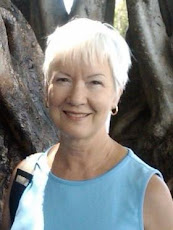

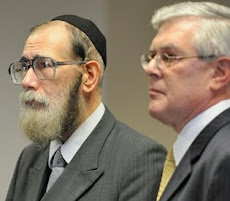

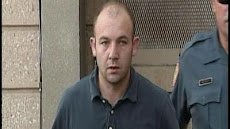









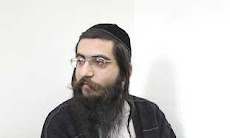





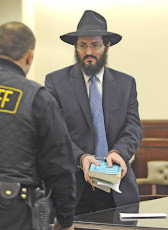














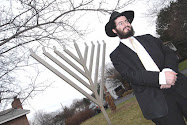




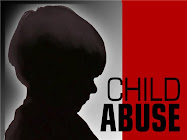













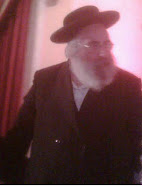



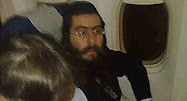




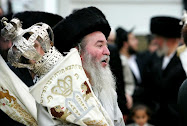


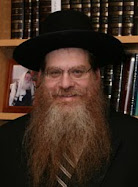












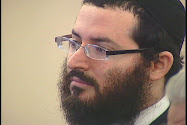
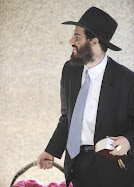
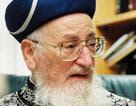









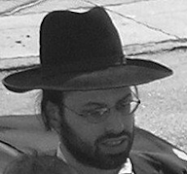

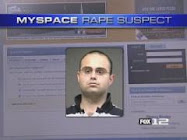









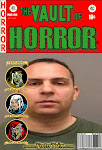












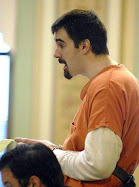


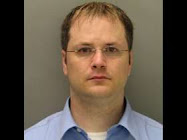


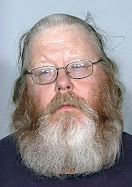

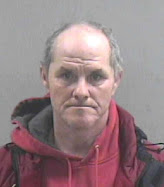
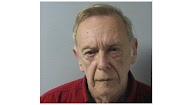
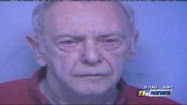













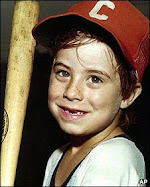

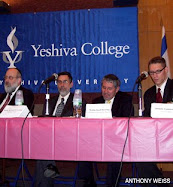







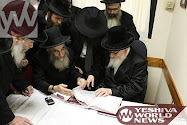









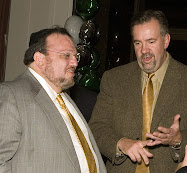
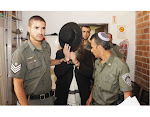



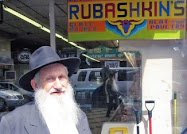















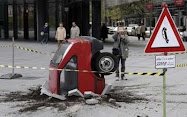










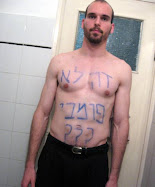
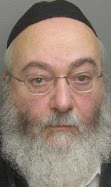












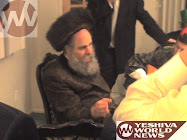






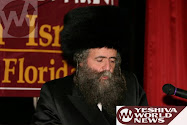


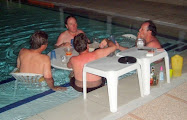

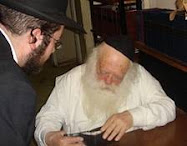

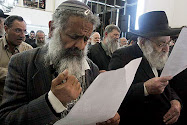
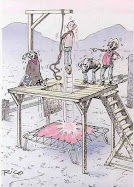
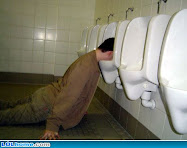



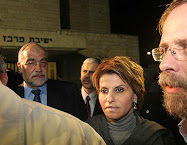
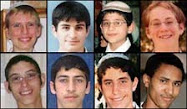
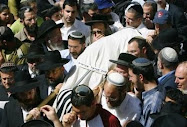
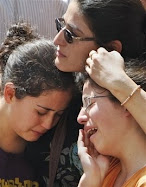
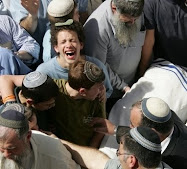
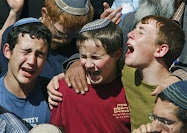
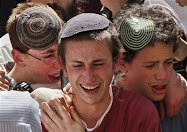
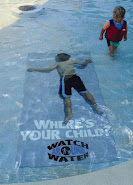

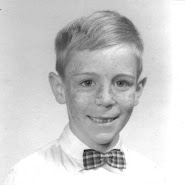







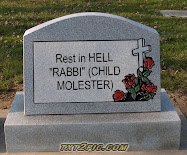
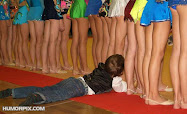







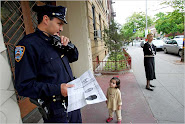















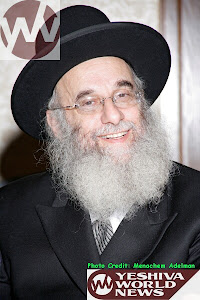
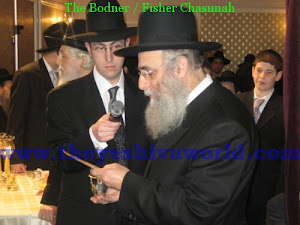
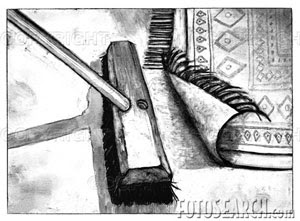
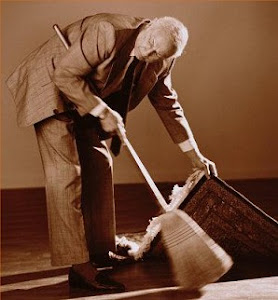








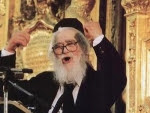


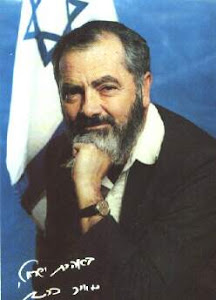

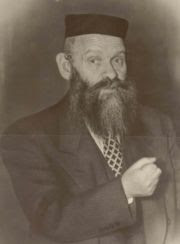




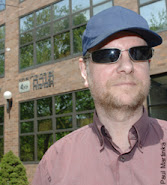


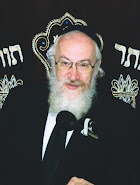





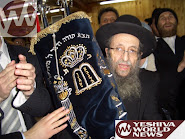

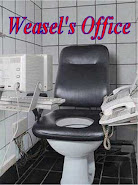

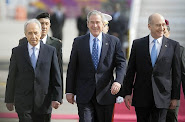
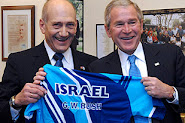
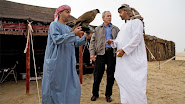


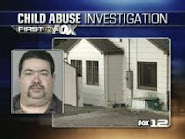
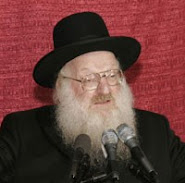

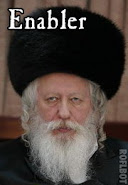













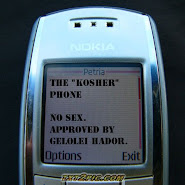





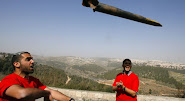
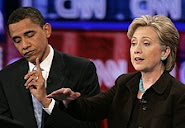


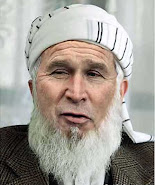









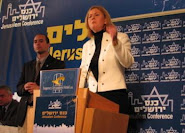


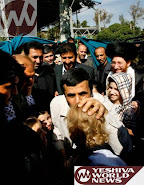
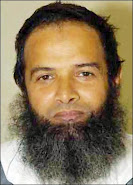


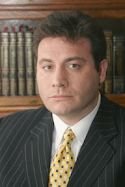


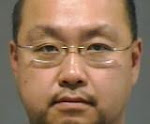
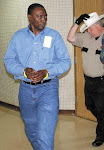

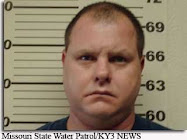



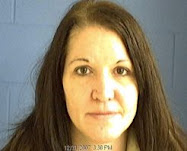
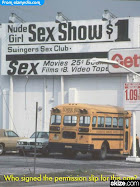

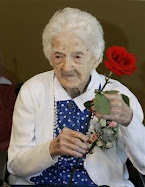

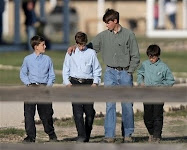



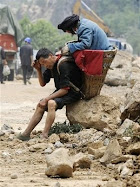





7 comments:
If you need to get in touch with me, you can do so at:
Matzil_Nefoshos@yahoo.com
Of course; All of our interactions will be kept confidential.
EM
The Jewish Press (clearing my throat) finally came out with an article that was lengthy and which touched upon some of the aspects and ramifications of child sex abuse. The problem is; that those like Ohel’s David Mandel; who this article makes a big show of quoting on how to deal with sex abuse, has proven himself to be worthless in speaking out and acting against the very same molesters he now professes to speak against. If that isn't hypocrisy than tell me what is?
"I make an analogy to cancer, rachmana litzlon," said David Mandel, chief executive officer at Ohel. "When someone is told he has cancer, he seeks out the best possible specialist. It’s the same thing in an area like sexual abuse." He cautioned, though, that "very few people can treat it" because few therapists specialize in abuse.
"very few people can treat it"? What is he talking about? Maybe he's refferring to the closed knit tight-lipped community where they don't recommend "outsiders" who are better qualified to deal with sexual abuse victims then they are.
One thing that's pretty glaring in this JP article is this. THE FRUM SEX ABUSE INTERVENTION THERAPISTS ARE CLEARLY UN-QUALIFIED TO DO THE JOB OF GUIDING THESE VICTIMS THROUGH THEIR TRAUMATIC TIMES; SO THAT SITUATION MUST CHANGE NOW.
I also don't see the Jewish Press gaining any credibility when quoting Rabbi Abraham Twerski whose expertise lies with treating drug and alcohol addicts; but NOT in helping victims of sexual abuse, which is a totally different dimension that has its own separate treatment plan.
It is also believed that Rabbi Abraham Twerski was made aware and knew of instances where children were being molested; yet he chose to remain silent and do nothing about it.
"Yes, [Orthodox Jews] are more reluctant, no question about it," said Rabbi Abraham J. Twerski, bestselling author and founder of Gateway Rehabilitation Center in Pittsburgh, which treats drug and alcohol addicts. "The idea that there is abuse is something the community did not want to accept."
Notice how the Jewish Pess waited until the Molester Kolko case became well publicized before publishing this article; lest they are be accused of having the guts to grab the bull by its horns!
A Rebbe tried to molest me in a Monsey Yeshiva when I was a teenager. I fought him off B'H. I was one of the main reasons for getting Rabbi Ben Zion Sobel fired. He is a very dangerous and sick man. He got fired because of what happened to me and also given the several complaints already lodged against him for sexual misconduct upon male students.
Today I am still traumatized by this. I was lucky that at the time Rabbi Sobel tried to molest me I had no fear of fighting back and getting him off me. I feel very sad for the unfortunate victims of sexual molestation who are so shocked and frightened at what the molester is doing to them - that they just remain quiet and are not in the right frame of mind to fight off the perpetrator. They're very scared and rightfully so. Sobel is no different than a Kolko, a Lazarowitz, a Nussbaum,an Eisman,and a Mondrowitz, They commit their crimes, all the while playing on the victims fear. The victims are so humiliated and frozen with guilt and fear, that often they just don't fight back and often keep the abuse a secret. Sometimes this secret never comes out, but lucky more and more people like you are exposing these Rabbi pedophiles and their enablers.
Rabbi at Iran's Holocaust denial conference to speak at MIT
By Raphael Kohan - Wednesday February 21 2007
Rabbi Dovid Weiss
Rabbi Dovid Weiss of the religious anti-Zionist movement to represent 'Jewish view'
Rabbi Dovid Weiss, the man who warmly greeted Iranian President Mahmoud Ahmadinejad at Iran’s Global Vision of the Holocaust Conference – essentially a forum for Holocaust deniers – has been invited to speak Thursday night at Massachusetts Institute of Technology, prompting some to question the university’s wisdom in hosting such an event.
A Jewish View, a Muslim View” is being presented by the campus groups Forum on American Progress and the MIT Social Justice Cooperative. It is co-sponsored by MIT’s School of Humanities, Arts and Social Sciences.
Boston University professor Ari Trachtenberg expressed his displeasure in a series of e-mails to Deborah Fitzgerald, dean of the SHASS. Trachtenberg has subsequently disseminated the e-mails on the Jewish Boston listserv.
“You are publicly sponsoring a discussion of most hateful ideology under the guise of valiant principles,” he wrote. “Freedom of speech is extremely important, but it is deeply tied to the moral imperative to protest hateful speech. I hope that MIT lives up to this moral imperative.”
Weiss, associate director of the ultra-Orthodox, anti-Zionist group Neturei Karta, drew the wrath of his own organization as well as the Satmar Hasidim and mainstream Jewry after his appearance at the Iranian conference, according to Trachtenberg.
Deborah Lipstadt, director of the Institute for Jewish Studies at Emory University and a foremost expert on Holocaust denial, believes it is beyond the university’s power to monitor who comes to campus except in extreme cases. She does, however, hope that this event flies way under the radar, and that Weiss speaks to an empty room.
“They’re nothings. They’re contemptuous,” Lipstadt told the Advocate. “Whoever invited them did it for scandal’s sake. It behooves the community not to make a fuss. People should not go demonstrate, people should ignore them. This man deserves nothing from us, protesting would be a big mistake. Do not offer him legitimacy.”
Rabbi's widow, synagogue dispute ownership of Torah scrolls
ASSOCIATED PRESS
7:25 p.m. February 20, 2007
LOS ANGELES – A rabbi's widow is at odds with a San Fernando Valley synagogue over who her late husband's Torahs rightly belong to.
Rabbi Norman Pauker lent Beth Midrash Mishkan Israel four Torah scrolls after his own North Hollywood synagogue closed in 1994.
His widow, Rita Pauker, has been asking for the return of the scrolls since his death in 2002, but Rabbi Samuel Ohana insists that what was at first a loan to his neighboring Sherman Oaks synagogue later became a gift.
“He called me in front of his wife and he said, 'Rabbi I cannot bear having these Torahs gathering dust in my garage,” Ohana said. “Take them, please.'”
According to a handwritten contract between the two rabbis that has Ohana's signature at the bottom, the Torahs were to be borrowed for two years.
Ohana said that contract was for insurance purposes, and that Pauker asked him to take the scrolls permanently five years later, an assertion Pauker's widow disputes. She accused Ohana's orthodox synagogue of “praying on stolen Torahs.”
“He is operating on a lie. It's all a lie,” Pauker said. “He is disrespecting everything Jewish.”
The Torah, a set of ancient Hebrew writings also known as the Five Books of Moses, is the central document of Judaism and serves as the center of Jewish religious ceremonies. A formal written scroll like the kind in dispute is known as a “Sefer Torah.”
Pauker said she doesn't want to sue for the Torahs because Jewish law forbids bringing disputes over religious items to secular court. But if she goes before a rabbinical court or “beis din” she fears she will be asked to compromise.
“The truth is the beis din probably is going to split the baby,” said Jeffrey Bohner, an attorney representing Pauker who attended her husband's synagogue and once studied under Ohana. “Rabbi Ohana has no claim to these, and Rita has all claim. So it is unfair for Rita to settle for half.”
Torah scrolls can take as long as a year to ink, must be destroyed when damaged and are generally worth several thousand dollars. Lending the scrolls is a common Mitzvah, or good deed, for those who own them.
Ohana said he would return the Torahs if he could be assured Pauker would give them to another synagogue and not sell them.
Pauker said she wants to give them to her nephews, who are rabbis in Florida and New York.
=================
Animal skinned for fur while alive is terrible, but how do you enforce such a ruling? Excuse me madam but do you know if that mink coat you're wearing comes from an animal that was slaughtered prior to being skinned?
I despise people that have the need to strutter their mink coats and other furry animal wear for the whole world to see. Go buy some warm coat that wasn't once a fox or a mink. Wearing the fur of an animal that was killed only for that purpose alone is just plain out wrong.
New York Post
RABBI BANS 'LIVING' FUR
Reuters
February 21, 2007 -- JERUSALEM - Jews must not wear fur skinned from live animals, Israel's chief rabbi said in a religious ruling yesterday.
"All Jews are obliged to prevent the horrible phenomenon of cruelty to animals and be a 'light onto nations' by refusing to use products that originate from acts which cause such suffering," Rabbi Yona Metzger said.
Animal-rights campaigners in Israel and abroad say that animals are skinned alive at fur farms in China.
The ruling stopped short of banning the use of fur from animals skinned after they were slaughtered.
=================
Halachah condones prisoner exchanges
By RABBI YEHIEL BEN AYON
he recent and dubious accord between Hamas and Fatah has created new hope for some sort of exchange that will return Cpl. Gilad Shalit to his family.
Securing the freedom of a fellow Jew such as Shalit, held hostage by terrorists for a harrowing seven months, is a great imperative for the State of Israel. This mitzvah is called pidyon shvuyim, the ransoming of hostages, and it stands singularly above others.
While granting that the value of a single Jewish life is immeasurable, Halachah prohibits the payment of an exorbitant price in order to secure the freedom of a hostage. The logic behind this limitation is to prevent kidnappings from spiralling out of control. If it became known that Jews would consider even a ridiculous ransom demand, and raise funds at all costs, it would lead to further kidnappings.
Most famously, the Maharam, Rabbi Meir of Rotenberg, was kidnapped in Germany in the 13th century. From captivity, he issued a decree prohibiting Jewish communities from paying for his ransom. This most venerable leader of Ashkenazi Jewry remained in jail for the rest of his life, where he died.
In the case of Shalit, the government of Israel will (unfortunately not for the first time) be faced with the prospect of negotiating for a soldier’s release.
The first sticky question has to do with dealing directly with the devil – that is, with the terrorists who kidnapped this young soldier. Some of the unpleasantness associated with this will be alleviated by the fact these prisoner exchanges are usually brokered through a third party.
As for the actual terms of the deal, Israel will most reluctantly resolve itself to another very lopsided exchange.
Rabbi David Yosef (the prolific author of the widely respected 24-volume Yalkut Yosef), with the consent of his father Rabbi Ovadia Yosef, has released a halachic ruling permitting the exchange of as many prisoners as needed to procure Shalit’s release.
The ruling places no limits on either the number or type of prisoners that may be exchanged, including such unsavory characters as terrorists and murderers. Rabbi Yosef notes, however, that the actual decision about releasing these criminals rests entirely with the government of Israel and its defence forces, who must judge whether the release of such prisoners will compromise Israel’s security. If they decide that it will not, then Halachah concurs with the unbalanced exchange.
Rabbi Yosef and his father base their ruling on the concept of saving a life, for which virtually all the mitzvot take a back seat (the exceptions being the three cardinal sins). Such is the importance with which Halachah views a single Jewish life.
Notwithstanding the traditional caution against an unbalanced ransom and the case of Rabbi Meir Rotenberg, whose life Rabbi Yosef claims was never in mortal danger, Shalit’s life is most certainly is danger at the hands of his terrorist captors.
Rabbi Yosef’s religious ruling, of course, carries no legal or political weight. However, it is hoped that it will be of influence to those in the Israeli cabinet who will hopefully be making such decisions soon. We continue our prayers.
==========
UOJ recently had information posted about molester scandals at the Moroccan synagogues in Toronto. Rabbi Benayon was the rabbi of the French speaking one where someone was molesting boys in the bathroom. Part of the reason nothing happened is because even the parents of the victims helped to cover it up.
I have visited this website and its well and good.its contains lots of information about work from home
WORK FROM HOME
Post a Comment